


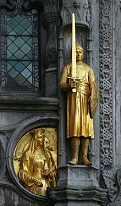
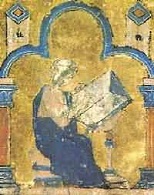



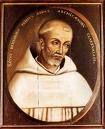


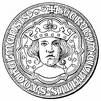
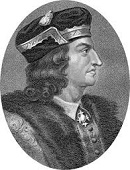



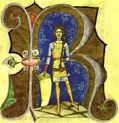























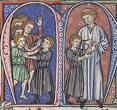


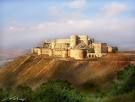


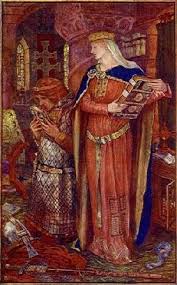


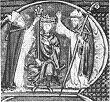

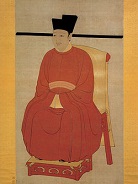
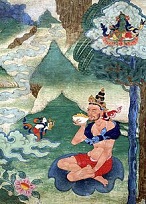

1100 Pop. of Iceland: 70K-80K. About this year the High Middle Ages begin in Europe (end 1350); Europeans begin adopting baptismal surnames; the origin of most surnames is either occupation, personal description, land/estate, geography, patrimonial/matrimonal ancestry, or patronage; by this time the toponym Martin is the most common one in Europe from Spain to Poland. On Feb. 23 Song Zhe Song dies, and his younger brother Song We Zong (Huizong) (Zhao Ji) (1082-1135) becomes Bei (Northern) Song emperor #8 of China (until Jan. 18, 1126), going on to become an art lover and the top tea expert in Chinese history. In Apr. nine mo. after the fall of Jerusalem six elders of the Karaite Jewish community of Ashkalon (Ascalon) write the Letter of the Karaite Elders of Ashkalon to the Jewish elders in Alexandria, describing their ordeal in ransoming captured Jews and holy relics from the new Latin rulers of Jerusalem. On July 18 Godfrey (Geoffrey) de Bouillon (b. 1058), Baron and Defender of the Holy Sepulchre dies, and is buried in the Church of the Holy Sepulchre; on Dec. 25 his youngest brother Baldwin (Baudouin) I (1058-1118) is crowned Latin king #1 of Jerusalem (until Apr. 2, 1118). On Aug. 2 English king (since Sept. 26, 1087) William II Rufus (the Red) (b. 1057) is killed in his New Forest by an arrow through the lung shot by Sir Walter Tyrell (Tirel), 3rd Lord of Poix (1065-110?) while hunting, and dies without receiving last rites, being found the next day by some peasants, who call in the nobles, who split quick; the clergy, who hate his guts for what he did to Anselm refuse to give him a church funeral, and blacken his name; Tyrel flees to France under suspicion that the shooting was no accident; on Aug. 5 his brother Henry Beauclerc (4th son of William I the Conqueror) seizes the throne as Henry I Beauclerc (1068-1135), becoming the 23rd English monarch (until Dec. 1, 1135); Henry I, who was in the hunting party himself (waiting in the wings like LBJ at Dealey Plaza?), soon proclaims that a man who kills another man during archery practice is absolved of murder; not to deny that the king is under law, however, upon ascending the throne he signs the Charter of Liberties, which reads almost exactly like the later Magna Charta; knowing that his brother Robert III Curthose is out on the First Crusade, he cuts him off at the pass by riding hard to Winchester to secure possession of the royal treasury and crown; meanwhile Henry I pub. the charter to remedy many of the perceived grievances against Rufus and win the people's favor; in Sept. after Canterbury archbishop (since 1093) Anselm returns from exile and he gets him to call a council of bishops to declare that she had never been a nun, although she had spent most of her life in a nunnery and was veiled, he marries Scottish babe Matilda (Edith) of Scotland (1079-1118), daughter of Malcolm III and St. Margaret, who becomes queen consort of England (until May 1, 1118), uniting the Norman and Anglo-Saxon bloodlines, and he begins a policy of using his "brood of bastards" (illegitimate children, which he has plenty of, 20+) to strengthen his power by marrying off the daughters to nobles and magnates; meanwhile Matilda (who only has two children) becomes popular with her subjects, wowing them by going to church barefoot on Lent and kissing the hands of the sick, causing her to become known as "Matilda the Good Queen" and "Matilda of Blessed Memory"; they marry in the church in her hometown of Dunfermline near the Firth of Forth, becoming the first written mention, after which she establishes a new church dedicated to the Holy Trinity, which grows into an abbey in 1128 under Malcolm III's son David I, after which in 1160 its graveyard becomes the burial place of Scottish monarchs, starting with Alexander I and ending with Robert I the Bruce (1329); meanwhile in 1107 Norman baron Gilbert fitz Richard de Clare (1065-1117), who was present at the "accident" and kept his mouth shut gets his reward in the form of lands in Wales, incl. Cardigan Castle, making the de Clare name big in Norman England, and the terror of Wales (until 1314); Henry brings hanging back as the main means of execution for many crimes after William I and William II only hanged one each, the latter only for poaching royal deer (William of Aldrie in 1096). On Sept. 8 Antipope (since 1080) Clement III (Guibert) (b. 1025) dies in Civita Castellana, and bishop Theodorus of St. Rufina is elected antipope in his place, but never holds any real power - you can't compete with a successful foreign war? In Sept. a large army of Lombard Crusaders, mainly peasants, led by Archbishop Anselm IV of Milan leaves from Milan; too bad, when they reach Byzantine territory they begin pillaging, causing Byzantine emperor Alexius I to arrive with his troops and escort them to a camp outside Constantinople, after which they break out, invade the big city and pillage his Blachernae Palace, killing his pet lion, after which the Byzantines round them up and ferry them across the Bosporus to Nicomedia. Melitene (Malatya) (Malatia) in E Anatolia, which guards one of the Cilician Gates through the Taurus Mts., ruled by wealthy Greek Orthodox Armenian soldier Gabriel of Melitene (-1103) is attacked by a large force of Danishmend Turks under Malik Ghazi Gumushtekin (Gumushtakin), emir of Sebastaea (Sivas) in C Anatolia, causing the Armenians to request military aid from Bohemond I of Antioch, who in Aug. marches N with only 300 knights and a small infantry force, and is ambushed and encircled by the Turks at the Battle of Melitene (Malatya), killing most of the Crusaders and capturing Bohemond along with his cousin Richard of Salerno, who are held for ransom; after a request by Gabriel of Melitene, King Baldwin I of Jerusalem relieves Melitene, and becomes its overlord; Baldwin of Courcq (Bourg) (1060-1131) (cousin of Godfrey of Bouillon) is appointed the new count of Edessa (until 1118), marrying Gabriel of Melitene's daughter Morphia of Melitene (-1126) next year. Santiago de Compostela in Galicia in NW Spain, a major stop on the pilgrimage route is raised to an archiepiscopal see by the late Pope Urban II; the Cathedral of St. James has a golden mollusc shell on the altar which pilgrims get to kiss, spreading germs? In W Europe town life begins to revive; France develops the commune, a collective legal feudal person, incl. Amiens (chartered in this cent.), Saint-Quentin (by 1080), and Rouen (1145), and the consulate, a southern commune with greater rights than the northern, incl. Roussillon, Provence, Languedoc, Gascony, and Guienne. Syrian Arab emir Abu Imran Fadl ibn Rabi'ah expels Toghtekin, Burid ruler of Damascus and forms a pact with Sadqaa, Mazyadid ruler of Hillah to the S, only to see him defect to the Seljuks, causing him to disappear. About this time a Japanese fishing boat lands on the Ecuadorian coast after probably being blown off-course by storms. In this cent. the region of Hesse in SW Germany (named after the Frankish Hessi tribe) becomes a part of the landgraviate of Thuringia (until 1247). In this cent. the Moon-worshiping Chimu Culture is founded by the Kingdom of Chimor on the coast of N Peru (ends 1476), with capital at the adobe city of Chan Chan in the Mochey Valley 3 mi. W of Trujillo, competing for lebensraum with the Sun-worshiping Inca and becoming the largest Pre-Columbian city in South Am. In this cent. a Jewish colony is founded in Kaifeng in China, flourishing through the 15th cent. In this cent. the Romani (Romany) (Roma) (Gypsy) people from NW India reach the Balkans. In this cent. the Malinke Empire begins ruling Mali. In this cent. the Cemetery of the Holy Innocents (Saints-Innocents) is established in Paris, France, becoming the oldest and largest cemetery in Paris, often used for mass graves; it is closed in 1780 due to overcrowding, and in 1786 the corpses are moved to the Paris Catacombs near Montparnasse. In this cent. the English monarch begins a tradition of distributing alms to the poor on Maundy Thursday (the day before Good Friday), giving two purses of Maundy coins ("n" pence in each) to n men and n women, where n is the the age of the sovereign in years; it is held at a different cathedral every year. In this cent. the Twelve (Holy) Days of Christmas (Christmastide) (Dec. 25-Jan. 5) are created from Saturnalian traditions in Italy combined with the Forty Days of St. Martin (Nov. 11-Dec. 25), beginning on the feast of St. Martin of Tours (Nov. 11) (AKA the Advent). In this cent. the short stout Gurkhas (Sans. "cowherds") of Rajputana, known for their large, broad-bladed kukri knives begin invading Nepal. In this cent. the Malays first come to 287K-sq.-mi. Borneo (third largest island on Earth, on the equator at the W end of the Pacific), meeting up with the native headhunting cannibalistic blowpipe-using coastal Iban (Sea Dyaks), converting them to Islam and intermarrying with them; meanwhile the native Kyans and Punans of the interior remain pagan and polytheist. About this time Polynesia is colonized from South Am. according to Heyerdahl of Kon-Tiki fame. Coal is discovered in Liege early in this cent. In this cent. the Tarascan (Purepecha) state in Michoacan, S Mexico centered around Lake Patzcuaro is founded (ends 1530), becoming enemies of the Aztecs and making stirrup-shaped long-necked bottles and round Yacata temples. Early in this cent. (during the reign of Henry I) the town of Cambridge in England is founded on the Cam River 47 mi. NNE of London on a natural route between the coast and interior, receiving extensive privileges as a river port and toll station. In this cent. The Strand in Westminster, C London, which runs along the N bank of the Thames River becomes popular with the British upper classes, who build many mansions incl. Essex House, Arundel House, Somerset House, Savoy Palace, Durham House, and Cecil House before moving to the West End in the 17th cent., allowing the area to be taken over by coffee shops, restaurants and taverns, followed by music halls and theatres in the 19th cent.; celebs Charles Dickens, Ralph Waldo Emerson, and Virginia Woolf live there. In this cent. Chimkent (Shymkent) ("turf city") 70 mi. N of Tashkent in modern-day S Kazakhstan is founded to protect the Silk Road town of Sayram 6 mi. to the E, becoming a market center; in 1914-24 it is renamed Chernyaev. In this cent. the hilltop fortress town of Cuneo is founded in the Piedmont region of N Italy on between the Stura and Gesso Rivers (55 mi. S of Turin). In this cent. the town of Mantua (Mantova) in Lombardy is surrounded on all four sides by artficial lakes from the waters of the Mincio River, called Lake Superior, Lake Middle, Lake Inferior, and Lake Pajolo; the latter dries up by the end of the 18th cent. The town of Old Oraibi is founded on the Third Mesa in NE Ariz. by the Hopi, surviving to modern times as the oldest continuously inhabited settlement in the U.S. In this cent. the town of Vologda on the Vologda River 290 mi. NNE of Moscow is founded. In this cent. Pisa U. in Italy is founded by law students and teachers from Bologna, issuing the first doctorates of law - we all switch from bologna to pisa sooner or later? In this cent. the Dutch begin developing powerful towns with wealthy merchants challenging the nobles who rule the countryside; the sport of speedskating is begun on frozen canals. In this decade Henry I of England establishes the yard as the distance from the point of his nose to the end of his thumb when his arm is outstretched; a fathom is the length of both arms outstretched. In this cent. the Za mercantile and craft guilds in Japan are organized (until 1590). In this cent. the wandering student Goliards ("Goliaths") of Europe write satirical Latin verse while serving as minstrels and jesters. In this cent. the earliest Celtic lit. is written. Thanks to the haughty Normans trying to force the Anglo-Saxons to give up their funky German for French, a bastard language begins to emerge, which unfortunately ends up taking over half the world? In this cent. the French-speaking Norman invasion causes the indefinite article "a" to begin to emerge in Old English, which begins to diverge from the alphabetic principle in orthography, creating the "world's worst spelled language"; the Old English "gefeoht" (battle) becomes defunct; Middle English begins to supersede Old English; meanwhile in this cent. the dialect of the Ile-de-France becomes prevalent in France. In this cent. French nuns begin giving gifts in St. Nicholas' name on his feast day of Dec. 6. In this cent. the earliest cultivated chile (Capsicum annuum) seed is left under a room floor in modern-day Chihuahua, Mexico, becoming the only precontact cultivated chile in the Am. Southwest/Mexican Northwest. Sports: In this cent. the game of Checkers is born when the ancient Egyptian board game of Alquerque begins to be played on a chess board. In this cent. the Iroquois invent the game of Lacrosse. Architecture: In this cent. Norman Romanesque architecture undergoes the transformation to light-lofty-airy Gothic Architecture in France, spreading to England by the end of the cent. In this cent. the Church of St. Sofia is built in Sredetz (modern-day Sofia), Bulgaria on the highest point of the city. the Church of St. Germain-des-Pres in Paris is built about this time. Castle Chillon near Geneva, Switzerland is built about this time. In this cent. the Gothic St. Severus Cathedral in Erfurt, Germany is begun (finished in the 14th cent.), along with the Predigerkirche, and the Reglerkirche. Inventions: In this cent. Sicily begins producing silk, and the practice later spreads to Italy, Spain, and France. In this cent. Arabs begin cultivating sugar cane in Sicily and Spain, causing it to become popular as an alternative to honey in Europe. In this cent. the rocket is invented in China - that's why it has a red glare? In this cent. Edam cheese begins to be manufactured in the Little Ye River Valley in N Holland, sold as paraffin-coated balls which don't spoil easily, causing it to become the world's most popular cheese until the 19th cent. In this cent. Fontina cheese begins to be manufactured in the Aosta Valley, known for its yummy 45% fat content. Science: In this cent. science in the Muslim World begins a slow permanent decline. Nonfiction: Early in this cent. Theophilus Presbyter writes On Divers Arts. About this time Bonedd y Sant (Lineages of the Saints) and Life of St. Cadoc are written in Ireland. Music: In this cent. the first secular music is performed in the West. In this cent. the Music School of St. Martial in Lomoges develops the polyphonic style. In this cent. the earliest music is written for guitars, used by troubadours. In this cent. the bagpipe becomes known in England. In this cent. the French Rondeau is born. Plays: About this time The Play of the Wise and Silly Virgins is written by anon. About this time Krishnamisra writes the allegorical play Prahodha ("undying flood of wisdom") Chandro-Daia. In this cent. the Passion Play, an Easter pageant about Christ's Passion (suffering and death) originates in Europe, which lends itself to anti-Semitic demagogues trying to whip illiterate Christian mobs into homicidal acts to "get even with them for killing our Lord"; not being able to read, they never 'get' that the "gospel" (good news) is that Christ came out all right in the end, hence no harm no foul? Poetry: The French heroic poem Chanson de (Song of) Roland, about a battle in 778 C.E. is composed about this time. Births: Danish king (1137-46) Eric (Erik) III Hakonssson Lam ("Lamb") (d. 1146) in Fyn (Funen) Island; grandson of Eric I; nephew of Eric II. English "History of the Kings of Britain" bishop-chronicler Geoffrey of Monmouth (d. 1155) (b. 1095?) in Monmouth, Wales; educated at Oxford U.; bishop of St. Asaph (1152-). Moroccan Muslim geographer Abu Abd Allah Mohammed (Muhammad) al-Idrisi (al-Idrissi) (d. 1165); in the service of Roger II of Sicily he helps transmit Islamic scientific knowledge to the backward Christian West. German (Brandenburg) margrave #1 (1150-70) Albert the Bear (d. 1170) ; only son of Count Odo of Ballenstedt and Eilika, daughter of Duke Magnus Billung of Saxony. French Anglo-Norman "Roman de Rou" poet Robert Wace (d. 1174) (b. 1110?) in Jersey; grows up in Caen, Normandy. French Scholastic philosopher William of Conches (d. 1155) (b. 1090?) in Conches, Normandy. Deaths: Indian Buddhist master (Mahasiddha) Naropa (b. 1016) after becoming the disciple of Tilopa and pupil-partner of Niguma, and attaining enlightenment in one lifetima via his trust and devotion to his teacher and becoming part of the Golden Garland of the Kagyu School of Tibetan Buddhism, collating the Six Dharmas (Yogas) of Naropa, which he conveys to his student Marpa Lotsawa (the Translator) (Marpa Chokyi Lodro) (1012-97), helping others achieve Buddhahood in an accelerated manner. Frankish First Crusade leader Godfrey of Bouillon (b. 1058) on July 18 in Jerusalem. French Benedictine monk (St.) Adelelmus (Lesmes) (Aleaunie) (b. ?); born in Laudun, Poitou; starts out in the military; feast day: Jan. 30.
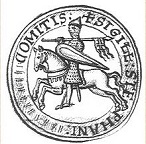
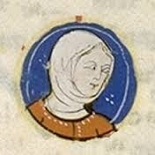

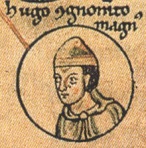
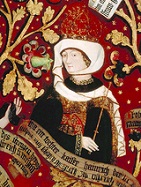
1101 After a call for another crusade by Pope Paschal II, the Crusade of 1101 (Crusade of the Faint-Hearted) (composed mainly of those who turned back from the First Crusade) sees the Crusader group from Milan join up in Nicomedia ith a more prof. group of French, Burgundians, and Germans incl. Count Stephen II of Blois (1045-1102)) (who had been shamed by his wife (St.) Adela of Blois (1067-1137) ever since returning from the siege of Antioch in 1098 without capturing Jerusalem, and was pressured into joining this Crusade), Count Stephen I of Burgundy, Duke Eudes I of Burgundy, Conrad, HRE Henry IV's constable of Jerusalem, and Raymond IV of Toulouse, who is appointed leader; at the end of May after some Pecheneg mercenaries under Gen. Tzitas arrive from Constantinople, they march towards Dorylaeum along the 1097 First Crusade route, but break off the route to Konya after the Lombards clamor to rescue Bohemund I of Antioch in Niksar, capturing Ancyra on June 23, sieging Gangra (modern-day Cankiri), then continuing N to Kastamonu; too bad, after being attacked by the Seljuks under Kilij Arslan I they turn E instead of W, still going for Bohemund, and stumble into a combined Seljuk-Danishmend army under Kilij Arslan I, Ridwan of Aleppo, Malik-Ghazi of Sebastia, and Karaja of Harran, fighting the Battle of Mersivan (Merzifon) near the Paphlagonian Mts. in NC Anatolia in early Aug., which sees them surrounded and crushed them in a 4-day battle, the Muslims capturing most of the horseless Lombards along with the Crusader camp, incl. women, children, and priests; Raymond, Stephen of Blois, and Stephen of Burgundy flee N to Sinope, then return to Constantinople by sea; a new force from Bari, Italy then arrives in Constantinople under William II of Nevers, and sieges Konya (Iconium) in SC Anatolia, only to be ambushed at Heraclea Cybistra by Kilij Arslan I, who wipes them out except for the count and a few of his men; the last Crusader army then arrives, led by Duke William IX of Aquitaine (1071-1127) (the first troubador), Count Hugh the Younger of Vermandois (1057-1101) (son of Henry I of France and Anne of Kiev), and Duke Welf I of Bavaria (-1101), who brings along Austrian Babenberg queen Ida (Itha) of Formbach-Ratelnberg (1055-1101) (wife of Leopold II and mother of Leopold III of Austria), complete with her own army, and they split into two forces, one headed straight for the brass ring of the White House, er, Palestine via sea, the rest (15K) under Count William (Guillaume) II of Nevers (1088-1148) traveling by land, only to be ambushed and massacred in Sept. in Heraclea Cybistra, the survivors arriving on Oct. 18 in Tarsus, where Hugh dies of his wounds; Ida is KIA (and is rumored to be captured end up as the mother of Crusader enemy Zengi); on Nov. 6 after preventing a fight between the Crusaders and some Byzantine Pecheneg mercenaries pissed-off oat their pillaging of Byzantine territory, Welf I dies in Paphos, Cyprus on his way back;after all the remaining Crusaders regroup at Tarsus, they capture Tortosa with the help of a Genoese fleet, and arrive in Antioch by the end of the year. On June 22 Roger I (b. 1031) dies, and his 8-y.-o. eldest son Simon of Hauteville (1093-1105) becomes count of Sicily (until 1105), with his mother Adelaide del Vasto as regent; meanwhile he gets in a fight with his younger brother Roger II, who beats him and tells him that he isn't king material but after he becomes king of Sicily he will make him a bishop or even pope. On Sept. 7 the First Battle of Ramla (Ramlah) (Ramleh) sees Baldwin I of Jerusalem take on the Egyptian Fatimid fortress of Ascalon with only 260 knights and 900 infantry in six divs. against 10K Egyptians; after the first two divs. are wiped out, the Egyptians pursue the 3rd one into the arms of the other three, allowing the Christians to show their viciousness in close quarter combat, causing the fatigued Fatimids to get timid and retreat in panic to Ascalon. On Nov. 9 Welf IV dies in Paphos, and his eldest son Welf V (1072-1120) becomes duke of Bavaria (until 1120). Royally pissed-off Robert III Curthose (1053-1134) of Normandy invades England, landing secretly in Portsmouth, but his younger brother Henry I meets him in Alton and persuades him to withdraw without fighting after buying him off with the Treaty of Alton, which promises him a year stipend of 3K marks in return for recognizing Henry I as king of England and receiving a possession in Normandy, recognizing each other as heirs, granting amnesty to all participants except "traitors", whom they are to assist each other in punishing, with Count Robert of Meulan (Robert de Beaumont, 1st Earl of Leicester (1040-1118) uttering the soundbyte: "Soothe them with promises, so they can be driven into exile." Balaguer in Spain is reconquered from the Moors. Viking leader Magnus III Barefoot of Norway stages piratical forays into Ireland. Prince Boris Vsevolodovitch founds the town of Borisov in Belarus; Minsk becomes the capital of an independent principality. The First Synod of Cashel in Ireland is convened by Irish king Muirchertach Ua Briain (2nd in 1172); Murtagh O'Brien (Muircheartach Ua Briain) cedes Cashel Castle on the Rock of Cashel (Gael. "cashel" = castle) in County Tipperary, Munster (political capital of the Eoghanacht Dynasty) Births: Hungarian Arpad king (1116-31) Stephen (Istvan) II (d. 1131); son of Kalman (1070-1116) and Felicia (daughter of Roger I of Sicily). French abbess Heloise Abelard (d. 1164); student and secret wife of Peter Abelard (1079-1142). Deaths: Chinese superbrain Su Song (b. 1020); leaves Xinyi Xiangfayo et al. German monk (St.) Bruno of Cologne (b. 1030) on Oct. 6. Norman count of Sicily (1071-1101) Roger I (b. 1031) on June 22. Chinese poet-painter Su Tung-P'o (b. 1036). Austrian queen Ida of Austria (b. 1055) in Heraclea Cybistra (KIA); captured by the Seljuks? French count Hugh the Younger of Vermandois (b. 1057) on Oct. 18 in Tarsus. Bavarian duke (1070-7, 1096-1101) Welf I/IV (b. ?) on Nov. 9 in Paphos. Kashmiri king (since 1089) Harisha (b. ?).


1102 On Jan. 24 Constantin I dies, and his eldest son Toros (Thoros) I (-1129) becomes king #3 of Lesser Armenia (Cilicia) (until 1129), establishing his capital at Sis (modern-day Kozan, Turkey), going on to extend alliances with the new Crusader states in Syria, avenging Gagik II by killing his assassins, repelling invasions of Turks from the N. On ? (Easter) the Crusaders of 1101 arrive in Jerusalem as pilgrims, getting their religious brownie points; most then disperse back to Europe, the rest joining Baldwin I's pitiful contingent. In Apr.-May the Christians, led by El Cid's widow Jimena evacuate Valencia; the Almoravids (Murabitun) under Mazdali, ibn Tilankan and Muhammad ibn Fatima occupy the city; of the Taifa states only Zaragoza, Mallorca, and Albarracin remain independent. On May 17 the Second Battle of Ramla (Ramlah) (Ramleh) sees Baldwin I of Jerusalem bring only 500 knights against thousands of Egyptian Fatimids, and after the latter surprise them, the cocky Christian fools charge into the enemy lines only to be slaughtered, incl. Stephen of Blois and Hugh VI of Lusignan, after which Baldwin saves himself by barricading himself in Ramlah's only tower, then escaping under cover of darkness to Arsuf, where he talks an English ship capt. into breaking the Egyptian blockade of Jaffa, then rounds up a fleet of French and German Crusaders along with the True Cross for moral support and scores a V on May 27 against the way bigger Egyptian army at the Battle of Jaffa, using his cavalry to break the Egyptian lines and force them to flee to Ascalon, taking big booty; Stephen II of Blois is KIA in the final charge from the tower of Ramlah, where Conrad, constable of Jerusalem is captured, after which Stephen II's eldest son Guillaume is passed over for mental weakness, and his 2nd son Count Theobald II of Champagne (b. 1090) becomes count Theobald IV of Blois and Chartres (until 1151); Joscelin of Courtney decides to remain in Palestine, and ends up as count of Edessa in 1118; having kicked Crusader butt out of Asia Minor, Kilij Arslan I establishes his capital in Konya, and becomes a big man in the Muslim world, the first to kick Crusader butt; since he blocks the land route from Constantinople to Jerusalem, only the sea route remains for pilgrims; Tancred uses this fact to consolidate his power in Antioch without Byzantine interference, capturing Tarsus, Adana, and Massissa in Cilicia (SC Anatolia). In summer English pilgrim Saewulf leaves Apulia for a tour of Palestine, taking ship at Monopoli and landing at Jaffa, then traveling by land to Jericho an Hebron, noting that the road between Jaffa and Jerusalem "was very dangerous ... because the Saracens are continually plotting an ambush... day and night always keeping a lookout for someone to attack"; in May 1103 he begins his return journey by ship from Jaffa, fighting off Saracen ships near Acre, and more between Cyprus and Constantinople, surving to write an account of his journeys. On Sept. 14 Count (since 1092) Ermengol V (b. 1078) dies of wounds from fighting Almoravid Moors at the Battle of Molerussa (Mollerusa) in S Urgell between Bellpuig and Lleida, and his Valladolid-born son Ermengol (Armengol) VI "Castilla" (1096-1154) becomes count of Urgell in Spain (until 1154). Hungary finishes conquering Dalmatia, defeating Croatian king Petar, incorporating almost all of Croatia under a viceroy (ban), while the landed Croat magnates retain their local assembly, and the Adriatic port of Dubrovnik (Ragusa) becomes an independent city-repub.; Croatia finally separates from the other southern Slavs and goes Western (Roman Catholic). Prince Vladislav I Herman dies, and his son Boleslav (Boleslaus) III Krzywousty (the Wry-Mouthed) (1086-1138) becomes duke of Lesser Poland, Silesia, and Sandomierz until 1107, followed by king of Poland (until Oct. 28, 1138), beginning a violent wry-mouthed struggle with his straight-mouthed brother duke Zbigniew (Zbygniew) of Poland (1073-1114) - wipe that wry off your mouth? Raymond of Toulouse captures the Spanish city of Tortosa. Bishop Diego Gemirez (Gemírez) of Santiago de Compostela, Spain uses force to carry off the relics of St. Victor and St. Frucuosus from Braga, which was recently reinstated as a metropolitan see. To forestall an invasion, a nat. synod of Irish bishops emancipates all English slaves. The Kingdom of Cochin in SW India is founded (ends 1949), becoming known for its spice-trading capital city of Kochi, "Queen of the Arabian Sea". The tomb of Edward the Confessor (d. 1066) is opened, and it smells sweet like flowers and his body is perfectly preserved? - the poor Saxon dogs have to have something to celebrate? Births: English HRE (1114-25) and queen (lady of the English) (1035-41?) (first female ruler of England) Empress Matilda (Maud) (Maude) (d. 1167) in Feb. 7 in Winchester; only legitimate daughter of Henry I of England (1068-1135) and Queen Matilda-Edith of Scotland (1080-1118); wife of HRE Henry V (1086-1125) and Count Geoffrey V of Anjou (1113-51); mother of Henry II (1133-89), Count Geoffrey VI of Anjou (1134-58), and Count William of Poitou (1136-64); not to be confused with English Queen Matilda, Countess of Boulogne (1105-52). French duke of Normandy and count #14 of Flanders (1127-8) William Clito (Lat. "royal blood") (same as Anglo-Saxon "Aetheling" and German "Adelinus") (d. 1128) on Oct. 25 in Rouen; son of Robert Curthose (1051-1134) and Sybilla of Conversano (-1103); 1st cousin of William Aetheling (son of Henry I); husband of Joanna of Monteferrat (half-sister of Adelaide de Maurienne, wife of Louis VI). ) Deaths: French Crusader Stephen II of Blois (b. 1045) on May 19 in Ramlah, Palestine. German king (1087-98) and Italian king (1093-98) Conrad II of Italy (b. 1074) on July 27 in Florence; buried in Santa Reparata (Santa Maria del Fiore).
1103 On Mar. 23 Eudes I the Red (b. 1058) dies after returning from the Crusade of 1101, and his son Hugh II (1084-1143) becomes duke of Burgundy (until 1143). Olavsson III Magnus (Barefoot), king of Norway is KIA while invading Ireland; his three sons Olaf Magnusson (1099-1115), Eystein I Magnusson (1088-1123), and Sigurd I Magnusson Jorsalafari (the Crusader) (1090-1130) split Norway three ways and become kings. Kalman I of Hungary becomes king of Croatia. The Danishmend Turks under Malik Ghazi Gumushtekin attack Melitene again, but the Crusaders fail to aid it because they're negotiating the release of Bohemond I of Antioch, and they conquer it and capture Gabriel of Melitene, who is executed outside the walls of a castle held by his men who refuse his order to surrender; meanwhile Byzantine emperor Alexius I tries to get even for Bohemond breaking his oath not to keep Antioch for himself, offering Gumushtekin 260K dinars for him, causing his overlord Kilij Arslan I to demand a 50% override on threat of an attack, after which Bohemond proposes a 130K dinar ransom cutting Alexius I out, which is paid by Baldwin I of Jerusalem, and after exchanging oaths of friendship with Kilij Arslan I, Bohemond returns in triumph to Antioch in Aug., then hooking up with Baldwin II of Edessa next Jan. to attack Harran. Ali, brother of Muhammad ibn al-Hajj, Murabitun gov. of Granada is KIA in battle with the Castilians in the Battle of Talavera. David IV of Georgia begins a campaign to end the seasonal migrations of Turks into Georgia, reducing key fortresses on the way to big jewel Tbilisi (ends 1118). The Public Peace of Mainz is declared for the Holy Roman Empire by HRE Henry IV (ends 1107); last in 1085; next in 1152. After Henry I of England's chief advisor (a Norman count) is excommunicated by Pope Paschal II, who threatens Henry I with ditto, they get into a dispute over lay investiture, with Archbishop Gerard of York writing the Anonymous of York treatises, defending the royal investitute of ecclesiastics via the traditions of Anglo-Saxon theocratic kingship; meanwhile Anselm gets in the middle, and is exiled to Rome for three years. Nonfiction: Anon., Ying Tsao Ea Shih (Method of Architecture); written in China. Births: Japanese emperor #74 (1107-23) Toba (Munehito) (d. 1156) on Feb. 24; son of Horikawa (1079-1107). English prince William Adelin (Atheling) (OE "son of the King") (d. 1120) in Winchester; only son of Henry I and Matilda-Edith. Norwegian king (1130-6) Harald IV Gille (Gilla Crist) ("servant of Christ") (d. 1136) in Ireland or Scotland; bastard son of Magnus Barefoot. French count of Tripoli (1105-9), count of Rouergue (1109-48), and count of Toulouse (1112-48) Alfonso Jordan (Alfons I) (d. 1148) in Mont Pelerin Castle, Tripoli; son of Raymond IV of Touluse and 3rd wife Elvira of Castile; father of Raymond V (1134-94), Alfonso, Faydiva (-1154), Agnes (-1187), and Laurentia. English queen consort (1121-35) Adeliza (Adelicia) (Adela) (Aleidis) of Louvain (d. 1151; 2nd wife of Henry I (1068-1135); daughter of Count Godfrey I of Louvain (1060-139). English queen consort Matilda of Boulogne (d. 1152) in Boulogne, France; wife of Stephen I, and bitter opponent of Henry I's daughter Empress Matilda; mother of Eustace IV (1130-53) and William I of Blois (1137-59). Deaths: French duke of Burgundy (1079-1103) Eudes I (b. 1058) on Mar. 23. Danish king (1095-1103) Eric I (b. 1070) on July 10 in Paphos, Cyprus; dies on a pilgrimage to Jerusalem; his wife Bodil continues on, and dies on Oil Mountain.

1104 On May 7 after faking a retreat for 2 (3?) days then suddenly turning and making their stand, catching the Crusaders not wearing their armor, the Battle of Harran 12 mi. of Harran near ar-Raqqah is a decisive V for the Seljuk Turks under Mosul gov. Jikirmish and Sokman, Artuqid lord of Mardin over the Crusader states of Antioch under Bohemond I and Edessa under Baldwin II, allied with Prince Tancred of Galilee, Joscelin of Courtenay, Antioch patriarch Bernard of Valence, Jerusalem patriarch Daimbert of Pisa, and Edessa archbishop Benedict, becoming the first major battle after the First Crusade, stopping Frankish expansion; Baldwin II and Joscelin are captured, and not ransomed until 1108; the Byzantines take advantage of the D to recapture Latakia and parts of Cilicia, while many towns ruled by Antioch revolt and are reoccupied by Muslim troops, and Armenian territories revolt in favor of Armenia or the Byzantines; Bohemond I makes Tancred regent of Antioch and returns to Italy and raises a huge Frankish army, takes it to Epirus and unsuccessfully sieges Durazzo, while emperor Alexius I avoids open battle; Baldwin I of Jerusalem retakes Acre, making it the chief Crusader port, taking advantage of the spice trade to make them wealthy, growing to 25K pop. by the 1130s; after their troops bear the brunt of the D at Harran, Edessa limps along until 1144, surviving only because of divisions among the Muslims. On Sept. 28 king (since 1094) Peter I of Aragon and Pamplona (b. 1068) dies, and his brother Alfonso I (the Battler) (the Warrior) (1073-1134) becomes king of Aragon and Pamplona (until Sept. 8, 1134); in 1109 he marries Queen Urraca of Castile, Leon, and Galicia, taking the title of emperor of Spain. Sultan Kilij Arslan I of Rum begins a war with the Danishmends. Henry V rebels against his father HRE Henry IV with the approval of Pope Paschal II. The Venice Arsenal (shipyard and naval depot) (Arab. "Dar al Sina'a" = dockyard) is founded in Venice, Italy in the Castello Sestiere. The Hekla Volcano in Iceland erupts, destroying numerous farmsteads. Births: English king (1135-54) Stephen I of Blois (d. 1054); son of Count Stephen II of Blois and Adela (daughter of William I the Conqueror).
1105 - The Frederick II the One-Eyed of Swabia Year?




1105 On July 21 Duke Frederick I of Swabia (b. 1050) dies, and his son (by wife Agnes of Germany, daughter of HRE Henry IV) Frederick II the One-Eyed (1090-1147) succeeds him, going on to become the daddy (by wife Judith) of Hitler's favorite Frederick I Barbarossa in 1122. On Aug. 27 the Frankish Crusaders led by Baldwin I of Jerusalem defeat the Fatimids at the Third Battle of Ramla (Ramlah) (Ramleh), which lasts most of the day and is the most bloody of the trio, ending with the Egyptians fleeing back to Ascalon again; Ridwan of Aleppo tries to take advantage of the Latin defeat at Harran by attacking Artah, but is defeated by an Antiochian army led by Tancred. Henry IV is captured by his son Henry V and abdicates, leaving his son Henry V (1081-1125) as sole king of Germany. Raymond IV of Toulouse dies, and is succeeded by his son Bertrand (-1112). Simon of Hauteville (b. 1093) dies, and his younger brother Roger II (1095-1154) becomes count of Sicily (until 1130). Berkyaruk's brother (son of Malikshah) Muhammad I Tapar (-1118) becomes Seljuk sultan (until 1118); the Seljuk Empire is rapidly disintegrating into independent dynasties in Iran, Iraq, Syria and Anatolia. Colonization of E Germany begins. Krefeld in W Germany on the Rhine River 19 mi. WSW of Essen is first mentioned (as Krinvelde); in 1255 Uerdingen is founded to the E, and they end up merging in 1929. Architecture: Angouleme Cathedral in France is built. Benedictine St. Marx (Mark's) Abbey is founded in Gueberschwihr (Geberschweier), Alsace; Abbot Theoger of St. George's Abbey in the Black Forest turns it into a subordinate nunnery in 1184; in 1710 a beer brewery is built there; during the French Rev. (1789-) it is abandoned, and in 1845 the nuns return, only to see it burn down in 1852, after which it beats the odds and survives, being reconstituted on Oct. 9, 1968 under Sister Maria Xavier; in 1919 they are expelled from Alsace and move to the former St. Trudpert's Abbey in Munstertal. Births: English queen consort (1135-41, 1141-52) Maud (Matilda) I of Boulogne (d. 1152) in Boulogne, France; daughter of First Crusader Count Eustace II of Boulogne and Princess Mary of Scotland (daughter of Malcolm III); mother of Eustace IV of Boulogne (1130-53) and William I of Blois (1137-59). Spanish king of Leon and Castile (1126-57) and Galicia (1111-57) Alfonso VII (the Emperor) (Alfonso Raimundez) (d. 1157) on Mar. 1; son of Urraca I of Castile (1082-1126) and Raymond of Burgundy (-1107); founder of the Spanish House of Burgundy; father of Sancho III of Castile (1134-58) and Ferdinand II of Leon (1137-88). Polish king (1138-46) Ladislaus (Wladyslaw) II (the Exile) (d. 1159) in Krakow; son of Boleslav III the Wry-Mouthed (1085-1138) and Zbyslava (daughter of Sviatopolk II of Kiev). Latin queen of Jerusalem (1131-53) Melisende (Melusine) (Melisanda) (d. 1161); eldest daughter of Baldwin II (1060-1131) and Morphia of Melitene (-1126); wife (1029-) of Fulk of Jerusalem (1089-43). Italian archdeacon (of Catania) (1155-) and religious scholar Henry Aristippus (d. 1162) in Santa Severina. Norman nobleman John FitzGilbert the Marshal (Marshall) (Marechal) of the Horses (d. 1165); father of William the Marshal (1146-1219). Spanish rabbi (Jewish) Joseph ben Isaac Kimchi (Kimhi) (Qimhi) (d. 1170); moves to Narbonne, Provence, France; son of Isaac Kimchi father of Moses Kimchi (1127-90) and David Kimchi (1160-125); teacher of Rabbi Menachem ben Simeona and Joseph Zabara. Deaths: Jewish rabbi Rashi (b. 1040) on July 13 in Troyes. German Swabian Hohenstaufen duke #1 (1079-1105) Frederick I (b. 1050) on July 21. Seljuk sultan (since 1094) Berkyaruk (b. ?).


1106 On Aug. 7 after being excommunicated again, HRE Henry IV (b. 1050) dies in Liege, leaving his son Henry V as sole and last Salian German emperor #4 (until 1125); Henry V gives the duchy of Saxony in fief to Lothair II/III of Supplinburg (1075-1137). On Sept. 2 Yusuf ibn Tashfin dies, and his son Ali ibn Yusuf ibn Tashfin (-1142) succeeds as ruler of the Almoravids (Murabitun) in Morocco and Spain. After his weak rule causes some Norman barons to seek his intervention, Henry I defeats his brother duke (since 1087) of Normandy Robert III Curthose (1053-1134) at the Battle of Tinchebrai in SW Normandy and completes his conquest of Normandy, imprisoning Robert for life (28 years) (until 1134), first in the Tower, then in a castle in Devizes in 1128, finally in Cardiff in 1132; the power base of the Anglo-Norman kingship shifts to England; pesky Edgar Aetheling is also captured while fighting for Duke Robert, and taken back to England, then pardoned because Henry's wife Matilda (Edith) is his niece, after which he retires to his estate in Hertfordshire, last being seen in Scotland around the year 1120 and ending up as the Lost King of England in history books; Henry I places Robert III's 3-y.-o. son William Clito (Lat. "royal blood") (1102-28) under the protection of Count Helias of Saint-Saens (-1128). Duke Magnus dies, and the Saxon ducal (Billung) line becomes extinct. Pope Paschal II preaches a crusade against Constantinople, and requests the aid of Henry I of England, throwing him a bone by compromising on the lay investiture issue. Ibn Tashfin dies, and his son Ali becomes Almoravid emir of al-Andalus, leaving him 17K horsemen in the country, 4K in their capital of Seville, and 1K in Cordoba and Granada. China receives a Burmese embassy, and recognizes Burma as a sovereign state. Nonfiction: Irish scribe Mael Juire mac Cellechair (Máel Muire mac Céilechair) is murdered by Vikings in Clonmacnoise, leaving The Book of the Dun Cow (Lebor na hUidre), which is written on a parchment allegedly from the hide of a dun cow owned by St. Ciaran of Clonmacnoise. Deaths: Chinese painter Li Lung-mien (b. 1049). German Salian king #3 (1056-1106) and HRE (1084-1105) Henry IV (b. 1050) on Aug. 7 in Liege.


1107 On Jan. 8 Edgar I of Scotland (b. 1074) dies (unmarried?), and is succeeded as Canmore king of Scotland (until Apr. 23, 1124) by his younger brother (5th son of Malcolm III Canmore and Queen Margaret Aetheling) Alexander I (the Strong) (the Fierce) (1077-1124) (earl of Gowrie) (named after Pope Alexander II) as another vassal of the English crown; he marries Sibylla (1092-1122), one of Henry I's "brood of bastards", allegedly lacking in modesty and looks; meanwhile Edgar leaves his younger brother David I (1084-1153) (who lived at the court of Henry I and was Normandized) the rule of Cumbria in S Scotland (Lothian and Strathclyde) (N end of Loch Lomond to the Solway River in the S, and E into Tweeddale) in the S and W, disuniting Scotland and pissing-off Alexander I, but as David is one of Henry I's favorites he lets him have it along with additional lands in Lothian along the upper Tweed and Teviot Rives by 1113 after Henry I threatens military intervention, although it sours relations between the brothers; Alexander I gets rid of some old dirty laundry and orders poor blind Donald Bane (b. 1033), the last really Gaelic king of Scotland executed, then shows a little independence by refusing to let his St. Andrews bishops Turgot and Eadmer profess obedience to English archbishops. On Mar. 13 the Great Irish Snowstorm of 1107 kills cattle. On Apr. 21 after Henry I's sister Adela intervenes and they end their battle over lay investitute with a compromise whereby bishops and abbots are to be chosen in the presence of the king by cathedral chapters or the monks, who will do homage to him for their feudal possessions and powers, St. Anselm of Canterbury (b. 1033) dies after consecrating William Giffard of Winchester, Roger of Salisbury, Reynelm of Hereford, William Warelwast of Exeter, and Urban of Llandaff, and Ralph d'Escures (-1122) becomes Canterbury archbishop #37 (until Oct. 20, 1122). On Aug. 9 Japanese emperor (since 1087) Horikawa (b. 1079) dies, and his sole 4-y.-o. son Toba (Munehito) (1103-56) becomes Japanese emperor #74 (until 1123), while real power is wielded by his cloistered retired grandfather emperor Shirakawa. In fall Norwegian king (since 1103) Sigurd I Magnusson the Crusader (1090-1130) sails to England with 5K men in 60 ships to begin his Norwegian Crusade to Palestine (ends 1110) becoming the first Euro king to support the Crusaders; he never loses a battle. In Oct. after marrying French king Philip I's daughter Constance and uses kingy's rep to gather a large army of adventurers, Bohemond I of Antioch decides against returning to Antioch, instead leading his forces against the Byzantines for attempting to restrict the expansion of his principality since 1098, landing in Dyrrachium. The Public Peace of Mainz ends. Tancred of Antioch allied with Toros I of Little Armenia defeats the Seljuk Turks at the Battle of Marash (Germanikeia), who held it since 1103. Marchidun Castle on the Scottish borders becomes the residence of the earl of Northumberland; David I later renames it Roxburgh Castle. The Concordat of London is signed, and Henry I abandons lay investiture while maintaining his authority over his bishops and abbots through ecclesiastical homage; the concordat becomes the model for the 1122 Concordat of Worms; too bad, Henry I never goes on crusade, and discontinues his father's policy of using monastic scholar in his admin., selecting secular clerks whom he later rewards for loyalty with bishoprics. Norwegian king Sigurd I Magnusson (Jorsalafare) (the Crusader) (1090-1130) sails with 60 ships to Palestine via England, Spain, and Sicily, then after fighting Muslims until his band gets too small he returns via Constantinople, the Balkans, Germany, and Denmark, arriving in 1111, his story becoming a great saga. The city of Florence, Italy seizes the city of Monte Orlandi, epanding over the surrounding countryside. The wealthy burgers of Verona, Italy (known for its 48 towers) organize it as a commune. Saracen raiders attack the Benedictine monastery of Saint Horat on the Lerins Islands in the French Riviera. Inventions: The Chinese begin printing 3-color paper currency to stop counterfeiting. Nonfiction: Emperor Huizong of Song (1082-1135), Treatise on Tea; #1 treatise on tea after Lyu Yu's "The Classic of Tea" (760); defines seven criteria for tea competitions, and describes the technique of tea spotting. Births: Chinese Song emperor #10 (1127-62) Gaozong (Zhao Gou) (Deji) (d. 1187) on June 12; 9th son of Huizong; younger brother of Qinzong. Austrian 1st count palatine of the Rhine (1140-1), duke of Bavaria (1141-56), and Austrian duke #1 (1156-77) Henry (Heinrich) II Jasomirgott (d. 1177) (Ger. "Ja so Mir Gott helfe" = "Yes, God willing"); son of margrave Leopold III (1073-1136). Arab physician-philosopher-scientist-poet Abubacer (Abu Bakr ibn Tufayl or Tufail) (d. 1185); physician-vizier of Almohad Caliph Abu Yaqub Yusuf in Marrakesh. Deaths: Scottish king Donald Bane (Donald III) (b. 1033) (executed); buried in Dunkeld, his remains later moved to Iona Abbey in Argyll (to be with his rival Macbeth), becoming the last Scottish king in the Gaelic tradition and the last buried in Iona. Scottish king (1097-1107) Edgar I (b. 1074); buried in Dunfermline alongside his parents in front of the high altar.

1108 On May 29 after the Murabitun (Almoravids) under Yusuf ibn Tashfin's brother Tamim ibn Tashfin and Muhammad ibn Fatima (grandson of Ibn Abi Bakr) take the small town of Ucles (Uclés) S of the Tagus River E of Toledo, and a ridgetop fortress holds out, and Alfonso VI of Castile sends a relief army under Alvar Fanez (Fáñez) de Minaya (-1114) (El Cid's nephew and right-hand man), the Murabitun decisively defeat them at the Battle of Ucles (Uclés) S of the Tagus River; many Christian leaders are killed, incl. six counts and Sancho Alfonsez, Alfonso VI's only son and heir (by his Moorish mistress Zaida of Seville, daughter-in-law of Al-Mutamid); the Christians abandon Cuenca and Huete. On July 29 super-fat French king (since 1060) Philip I (b. 1052) dies, and is succeeded by his super-fat (but brave, affable, and intelligent) son (liked by the peasants, the commercial class, and the clergy) Louis VI (the Fat) (Le Gros) (the Wide-Awake) (1081-1137) as Capetian king #5 of France (until Aug. 1, 1137), becoming the first popular Capetian, enjoying a peaceful and prosperous reign which is almost entirely spent subduing the robber barons and petty lords in the Ile-de-France in Paris, which takes until 1132. Bohemond I's attack on the Byzantines fizzles with a D in Devol (Diabolis) in modern-day Albania, and he is forced to sign the Treaty of Devil with emperor Alexius Comnenus, recognizing Byzantine suzerainty over Antioch, with a Greek patriarch to be appointed; Bohemond I returns to Apulia and dies, and his nephew and regent refuses to accept the treaty, increasing distrust between the Byzantines and Crusaders; it takes until 1137 for the Byzantines to restore control, and until 1158 to make it a vassal again. The Almoravids lose the Battle of Ucles (Uclés). Toros I of Lesser Armenia, allied with Tancred of Antioch defeats the Byzantines at the Battle of Anavarza; the towns of Anavarza and Sis are incorporated into Little Armenia, which reaches to the Pyramus River. Pope Paschal II leaves Rome to raise troops against rebels who are turning Rome into "the pit of daily rebellion" (Gregorovius); super-rich Pierleoni family founder Pier Leoni (Pierleone) (-1128) (son of Jewish convert Leo de Benedicto, whose son Peter later becomes Antipope Anacletus II, other son Giordano becomes the first patrician of the Roman Commune in 1143, and daughter marries Roger I of Sicily) (owner of Tiber Island, Castel Sant'Angelo, and the Theatre of Marcellus) is made one of the regents to rule in his absence. French conceptualist philosopher Peter Abelard (b. 1079) returns to Paris after pissing-off his teacher Guillaume de Champeaux (1070-1122) for refuting his realist philosophy, then flees to Melun and Corbeil and gathers a following, going on to become BMOC, influencing Peter Lombard, Arnold of Brescia et al. Architecture: Chichester Cathedral in West Sussex, England (founded 1075) is consecrated; too bad, it burns down, and is not rebuilt until 1184. Margrave Leopold III of Austria has a vision of the Virgin Mary, who leads him to a long-lost veil of his wife Agnes, causing him to found the Klosterneuberg Monastery there, later making it his residence. The Aztec Ruins in New Mexico begin to be built. Births: German Welf duke of Bavaria (Henry X) (1126-39) and Saxony (Henry II) (1137-9) Henry the Proud (d. 1139); son of Henry the Black of Bavaria (-1126) and Wulfhild (son of Duke Magnus Billung of Saxony); father of Henry the Lion (1129-95). Austrian Babenberg margrave (1136-41) and Bavarian duke (1139-41) Leopold IV (the Generous) (d. 1141); son of Leopold III (1073-1136) and Agnes (brother of Hohenstaufen HRE Conrad III); brother of Henry II Jasomirgott (1107-77) and Adalbert; husband (1127-) of Gertrude (only child of HRE Lothair III). Deaths: French king (1060-1108) Philip I (b. 1052) on July 29 in Melun; buried in Saint-Benoire-sur-Loire.

1109 On June 29 (July 1?) Alfonso VI of Castile-Leon-Galicia (b. 1037) dies, and is succeeded by his daughter (by his 2nd wife Constance of Burgundy) Urraca I (1079-1126), who was married (since 1090) to Raymond of Burgundy until he died in 1107, and whom Alfonso was trying to fix up with her 2nd cousin Alfonso I of Aragon-Navarre (known for the soundbyte "A real soldier lives with men not women"); in Oct. they marry despite Archbishop Bernard of Toledo's objections on the grounds of consanguinity. The country that has enemies on every side but doggedly won't give up? On Aug. 10 Duke Boleslav III Wrymouth of Poland defeats the Pomeranians at the Battle of Naklo in Pomerania, planning to incorporate it to gain access to the sea (by 1123), massacring so many people that heaps of unburied bones lay around for years; on Aug. 14 he defeats his older stepbrother Zbigniew, allied with HRE Henry V at the Battle of Glogow, followed on Aug. 24 by the Battle of Hundsfeld (Dog's Field) (Psie Pole) near Breslau (Wroclaw), checking the German advance, after which he has Zbigniew blinded, which ends up killing him; there are so many corpses caused by the latter battle that there is a man-eating dog pop. explosion, hence the name. On Aug. 14 the Murabitun under Tamim ibn Yusuf ibn Tashfin have jihads of fun as they storm the areas around Toledo, starting with Talavera in the Tagus River Valley to the W of Toledo, then ravaging the country to the N and S of it, and finally sieging the city itself for 1 mo., with Alvar Fañez (Fanez) leading the defense; too bad, they fail to take it. Louis VI the Fat of France begins a Franco-Norman Border War with the Normans to consolidate his frontier with them (ends 1112). After Crusader Raymond of Saint-Gilles (1041-1106) spends the last five years of his life setting up for the final V, aided by Byzantine emperor Alexius I, building the Citadel of Raymond of Saint-Gilles on Mons Peregrinus (Pilgrim's Mountain), Tripoli is captured by his son Bertand (-1112), who becomes count #1 of the County of Tripoli (ends 1289), which becomes a busy port and center of silk weaving, with the pop. speaking the Lange d'Oc of Provence; the inland settlemennt of Pilgrim's Mountain grows from a citadel into a suburb, hosting the Church of the Holy Sepulchre of Pilgrim's Mountain, the Church of Saint Mary's of the Tower, and the Carmelite Church, becoming a major base for the Knights Hospitaller, who in 1142 are given the Krak des Chevaliers by Count Raymond II of Tripoli. Nonfiction: On July 1 the Silos Apocalypse illuminated ms. (begun Apr.. 18, 1091) is completed in the Monastery of Santo Domingo de Silos near Burgos, Spain for Spanish monk Beatus of Liebana (730-), who believed that the world would end in 800. Births: Portuguese king #1 (1139-85) Afonso (Alfonso) I Henriques (the Conquistador) (the Great) (the Founder) (d. 1185) (b. 1106?) (b. 1111?) on July 25 in Coimbra; son of Henry of Burgundy (Count Henrique of Portugal) (1069-1112) and Teresa de Leon (1080-1130); father of Sancho I (1154-1211). Arab Abbasic caliph of Baghdad (1135-6) Ar-Rashid (d. 1138); son of al-Mustarshid; father of al-Muqtafi Serbian Orthodox Christian grand prince (1166-99) (St.) Stefan (Stephen) I Nemanja (Nemanya) (d. 1199) (Nehemiah) in Ribnica; son of Prince Zavida of Zachlumia of the house of Vojislavljevic; founder of the Nemanjic Dynasty; father of St. Sava (1175-1235) and Stefan II (-1228); feast day: Feb. 26 (Feb. 13 Old Style). Deaths: French abbot St. Hugh the Great (b. 1024) on Apr. 28 in Cluny. Italian-born English Catholic realism champion St. Anselm of Canterbury (b. 1033) on Aug. 21 in Canterbury; his see is vacant for five years; canonized in 1494, and declared doctor of the Church in 1720 by Pope Clement XI; leaves Monologium, Proslogion (Ontological Argument for the existence of God) et al. Spanish king of Castile-Leon (1065-1109) Alfonso VI the Brave (b. 1037) on June 29/July 1 in Toledo.



1110 On Jan. 24 the Battle of Valtierra in Pamplona (Navarre) is a V for Alfonso I the Battler of Aragon over Al-Mustain of Zaragoza, who is KIA, after which on May 30 after his son Imad al-Din fails to establish his rule, the Murabitun under ibn al-Hajj take over. In Aug. Henry I of England abruptly sends agents to Helias of Saint Saens to demand that his son William Clito be handed over to him, but the household conceals him and smuggles him to his father, who flees Normandy to the safety of Henry I's enemy Robert de Belleme. On Oct. 26 king (since Sept. 28, 1104) Alfonso I the Battler (the Warrior) (1073-1134) of Aragon defeats the Castilian supporters of his estranged new wife (since Oct. 1109) Urraca I the Reckless (La Temeraria) of Castile-Leon (1079-1126) and her 5-y.-o. son (by a childhood marriage to Raymond of Burgundy) Alfonso VII "The Emperor" Raimundez (Raimúndez) (the Emperor) (1105-57), Castilian candidate for the throne at the Battle of Candespina, followed by the Battle of Viadangos (Fontedangos) (Fonte de Angos); Henry of Portugal unsuccessfully sieges Alfonso I the Battler in Penafiel (Peñafiel); Alfonso I the Battler utters the immortal soundbyte "A real soldier lives with men, not with women", and abuses Urraca, and their barren and virtually incestuous marriage is annulled in 1114. In Oct. German king (since 1099) Henry V (1081-1125), enters Italy to settle the Lay Investiture Controversy with the pope; Matilda of Canossa (1046-1115) pays homage to him, and he makes her imperial vice-regent. The Seljuks start another war with the Byzantines (ends 1117). The first Karmapa (leader of the Kagyu sect of Tibetan Buddhism) is born in Tibet. About this year after becoming a student at the cathedral school of Notre-Dame de Paris and becoming rivals with his teacher William of Champeaux, French #1 scholastic philosopher Pete Abelard (1079-1142) establishes a school on the Montagne Saint-Genevieve (Sainte-Geneviève) on the left bank of the Seine River overlooking Notre-Dame de Paris and its cathedral school before moving to Laon in 1113 then becoming master of Notre-Dame in 1115; about 1120 after Notre-Dame proves too small, teachers and students take up residence there, becoming the start of the Latin Quarter and the U. of Paris; after falling in love with young hot Heloise and ending up getting castrated, Abelard returns in 1136. Architecture: The Basilica of Paray-le-Monial in France (begun 1090) is finished. Plays: The earliest known miracle play is performed in Dunstable, England by Normandy-born Geoffrey of Dunstable (-1146), who becomes abbot of St. Alban's in 1119 - my moment, my dove? Births: Hungarian Arpad king (1131-41) Bela II (the Blind) (d. 1141); son of Prince Almos (-1129) (son of Geza I). Countess of Tripoli (1137-52) Hodiema (Hodierna) of Jerusalem (d. 1164); daughter of Baldwin II of Jerusalem and Morphia of Armenia; sister of Melisende (wife of Fulk of Jerusalem), Alice (wife of Bohemund II of Antioch), and Ioveta (abbess of Bethany); wife (1135) of Raymond II of Tripoli (1116-52); mother of Raymond III (1140-87) and Melisende of Tripoli. English Cistercian abbot (1147-) and historian (gay?) (St.). Aelred (Ailred) (Aethelred) of Rievaulx) (d. 1167) in Hexham, Northumberland; feast day: Jan. 12. Irish (Leinster) king (1126-71) Dermot (Dermod) (Diarmaid) (Gael. "without envy") MacMurrough (MacMorrogh) (MacMorrow) (Mac Murchada) (d. 1171); son of Donnchad mac Murchada. Russian prince of Vladimir-Suzdal (1157-74) (St.) Andrei (Andrey) (Andrew) I Yuryevich Bogolyubsky (Bogoliubski) ("God-loving") (d. 1174); son of Yuri I Dolgoruki (1099-1157); grandson of Vladimir II Monomakh (-1125); feast day; June 30, July 4. Bohemian king #2 (1158-72) Vladislaus (Vladislav) I/II (d. 1174); son of Vladislav I (1065-1125) and Richeza of Berg. Spanish historian-philosopher (Jewish) Abraham ibn Daud (Ben David) (d. 1180) in Toledo; introduces Aristotle to Judaism, which is later taken up by Jewish brain man Maimonides. Norman abbot-chronicler Robert of Torigni (Roburtus de Monte) (d. 1186) in Torigni-Sur-Vire.

1111 The Aztecs (Mexica) leave their homelands in Aztlan (modern SW U.S.) and begin wandering S through modern-day Mexico. On Feb. 22 Roger Borsa (b. 1060) dies, and his son William II (1095-1127) (1st cousin once removed of Robert II of Sicily, and half-brother of Charles the Good) becomes duke of Apulia and Calabria (until 1127), with his mother Adela of Flanders as regent, going on to get into a war with Roger II until Pope Calixtus II intervenes in 1121. On Nov. 29 King Baldwin I of Jersualem begins tirelessly sieging Tyre (until Apr. 1112). The Roman clergy go nonlinear when they hear that Pope (since 1099) Paschal II is giving away their temporal power and estates to Henry V, who enters Rome, takes the pope and his cardinals prisoner, and leaves the city with them; after rich Jewish convert Pier Leoni pays, er, arranges it, Henry V is crowned HRE by his prisoner Pope Paschal II, who issues the Privilegium, yielding the right to select a pope to the emperor - what a sheep? The Murabitun under Sir Ibn Abi Bakr occupy Lisbon and Santarem. Toros I of Lesser Armenia avenges the murder of Gagik II by the "three sons of Mandale", the eldest of whom was his father-in-law. The Byzantines grant trade privileges to the Pisans to woo them away from the Normans and counterbalance (lean them away from?) the Venetians. After she proves unable to conceive, Urraca of Castile (d. 1126) and Alfonso I of Aragon-Navarre are separated, and in 1114 the marriage is annulled, after which she never remarries, preferring pretty boy hunks like Count Gomez Gonzalez of Lara, who knocks her up, causing her to die in childbirth; she has her 6-y.-o. son Alfonso VII crowned as king of Galicia in Santo de Compostela to groom him for the succession; meanwhile Alfonso seizes her lands and allies with her brother-in-law Count Henrique I of Portugal (husband of her half-sister Teresa of Leon), but she fights back and wins back most of her domain. The Synod of Rath Breasail in Ireland, attended by King Murtagh O'Brien along with 50 bishops, 300 priests, and 3K laymen changes the church of Ireland from a monastic to a diocesan and parish-based church, establishing the provinces of Armagh and Cashel, each with 12 dioceses, with the see of Waterford made a suffragan of the archbishop of Cashel instead of Canterbury; the diocese of Kildare is established, covering the N part of County Kildare and the E part of County Offaly. Sung Dynasty Emperor Huizong, a fervent Taoist, in an attempt to establish Taoism as the state religion orders 1K Buddhist monasteries in the Shandong capital of Kaifeng to be destroyed. The Synod of Rathbresail (Rath Breasail) in Ireland, attended by 50 bishops, 300 priests, and 3K laymen and presided over by papal legate Bishop (1106-1138) Gille of Limerick (1070-1145) transforms the Irish church from monastic to diocesan and parish-based org., with the provinces of Armagh and Cashel each given 12 dioceses; Waterford is taken away from Canterbury and made a suffragan of the archbishop of Cashel; proof that St. Patrick could not be the patron saint of Ireland, and that he was not even a Roman Catholic priest? Architecture: The new Bamberg Cathedral, built by St. Otto of Bamberg is consecrated. Births: English Arab-speaking theologian (archdeacon of Pamplona) Robert of Ketton (Robertus Ketenensis) (d. 1160) in Rutland (near Stamford). Deaths: French abbot St. Robert of Molesme (b. 1028) on Apr. 17 in Molesme; canonized in 1222 by Pope Honorius III. Persian Sunni Sufi theologian Abu Hamid Muhammad al-Ghazali (b. 1058) on Dec. 19 in Tus, Khorasan; initiates the Golden Age of Arabic Philosophy after successfully integrating logic into the Madrassa curriculum, and integrating Sufism with Shariah, refuting Islamailism and strengthening Sunni Islam; leaves 70+ books incl. Revivification (Revival) of Science of Religion (Religious Sciences) (Religious Knowledge) (Ihya Ulum al-Din) (40 vols.), integrating Sufism and Islam, and backing birth control, esp. coitus interruptus (onanism), with the woman's permission; on the other hand women don't need men's permission to use contraceptives such as suppositories and tampons; also Deliverance from Error (autobio.), containing the soundbyte: "A clumsy and stupid person must be kept away from the seashore, not the proficient swimmer; and a child must be prevented from handling a snake, not the skilled snake-charmer"; The Incoherence (Destruction) of the Philosophers (Tahafut al-Falasifa), dissing Islamic philosophers such as Avicenna (Ibn Sina) and Alpharabius (al-Farabi) for following Greek philosophy even when it contradicts Islam, with the soundbyte: "The gates of ijtihad [rational debate] in Islam are now closed", shifting Islamic philosophy away from classic Greek and Roman learning to the doctrine of Occasionalism, which ditches scientific laws of cause and effect in favor of Allah and his angels, causing an Islamic theocracy to be built up that shuts down all scientific research as an affront to Allah and his freedom to act, after which the Muslim World takes a vacation from science until modern times; Sufism becomes accepted by the Muslim world, with Sufis living in fraternities under a sheik, and calling themselves dervishes (faqirs), practicing asceticism and feverish dancing; makes a fan of St. Thomas Aquinas. Norman duke Roger Borsa (b. 1060) on Feb. 22. Norman duke Bohemund I (b. 1057) in Italy - good year to die in? Flemish count (1093-1111) Robert II the Crusader (b. 1065) on Oct. 5.

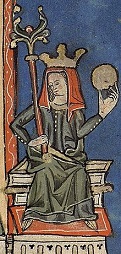

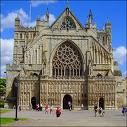
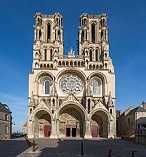
1112 The 220-year drought in Calif. (begun 892) ends; followed by a 140-year one in 1209 to 1350, causing water levels to drop 50+ ft. On Feb. 3 Count Ramon Berenguer III of Barcelona marries Douce of Rouergue/Gevaudan (1090-1127) in Arles, obtaining the county of Provence, putting the counts of Barcelona in conflict with the counts of Toulouse. On Apr. 25 after the commune's charter is revoked, the Easter Insurrection in Laon, France sees unpopular bishop (since 1106) Waldric (Gaudry) killed by a mob after being found hiding in a barrel in the crypt of Laon Cathedral, which is burned but not completely destroyed; he is replaced as bishop of Laon by Barthelemy (Barthélemy) de Jur (Joux) (Grandson) (1080-1158), who rebuilds the cathedral and rededicates it in 1114, after which an expansion program in 1160-1215, complete with a rose window and extensive use of white stone in the interior, becoming the 2nd most beautiful Gothic cathedral in France after Notre-Dame de Paris. In Apr. Baldwin I lifts the siege of Tyre. On Nov. 1 Count Henrique of Portugal dies, and his son Afonso (Alfonso) I Henriques (1100-85) succeeds him as count of Portugal, with his mother Countess Teresa of Leon (1080-1130) as regent. HRE Henry V is excommunicated by the Synod of Vienne for his extraction by force of the Privilegium from the pope, who repudiates it - that's the style? After he began sheltering Robert Curthose's young son William Clito in Aug. 1110, powerful, cruel but kind Robert de Belleme (1056-1131) is captured by Henry I while en route to his court in Bonneville as envoy of French king Louis VI to negotiate the release of Robert Curthose, imprisoning him for life on trumped-up charges, causing William and his protector Helias of Saint Saens, Count of Arques (-1128) to flee to the court of Count Baldwin VII of Flanders, who by 1118 puts together a coalition of Norman nobles to rebel from Henry I in the cause of Clito. Count Bertrand of Toulouse dies, and is succeeded as count of Toulouse, margrave of Provence, and duke of Narbonne by his son Alfonso I Jordan (1103-48) as Alfons I. The French-Norman War (begun 1109) ends. After banning Lothar of Supplinburg, HRE Henry V makes Count Otto the Rich of Ballenstedt (1070-1123) (father of Albert the Bear) duke of Saxony, but later changes his mind, strips him of his title, causing him to ally with Lothar and defeat Count Hoyer I of Mansfeld after Henry V names him duke of Saxony in 1115. Unpopular Breton duke (since 1084) Alan IV Fergant is forced to abdicate, and retires to a monastery in Redon, where he dies in 1119; his son Conan III the Fat of Cornwall (1093-1148) becomes duke of Brittany (until Sept. 17, 1148). The Margraviate of Baden on the E side of the Upper Rhine River in SW Germany is founded by Herman II (1060-1130) (until 1803). By this time the Aragonese have taken Huesca; meanwhile the Murabitun under ibn al-Hajj raid into Aragonese territory and reach the foothills of the Pyrenees. Louis VI grants special privileges to the Basilica of St. Denis, raising the status of Paris over Orleans as the Capetian capital. Architecture: The Gothic Exeter Cathedral in SW England is begun, and finished by 1400, with two massive 130-ft. towers, misericords (mercy seats), the longest uninterrupted vaulted ceiling in England, and an astronomical clock. Salzwedel Castle on the Jeetze River in the Altmark between Hamburg and Magdeburg is first mentioned; in 1233 it is first mentioned as a town in the Margraviate of Brandenburg; in 1263-1518 it joins the Hanseatic League; in 1701 it becomes part of the Kingdom of Prussia, followed in 1815 by the Prussian province of Saxony. Inventions: The Sauna is first used for health purposes in ? Births: Spanish king of Navarre (1134-50) (Roman Catholic) Garcia Ramirez VI of Navarre (d. 1150); son of Lord Ramiro Sanchez of Monzon and Cristina Rodriguez. Deaths: Georgian king (1072-89) George II (b. 1054). Portuguese count #1 (1093-112) Henrique (b. 1066). Norman First Crusade leader Tancred (b. 1075) on Dec. 5 (Dec. 12?) in Antioch (typhoid).
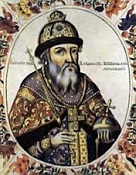
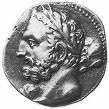
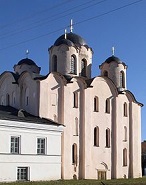
1113 On Feb. 15 the Order of the Knights Hospitalers of St. John in Jerusalem is confirmed by Pope Paschal II in his bull Pie Postulatio Voluntatis (The Most Pious Request). On Apr. 6 grand prince (since 1093) Sviatopolk II (b. 1050) dies, and his cousin Vladimir II Monomakh (1053-1125), son of Vsvelod I becomes grand duke of Kiev (until May 19, 1125). On June 28 after Damascus atabeg (1104-28) Toghtekin (-1128) gets tired of Christian incursions and invites him to invade the Kingdom of Jersualem, pillaging Galilee and sieging Tiberias without capturing it, the Damascenes under Mosul atabeg (1109-13) Mawdud ibn Altuntash (-1113) defeat the forces of Baldwin I of Jerusalem at the Battle of Al-Sannabra, after which Altuntash is assassinated while a guest of Toghtekin in Damascus. The Balearic Islands are conquered by Pisa. Suryavarman II (-1150) becomes king of Angkor; under him the Khmer Empire in modern-day Cambodia/Vietnam reaches its peak, and he conducts diplomatic relations with China. Henry I of England arranges the marriage of his future Scottish vassal king David I (b. 1080) to Matilda de Senlis (-1130), widow of the earl of Northampton and Huntingdon, and daughter of Earl Walther of Northumbria and William the Conqueror's niece Judith, making him earl of Huntingdon as well as prince of the Cumbrian region, and putting him in the top ranks of English nobility; he founds an abbey at Selkirk in his Scottish lands, and stocks it with monks from the austere order at Tiron near Chartres, France, becoming the first reformed order of monks in the British Isles, proving that David not only finally got religion but is a supporter of the reform movement? The Leges Henrici Primi (Laws of Henry I) are codified. The Assassin Sect is expelled from Damascus to Aleppo, where it receives official protection (until 1128). St. Bernard joins the Cistercian Order. Architecture: St. Nicholas Church in Novgorod, one of the first onion-domed churches is built by Prince Mstislav (Mstislav I the Great). Nonfiction: The Primary Chronicle (Tale of Past Years) is compiled in Kiev, covering the years 850-1110. Births: French count of Anjou, Touraine and Maine (1128-), and duke of Normandy (1144-) (redhead) Geoffrey V (Le Bel) (Martel) Plantagenet (d. 1151) on Aug. 24 in Anjou; founder of the Anjou Dynasty in England, and originator of the surname Plantagenet (Fr. "sprig of broom"); husband of Empress Maud (1102-67); father of Henry II (1133-89), Count Geoffrey VI of Anjou (1134-58), and Count William of Poitou (1136-64). Spanish count of Barcelona (1131-62) Ramon Berenguer (Raymond Berengar) IV (the Holy) (the Saint) (d. 1162); son of Ramon Berenguer III (1082-1131); brother of Berengar Raymond I (1115-44); husband of Petronilla of Aragon (1135-74); father of Alfonso II of Aragon (1152-96), Ramon Berenguer III (1158-81) of Provence, and Sancho of Provence (1161-1223). Deaths: Russian grand prince of Kiev (1093-1113) Sviatopolk II (b. 1050) on Apr. 16 in Vyshhorod.

1114 On Jan. 7 Henry I's legitimate daughter Empress Matilda (Maude) (1102-67) marries HRE Henry V in Germany, and is crowned in St. Peter's Basilica in Rome in 1116, becoming the imperial regent in Italy, while her hubby faces revolts in Saxony until 1121. In Apr. Ralph d'Escures (de Turbine) (-1122) becomes archbishop of Canterbury (until 1122); in Aug. Thurstan (Turstin) (-1140) becomes archbishop of York (until 1140); too bad, Ralph refuses to consecrate Thurstan because he won't acknowledge obedience to him, and travels to Rome to see Pope Paschal II about it, but the latter had left the city, and he returns to England, going on to refuse orders from Popes Gelasius II and Calixtus II to consecrate him, the matter being resolved by his poisoning, er, death in 1122; meanwhile Henry I takes Ralph's side, and refuses permission to Thurstan to go to Rome himself. In Nov. a severe earthquake in the principality of Antioch damages many castles, after which next spring while supervising their repair Prince Roger of Antioch hears rumors of a Turkish invasion led by Bursuq bin Bursuq, and sends spies to observe his movements while assembling a 2K-man army at the Jisr al-Hadid Bridge (in modern-day Demirkopru, Antakya) over the Orontes River 12 mi. NE of Antioch, advancing to Atharib 37 mi. E of Antioch and 22 mi. W of Aleppo, where he makes an alliance with Syrian Muslim princes Toghtekin of Damascus, Ilghazi of Mardin, and Lulu of Aleppo to keep the Turks out, then advance 50 mi. S to the walled town of Apamea (Afamiya) on the right bank of the Orontes River and send a messenger to King Baldwin I of Jerusalem requesting military assistance, after which Bursuq's army arrives and storms the Muslim town of Hama 19 mi. SE of Afamiya, then makes camp in Shaizar (Saijar) 7 mi. to the NW, ruled by the Bani Munqidh tribe. Matilda of Canosa (Tuscany) (b. 1046) dies, and bequeaths all of her lands to the papacy, while the German emperors continue to claim them as an imperial ducal fief, causing the "property of Matilda" to become a political football for the next cent.; many of the principal cities achieve independence, incl. Pisa, and Florence begins to be governed by boni homines (a group of feudal lords, judges and guildmen). English king Henry I campaigns in Wales, assisted by Alexander I of Scotland. English king Henry I's legitimate daughter by Queen Matilda (Maud) marries HRE Henry V in Germany, who faces revolts in Saxony until 1121. A major Murabitun expedition under ibn al-Hajj from Zaragoza and Ibn Aisha of Valencia raids Catalonia, ravaging Christian territory, but is ambushed on its return, and both Murabitun generals are KIA; meanwhile the Catalans under Count Ramon Berengar III take over the Balearic Islands upon the death of emir Mubashir ibn Sulayman of Mallorca. Architecture: Pontigny Abbey in the Yonne dept. of France in N Burgundy halfway between Paris and the Cote d'Or is founded by 12 Cistercian monks sent by Abbot Stephen Harding of Citeaux led by Hugh of Macon, friend and kinsman of Bernard of Clairvaux, becoming the 2nd of four great daughter houses of Citeaux Abbey, which goes on to establish 22 more Cistercian monasteries that later give refuge to St. Thomas Becket, Centerbury Archbishop Stephen Langton, and St. Edmund of Abingdon; it is closed in 1456, and burned down in 1569 by Huguenots; the monks go on to plant vines along the Serein River, producing dry white wine known as Chablis wine, known for its gunflinty aftertaste ("goût de pierre à fusil"). Births: Scottish-English prince Henry of Scotland, 3rd Earl of Northumberland (d. 1152); son of David I of Scotland (1083-1153) and Maud of Northumbria (1074-1130); named in honor of Henry I of England. German Cistercian bishop of Freising (1138-58) and historian Otto of Freising (d. 1158) (b. 1111?0 in Kosterneuberg; 5th son of St. Leopold III of Austria (1073-1136) and Agnes, daughter of HRE Henry IV; half-brother of Conrad III; uncle of HRE Frederick I Barbarossa; of the House of Hohenstaufen; educated at the U. of Paris, after which he enters the Cistercian Order of Morimond. Indian mathematician-astronomer Bhaskara II (d. 1185) near Bijiada Bida, Karnata; Deshastha Brahmin parents. Flemish scholastic theologian-philosopher Alain of Lille (Alanus ab Insulis) (d. 1203) in Lille (Flanders); given the title "universal doctor" by his hometown, then moves to Montpellier and eventually enters a Cistercian monastery.


1115 On July 24 Countess Matilda of Canossa (b. 1046) dies, leaving her alloidal (free farm) territory to the pope, and after Henry V promises some of the cities in her territory that he wouldn't appoint a successor after he desposed her, N Italy enters a new era of city-states; Florence becomes a free repub. On Sept. 14 after King Baldwin of Jerusalem leads an army of 500 knights and 1K infantry along with 5K Muslim troops and hooks up with Count Pons of Tripoli and his 200 knights and 2K infantry, forbidding Roger of Salerno from engaging the enemy before he arrives, burning the town of Shaizar as punishment for allying with the Seljuks, causing the Seljuk army led by Bursuq bin Burquq of Hamadan to retreat and the Crusader army to disperse, after which Bursuq turns around and captures the Christian-held town of Kafr Tab (Kafartab) (Capharda) S of Shaizar near Afamiya and heads toward Zerdana (Zardana) (Zirdand) 37 mi. SE of Antioch, Roger reassembles his army (with reinforcements from Count Baldwin of Edessa) and camps at Rugia Castle by a bridge over the Orontes River near Jisr al-Shugour (ash-Shugur) 25 mi. S of Antioch, surprising the Seljuks while watering at the First Battle of Sarmin (Tell Danith), and winning a decisive V. Venice and Hungary go to war over Dalmatia, beginning a long struggle (end 1420). After persuading Louis VI to break his peace with Henry I and support William Clito, Count William II of Nevers is imprisoned by Count Theobald of Blois. Seljuk sultan Masud III dies, and his son Shirzad (-1116) becomes sultan of the Ghaznavid Empire (until 1116), causing his younger brother Arslan to begin vying for the throne. New Murabitun gov. of Zaragoza Abu Bakr ibn Ibrahim ibn Tifilwit sieges Barcelona for 20 days, then withdraws when Count Ramon Berengar III returns from Mallorca. The Murabitun fleet takes the Balearic Islands. Murabitun gen. and gov. of Granada Mazdali ibn Tilankan is KIA along with his son Muhammad, gov. of Cordoba in battle this year against the Castilians. The Wanyan clan of the Jurchen (ancestors of the Manchus) found the Jin (Jinn) (Jurchen) Dynasty in Manchuria in NE China (ends 1234). Count Otto II of Scheyern (Scheuern) (Scheirn) (Skyrun), whose family ruled a part of Bavaria since Charlemagne dies, and his wife Haziga moves into the new Wittelsbach Castle in Wittelsbach, changing the family name and founding the Wittelsbach Dynasty (ends 1918), which enters the radar screen in 1180 when HRE Frederick I Barbarossa deposes Henry the Lion and makes Otto II's descendant Otto III into duke Otto I of Bavaria. Architecture: Clairvaux Abbey in France is founded, with St. Bernard of Clairvaux (1090-1153) as abbot #1 (until 1153); 350 Cistercian houses are eventually founded. St. Albans Abbey in England (begun 1078) is completed. Scone Abbey (pr. SKOON) on the Tay River 2 mi. E of Perth is founded by Alexander I for the coronation of Scottish kings (until 1651). Augustinian Norton Priority is established in Runcorn, England on the S bank of the Mersey River by William fitz Nigel (-1134). Births: Norwegian king (1130-9) Magnus IV Sigurdsson (the Blind) (d. 1139); son of Sigurd Jorsalfar (1090-1130); half-brother of Harald IV (1003-36). Spanish count of Provence (1131-44) Berengar Raymond (Berenguer Ramon) I (d. 1144); son of Raymond Berengar III (1082-1131); brother of Raymond Berengar IV (1113-62). French prince of Antioch (1136-49) Raymond of Poitiers (d. 1149); youngest son of Duke William IX of Aquitaine and Countess Philippa of Toulouse; husband (1136-) of Constance of Antioch (1128-63). English soldier Earl Roger (the Good) of Clare (d. 1173) in Tunbridge Castle, Kent; son of Earl Richard Fitz Gilbert de Clare (1084-1136) and Alice de Mechines; father of Richard de Clare (1162-1218). English (Norman) humanistic philosopher-historian (bishop of Chartres from 1176) John of Salisbury (d. 1180) in Salisbury; pupil of Peter Abelard (1079-1142) and Robert of Melun. Deaths: Italian countess Matilda of Canossa (b. 1046) on July 24 in Bondeno di Rocore (gout). Seljuk sultan Masud III.
1116 On Feb. 3 Kalman I (b. 1070) dies, and his son (by 2nd wife Preslava of Russia) Stephen II (1101-31) becomes Arpad king of Hungary (until 1131), and the dynastic struggle hungrily resumes. In the spring a famine rocks Leinster and Munster, Ireland. HRE Henry V goes to Italy and takes the lands of deceased Matilda of Canossa (Tuscany). Rukn al-Din Masud (Ma'sud) (Mesud) I (-1156) defeats Malik Shah and captures Konya, becoming sultan of the Seljuks of Rum (until 1156); after advancing to the Bosphorus, the Byzantines under Alexius I defeat them next year at the Battle of Philomelion (Philomelion), causing them to sue for peace. Louis VI the Fat of France begins the Second French-Norman War to consolidate his Norman frontier (ends 1120), and Henry I of England brings in his son-in-law HRE Henry V. Shirzad is assassinated by his younger brother Arslan-Shah (-1118), who becomes sultan of the Ghaznavid Empire (until 1117), blinding or imprisoning all his brothers except for Bahram, who is defeated in the Battle of Tiginabad, and appeals to Seljuk sultan Ahmad Sanjar, whose sister Gawhar Khatun is their mother, but is pissed-off at his conduct toward his brothers, causing Sanjar to order Arslan to release his brothers, and when he refuses, marches against him with an army of 30K cavalry and 50K infantry. About this year Bittideva Vishnuvardhana (-1152), a viceroy who was converted from Jainism to Vishnu by Ramanuja as a refugee from Saiva persecution by the Cholas, conquers the Chola territories of Gangavada, becoming king of his own Hoysala Kingdom in modern-day Karnataka, S India (ends 1343) based in Belur and Halebid, comprising Mysore, Salem, Coimbatore, Bellary, and Dharwar, going on to build ornate Hindu temples. Henry I of England calls the Council of Salisbury (the first English Parliament?), and orders Archbishop Thuristan to submit to Archbishop of Ralph of York, causing Thuristan to resign, although it never becomes effective. Architecture: Prince David of Cumbria (later David I of Scotland) rebuilds the Glasgow Church for the episcopal see, and goes to Tiron, France to visit abbot St. Bernard in person, but arrives after he dies. Births: French count of Tripoli (1137-52) Raymond II (d. 1152); son of Count Pons of Tripoli (1098-1137); husband (1137-) of Hodierna of Jerusalem (1110-64); father of Raymond III (1140-87) and Melisende of Tripoli. Irish last high king (1166-98) Rory (Roderick) (Gael. "high longing") O'Connor (Ruaidri Ua Conchobair) (d. 1198); one of 20+ sons of Turlough Mor O'Connor (1088-1156). Deaths: Spanish ruler of Valencia (1099-1102) Jimena Diaz (b. 1046). Hungarian king (1095-1116) Kalman (b. 1070) on Feb. 3.

1117 In Jan. the Seljuks under Khorasan ruler Ahmad Sanjar defeat the Ghaznavids under Sultan Arslan-Shah at the Battle of Ghazni in Shahrabad near Ghazni, after which Arslan flees to India while Ghazna is pillaged for 40 days, and on Feb. 25 Bahram of Ghazna (1084-1157) becomes sultan of the Ghaznavid Empire as a vassal of the Seljuks; as soon as Sanjar leaves the area, Arslan returns with an army supported by the Bu Halim Shaybani family of Khorasan, causing Sanjar to return and defeat him again next year, and chase him down and kill him. In Mar. Baldwin I of Jerusalem is "obliged" to negotiate a constitution for the Knights Templar (Order of the Temple) at Saint Leonard in Acre, admitting that he "owed his throne to Sion"; it is not made public until he dies next year. The Seljuks make peace with the Byzantines in Akroinon, abandoning the entire coastal area of Anatolia, plus all of Anatolia W of a line from Sinope through Ankara (Ancyra) and Philomelion. Archbishop Maurice (Maritius) Burdinus (-1137) of Braga (future Antipope Gregory VIII) crowns Henry V at Rome with the imperial crown, and is excommunicated for it, after which the pope's ally Pier Leoni retakes Rome for him, and ends up getting sieged in his tower by Ptolemy I of Tusculum. The Murabitun under Emir Ali ibn Yusuf ibn Tashfin take Coimbra, but abandon the city after a few days. Ghazi ibn-Artuk founds the Oghuz Turkic Artuqid (Artukid) (Ortoqid) Dynasty in Aleppo, Syria (ends 1128). Continental scholars lecture at Oxford near the palace of scholarly Henry I Beauclerc. The entire problem with Christian morality and practical morality in a nutshell? French #1 philosopher Peter Abelard (1079-1142) (Peter Everhard?) falls in love with his hot 16-y.-o. female student Heloise (1101-64), niece of Canon Fulbert of Notre Dame in Paris, writing the soundbyte: "[We] were united, first under one roof, then in heart; and so with our lessons as a pretext we abandoned ourselves entirely to love... My hands strayed oftener to her bosom than to the pages; love drew our eyes to look on each other more than reading kept them on our texts"; after her uncle Fulbert finds out and tries to separate them, Abelard packs her off to his sister's house in Brittany, where she gives birth to their love child; they are then secretly married in Paris in front of Uncle Fulbert (axe in hand?); Abelard then publicly denies the marriage to keep his academic and clerical career going and bring home the bacon, but goes too far and gets Heloise admitted to the convent of Argenteuil as a cover story, where she rises to prioress; too bad, this makes Uncle Fulbert think that Abelard's trying to dump her as used goods, causing him to get his relatives together and castrate him, and he retires in shame to a monastic retreat at the Abbey of St. Denis in Paris to lick his wounds. Deaths: English Norman baron Gilbert fitz Richard de Clare (b. 1065). French bimbo Bertrada of Monfort (b. 1070) on Feb. 14 in Fontrevaud Abbey in Anjou.


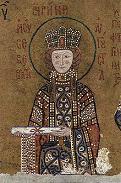

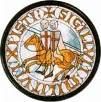

1118 An earthquake is recorded in the Alps. The original Band on the Run? On Jan. 21 Pope (since 1099) Paschal II dies, and on Jan. 24 Bishop-Cardinal John of Gaeta is elected Pope (#160) Gelasius II (-1119), but since HRE Henry V didn't give his consent, Cencio (Cencius) II Frangipane barges into the College of Cardinals in Santa Maria in Pallara sul Palatino at night and grabs him and imprisons him in his nearby castle, until rich did-I-say-Jewish-convert's-son Pier Leoni (-1128), along with papal gonfalonier Stephen the Norman bribe, er, get him out (with the help of popular resentment), after which he flees to Gaeta, where he is crowned, then to the Normans; meanwhile on Mar. 10 Henry V places Aquitaine-born Mauritius Burdinus (Maurice Bourdin) on the papal throne as Antipope Gregory VIII (-1137) (until Apr. 22, 1121), and Gelasius II excommunicates both Gregory VIII and Henry V, then moves to Cluny, France. On Apr. 2 king (since Dec. 25, 1100) Baldwin I (b. 1058) dies in Egypt after eating some bad fish, and on Apr. 14 his nephew (cousin?) Baldwin II of Jerusalem (1060-1131) (Baldwin of Bourcq) (count of Edessa since 1100) becomes Latin king #2 of Jerusalem (until Aug. 21, 1131); after 300+ pilgrims are ambushed by marauding Saracens between the port city of Jaffa and Jerusalem, and other bands appear outside the walls of Jerusalem, presto-digito heah cum de judge, nine pious Christian knights from N France led by Hugues (Hugh) de Payens (Pajens) (Payns) (1070-1136) and Godfrey (Godefroi) (Gaufred) (Geoffrey) de St. Omer (huge pay-ins and gobs of free saintly lucre?) suddenly arrive at Baldwin II's palace and offer their services, claiming to have taken the vows of poverty, chastity, and obedience, plus another to protect the pilgrims on their journeys between the holy city and the coast; Baldwin bites, and the religious-military order of the Knights Templar (Order of the Poor Knights/Fellow-Soldiers of Christ and the Temple of Solomon) is founded to protect pilgrim routes in the Holy Land by Baldwin II, who grants them a HQ in Jerusalem in the E part of his palace, in the Al-Aqsa Mosque, which stands on the Temple Mount (site of the Jewish Temple of Solomon), under which the Qumran Copper Scroll (discovered in the 20th cent.) claims huge quantities of gold and valuables are buried to keep it from the Romans, who razed it in 70 C.E.; they are also given attached stables big enough to accommodate 2K horses; their seal is two men seated on the same horse, to signify their vow of sodomy, er, poverty; they are a front for the mysterious Order (Priory) of Sion, AKA Order de la Rose-Croix Veritas (Order of the True Red Cross) (Rosicrucians)?; the secular overlord is Count Hugues of Champagne (1074-1125), with spiritual leadership given by French abbot-monk (St.) Bernard of Clairvaux (1090-1153) (#1 spiritual figure in the West, a pope-maker and preventer of Jewish pogroms), who draws up their rule (sanctioned by the Council of Troyes in 1128), based on the Cistercian Rule, with the vows of poverty, chastity, and obedience, and the rule of the canons regular; the order consists of knights (allowed to wear the white mantle with large red Latin cross on the back), chaplains, and men-at-arms (servants); admission is limited to those of noble blood; org. is by commanderies, under a grandmaster; too bad, these monkish Magnificent Nine spend their first nine years, not protecting pilgrims, but locked up inside their HQ, excavating through solid rock in search of the Holy of Holies of the Jewish Second Temple, giving later conspiracy theorists plenty of dream pillow material about how they dug up some magnificent treasure or great secret they used to blackmail the papacy with, maybe some secret documents, or the Shroud of Christ - or the formula for Viagra? So fluffy, so soft, so used to being used? On May 22-Dec. 18 the Aragonese under Alfonso I the Battler siege Zaragoza (Saragossa) on the Ebro River in NE Spain while taking most of the C lands of the Ebro Valley; as a result of a plea for help on Dec. 3, the Murabitun gov. of Valencia sends a relief force, but it is too small to help; only Lerida remains in Muslim hands because it is tributary to Barcelona; Alfonso I makes Zaragoza his capital, turning the Moorish citadel of Aljaferia Palace (Castillo de la Aljaferia) into his royal residence. On Aug. 6 caliph (since Feb. 1094) Al-Mustazhir (b. 1078) dies, and and his son Al-Mustarshid Billah (1092-1135) succeeds him as Abbassid caliph (until Aug. 29, 1135) - where's Pike and Mike? On Aug. 15 Byzantine emperor (since Apr. 1, 1081) Alexius I Comnenus (b. 1048) dies after executing Bogomils sect leader Basil the Physician (-1118) for heresy, and his short ugly swarthy (Moorish-looking) but extremely pious son John II Comnenus (Kalojoannes) (the Good) (the Beautiful) (1087-1143) becomes Roman Byzantine emperor #154 (until Apr. 9, 1143), with his wife (since 1104) Irene (Piroska) of Hungary (1088-1134) as empress, proving of high moral integrity and ability, getting compared to Roman emperor Marcus Aurelius, concentrating on taking back the old frontier on the Euphrates and the Latin states of Syria; too bad he's less than top drawer as a military leader?; his ambitious bred-to-the-purple brain woman sister Anna Comnena (Komnene) (1083-1153), who expected to have her statesman-historian hubby (since 1097) Gen. Nikephoros Bryennios (Nicephorus Bryennius) (1062-1137) take the throne plots to have her brother John II assassinated at Alexius I's funeral, but it falls through, and after her hubby chickens-out ("Nature had mistaken the two sexes and had endowed Bryennios with the soul of a woman" - Choniates), she is stifled; after hubby's death she is retired to the Convent of Kecharitomene in Constantinople, turning into a historian herself (first female historian?), writing the 15-vol. Alexiad, a panegyric on her family and father's reign which becomes a major historical source for the period, explaining why she hates the Crusaders' guts. Sultan (since 1105) Muhammad I Tapar dies, and his son Muhammad (Mahmud) II (1105-1131) becomes Seljuk sultan (until 1131), imprisoning emir of Yazd (since 1095) Garshasp II (-1141), in Jibal, but he escapes and gets his sister to talk her hubby Khorasan sultan (since 1097) Ahmad Sanjar (1085-1157) to send a 6-king army thatdefeats Mahud in Saveh, and Ahmad Sanjar becomes the last sultan of the Seljuk Empire (until 1157). After Muirchertach Ua Briain becomes seriously ill in 1114 and retires, causing his kingdom to descend into strife, and Munster king (since 1114) Diarmaid (Diarmait) Ua Briain (1060-1118) dies in Cork, causing Connacht king (since 1106) Toirdhealbhach Ua Conchobhair (Tairrdelbach Ua Conchobair) (Turlough Mór O'Connor) (O'Conor) (1088-1156) to invade Munster and enforce the peace, the Treaty of Glanmire creates the Kingdom of Desmond in S Munster, with Tadhg Mac Carthaig as king #1, splitting it from Thomond (N Munster), which is given to the sons of Diarmaid Ua Briain incl. Conchobar Ua Briain (-1142), who becomes king of Demond in 1138 and king of Dublin in 1141. Architecture: Pisa Cathedral (begun 1063) is completed. Births: Births: Syrian Zengid atabeg of Aleppo (1146-74) and Damascus (1156-77) (Sunni Muslim) Nureddin (Nur ad-Din) (Arab. "Light of the Faith"") (Nur ad-Din Abu al-Qasim Ma?mud ibn ?Imad ad-Din Zengi) (d. 1174); 2nd son of Imad ad-Din Zengi (1085-1146); brother of Saif ad-Din Ghazi I (-1149); father of As-Salih Ismail al-Malik (1163-1181). Byzantine emperor (1143-80) Manuel I Komnenos (Comnenus) (the Great) (d. 1180) on Nov. 28 in ?; 4th son of John II Komnenos and Irene of Hungary; maternal grandson of St. Ladislaus. French duke of Burgundy (1143-62) Eudes (Odo) II (d. 1162); eldest son of Hugh II (1084-1143) and Matilda de Turenne. English "murdered in the cathedral" 6'2" martyred Canterbury archbishop (1162-70) (St.) Thomas Becket of Canterbury (London) (Thomas à Becket) (d. 1170) in Cheapside, London; son of mercer Gilbert Becket and Matilda "Roheise" of Mondeville (near Caen); later writers spuriously call him "Thomas à Becket"; first of a chain of Roman Catholic theologian-saints incl. Becket (12th cent. England), Thomas Aquinas (13th cent. Italy), Thomas a Kempis (14th cent. Germany), and Thomas More (16th cent. England). Iraqi Sufi leader Ahmad al-Rifa'i (d. 1182) in Wasit; descendant of Muhammad on his father's side, and Husayn ibn Ali on his mother's side; founder of the Rifa'iyya Sufi Order, which practices self-mortification. Byzantine emperor (1153-85) Andronicus I Comnenus (Komnenos) (d. 1185); son of Prince Isaac Comnenus; grandson of Alexius I Comnenus. Deaths: Byzantine emperor (1081-1118) Alexius I Comnenus (b. 1048). Georgian-born Byzantine empress (1071-81) Maria of Alana (b. 1053). French king of Jerusalem (1000-18) Baldwin I (b. 1058) on Apr. 2 in Al-Arish, Egypt (dies after eating bad fish?). Arab Abassid #28 caliph (1094-1118) Al-Mustazhir (b. 1078) on Aug. 6. Scottish-born English queen consort (1100-18) Matilda (Edith) (b. 1081) on May 1 in Westminster Palace; her adoring subjects petition for sainthood for her, but it never happens. English monk Florence of Worcester (b. ?); leaves Chronicon ex Chronicis, the first English attempt at a universal chronicle from Creation to the year 1140, based on the work of Irish monk Marianus Scotus (1028-82); other writers go on to carry it down to the year 1295; the real author is John of Worcester (-1140)?
1119 On Jan. 29 Pope (since 1118) Gelasius II dies in the Abbey of Cluny, and on Feb. 1 cardinal Guido of Burgundy (Guy de Vienne), archbishop of Vienne (since 1088), 4th son of Count William I of Burgundy (1057-87) (one of the wealthiest men in Europe) is elected Pope (#161) Calixtus (Callistus) II (1065-1124), issuing the bull Sicut Judaesis, condemning violence against Jews (reaffirmed by 20+ of his successors?); after the new pope sends an embassy from Vienne to Strasbourg, HRE Henry V withdraws his support for Antipope Gregory VIII, but agrees to meets with the pope in Mousson near Rheims, where the Council of Rheims, attended by Louis VI of France meets in Oct; too bad, Henry V arrives with a 30K-man army, pissing-off popey and causing him to excommunicate both Henry V and Gregory VIII on Oct. 30; after trying unsuccessfully to reconcile brothers Henry I of England and Duke Robert II of Normandy, popey heads for Italy to oust da evil antipope - so I should have realized a lot of things before, if this is love give me more? On June 28 after allying with Joscelin I of Edessa to put military pressure on Aleppo, causing it to ally with Turkmen Artukid (Ortoqid) emir of Mardun (1107-22) Ilghazi (Najm ad-Din Ilghazi ibn Artuq (-1122) last year, who invades, and refusing to wait for reinforcements from Jerusalem and Tripoli, leaving him with a force fo 700 knights incl. 500 Armenian cavalry, plus 3K infanty, Roger of Salerno, Prince of Antioch meets Il-Ghazi at the Battle of Ager Sanguinis (Field of Blood) (Sarmada) (Balat) near Sarmada, and Roger's army is trapped and destroyed in a place Latins later call the Field of Blood; Roger is KIA, after which the Muslims scatter to plunder the surrounding area and fail to attack Antioch, after which the Latins Crusaders led by Baldwin II defeat Il-Ghazi at the Second Battle of Tell Danith (Sarmin) (Hab) on Aug. 14; tactically the battle is indecisive, but strategically the battle ends Il-Ghazi's offensive in N Syria; Baldwin becomes regent of the principality of Edessa. In June Henry I's son and heir William Adelin (Aetheling) (1103-1120 marries Matilda (Mahaut) of Anjou (1106-54), eldest daughter of Count Fulk V of Anjou in an effort to bring Anjou, Normandy's big rival into allegiance; too bad, a big rock messes things up 18 mo. later on the trip back to England - from broken dreams to beautiful results, you're how long from beautiful hair? On Aug. 20 Henry I of England and his son William Aethling defeat French king Louis VI the Fat at the Battle of Bremule, and burn Evreux. In Oct. Pope Calixtus II consecrates York archbishop Thurstan, pissing-off Henry I, who refuses to allow him to return to England until 1121 after he serves him in Normandy. Boleslav III of Poland begins the incorporation of Pomerania (ends 1123). Charles the Good (1084-1127) becomes count of Flanders, beating out illegimate William of Ypres. Architecture: The Masjid Jami (Friday Mosque), in Yezd (Yazd), becoing known for the tallest minarets in Iran. The La Seo Cathedral of the Savior in Saragossa, Spain is begun (finished 1520), and consecrrated in 1318. The aedicula of the Holy Sepulchre in Jerusalem is rebuilt by Bolognese sculptor Renghiera Renghieri. Inventions: The Chinese first use the compass for navigation. Nonfiction: Zhu Yu, Pingzhou Table Talks. Births: Japanese emperor #75 (1123-42) Sutoku (Ahihito) (d. 1164) on July 7; eldest son of Toba (1103-56) or Shirikawa (1053-1129).




1120 On Jan. 16 the Council of Nablus, convened by Jerusalem King Baldwin II and Patriach Warmund establishes 25 canons along with the limits of secular and religious authority, beoming the first written laws of the Latin Kingdom of Jerusalem; Hugues de Payens obtains permission from Baldwin II and Warmund to found the Knights Templar. On June 17 the Aragonese under king (since Sept. 28, 1104) Alfonso I the Battler (Warrior) (1073-1134) adided by Duke William IX the Troubadour of Aquitaine (1071-1127) decisively defeat a Murabitun army with Andalusian volunteers led by Ibrahim ibn Yusuf at the Battle of Cutanda near Calamocha (Teruel), after which they capture the fortified towns of Calatayud and Daroca. On Sept. 24 Welf II/V (b. 1072) dies without heirs, leaving his brother (2nd son of Welf I/IV and Judith of Flanders) Henry IX the Black (-1126) as duke of Bavaria (until Dec. 13, 1126), who marries Wulfhild, daughter of Duke Magnus of Saxony, acquiring part of the Billung lands in Saxony. Peace is declared between Henry I of England and Louis VI the Fat of France, ending the Second French-Norman War (begun 1116); too bad, on Nov. 25 Henry I's only legitimate son and heir Prince William Adelin (Aetheling) (b. 1103) (son of Edith-Matilda, a descendant of King Alfred, causing him to be part Norman and part Saxon, boding well for the Anglo-Saxon dogs if he became king?), along with a large party of nobles returning from his marriage the previous year drown in the White Ship after it hits a rock in the English Channel off Barfleur at night on the way back from France and sinks; William initially survives, then drowns while attempting to rescue Countess Matilda of Perche, his half-sister; Stephen of Blois, who later usurps the English throne disembarks just before the ship sails due to a bout of diarrhea (a conspiracy?); Henry never smiles again; William's widow Isabella d'Anjou takes vows and becomes abbess #2 of Fontrevault (Fontrevaud) Abbey in the Loire Valley in Anjou (constructed in 1110-19 by Robert d'Abrissel), starting a string of rich and/or noble abbesses for this abbey, which coincidentally has both nuns and monks, and is where Henry II and Eleanor of Aquitaine are buried - there's no limit with a five-G buy? Roderic O'Connor dies (1118), and his youngest son, Connacht king (1106-56) Toirdhealbhach Ua Conchobhair (Tairrdelbach Ua Conchobair) (Turlough Mór O'Connor) (O'Conor) (1088-1156) becomes high king of Ireland (until 1156), becoming the greatest Irish warrior king of the cent. In the winter (1120-1) Boleslav III of Pomerania sieges and conquers the Pomeranian capital city of Stettin, massacring 18K and transporting another 8K (whole familes) to Poland, becoming ruler of depopulated Pomerania and finally gaining access to the Baltic Sea (until 1123), stinking himself up more by trying to Christianize the remnant (fine example he set?), finding no Polish bishops willing to take him up and having to import Spanish bishop Bernard, who soon flees to Bamberg, getting Otto of Bambert to take his place in 1124. The Muslim rulers of Damascus send the Arab Maan (Ma'an) Tribe from Hadramaut, Yemen to take on the Crusaders in the seaport of Beirut and keep them from moving inland; they end up settling in the SW slopes of the Lebanon Mts. and converting to the Druze Muslim sect. Song Jiang leads the rebellion of the 108 Liang Shan Heroes. The hospital-running Hospitalers in the Holy Land become militarized about this time - fill the Saracens' hospitals? The Byzantines under John II Comnenus begin a campaign against the Seljuks in Anatolia (ends 1121). Vladislaus I deposes Borivoj II and endows him with Znojmo. The White Canon Norbertines (Premonstratensians) Roman Catholic religious order of canons regular is founded in Premontre (near Laon), France by (St.) Norbert (Gennep) of Xanten (1080-1134), who follows the Rule of St. Augustine but with greater austerity based on his connections with St. Bernard of Clairvaux. In this decade European writers begin using common languages instead of Old Man Latin. In this decade Scholastic Philosophy reaches its full development. Freiburg (Ger. "free town") on the Dreisam River at the foot of the Schlossberg in SW Germany situated at the entrance to the Black Forest is founded by HRE Konrad and Duke Bertold III of Zahringen, becoming the seat of an archiepiscopal seat and a univ., then growing into a major commercial center, the sunniest and warmest town in Germany. Inventions: About this time the Chinese invent playing cards - you lose, they kick you in the butt, and then what? Nonfiction: Lambert of St. Bertin (1060-1125), Historia Comitum Normannorum, Comitum Flandriae. Births: Swedish king (1155-60) Eric IX (the Lawgiver) (the Saint) (d. 1160); feast day: May 18. French Capetian king (1137-80) Louis VII (the Young) (Le Jeune) (d. 1180); 2nd son of Louis VI the Fat (1081-1137) and Adelaide of Maurienne (Savoy) (1092-1154); father of Philip II Augustus (1165-1223). English philosopher-historian-diplomat and bishop of Chartres (1176-80) John of Salisbury (Johannes Parvus) (John the Little) (d. 1180) in Salisbury; of Anglo-Saxon descent; student of Peter Abelard at the U. of Paris. Deaths: English prince William of Adelin (Atheling) (b. 1103) on Nov. 25 off Barfleur, Normandy (drowned).
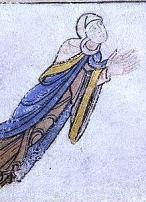

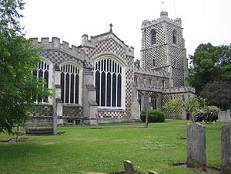
1121 On Jan. 24 Henry I of England marries his 2nd wife Adeliza (Adelicia) (Adela) (Aleidis) of Louvain (1103-51), "the fair maiden of Brabant", daughter of Count Godfrey I of Louvain. In Apr. Pope Calixtus II returns to Rome with an imperial-Italian army, and captures and deposes Antipope Gregory VIII, imprisoning him in the Fortress of Sutri, then transferring him from prison to prison until he dies near Salerno; he sends three cardinals, who meet with HRE Henry V in Oct. in Wurzburg to work out a truce; meanwhile in the spring Pope Calixtus II destroys the Fortress of Frangipani in Rome and prohibits its reconstruction - arrest a pope, will ya? On Aug. 12 the Battle of Didgori 25 mi. SW of Tbilisi sees 55.6K Georgians under David IV defeat 300K Seljuks under Najm ad-Din Ilghazi ibn Artuq (-1122), and kick them out of the Caucasus, establishing Tbilisi as the Georgian capital, bringing a golden age to Georgia. The Byzantines recover SW Anatolia from the Seljuks, but have to break off and take on invading Patzinaks in the Balkans. The Aragonese capture Calatayud; the Cordobans revolt against the Murabitun, and drive the gov. and his troops from the city; emir Ali ibn Yusuf ibn Tashfin leads an army from Africa that suppresses the revolt, sieges the city, and forces the Cordobans to surrender. The original K-Mart sucks? Moroccan Arab Abu Abdullah Muhammad ibn Tumart (1078-1130) leads a Muslim Unitarian religious-based revolt against the Almoravids in N Africa, rejecting their Maliki school of law and realistic anthropomorphism and calling for a purification of the faith under the doctrine of the unity of God, and is proclaimed Al Mahdi ("the guided"); after fleeing to the mountains of Morroco, he converts Iranian Sufi Hintata tribal confederation chief Abu Hafs Umar al-Suhrawardi (1144-1234), and begins a victory tour, founding the Berber Almohad (al-Muwahhidun) (Benemerine) Dynasty in Morocco (ends 1236), which goes on to absorb Algeria (1151), Tunis and Tripolitania (1160), and Al-Andalus (Spain) (1172). The Council of Soissons condemns Peter Neverhard, er, Abelard's Treatise on the Trinity, makes him burn it, and orders him jailed; after his release he returns to the Abbey of St. Denis in Paris, but the pissed-off monks force him to leave, and he moves to Nogent-sur-Seine, where he builds the chapel-oratory called Paraclete - they cleted his pair already? Alexander I of Scotland imports the first Arabian stallion and presents it to the Church of St. Andrews in Fife; meanwhile Henry I imports Arabian stallions to improve pony-sized Irish Hobby (Hoblin) horses. Architecture: Reading Abbey in Berkshire, England is founded by Henry I. Robert, 1st Earl of Gloucester builds St. Mary's Church in Luton, Bedfordshire, England. The 3rd and largest church at Cluny Abbey in France is completed. Nonfiction: Anon., The Peterborough Chronicle; first written example of spoken English rather than the pure lit. language Standard West Saxon. Births: Polish king (high duke) (1146-73) Boleslaw (Boleslav) (Boleslaus) IV (the Curly) (d. 1173) (b. 1125?); son of Boleslav III the Wry-Mouthed (1085-1138) and 2nd wife Salome von Berg-Schelklingen (1093-1144) (daughter of Duke Henry of Berg). Deaths: French nominalist scholar Roscellinus of Vannes (b. ?); teacher of Peter Abelard (-1142).
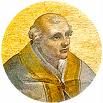

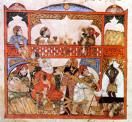
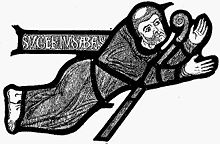


1122 You're still the one one, two two? On Sept. 23 HRE (1106-25) Henry V (1081-1125) and Pope (since 1119) Calixtus II (1064-1124) sign the Concordat of Worms, forfeiting any right to invest bishops with spiritual authority (ring and crozier), ending the Investiture Dispute (begun 1075), but retaining controlling influence in the election of German bishops, who retain political power, settling the long-standing (since 962) ultimate male investiture power struggle between the Roman Catholic Church and the HRE, and becoming Pope Calixtus II's big claim to fame; Henry IV is restored to the Church; from now on being HRE backfires on German kings as they neglect their German duties for their imperial ambitions, keeping Germany from centralizing and letting it slide into a multiplicity of one-horse-town states; too bad, the church vs. state investiture controversy coopts the German intelligentsia, who neglect the study of philosophy, law, lit. etc., causing them to fall behind W Europe until the 14th cent. On Oct. 20 after suffering a stroke on July 11, 1119, Ralph d'Escures dies, and the see remains vacant until July 22, 1123. The Byzantines under emperor John II Comnenus exterminate the Patzinak Turks in the Balkans at the Battle of Beroia (Boruy) (Eski Zagra), ending their threat. Henry I of England creates the earldom of Gloucester for his bastard son Robert Fitzroy "Rufus" of Caen (1090-1147), who becomes the first earl of Gloucester. After getting in trouble in Chartres for his Platonic realism, French scholastic philosopher William of Conches (1090-1155), known for studying secular classics incl. Muslim works translated by Constantine the Africa, and for encouraging empirical science becomes the tutor of Henry Plantagenet. Louis VI the Fat's tutor (of peasant stock) Suger (1081-1151) becomes abbot of St. Denis, developing into a statesman in the curia regis, influencing Louis VI and Louis VII. The Byzantines refuse to renew their trading privileges with the Venetians, causing Venice to declare war (ends 1126). The Aragonese take Daroca S of Zaragoza. Architecture: Romanesque Piacenza Cathedral in Emilia-Romagna, N Italy is begun (finished 1233). Science: About this year Greek Asia Minor slave Abu'l Fath al-Khuzini pub. Kitab Mizan al-Hikmah (Book of the Balance of Wisdom), summarizing Muslim knowledge of physics, incl. the lever, specific gravity, and gen. gravity as a universal force drawing all things toward the center of the Earth. Births: German Hohenstaufen duke of Swabia (1147-52), German king (1152-90), Italian king (1155-90), HRE (1155-90), and king of Burgundy (1178-90) Frederick (Ger. "peaceful ruler") I Barbarossa (Ger. "red beard") (d. 1190); son of Hohenstaufen Duke Frederick II of Swabia and Judith of Bavaria (-1131), daughter of Welf Duke Henry IX the Black of Bavaria (-1126); nephew of Conrad III (1093-1152); unites the rival houses of Hohenstaufen and Welf. French queen consort (1137-52) and English queen consort (1154-89) Eleanor (Alienor) (Aliénor) of Aquitaine (d. 1204) in Belin Castle, Aquitaine; daughter of redhaired Duke William X of Aquitaine the Saint (1099-1137) and Duchess Aenor de Chatelleraut (1103-30); "The first woman in the history of civilized Europe to have the experience of choosing her husband, leading an army, going to war, and ruling over countries for considerable periods of time" (Thomas Cahill). Deaths: English archbishop (of Canterbury) Ralph d'Escures (b. ?) on Oct. 20. Persian poet-mathematician-scientist Omar Khayyam (b. 1048) on Dec. 4; leaves Revision of the Old Persian Solar Calendar, Works on Algebra (quadratics and cubics), and The Rubaiyat (Quatrains) (rhyming aaba); "I sometimes think that never blows so red/ The rose as where some buried Caesar bled"; "One thing is certain, and the rest is lies;/ The flower that once has blown forever dies"; "Myself when young did eagerly frequent/ Doctor and Saint, and heard great argument/ About it and about; but evermore/ Came out by the same door as in I went"; "Some go for the pleasures here below/ Others yearn for the Prophet's Paradise to come/ Ah, take the cash and let the credit go,/ Nor heed the rumble of a distant drum." "A book of verses underneath the bough,/ A jug of wine, a loaf of bread, and thou/ Beside me singing in the wilderness/ Oh, wilderness were Paradise enow!"; "The Moving Finger writes, and having writ,/ Moves on, nor all thy piety nor wit/ Shall lure it back to cancel half a line,/ Nor all thy tears wash out a word of it." Muslim Arab poet Abu Muhammad al-Qasim al-Hariri (b. 1054); leaves Maqamat al-Hariri (The Assemblies of Hariri), 50 anecdotes. French scholar Guillaume de Champeaux (b. 1070).
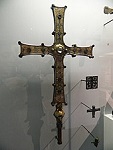
1123 On Jan. 10 Robert Bloet dies in Woodstock, England while riding with Henry I and Bishop Roger of Salisbury, and on July 22 Alexander of Lincoln (-1148), nephew of Bishop Roger of Salisbury becomes bishop of Lincoln (until Feb. 1148), becoming known for his ostentatious luxurious lifestyle and his patronage of Geoffrey of Monmouth Henry of Huntingdon, Christina of Markyate, and Gilbert of Sempringham. On Feb. 8 French-born (in Corbeil near Paris) William of Corbeil (-1136) becomes Canterbury archbishop #38 (until Nov. 21, 1136), and after Archbishop Thurstan of York refuses to consecrate him, his own suffragan bishops do it; he then travels to Rome to receive the 3-fingers-wide white lamb's wool pallium (scarf), with five black crosses and three gold pins to represent Christ's five wounds and the three nails on his Cross, finding that Thurstan had sent emissaries ahead of him to stop it, but Henry I and HRE Henry IV intervene, and he gets it - look at me now, boys? On Mar. 18-27 the First Lateran (9th Ecumenical) Council, convoked in Dec. by Pope Calixtus II, attended by 300 bishops confirms the Concordat of Worms, and passes a lot of other clerical beeswax, incl. suppressing simony, and prohibition of marriage of and concubinage among priests (priestly celibacy). On May 29 after King Baldwin II of Jerusalem is captured while patrolling in Edessa, the unsuccessful Battle of Yibneh (Yibna) (Ibelin) between Ascalon and Jaffa becomes the last attempt by the Egyptian Fatamids to invade the kingdom of Jerusalem, getting crushed by a Crusader force led by new Jerusalem regent-constable Eustace Grenier (Garnier) (-1123), who dies on June 15, and is replaced as regent-constable by Fresh, er, French prince of Galilee (since 1119) William (Guillaume) I of Bures (-1142). Byzantine Emperor John II Comnenus defeats the Serbs. Poland reestablishes access to the sea. Emperor (since 1107) Toba (b. 1103) is forced to abdicate by his cloistered grandfather emperor Shirakawa in favor of his 4-y.-o. son Sutoku (1119-64) (personal name Ahihito), who becomes Japanese Yamato emperor #75 (until 1142), going on to celebrate his 1st anniv. with a carriage procession outside the capital city to contemplate the flowers, attended byretired emperors Horikawa and Toba, with the nobles dressed in hunting clothes and the noblewomen in colorful dress, along with musicians and other performers; he later spends a 3-year exile copying the 10.5K-word Buddhist religious work Lankauarn Sutra in his own blood. The O'Malley Clan in Ireland becomes pirates, becoming known as the Sea Gods (Mannanain) of the Western Sea. The church's Truce of God, which covers France, Germany, Italy, Flanders, and Spain is now backed by threat of excommunication. The town of Smithfield in NW London near Aldersgate becomes the home of St. Bartholomew's Priory, going on to host Bartholomew's Fair starting in 1133 and become the place of execution for heretics and political criminals incl. Sir William Wallace and Wat Tyler; St. Bartholomew's Hospital (AKA Bart's) in Smithfield, London is founded, becoming the oldest hospital in Europe. Art: The Cross of Cong (Gael. "An Bacall Bui" = the yellow baculum) ornamental cusped processional cross is made for Irish high king Tairrdelbach Ua Conchobair of Connacht, ending up in Cong Abbey in Cong, County Mayo. Deaths: French bishop Marbod of Rennes (b. 1035) on Sept. 11 in Angers; leaves Liber Lapidum, a poem describing the occult qualities of 60 precious stones, incl. sapphire, which results in a more favorable answer from God when held in the hand during prayer, opal, which makes one invisible when held folded in a bay leaf, diamond, which makes one invincible, and amethyst, which makes one immune to intoxication. Italian Benedictine abbot St. Bruno (b. 1048); canonized in 1183. German count #1 of Anhalt Otto of Ballenstedt (b. 1070) on Feb. 9. English bishop of Lincoln (1093-1123) Robert Bloet (Bloett) (Bluett) (b. ?) on Jan. 10 in Woodstock, Oxfordshire; dies while riding with Henry I and Bishop Roger of Salisbury, dying in the king's arms without receiving absolution, causing many to conclude that he ended up in Hell; last words: "I am dying".



1124 On Apr. 23 Scottish king (since Jan. 8, 1107) Alexander I (b. 1077) dies in Stirling after "holding his kingdom with a great deal of effort", and his bastard son Malcolm, supported by the Gaelic nobles fights for the crown, but Queen Margaret Aetheling's legit son (by Malcolm III Canmore) David I (1084-1153) becomes Canmore king of Scotland (until May 24, 1153), the last Scottish king to succeed by matrilineal descent (Margaret's 3rd straight son to be king, after Edgar I and Alexander I), and the first feudal (Norman) monarch of Scotland; raised in England and married (1113) to Matilda de Senlis, countess of Northampton, he almost balks at the nobles-only (no priests) Scottish coronation ceremony at Scone, then goes on to establish a feudal system, efficient bureaucracy, Scottish law code and system of sheriffdoms, merchant navy and trade links with Europe, and improved agriculture, and mints Scotland's first native coinage (with silver from royal mines at Alston in Cumberland); a good military man, he extends Scotland's borders to the Tees River, incl. all of Northumberland, creating a "Scoto-Northumbrian" realm, but later mellows and ends up super-religious, finally projecting an image of a long-haired bearded Solomon who cancels hunting trips to hear pleas from widows and the poor, while bleeding the royal treasury dry to fund pious works, causing James I to later call him "ane sair sanct for the croune" (a sorry saint for the crown); from day one he dispossesses the native Scots of their land S of the Forth River and grants it to his Anglo-Norman aristocracy, incl. Robert de Brus (Bruce), who is given Annandale, then Hugh de Morville, Robert Avenel, Walter Fitz Alan (founder of the Stewart Dynasty), the Baliols, Lindsays, and Somervilles; the common Scots end up as serfs for the sell-out aristocracy, while the remaining great Gaelic lords, incl. the Earl of Fife and Earl of Strathearn remain loyal (waiting for a hero to arise to help them fight for their free-ee-dom?); the two classes of serfs and freemen who are bonded to the king are established (until the 14th cent.); David I Romanizes the Scottish Celtic Church, appointing his chaplain John as bishop of Glasgow, and moves the monks from Selkirk to Kelso to be near his new seat of power at Marchidun Castle on the Scottish borders between the Teviot and Tweed Rivers (S of Kelso), which he renames Roxburgh Castle in 1128, which becomes the residence of the Scottish kings until 1297; he creates the title of "high steward of Scotland" (in the royal household) for the FitzAlan clan, which by the time of David II becomes purely honorary, causing them to be called the House of Stewart (Stuart); the first Scottish coins are struck. On Oct. 8 after being released from Aleppo, Baldwin II turns around and sieges it, causing a relief army under Seljuk atabeg Aq-Sunqur il-Bursuqi to march S to relieve it, causing Baldwin II to mysteriously withdraw from his 3-mo. siege without a fight next Jan. On Dec. 14 Pope (since 1119) Calixtus II dies, and on Dec. 15 Teobaldo Boccapecci (Boccapeconai) is elected Antipope Celestine II (-1124), but only lasts one day; on Dec. 21 after Cencio II Frangipane and Cardinal Aimerico of Santa Maria Novella force it, Lamberto Scannabecchi, Cardinal of Ostia (Lamberto of Ostia) (the same cardinal who kissed the emperor at Worms and restored him to communion with the Church) is elected Pope (#162) Honorius II (-1130), soon excommunicating Count William of Normandy for marrying a daughter of Count Fulk of Anjou who is too closely related to him. Byzantine Emperor John II Comnenus intervenes on behalf of Bela II, and defeats the Hungarians, establishing a policy of preventing them from gaining control over the Slavic regions of Dalmatia, Croatia and Serbia. Louis VI the Fat of France stops a German invasion. The Irish wrest control of Dublin from the Danes again (until ?). The Tungusic Juchen Manchurians invade China and drive the Mongol Liao Dynasty of Khitan (begun 916) from China, founding the Qara-Khitai (Kara-Khitai) Kingdom in Semirechye (ends 1214). Architecture: The new Rochester Cathedral in England is completed. Nonfiction: William of Malmesbury (1095-1143), On the Antiquity of the Church of Glastonbury. Deaths: Persian Assassins cult founder Hassan-i Sabbah (b. 1050). English historian Eadmer (b. 1060); leaves Historia Novorum in Anglia; history of England from 1066-1122, and Vita Anselmi, a life of his companion St. Anselm. Scottish king (1107-24) Alexander I the Fierce (b. 1077) on Apr. 23 in Stirling; buried in Dunfermine Abbey.
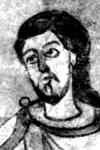
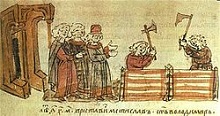

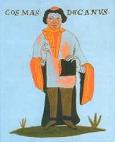
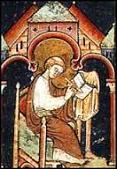
1125 On Jan. 24 David IV the Builder (b. 1073) dies, and his eldest son (a poet) Demetre (Demetrius) I (1093-1156) becomes king of Georgia (until 1156), suffering an immediate attack by the Seljuks in Georgian-held Ani in Armenia and ceding it to them as a vassal. On Apr. 12 Vladislav II (b. 1065) dies, and his brother Sobeslav I Oldrich (1075-1140), son of king Vratislus II becomes duke of Bohemia (until 1140), becoming a Bohemian nationalist not supporting the HRE, and the first Bohemian duke to rule as a king. On May 19 grand prince (since 1113) Vladimir II Monomakh (b. 1053) dies, ending the last good period in Kiev, and his eldest son Mstislav I Vladimirovich the Great (1076-1132) becomes grand prince of Kiev (until Apr. 14, 1132), while his other sons Yaropolk II (-1139) and Yuri Dolgoruki (-1157) chafe at the bit. On May 23 last Salian German king and HRE Henry V (b. 1081) dies after leading an expedition against Louis VI of France; his widow Matilda returns to England; after Leopold III of Austria turns it down, and Duke Henry IX the Black of Bavaria supports his son-in-law Duke Frederick II of Swabia (1090-1147), then flops after a promise of marriage of his son Henry X to Lothair's only daughter Gertrud, Saxon duke Lothair II/III of Supplinburg (1075-1137) is elected king of Germany (until 1137) over Henry V's nephew Frederick of Hohenstaufen, causing Frederick and his brother Duke Conrad of Franconia (later Conrad III) to make war on Lothair; Lothair also bans Frederick, causing Henry IX to abdicate and retire to a monastery to avoid having to take part in his prosecution. On June 11 (13?) after Aq-Sunqur il-Bursuqi receives reinforcements from atabeg of Damascus (since 1104) Toghtekin (-1128) and seiges Azaz N of Aleppo in the County of Edessa, a Crusader army of 1.1K knights and 2K infantry led by Baldwin II, Joscelin I of Edessa, and Pons of Tripoli win a decisive V over the Seljuk Turks under Aq-Sunqur il-Bursuqi at the Battle of Azaz in N Syria after pretending to retreat to draw them into the open and surround them, using the booty to ransom POWs incl. the future Joscelin II of Edessa, avenging the 1119 D at Ager Sanguinis. In Sept. Alfonso I the Battler of Aragon sets out S with an army of 4K knights, and travels down the E coast, bypassing the cities while ravaging the countryside, reaching Guadix unopposed in Dec. In Sept. the Jingkang Incident (Humiliation of Jingkang) begins (ends Mar. 1127) when the Jurchen-led Jin Dynasty sieges and sacks Bian Jing (Bianjing) (modern-day Kaifeng), capital of the Song Dynasty, capturing Emperor Qinzong along with his father Emperor Huizong and many members of the imperial court, causing the Song Dynasty to cede all territories N of the Huai River. A Scottish Gaelic revolt led by Alexander I's bastard son Malcolm (who marries the sister of Somerled, lord of Argyll) is put down. Hugh I dies, and his son Theobald II the Great (1090-1152) becomes count of Champagne, France (until Jan. 10, 1152). Pope Honorius II grants Cencio II Frangipane the county of Ceccano, allowing him to sack the Abbey of Montecassino. Anyway you slice it, men are men and women are women? Peter Abelard becomes abbot of St. Gildas de Rhuys in Brittany, and appoints his former playboy bunny Heloise as abbess of a nunnery in the Paraclete, allowing him to visit her frequently; too bad, he is suspected of a too able tongue and has to stop the visits, going on to write The Story of My Calamities, causing Heloise to begin their famous medieval soap opera Letters of Abelard and Heloise, a real Christian guilt-trip show, where Pete Abeless is reduced to a pure passionless brain and she is friggin' her pen and jumping with passion but intellectualizes it as love of him as a philosopher - jeesh, sign me up for NOW? Music: About this time thanks mainly to Duke William IX the Troubadour of Aquitaine (1071-1127), Trouvere and Troubadour musicians of aristocratic birth begin writing poems and performing music idealizing courtly love, Richard Lionheart becoming a famous one; starting in Occitania, France, they spread to Italy, Spain, England, and as far as Greece, becoming kaput with the Black Plague about 1350. Nonfiction: About this time The Book of Llandaff (Liber Landavensis) (Llyfr Llandaf), a history of Llandaff diocese in Wales is written. Bilhana of Kashmir, Vikramankacharita; written in praise of his host Vikramaditya VI of Kalyani, who gives him a blue parasol and an elephant. William of Malmesbury (1095-1143), Gesta Regum Anglorum (History of the English Kings); covers 449-1120 C.E.; ca. 1140 he writes a 2nd. ed. covering up to 1127, dedicated to Earl Robert of Gloucester, "disclosing in his second thoughts the mellowing of age"; Gesta Pontificum Anglorum (Deeds of the English Bishops), covering from St. Augustine in 597, claiming that the 1066 Norman Invasion saved England from the barbarities of the Anglo-Saxons and restored it to the Latin culture of the continent, going so far as to Latinize Anglo-Saxon names; this work plus his acquaintance with Bishop Roger of Salisbury, who has a castle there gets him offered the position of abbot of Malmesbury Abbey in 1140, which he declines, instead starting his 3-vol. Historia Novella (Modern History), covering from 1128-42, incl. accounts of The Anarchy (Nineteen-Year Winter) (1135-54) during the reign of King Stephen; too bad, he dies before he can finish it. Alexander Neckam (1157-1217), De Utensilibus; earliest account of the Mariner's Compass, allegedly invented by Flavio Gioja of Amalfi, Italy. Tarnenari, O-Kagami; history of Japan from 851-1036. Births: Norwegian king (1142-57) Eystein (Oystein) II Haraldsson (d. 1157) in Scotland; son of king Harald Gille and Gaelic babe Bjaook; brother of Inge. Danish king (1146-57) Sweyn III Grathe (d. 1157); bastard son of Erik II. French prince of Antioch (1153-61) Raynald (Reynald) (Reginald) of Chatillon (d. 1187) in Chatillon, France; husband (1153-63) of Connstance of Hauteville (1128-63) and (1175-87) Stephanie of Milly (1145-97). English Cistercian bishop of Worcester (1180-84) and archbishop of Canterbury (1184-90) Baldwin of Ford(e) (d. 1190) in Exeter; Persian Muslim scholar-soldier Imad ad-Din al-Isfahani (Muhammad ibn Hamed Isfahani) (d. 1201) in Isfahan. Deaths: Bohemian scholar Cosmas of Prague (b. 1045) on Oct. 21; leaves Chronica Bohemorum (Chronicle of the Bohemians) (3 vols.); from Creation to 1125. Russian grand prince of Kiev (1113-25) Vladimir II Monomakh (b. 1053) on May 19 in Kiev. French chronicler abbot Lambert of St. Bertin (b. 1060) on June 22 in St.-Bertin. Bohemian duke Vladislaus I (b. 1065) on Apr. 12. Georgian king (1089-1125) David IV the Builder (b. 1073) on Jan. 24. French count of champagne (1093-1125) Hugh I (b. 1074). German Salian king #4 and HRE (1106-25) Henry V (b. 1081) on May 23.


1126 On Jan. 18 Chinese Song emperor (since Feb. 23, 1100) Huizong (b. 1082) is captured by the Jin Dynasty, going on to spend the last nine years of his life in captivity, dying on June 4, 1135. On Jan. 25 Baldwin II wins a V over the Damascenes at the Battle of Marj es-Suffar, but his losses are too heavy to permit the conquest of Damascus. On Mar. 8 queen (since 1109) Urraca I (b. 1079) dies, and her son Alfonso VII (1105-57) (king of Galicia since 1111, who first used the title Emperor of All Spain incl. Christians and Muslims with her when she gave him the rule of Toledo in 1116) becomes king of Leon and Castile (until Aug. 21, 1157), and begins working to recover Castile from Alfonso I the Battler of Aragon and Navarre; Portugual defeats Leon, insuring its independence. On Dec. 13 Henry IX the Black (b. ?) dies in Weingarten Abbey, and his son (Lothair III/II's son-in-law) Henry the Proud (1108-39) becomes duke Henry X of Bavaria (until 1139). The Peace of 1126 with the Hungarians gives the vital Danube River bridgehead of Branicova to the Byzantines. The Aragonese under Alfonso I the Battler defeat the Murabitun at the Battle of Arinzul near Lucena; after symbolically fishing at Motril on the S coast, Alfonso returns home undefeated. The Crusaders capture the Mediterranean seaport of Jaffa, but soon lose it to the Muslims. Song Wei Zong dies, and Song Qin Zong (-1127) becomes Bei (Northern) Song emperor #9 of China. Western Chalukya king (since 1076) Vikramaditya VI (b. ?) of Kalyani in S India dies, after which the Cholas begin slowly encroaching on Vengi. The Manchurians capture the Chinese capital of Bian Jing. After the Venetian fleets ravage the islands of the Aegean and occupy Corfu and Cephalonia, Emperor John II Comnenus cries uncle and renews their commercial privileges. Greenland, part of the German diocese of Hamburg-Bremen receives its own bishop, Bishop Arnald, complete with power to consecrate priests; he shows the natives how to make sacramental wine from crowberries, builds a cathedral at Gardar, and beefs Greenland up to 16 parishes; the Cyclopean style of masonry is borrowed from the Scots? Deposed Norman duke Robert Curthose is put in the custody of Robert, 1st Earl of Gloucester in his castle in Cardiff. Inventions: The first artesian well in Europe is bored in Artois, France by Carthusian Monks. Births: Spanish Muslim superbrain scholar-philosopher-physician Averroes (Abu'l Waleed or Abu al-Walid Muhammad ibn Rushd) (d. 1198) on Apr. 14 in Cordova; father and grandfather are chief justices of Cordova; becomes chief justice of Seville in 1169, and of Cordova in 1172. Polish duke (1138-1202) Mieszko III (the Old) (d. 1202); 4th son of Boleslaw III the Wry-Mouthed (1085-1128) and Salome von Berg-Schelklingen (1093-1144) (daughter of Duke Henry of Berg). Deaths: English king-for-a-day (1066) Edgar Aetheling (b. 1051). French troubador William IX of Aquitaine (b. 1071) on Feb. 10; leaves 11 songs in the Romance vernarcular of Provencal (Occitan); "The Count of Poitiers was one of the most courtly men in the world and one of the greatest deceivers of women. He was a fine knight of arms, liberal in his womanizing, and a fine composer and singer of songs. He travelled much through the world, seducing women." (anon.). Spanish queen of Leon, Castile, and Balicia (1109-26) Urraca (b. 1079) on Mar. 8 in Saldana, Castile. Bavarian duke (1120-6) Henry IX the Black (b. ?) on Dec. 13 in Weingarten Abbey.






1127 On Jan. 1 Henry I gets the English barons to recognize his daughter Empress Matilda as his heir; his eldest bastard son Robert, 1st Earl of Gloucester, who has been given control of Kent and the castle controlling the cross-Channel route is the first to swear - anything to humor the old fart? On Mar. 2 Charles the Good (b. 1084), count of Flanders since 1119 is murdered during prayers in Bruges, causing a struggle for succession in Flanders, which is settled when Louis VI the Fat of France places William Clito (1102-28) (son of Duke Robert Curthose) on the throne as count #14 of Flanders on Mar. 30 (until July 28, 1128), once again bypassing the distinguished bastard William of Ypres; too bad, English-backed Thierry (Dietrich) of Alsace (1099-1168) challenges him, causing Saint-Omer and Ghent to declare against him next Feb., followed in Mar. by Bruges, and in May by Lille, leaving Clito with the S clit, er, fringe of Flanders. On June 27 Baldwin II of Jerusalem captures Tyre after a 5-mo. siege, and reconstructs the cathedral that was destroyed in 303 C.E. during the Diocletian persecution; starting in 1244 the kings of Jerusalem are crowned here, and HRE Frederick I Barbarossa is entombed here in 1190. On June 12 after the Manchurians kidnap Song Qin Zong and his father, Gao Zhong crowns himself Song Gao Zong (11007-7), Nan Song emperor #1 of China (until July 24, 1162), with Nan Jing (Najing) (Chin. "southern capital") as the capital; the Northern (Bei) Song Dynasty (founded 960) is replaced by the Southern (Nan) Song Dynasty (ends 1279). Also in 1127 Ly Can Duc dies, leaving no heir, causing Vietnam to degenerate into civil wars for the rest of the cent. (until 1225). In July Duke William II of Apulia (b. 1095) dies without heirs, leaving the entire Norman Mezzogiorno to his cousin Roger II of Sicily. On Aug. 27 (Pentecost) Geoffrey V "Le Bon" Plantagenet, Count of Anjou (1113-51) marries Empress Matilda (Maude) (1103-67), daughter of Henry I of England and widow of HRE Henry V; David I of Scotland becomes the first secular lord to swear an oath to uphold Matilda's rights to succeed to the English throne should his liege lord Henry I produce no male heir, in return for Henry acquiescing in the ecclesiastical freedom of Glasgow and St. Andrews from York; being an empress and way-outranking him, as well as being 10 years older, she turns out to be a, er, you can figure it out; next year Geoffrey's daddy Count Fulk leaves to become king of Jerusalem, letting him be the cunt, er, count of Anjou, which may or may not have helped. Welf Henry the Proud (1108-39) marries HRE Lothair II/III's only child Gertrude of Supplingenburg (1115-43), making him heir apparent and the most powerful German noble; meanwhile, like dark clouds on the horizon, his rival Duke Conrad of Franconia (later Conrad III of Germany) is elected antiking to Lothair II/III. Alfonso I the Battler of Aragon and Navarre signs the Peace of Tamara, recognizing new Spanish emperor Alfonso VII of Leon, who invades pesky Portugal to the S (ends 1128). Norman count Roger II of Sicily is recognized as duke of Apulia and Calabria. Louis VI the Fat of France becomes so fat that he can no longer mount his horse. Atabeg (Turkish cmdr. ruling in the name of a minor Seljuk prince) Imad al-Din Zangi (-1146) establishes his own principality in Mosul (ends 1222), followed by Aleppo next year, going on to extend his state from N Mesopotamia to N Syria as far S as Homs - a sign of the decay of the Seljuk Empire? Ly Can Duc dies, leaving no heir, causing Vietnam to degenerate into civil wars for the rest of the cent. (until 1225). Births: Japanese emperor #77 (1155-8) Go-Shirakawa (Masahito) (d. 1192) on Oct. 18; 4th son of Toba (1103-56). French count of Champagne (1152-81) Henry I the Liberal (d. 1181) in Dec.; eldest son of Theobald II (1090-1152) and Matilda of Carinthia. French archbishop of Tyre (1175-86) William (Guillaume) (II) (d. 1186) in Jerusalem. Deaths: French troubadour Guillaume de Poitou (b. 1070) - one of the first to trouble the doors of maidens? Norman noble Charles the Good (b. 1084) on Mar. 2 in Bruges (murdered). Norman duke William II of Apulia (b. 1095) in July.
1128 On June 21 the Battle of Axspoele S of Bruges is a V for William Clito (b. 1102) and his Norman knights and French allies against Thierry of Alsace; on July 12 Clito and Count Godfrey I of Louvain siege Aalst in Belgium; too bad, on July 28 after getting wounded in the arm, which turns gangrenous, William Clito dies, and Thierry (Dietrich) of Alsace (1099-1168) becomes count #15 of Flanders (until Jan. 17, 1168), going on to go on four campaigns in the Levant and Africa incl. the Second Crusade; William of Ypres (b. 1090) strikes out 3x, and is banished from Flanders in 1033. On June 24 after Alfonso VI of Leon appoints her to govern Galicia, and the pop. revolts, the Battle of Sao Mamede near Guimaraes sees Afonso I Henriques defeat his mother Teresa and her lover Galician Fernao Peres de Trava, giving himself the title of prince of Portugal in 1129; she ends up in a monastery; Guimaraes becomes the first capital of independent Portugal. Louis VI the Fat of France begins a power struggle with the powerful Garlande family, which he wins in 1130. Qudbaddin Muhammed dies, and his son Atsiz (-1156) becomes shah #2 of Khwarzem (until 1156). Imad al-Din Zengi (Zenghi) (Zangi) (Zengui) (Zenki) (Zanki) I (1085-1146) of Mosul captures Aleppo, Syria from the Artuquids (who held it since 1117), founding the Zengid (Zangid) Dynasty (ends 1250), which goes on to unite Aleppo and Mosul and rules parts of the Levant and Upper Mesopotamia on behalf of the Seljuk Empire, disintegrating Crusader control of N Syria and causing the Assassins (Hashashins) Cult to flee to the N Syrian coast and build the mountain fortress of Alamut in the Alborz Mts. S of the Caspian Sea in Persia, going on to stage suicide missions until the Mongols destroy their base in 1256; each leader takes the title of Sheikh (Shaykh) al-Jabal ("the mountain chief") - I start up each day with a loosening-up exercise? Cencio II Frangipane and Cardinal Aimerico of Santa Maria Novella are sent by Pope Honorius II to Sicily to invest Roger II with the duchy of Apulia. Keep your age to yourself? After the Templars emerge from nine years locked up inside the Temple Mount of Jerusalem (and still haven't rescued any pilgrims?), the Synod (Council) of Troyes in France (the city that gives troy weight its name) and Pope Honorius II recognize the Order of the Knights Templar and their austere Cistercian-based rule, and they begin gaining wealth and power at jet speed, helped by being left in many peoples' wills, becoming the bankers of Europe, complete with the first traveler's checks, encrypted deposit notes that pilgrims can carry between Templar stations all the way to the Holy Land, making them an internat. banking org. above all kings and answerable only to the pope, stirring envy and resentment, esp. from kings who owe them money, and giving later conspiracy theorists plenty of material; "A sure sign of a lunatic is that sooner or later, he brings up the Templars" (Umberto Eco). The town of Graz (Slovenian "little castle") in Austria 120 mi. SW of Vienna (known for its Mediterranean weather) is first mentioned - and its barbell-pumping tweedy freaks like Ahnuld? Architecture: After granting a burgh charter to the 6th cent. Celtic town of Edinburgh (Edenesburg) (originally "Din Eidyn" - hill fort of Eidyn) (modern-day pop. 794K/488K), David I of Scotland refounds Dunfermline Abbey as the #1 royal abbey, also founding the Augustinian Inchcolm Abbey on an island in the Firth of Forth (begun /by Alexander I), and the Augustinian Holyrood Abbey in Edinburgh on a site where he was allegedly miraculously saved from a stag attack when the lost holy rood (cross) fell from its antlers into his hands, causing the animal to turn and flee; Holyrood Church becomes a refuge for criminals and debtors; in the early 1300s it is expanded and turned into Holyrood House; in the 15th cent. it becomes a palace; in 1671-8 a new Holyrood Palace is built in a quadrangle layout; David I later founds the Augustinian Cambuskenneth (Stirling) Abbey; Edinburgh is not granted city status until 1889. St. James the Great's Cathedral in Santiago de Compostela, Galicia, Spain (begun 1060) is consecrated in the presence of its biggest backer Alfonso IX of Leon; it is not completed until 1211. Grimbergen Abbey is founded in Belgium by Norbertine monks, founding a beer brewery that survives to modern times, producing Grimbergen Blonde et al. Births: French princess of Antioch (1130-63) Constance of Antioch (d. 1163); only child of Bohemond II of Antioch and Alice of Jerusalem; brother-in-law of Fulk of Anjou; wife (1136-49) of Raymond of Poitiers (1115-49), and (1153-63) Raynard of Chatillon (1125-87); mother of Bohemond III (1144-1201), Maria of Antioch (114-82), Philippa of Antioch (1148-78), and Agnes of Antioch (1154-84). French archbishop of Caesarea (1175-) and Latin patriarch of Jerusalem (1180-7) Heraclius (Eraclius) (d. 1191) in Auvergne; educated at the U. of Bologna. rival of William of Tyre. Danish soldier-statesman-ecclesiastic Absalon (Axel) (d. 1201); educated in Paris; archbishop of Lund (1178-1201); Danish historian Saxo Grammaticus is his secy. Deaths: Spanish queen of Castile-Leon (1109-26) Urraca I (b. 1082) on Mar. 8. French duke of Normandy and count of Flanders (1127-8) William Clito (b. 1102) on July 28 in Aalst (gangrene); bured in St. Bertin Abbey, Saint-Omer, Flanders. Italian Pierleoni Family founder ("the Jewish Crassus" - Ferdinand Gregorovius) Pier Leoni (Pierleone) (b. ?); son of Leo de Benedicto Christiano (Benedictus Christianus), a rich Jew from Trastevere who converted and was baptized by Pope Leo IX; buried in the Basilica of St. Paul Outside the Walls, with an inscription "A man without equal, immeasurably rich in money and children"; father of Antipope Anacletus II (Pietro Pierleone) (-1138) and Giordano Leoni.


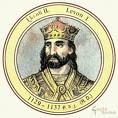
1129 On June 2 after going on Crusade in 1120 and becoming a close friend of the Knights Templar, and being about to return to Anjou in 1127 when Baldwin II made him an offer he couldn't refuse (after William I Bures and Hugues de Payens returned empty-handed from a mission to France to find her a better hubby), Count Fulk (Fulques) V the Young of Anjou (1089-1143), marries his daughter Melisende (Melusine) (Melisanda) (1105-61) putting him in line to become king-consort of Jerusalem when he dies (1131); after Sunni Damascus ruler (since 1128) Taj al-Din Buri (-1132) orders the massacre of 6K Ismaili Muslims after hearing rumors that they are conspiring with the Crusaders to give them the strategic fort in Banias (named after the Greek god Pan) at the foot of Mt. Hermon N of the Golan Heights in return for control of Tyre, a 60K-man Latin army incl. the Templars head to Damascus with 60K troops, causing Buri to ally with Imad al-Din Zengi of Alepoo to stop them, gaining reinforcements from Hama as well as Turkomen and Arab allies; too bad, a division under constable William I of Bures sets off to gather supplies, and is intercepted by a Muslim force in Buraq (Braq) (Burak) (modern-day Al-Buraq) SE of Hama, ending the Latin offensive before the army reaches the city; meanwhile Fulk leaves Anjou (incl. Maine and Touraine) to his son Geoffrey V Plantagenet, causing Louis VI the Fat to worry about the Anglo-Norman menace. The Aragonese under Alfonso I the Battler defeat a Murabitun army (which incl. many black slaves) led by Ali ibn Majjuz, gov. of Seville deep inside Valencian territory at the Battle of Alcira. Toros I dies, and his son Constantin (Gosdantin) II (b. 1035) becomes king of Lesser Armenia (Cilicia), but a few mo. later a palace intrigue has him imprisoned and poisoned, and Toros I's brother Levon (Leon) I (-1140) becomes king of Lesser Armenia (until Feb. 14, 1140). Lothar III permits citizens of Duisburg to break stones in the woods; the oldest deed in the city archives dates to this year. Births: German Saxon duke (1142-80) and Bavarian duke (1156-80) Henry the Lion (d. 1195); son of Henry the Proud. Deaths: Japanese emperor #72 (1073-87) Shirakawa (b. 1053) on July 24.




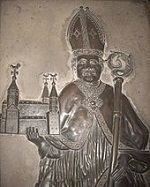

1130 On Feb. 13 Pope (since 1124) Honorius II dies, and on Feb. 14 after Cardinal Aimerico of Santa Maria Novella splits with Cencio II Frangipani, he gets his candidate Gregorio Papereschi elected Pope (#163) Innocent II (-1143); too bad, the hastiness of the contested election causes a schism, and on May 18 the Roman nobles incl. Cencio II elect distinguished scholar-diplomat Pietro Pierleone (Pierlioni) (son of rich converted Jew Pier Leoni) as Antipope Anacletus II (-1138) (until 1138), sending a letter the same day to German king (since 1125) Lothair III/II (1075-1137) asking for support; Anacletus II allegedly keeps a ho for a mistress, commits incest with his sister and other female relatives, and has a bad er, habit of raping nuns; meanwhile Cencio II is exiled from Rome (until 1133). On Mar. 26 Sigurd I (b. 1090) dies, leaving no legitimate son, causing a power struggle between his many bastard sons and pretenders, escalating into a civil war that lasts until 1240, centered around the Bagler and Birkebeiner clans; round 1 features Magnus IV Sigurdsson (the Blind) (1115-39), and his Irish or Scottish-born uncle Harald Gille (Gillechrist) ("servant of Christ") (1103-36), Sigurd's half-brother, who had promised Sigurd not to claim any share in the govt. until Magnus' death, but once the old fart is gone demands to rule jointly (Magnus in the E, Harald in the W?) while he plans to do him in (ends 1135) - are you ready to challenge yourself, rethink how you eat? Alba go bragh, baby? On Apr. 16 after Alexander I's bastard son Malcolm (Mael Coluim mac Alaxandair) and Earl Angus (Mormaer Oengus) of Moray (son of the daughter of Lulach, stepson of Macbeth) lead a last-hope Gaelic revolt against Norman butt-kisser David I, their 5K men are slaughtered and defeated by a Norman army under Anglo-Saxon noble (later lord high constable to David I in 1140-50) Edward Siwardsson at the Battle of Stracathro (Inchbare) near Brechin in Angus; Earl Angus is KIA along with 4K of his men (vs. 1K Anglo-Saxons), becoming the last Gaelic earl of Moray, ending the Mormaerdom, but Malcolm escapes to fight another day; David I seizes Angus' estates, subdues Moray and grants it to his newphew (son of Duncan II) William fitz Duncan (-1147) (until 1147), and builds royal castles in Elgin, Forres, and Inverness to consolidate his hold, then brings in Fleming Freskin colonists, going on to gain control of most of mainland Scotland by the middle of the decade, making himself #2 in the British Isles; to pacify the Gaelic pop. he grants charters of privileges to commercial settlements growing up around his new castles, but shows who's boss by endowing the Benedictine Urquhart Priory on Earl Angus' estate in 1136 as a daughter to his royal Dunfermline Abbey. On Sept. 27 Norman count (since 1105) Roger II (1095-1154) is crowned king of Sicily (until Feb. 26, 1154) in Palermo, and his kingdom becomes known as the Kingdom of the Two Sicilies because the S part of the Italian mainland incl. Apulia is called "Sicily on this side of Cape Faro"; his elaborate coronation cloak is later used by the HREs. Muhammad ibn Tumart (b. 1078) dies, and the Berber Abd al-Mumin (1094-1163) succeeds him as head of the Almohads, taking the title of caliph, and going on to crush the Almoravids and conquer Morocco and parts of N Africa. Tashfin ibn Ali ibn Yusuf, son of the Murabitun Emir takes the castle of Aceca S of Toledo; the Murabitun, led by the gov. of Valencia defeat the invading Aragonese and kill First Crusader hero Gaston de Bearn. (St.) Bernard (Bernhard) (Bernardus) (-1154) becomes bishop of Hildesheim, becoming known as a protector of the arts. The Jews believe that this year will see the appearance of the Messiah, and sho 'nuff, Messiah Moshe Dray conveniently appears in Cordoba. The Knights of St. John (founded 1070) go military on the model of the Knights Templar, with noble blood a requirement for knighthood - the Christian al-Qaida? About this time Breton youth Adam of St. Victor (-1146) joins the Monastery of St. Victor near Paris, living there 60 years following mystics Hugo and Richard, and composing Latin hymns for the Mass, sparking the Notre Dame school in Paris to beef-up its musical repertoire. Architecture: In May Canterbury Cathedral in England (rebuilt in 1070-7) is dedicated; papal legate Cardinal John of Crema (Cremona) arrives, and lords it over the English clergy, causing Canterbury archbishop William of Corbeil to travel to Rome and get appointed as the first English papal legate in England and Scotland. The Church of the Holy Sepulchre, the oldest of the four round churches in England is built about this time in Cambridge, England by the Knights Templar as a clone of the one in Jerusalem. Nonfiction: Leinster Codex Rawlinson B502, the earliest Irish genealogical ms. to survive to modern times dates to this decade. Simeon (Symeon) of Durham, History of the Church of Durham from 635; History of the Kings; Chronicle of the Angles. Births: Chinese rationalist Neo-Confucian scholar (#2 Chinese philosopher after Confucius) Zhu Xi (Chu Hsi) (d. 1200) on Oct. 18 in Yuxi, Fujian; emphasizes the Four Books over the Book of Changes, and argues for two universal elements, qi (chi) (matter-energy) and li (rational law), whose source is Taiji (Tai Chi) (the Great Ultimate). French count Eustace IV of Boulogne (d. 1153); eldest son of English king Stephen I of Blois (1096-1154) and Queen Matilda of Boulogne (1105-52). Hungarian king (1141-62) Geza II (d. 1162) in Tolna, Poland; son of Bela II the Blind (1110-41) and Ilona (Jelena) of Serbia. Jerusalem king #4 (1143-63) Baldwin III (d. 1163); eldest son of Fulk of Anjou (1089-43) and Queen Melisende (1105-61). Spanish Jewish traveler Benjamin of Tudela (d. 1173) in Tudela, Navarre. Norman soldier Richard Fitz Gilbert (OG "shining pledge") "Strongbow" "Arc-Fort" de Clare, 2nd Earl of Pembroke (d. 1176) in Tonbridge, Kent; son of Gilbert "Strongbow" de Clare, 1st earl of Pembroke (1085-1148) and Isabel de Beaumont; grandson of Earl Gilbert de Clare (-1117); husband (1170-) of Aoife (Eva) MacMurrough of Leinster (1145-88); father of Isabel de Clare, 4th countess of Pembroke and Striguil (1172-1220). Muslim mathematician-astronomer Ibn Yahya al-Maghribi al-Samaw-al (Samau'al al-Maghribi) (d. 1180) in Baghdad, Iraq; Jewish rabbi father from Morroco; converts to Islam in 1163. German Alsatian "Hortus deliciarum" abbess Herrad of Landsberg (d. 1195) in Landsberg. Deaths: Portuguese queen (1112-28) Teresa of Leon (b. 1080) on Nov. 11 in Montederramo Monastery, Galicia. Moroccan Almohad sect founder Muhammad ibn Tumart (b. 1078). Norwegian king Sigurd I (b. 1090) on Mar. 26. Scottish queen Matilda de Senls (b. ?).
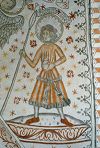



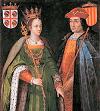

1131 On Jan. 7 Danish prince Canute (Knud) Lavard (the Lord) (b. 1096), 1st duke of Schleswig is trapped and ambushed in Haraldsted Forest near Ringsted in Zealand Island, starting a civil war, which his posth. son (born Jan. 14) Valdemar I ends, getting his daddy canonized in 1170. On Mar. 1 Stephen II (b. 1101) of Hungary dies, and the dynastic conflicts rage as the Byzantine emperor whips them up to extend his sway; Stephen II's swill-swigging cousin (grandson of Geza I through Almos and Ingeborg of Sweden) Bela II (the Blind) (1110-41) becomes Arpad king of Hungary (until 1141), with his Serbian princess wife Ilona (Jelena) and brother-in-law Belos helping him to govern; Ilona's first act is to order the massacre of all the men responsible for his blinding. In Mar. Pope Innocent II crowns German king Lothair III/II and queen Richenza in Liege; in Oct. he crowns Louis VII of France in Rheims. On Aug. 19 Ramon Berenguer III (b. 1082) dies, and his elder son Ramon Berenguer IV (the Holy) (1113-62) becomes count of Barcelona (until 1162), while his younger son Berengar Raymond I (1115-44) becomes count of Provence (until 1144). King (since Apr. 14, 1118) Baldwin II (b. 1060) dies, and is succeeded by his son-in-law Count Fulk (Fulques) V the Young of Anjou (1089-1143), husband (since June 2, 1129) of his daughter (Godfrey de Bouillon's niece) Queen Melisende (Melusine) (Melisanda) (1105-61) as Latin king #4 of Jerusalem (until 1153), with Melisende as joint ruler; too bad, he cuts her out of the loop and favors fellow countrymen from Anjou for his administration, proceeding to bring most of Syria under Christian control, and the Kingdom of Jerusalem reaches its peak in his reign; his marriage causes the Plantagenet family, lords of Anjou to claim descent from the Merovingians. Albert the Bear loses lower Lusatia (modern day E Germany and SW Poland) and the E march of Saxony. Berkyaruq's brother Ahmed Sanjar (1084-1157), prince of Khorasan (since 1096) overthrows his nephew Mahmud II, becoming sultan of the Seljuks. The Neville (Nevill) Family is founded in England, going on to rise to great heights. The Bishopric of Aberdeen (Gael. "mouth of the Dee River") in Scotland is first mentioned. Births: Sicilian Norman king #2 (1154-66) William I (the Bad) (the Wicked) of Sicily (d. 1166); 4th son of Roger II (1095-1154) and Elvira of Castile (1100-35); maternal grandson of Alfonso VI of Castile; father of William II the Good (1155-89). Danish king (1157-8) Valdemar (Waldemar) I (the Great) (d. 1182) on Jan. 14; son of Canute Lavard (1090-1131); grandson of Eric I (1070-1103); father of Valdemar II (1170-1241). French Crusader Baldwin of Ibelin (Baldwin II of Ramla) (d. 1187); son of Barisan of Ibelin (-1150); brother of Hugh of Ibelin (1130-71) and Balian of Ibelin (1141-3). Deaths: Norman lord Robert of Belleme, 3rd earl of Shrewsbury (b. 1056); dies in prison. French mystery man Hugues de Payen (b. 1070) on May 24. Spanish count of Barcelona (1097-1131) Ramon Berenguer III (b. 1082) on Aug. 19. Danish prince Canute Lavard (b. 1090) on Jan. 7 in Hardaldsted Forest (near Ringsted), Zealand Island (murdered). Hungarian king (1116-31) Stephen II (b. 1101) on Mar. 1.
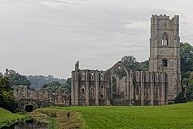
1132 On Jan. 28 the Southern (Nan) Song Chinese under gen. Han Shizhong (1089-1151 siege and capture a city in Fujian, becoming the first known use of gunpowder cannons. Boleslav III of Poland begins campaigning in Hungary (until 1135). Henry I of France grants charters to corporate towns to protect commerce and industry. Grand prince (since 1125) Mstislav I dies, and his younger brother Yaropolk II Vladimirovich (1082-1139), prince of Pereyaslav (since 1114) becomes grand prince of Kiev (until 1139). Having captured Korikos, Levon I of Lesser Armenia seizes Tarsus, Adana, and Mamistra, putting him into conflict with the Crusaders. Louis VI the Fat finally forces the robber barons around Paris to yield to his royal authority. The Benedictine Abbey of Orval in Luxembourg (founded 1071) is taken over by Cistercians, becoming famous for its Trappist Orval beer and its cheese, and growing so rich that by 1750 it owns 300+ towns, villages, and manors, with an annual income of 1.2M livres. Architecture: Cistercian Fountains Abbey is founded 3 mi. SW of Ripon in North Yorkshire, England near Aldfield; in 1539 it is dissolved under orders of Henry VIII. Births: English Roman Catholic martyr (St.) William of Norwich (d. 1144) on Feb. 2 in Norwich; patron saint of bigoted Roman Catholic Jew-baiters? Deaths: Russian grand prince of Kiev (1125-32) Mstislav I the Great (b. 1076) on Apr. 14 in Kiev.
1133 A disease strikes cattle and pigs in Britain. On June 4 Lothair III/II is crowned HRE by Pope Innocent II in Rome (until 1137); Cencio II Frangipane is allowed to return, and attends the coronation. On Aug. 24 the first St. Bartholomew's Fair is held in Smithfield, England in NW London outside Aldersgate (until 1855). The Saxon North Mark is conferred upon Albert the Bear, who begins calling himself the margrave of Brandenburg, gets busy fighting the Wends, a mixed pagan Slavic people, who end up huddled along the Spree River and migrate to Texas in the 1850s - Winslow really = Wendslav? The Christian militia of Toledo reach the gates of Seville and kill the Murabitun gov. Abu Hafs Umar ibn Ali ibn al-Hajj; further damage is prevented by the intervention of Tashfin ibn Ali ibn Yusuf. The Diocese of Carlisle in Britain is founded by Henry I as part of the Diocese of Durham, with Aethelwold as bishop #1. Births: English king #25 (1154-89) (founder of the Plantagenet Dynasty) (redhead) Henry II Plantagenet (FitzEmpress) (Curtmantle) (d. 1189) on Mar. 5 in Le Mans, France; son of Count Geoffrey V Plantagenet of Anjou (1113-51) and Empress Matilda (Maud) (1102-67) (daughter of Henry I); grows up in Anjou, and goes to Bristol, England at age 9 to be educated by Master Matthew; husband (1152-) of Eleanor of Aquitaine (1122-1204); father of Count William of Poitiers (1153-6), Henry the Young King (1155-83), Richard I (1157-99), Duke Geoffrey II of Brittany (1158-86), John I (1167-1216), Matilda (Maud) of England (1156-89), Leonora (Eleanor) of Castile (1162-1214), and Joan of Sicily (1165-99). Norwegian king (1136-55) Sigurd II Haraldsson (Munn) (d. 1155); son of king Harald Gille and Tora Gutormsdotter. Spanish king of Navarre (1150-94) Sancho VI Garces (Garcés) (the Wise) (el Sabio) (d. 1194); son of Garcia VI Ramirez the Restorer (-1150) and Marguerite de l'Aigle; first to drop Pamplona from his royal title. Welsh ruler of Deuheubarth (S Wales) (1155-97) Rhys ap Gruffydd (Griffith) (d. 1197) (AKA Lord Rhys).
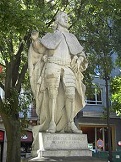

1134 On Jan. 7 after Niels and Magnus land hoping to finish him off, Eric II Emune (the Memorable) (1090-1137), illegitimate son of Eric I surprises them with a force of German soldiers, slaughters them, kills Magnus and defeats his uncle Niels on June 4 at the Battle of Fodevig (Fotevik) Bay, awards himself the title Emune (the Memorable), and becomes king of Denmark (until 1137), becoming a harsh and unpopular ruler, and marrying Malmfrid of Kiev, daughter of Kiev grand duke Mstislav I and former wife of Sigurd I of Norway; civil wars rock Norway, centered between the Bagler and Birkebeiner parties (until 1217). On July 17 after the Murabitun under Almoravid king #5 (1104-43) Ali ibn Yusuf (1084-1143) raid in the Caceres area, the Aragonese under king (since Sept. 28, 1104) Alfonso I the Battler (b. 1073) siege the small town of Fraga in Aragon until a Murabitun relief army under Yahya ibn Ali ibn Ghaniya defeats the overconfident Christian pricks, and Alfonso I is severely wounded and dies on Sept. 8; Arragonese rule of Navarre (begun 1076) ends, and the W kingdoms of Castile and Leon gain supremacy over the E kingdoms of Aragon and Navarre. On Aug. 9 Magnus IV defeats his uncle Harald IV at Farlev (Fyrileif) in Bohuslan (Bohuslän) in W Sweden, causing Harald to flee to Denmark, but Magnus goofs up by disbanding his army and wintering in Bergen, allowing Harald to gather a new army and surprise him after Christmas. On Sept. 8 after losing to the Moors at Fraga, king (since Sept. 28, 1104) Alfonso I the Battler (b. 1073) of Aragon and Pamplona dies without an heir, willing his kingdom to the military orders, pissing-off the nobles, who elect Garcia VI Ramirez (the Restorer) (1112-50), count of Monzon (grandson of El Cid) as king of Pamplona (Navarre) (until Nov. 21, 1150), who goes on to restore its independent existence after 58 years of union with Aragon; meanwhile Alfonso VII of Leon claims the throne of Aragon, causing other nobles to choose Alfonso I's brother Ramiro II (the Monk) (1075-1157), who becomes king of Aragon (until Aug. 16, 1137), pissing-off Alfonso VII, who occupies La Rioja and conquers Zaragoza, going on to turn both Navarre and Aragon into his vassals. HRE Lothair III/II invests Albert the Bear for his share in his first Italian campaign with the Nordmark (N march of Saxony). War breaks out between Norwegian kings Harald IV and Magnus IV. Boleslav III ends his campaigns in Hungary with no permanent result. The Byzantines war with Lesser Armenia, which allies with the Latin kingdom of Antioch (ends 1137). Scottish pretender Malcolm is captured and imprisoned in Roxburgh Castle, ending the hopes of the Gaels, but later, after 20 years of stability and economic prosperity in an era of English anarchy, they come to accept it? - they call it being thrifty? The religious order of the Humiliati (founded by nobles from Lombardy early in this cent. after rebelling against HRE Henry V and being taking POW, then humiliating themselves to a penitential garb and mode of life to obtain release) withdraws into a monastery in Milan, going on to embrace the Rule of St. Benedict, after which they send a delegation to Rome in 1178 to obtain papal approval but disobey and get excommunicated, but make amends, and continue on until they are suppressed by Pope Pius V in 1571. The U. of Salamanca in Salamanca (120 mi. W of Madrid), Castile and Leon, Spain is founded, becoming the oldest univ. in Spain; in 1218 it receives a royal charter from Alfonso IX; on May 8, 1254 Alfonso X grants it the title of university, which is recognized in 1255 by Pope Alexander IV; "Quod natura non dat, Salamantica non praestat" (What Nature does not give, Salamanca does not lend); "Multos et doctissimos Salmantica habet" (Many and very versed Salamanca has); in 1940 after the Spanish govt. fires the faculties of canon law and theology, Pope Pius XII founds the Pontifical U. of Salamanca. Architecture: The W facade of Chartres Cathedral in France is begun (ends 1150); it is consecrated in 1260; the final monstrous double-spired cathedral with a giant Mister Sun over the main doors isn't finished until about 1300. Poetry: Geoffrey of Monmouth (1100-55), The Prophecies of Merlin (Prophetiae Merlini); creates a cult that lasts until 1445. Births: Spanish king of Castile and Toledo (b. 1134) Sancho III (the Desired) (d. 1158) in Toledo; eldest son of Alfonso VII of Leon and Castile (1105-57) and Berengaria of Barcelona (1116-49); brother of Ferdinand II of Leon (1137-88). Anglo-Norman landowner Hugh de Lacy, Lord of Meath, 4th Baron Lacy (d. 1186); son of Gilbert de Lacy (d. 1164). Indian sage (founder of the Lingayat Sect) Basava (Basavanna) (Basaveshwara) (d. 1196). German duke of Saxony (1180-1212) Bernhard, Count of Anhalt (d. 1212); 7th and last son of Albert the Bear (-1170) and Sophie of Winzenburg. Deaths: Norman duke Robert III Curthose (b. 1053) on Feb. 10 in Cardiff. Spanish king of Aragon and Pamplona (1104-34) Alfonso I the Battler (b. 1073) on Sept. 8 in Polenino (KIA). German bishop St. Norbert (b. 1080) on June 6 in Magdeburg; canonized by Pope Gregory XIII in 1582.
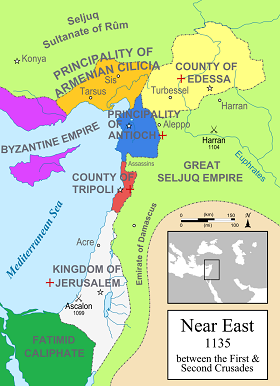



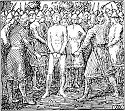
1135 This is the German Year of Pacification, with a gen. peace proclaimed; Conrad III, Frederick of Swabia, the king of Denmark, and the duke of Poland all submit to HRE Lothair III/II and his Welf son-in-law Henry the Proud, to whom Lothair plans to give a vast dynastic holding, incl. Bavaria, Swabia, Saxony, the allodial (freehold) lands and fiefs of Matilda of Tuscany, along with the imperial crown - don't get too proud till you've got them? On Jan. 7 Harald IV attacks Bergen, captures Magnus IV, deposes him, and blinds, castrates and amputes one of his legs, causing him to be known as Magnus the Dickless Blind Pegleg, er, Magnus the Blind, and become a monk; meanwhile pretender Sigurd Magnusson Slembe (Slembedjakn) (Noisy) (-1139) appears, claiming to be a son of Magnus II, and is allowed to become co-king with Harald - big mistake? On May 26 Alfonso VII of Castile-Leon is crowned "emperor of all the Spains" (imperator totius Hispaniae) in the Cathedral of Leon. On May 26 (Pentecost) a fire seriously damages St. Paul's Cathedral and London Bridge in London, England. On Aug. 10 the Battle of Konungahella in modern-day Kungalv, Sweden sees Duke Ratibor arrive with a 550-ship fleet, each with 44 men and two horses aboard, razing the town, killing most of the pop. and enslaving the rest. On Aug. 29 caliph (since Aug. 6, 1118) Al-Mustarshid (b. 1092) is assassinated by the Hashshashins in his tent while reading the Quran, and his son Al-Rashid (1109-38)) succeeds him as Abbassid caliph (until 1136), avenging his daddy's death by insulting Sultan Masud's envoy after he came to demand a large, er, largess, inciting the mob to plunder his place, then gaining the support of Zengi to set up a rival sultan, causing Masud to siege to Baghdad, get them to flee to Mosul, and appoint his uncle Al-Muqtafi as new caliph. Slim fast, find your good life? On Nov. 25 after making the barons and bishops swear fealty to his choice for succession, English king (since 1100) Henry I Beauclerc (b. 1068) falls ill at Lyons-la-Foret in Normandy after eating too many lampreys, and dies on Dec. 1 in Saint-Denis-en-Lyons; having no male heirs because of the 1120 White Ship disaster he leaves the throne to his sole legitimate child (of 20+) Henry II (b. 1133) and his mother Empress Matilda (Maude) (Maude); although there is no male supremacy Salian Law in England, everybody knows the story of Peter Rabbit, and both because she acts like a royal asshole, and because Henry I's expansion of royal power has been threatening the feudal privileges of the nobility, three weeks later on Dec. 22 Henry I's favorite nephew (her cousin's husband) Stephen of Blois (Boulogne) (Mortain and Boulogne) (1096-1154), son of William I's daughter Adela, and richest man in England and Normandy seizes the throne (until Oct. 25, 1154), helped by the unpopularity of Matilda with the people, probably because of their unwillingness to accept a woman ruler, and the fact that her hubby is unpopular red-haired Geoffrey V Plantagenet (Le Bel) (the Handsome) (Martel) (the Hammer), Count of Anjou (1113-51) (son of Jerusalem king Fulk of Anjou), head of the French province that is always trying to take over Normandy; on Dec. 22 after the barons switch their support, Stephen I becomes England's 24th monarch, crowned by Canterbury archbishop William of Corbeil, who reneges on a promise to Henry I (like everybody else); guess what, Matilda's husband Count Geoffrey V the Handsome of Anjou then undertakes to conquer Normandy in her name this time, beginning The Anarchy (Nineteen-Year Winter) (ends 1154); too bad, he later proves unwilling to send reinforcements to England; meanwhile David I of Scotland, the first lay person to take an oath to uphold Matilda in 1127 declares war on Stephen. Levon I of Lesser Armenia seizes Saravantikar, pissing-off Raymond of Antioch, who had wanted it. The Repub. of Avignon in SE France is founded (until 1146) after it splits off from the kingdom of Arles. The Normans begin raiding the N African coast between Cape Bon and Tripoli (until 1153). The town of Amalfi on the Gulf of Salerno 20 mi. SE of Naples (founded by Roman emperor Constantine the Great) is plundered by the Pisans. The Italian line of the House of Este is founded (ends 1803), controlling Ferrara, Italy until the end of the 16th cent., when it becomes a papal state. The king of Leon is recognized as overlord of Navarre and Aragon. After the efforts of good clerk Henry I, the Pipe Rolls of the Exchequer (fancy word for abacus), containing sophisticated accounts of the royal income and expenditures begin to be compiled by the exchequer in England; the French Capetian monarchy takes until the early 13th cent. to catch up. The first known written mention is made of the 7th cent. C.E. W German farming-fishing town of Dusseldorf (Düsseldorf) (Dusseldorp), at the confluence of the Dussel and Rhine Rivers (modern-day pop. 619K/1.2M); in 1946 it becomes the capital of the federal state of North Rhine-Westphalia. Births: Spanish Sephardic Jewish physician-philosopher-rabbi Moses Maimonides (Moshe ben Maimon) (Maimuni) (Rambam) (Rabbeinu Mosheh Ben Maimon) (Rabbi Moyses) (d. 1204) (b. 1338?) on Mar. 30 in Cordova; son of Maimon ben Joseph; pupil of Rabbi Joseph ibn Migas; moves to Fez, Morocco in 1159, pretending to be Muslim for nine years, then to Alexandria and Cairo in 1165, becoming chief physician of Saladin's vizier al-Qadi al-Fadil al-Baisani and Saladin's eldest son Nur-ud-Din Ali, rising to Ra'is al Yahud (Nagid) in 1176 (1177?), going on to talk Saladin into letting Jews settle again in Jerusalem after he conquers it in 1187; born in the same city as rival Averroes, they never meet, and Maimonides only reads his books in his old age; father of Abraham ben Moses; grandfather of David ben Abraham; great-grandfather of Solomon ben Abraham. Norwegian king (1136-61) Inge I Haraldsson (Krokrygg) (the Hunchback) (d. 1161); only legitimate son of king Harald Gille by his wife Inigior Ragnvaldsdottir. Spanish count of Provence (1144-66) Ramon Berenguer (Raymond Berengar) II (d. 1166); son of Berenguer Ramon (1115-44); newphew of Ramon Berenguer IV of Barcelona (1113-62). English Carthusian bishop (St.) Hugh of Lincoln (Avalon) (d. 1200) in Avalon, Burgundy; his daddy the Lord of Avalon renounces the world and takes 8-y.-o. Hugh to a monastery near Grenoble with him; canonized in 1220; feast day: Nov. 17. Italian mystic Joachim of Fiore (Joachim of Flora) (Gioacchino da Fiore) (d. 1202) in Celica (near Cosenza), Calabria, Two Sicilies; has a spiritual conversion in Jerusalem about 1170, gets his hands on St. John's Revelation, and watch out?; uses the "IEUE" interlaced circles diagram to represent the Trinity, later known as the Borromean Rings (logo of Ballantine beer). Deaths: English king (1100-35) Henry I (b. 1068) on Dec. 1 in Saint-Denis-en-Lyons, Normandy; buried in Reading Abbey, Berkshire. Chinese Song emperor #8 (1100-26) Huizong (b. 1082) on June 4 in Wuguocheng; dies in captivity. Arab Abbasid caliph (1118-35) Al-Mustarshid (b. 1092) on Aug. 29 (assassinated by the Hashshashins).
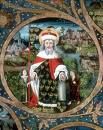

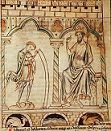


1136 A fire in London disrupts the rebuilding of St. Paul's Cathedral (consecrated in 1240). In Apr. the Welsh under Morgan ap Owain (-1158), king of Glamorgan see their chance and revolt, and are defeated by Robert, 1st Earl of Gloucester, who at this point is loyal to Stephen I; the treaty recognizes Morgan's gains. In Oct. the Battle of Crug Mawr (Great Barrow) (Cardigan) 2 mi. NE of Cardigan sees the warlike Welsh introduce the longbow, routing the Norman heavy horse, killing 3K and winning the battle, followed by a great slaughter in the town. On Nov. 15 Leopold III the Saint (b. 1073) dies, and his son Leopold IV (the Generous) (1108-41) becomes margrave of Austria (until 1141). Scottish king David I invades N England allegedly to support Matilda, but really to take possession of "his" parts there, incl. Cumberland, Westmorland, and Northumberland, capturing Carlisle and Newcastle, then sieging Durham before Stephen I meets him there with his army, and they agree to a peace treaty greatly favoring the Scots, which gives David time to recuperate after 2 mo. of Vs; David I refuses to do homage to Stephen, but permits his son Earl Henry to do so in order to gain control of some English territory, getting him created earl of Huntingdon, lord of Doncaster, and confirmed in possession of Carlisle; David surrenders Newcastle in return for tacit acceptance of his son's future rights to Northumberland; meanwhile Matilda continues to assert her right to the English throne, with Stephen's whimpy indecisiveness playing into her hands and encouraging the barons to trespass on the king's rights, leading to widespread anarchy. HRE Lothair III/II invades S Italy for a 2nd time, conquering Apulia, and driving Roger II of Sicily out of the peninsula. Raymond of Poitiers, prince of Antioch seizes Levon I of Lesser Armenia by treachery, and ransoms him for 60K gold pieces, plus Saravantikar, Mamistra, and Adana, plus promise of help against the Byzantines; once released, Levon recaptures the cities and attacks the principality of Antioch allied with the Kingdom of Jerusalem (ends 1137). The superior white blonde race shows their dark dumb side? Harald IV Gille (b. 1103) is murdered in his sleep on orders of his half-brother Sigurd Slembi, who restores Magnus IV from his abbey then rules jointly with him, with Magnus going to E Norway; meanwhile Harald's infant sons Sigurd II Haraldsson (Munn) (1133-55), Inge I Haraldsson Krokrygg (the Hunchback) (1135-61) (only legitimate son), and Magnus V Haraldsson (1135-45) gain their own following and become co-kings, but the guardians of Inge I take on Magnus and defeat him in Minne, causing him to flee to Denmark to gain support, causing Danish king Erik Emune to invade and be defeated, after which Magnus IV rejoins Sigurd Slembi, and now become more like bandits than kings. The Murabitun under Yahya ibn Ali ibn Ghaniya and Sad ibn Mardanish reconquer Mequinenza on the Lower Ebro River. Caliph (since Aug. 29, 1135) Al-Rashid (d. 1138) is deposed, and Al-Muqtafi (1096-1160) succeeds him as Abbassid caliph (until Mar. 12, 1160). Architecture: The Abbey of Hamborn in Duisburg, Germany is founded. David I founds the super-austere Cistercian Melrose Abbey in Tweeddale about 2.5 mi. W of Old Melrose and 37 mi. SE of Edinburgh on the S bank of the Tweed River with monks from Rievaulx in Yorkshire, becoming the first Cistercian abbey in Scotland - the original Melrose Place? Scarborough Castle is built in Yorkshire, England on a high headland above the North Sea - when's the fair? Nonfiction: Peter Abelard (1079-1142), Historia Calamitatum Mearum (Story of My Misfortunes) (Abaelardi ad Amicum Suum Consolatoria) (autobio.); story of his love affair with Heloise - rated PG: pure gunk? Geoffrey of Monmouth (1100-55), Historia Regum Britanniae (Historia Britonum) (History of the Kings of Britain) (12 vols.); based on the writings of Nennius; claims to trace Britain from London's settlement by first king Brutus (Brut), great-grandson of Trojan hero Aeneas to the death of Cadwallader (Caedwalla) in the 7th cent. C.E., mentioning Caesar's invasions and British kings Leir (Lear) and Cymbeline (later subject of Shakespeare plays); tries to make the English kings out to be as important as the Roman emperors; vols. 9-11 found the modern Arthurian Legend, becoming the first book to place King Arthur and his father Uther the Conqueror in the line of British kings, and to describe Merlin ("small falcon" in Middle English, a deliberate mistrans. of Myrddin or Merthyn or Mervyn, meaning "sea tower" or "sea hill" in Old Welsh Gaelic, to avoid asssociation with French merde = shit?), whom he claims built Stonehenge using giants; the work earns the patronage of Earl Robert of Gloucester and two bishops, getting him named archdeacon of Llandaff next year, followed by bishop of St. Asaph in 1152. Births: Spanish Jimenez queen of Aragon (last) (1137-64) Petronila (Petronilla) (Petronella) (d. 1173) in Huesca; daughter of Ramori II and Agnes. French Crusader king of Jerusalem #5 (1163-74) Amalric I (d. 1174); 2nd son of Fulk of Jerusalem and Melisende of Jerusalem; younger brother of Baldwin II; father of Sibylla of Jerusalem, Baldwin IV, and Isabella I of Jerusalem. Deaths: Spanish Jewish brain man Abraham ben Hiyya of Barcelona (b. 1065); leaves Hibbur ha Meshihah, #1 mathematical treatise of the cent., incl. algebra, geometry, and trigonometry; also leaves the oldest surviving Hebrew treatise on the calendar, and a lost encyclopedia on astronomy, math, optics, and music. French Knights Templar grand master #1 Hugues de Payens (b. 1070) on May 24 in Jerusalem. Austrian margrave (1095-1136) St. Leopold III (b. 1073) on Nov. 15. English Norman knight Earl Richard Fitz Gilbert de Clare (b. 1084) on Apr. 15 in Abergavenny (KIA with Welsh soldier). Norwegian king (1130-6) Harald IV Gille (b. 1103) (murdered). French-born English archbishop (of Canterbury) William of Corbeil (b. ?) on Nov. 21 in Canterbury.

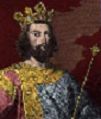




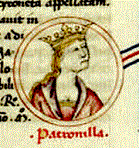
1137 In the summer David I of Scotland invades N England again, and another truce is agreed to until Nov., at which point David demands that Stephen I hand over the earldom of Northumberland to him, and when he refuses, the war continues; meanwhile Earl Robert of Gloucester gets pissed-off at the rising power of Flemish gen. William of Ypres (1090-1165), and the Beaumont twins, Count Waleran of Meulan (near Paris) and Earl Robert of Leicester. On July 8 Eric II (b. 1100) is assassinated at Urnehoved Thing (assembly) by local nobleman Sorteplov, who plovs his way over to him armed with a spear tipped with a kefli (block of wood), then you know what, and when Eric's nephew and heir apparent Erik III Hankonsson Lam ("lamb") (1200-46) comes at him, utters the immortal soundbyte: "Put away thine mace, young Erik, a juicy piece of meat has fallen in your bowl"; after sparing the lucky tipper, Erik III becomes king of Denmark (until 1146), the first Danish king influenced by German knightly culture, since he spent his youth with them and his wife Lutgard of Salzwedel is German. On Aug. 1 French king (since 1108) Louis VI the Fat of France (b. 1081) dies, and is succeeded by his 17-y.-o. son Louis VII Capet (the Young or Younger) (Le Jeune) (1120-80) as yet another long-reigning French Capetian king (#6) (until Sept. 18, 1180); before his accession he marries 15-y.-o. wealthy manly woman Eleanor of Aquitaine (1122-1204), heiress of Duke William II of Aquitaine (Gascony and Guienne or Aquitania Secunda), joining Aquitaine and France, and countering the Anglo-Norman menace in the N by adding territory S of the Loire; he establishes the Fleur de Lis (Flower-de-Luce) (lily) as the royal emblem of France; since he is pious he is popular with the clergy; he is under the influence of Suger until the latter's death in 1151. On Nov. 13 Ramiro II the Monk abdicates as king of Aragon, and gives it to his ally (against Alfonso VII of Castile) Count Ramon Berenguer IV of Barcelona, who became betrothed to his infant daughter Petronila (Petronilla) (Petronella) of Aragon (1136-73) on Aug. 11, with their treaty stipulating that their descendants will rule jointly over both realms but remain autonomous and distinct with their own laws and institutions, a smooth move that protects them both and gives Aragon access to the sea, while balancing out the peninsula against recently separated Leon and Portugal; meanwhile Ramon uses his sister Berenguela, wife of Alfonso VII to smooth over the termination of his pledged submission to Castile. On Dec. 3-4 after sending an army to Rome to conduct Pope Innocent II into the city (which is held by Antipope Anacletus II), Lothair III/II (b. 1075) dies suddenly in Breitenwang in modern-day Austria on his return from his expedition against Roger II of Sicily, and his Welf son-in-law Henry the Proud becomes Duke Henry II Saxony (1108-39) (until Oct. 20, 1139) and margrave of Tuscany (until 1139), vying with Conrad III for the imperial title. After Joscelin II of Edessa mediates a peace between Antioch and Lesser Armenia, the Byzantines under John II Comnenus invade, capturing Seleucia, Korikos, Tarsus, Mamistra, Adana, Til Hamdoun, and Anazarbe, forcing Levon I of Armenia into hiding in the Taurus Mts.; Antioch becomes a vassal to Byzantium. Fulk of Anjou, Latin king of Jerusalem is captured by the Zanghid Turks at Baarin in N Syria, and held for a time. The kingdom of Aragon and counties of Catalonia unite. The Murabitun under Tashfin ibn Ali ibn Yusuf defeat the Castilians near Alcazar de San Juan and sack the castle at Escalona N of the Tagus. Gruffydd ap Rhys (b. 1081) is KIA in battle, and his son Anarawd ap Gruffydd (-1143) becomes king (prince) of Deheubarth in SW Wales. The Normans under Roger II of Sicily conquer the duchy of Naples (Neapolis) in Italy (founded in 661) from Duke Sergius VII, incorporating it into the Kingdom of the Two Sicilies. Shams al-Din Eldiguz (-1176), atabeg of the Seljuk sultan of Baghdad founds an independent dynastic state in Azerbaijan and NW Persia (ends 1225). The Qara-Khitai defeat the Qarakhanids (vassals of the Seljuks) at the Battle of Khodjent (Khujand) in Tajikistan. The Exchange of Mautem between Leopold IV of Bavaria and the bishop of Paussau gives the latter the Church of St. Peter in Vienna in exchange for large tracts of land outside the city walls, except for the spot where the new A great wind (hurricane?) hits Ireland, causing colic. Les Halles market is founded in Paris, becoming known as "the belly of France" (Emile Zola); traffic congestion causes it to be moved 9 mi. S of Paris to Rungis near Orly Airport in 1969. Architecture: Abbot Suger of St. Denis begins rebuilding the Abbey Church of St. Denis (finished 1144). The Romanesque St. Stephen's Cathedral in Stephansplatz, Vienna, Austria is begun by Duke Rudolf IV as a parish church (consecrated 1147). Rochester Cathedral burns down, and is rebuilt. Births: Norman count of Boulogne (1153-9) and earl of Surrey (1153-9) William of Blois (d. 1159); 3rd son of English king Stephen I and queen Matilda of Boulogne; brother of Eustace IV (1130-53); husband of Isabel de Warenne, 4th countess Surrey (-1203), daughter of William de Warenne, 3rd earl of Surrey (-1148), who was the great-grandson of Henry I of France. Spanish king of Leon and Galicia (1157-88) >Ferdinand II (d. 1188); son of Alfonso VII of Leon and Castile (1105-57) and Berenguela of Barcelona (1116-49); brother of Sancho III of Castile (1134-58); husband (1165-75) of Urraca (1148-1211), daughter of Afonso I Henriques of Portugal. Deaths: French breed mare Adela of Normandy (b. 1062) on Mar. 8. Byzantine gen. Nikephoros Bryennios (b. 1062) in Constantinople. German king (1125-37) and HRE (1133-7) Lothair III/II of Luxembourg (b. 1075) on Dec. 3-4 in Breitenwang, Austria. French king (1108-37) Louis VI (b. 1081) on Aug. 1 in Bethisy-Saint-Pierre; buried in St. Denis Basilica, Paris. Danish king (1134-7) Eric II (b. 1090) on July 8 in Urnehoved Ting (assassinated).


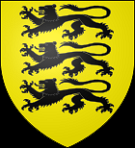





1138 On Jan. 25 Antipope (since 1130) Anacletus II dies, and Innocent II becomes sole pope until Mar., when Gregorio Conti is elected Antipope Victor IV (-1138), but he dies on May 29. Look and feel your best with a beauty career? In Jan. David I of Scotland invades Northumberland for the 3rd time in support of Matilda, stinking himself up with atrocities, incl. murder, blackmail, church desecration, and giving female captives to Gaelic levies as slaves, which shocks the English, who had thought of David as "their" guy, trying to help a woman, er, forget it (really shock at their vaunted cultural and economic superiority being shown up?); in Feb. Stephen rounds up an army and launches a counter-raid into Lothian, but avoids the Scots, and Stephen retreats to England; in June David splits his armies, putting a Gaelic one in charge of his nephew William Fitz Duncan, earl of Moray, who heads to Lancashire and harries Craven and Furness, then defeats a Norman army on June 10 at the Battle of Clitheroe in Lancashire at the S edge of the Yorkshire Dales near Bowland Falls; on Aug. 22 after the Scots take Cumberland, Northumberland, Carlisle, and Bamburgh Castle, and reunite on the S side of the Tyne River, the 3-hour Battle of the Standard(s) on Cowton Moor near Northallerton in Yorkshire on the Great North Road is a big D for the 16K Scots, led by David I, who get their butts kicked by a 10K-man English force led by William le Gros, 1st Earl of Abemarle (-1179), and cheered on by Archbishop Thurstan of York, who fights on a hill behind a chariot carrying a ship's mast topped with a bunch of consecrated you-know-whats (St. Peter of York, St. Cuthbert of Durham, St. Wilfrid of Ripon, St. John of Beverley), and decimates the pesky charging Scots (crying "Albanaich!" - "men of Scotland!") with arrows until they give up and retreat after David's Norman vassals split ranks with him, not wanting to fight against fellow Normans alongside "Galwegians" (Gaels), and the leaders of the latter get killed despite zany charges against arrows while wearing no chain mail; meanwhile a group of English barons rebel on behalf of Matilda, keeping Stephen from following up his V against the Scots, and allowing David to retire to Carlisle Castle with most of his army intact and consolidate his hold on seized territory, agreeing to a 6-week truce in late Sept., then capturing pesky Wark on Tweed (Carham) Castle on the Tweed River in Northumberland in Nov., which had been under siege since Jan. and wasn't mentioned; meanwhile Earl Robert of Gloucester declares for Matilda, and is defeated in Normandy by Count Waleran of Meulan, while his English allies are crushed by Stephen and driven back to Bristol; Castle Cary in Somerset is sieged by Stephen; in 1141 Stephen makes Flemish gen. William of Ypres the new earl of Kent, until Henry II pulls the plug in 1155; Sir Henry Sinclair (1100-65) is rewarded with lands in Cardaine for his services at the Battle of the Standard. On Mar. 7 the clergy, led by Adalbert of Trier elect Lothair III/II's Waiblinger rival Conrad of Hohenstaufen, son of Duke Frederick of Swabia as king Conrad III (1093-1152) of Germany, and he is crowned on Mar. 13 in Aachen, founding the Hohenstaufen (Staufer) Dynasty (Ger. "High Staufen"), named after their late 11th cent. Swabian Staufen Castle on the conical hill named Staufen (Ger. "chalice") in the Swabian Jura of Germany in the district of Goppingen (ends 1254), launching Germany's greatest age until Bismarck, expanding their rule from the Rhine to the Vistula, the Rhone to the Balkans, the Baltic to the Danube, and the North Sea to Italy, with 100 prosperous cities; he is never crowned HRE, but calls himself king of the Romans; after Welf man Henry the Proud (1108-39) (son of Henry IX the Black, and son-in-law of designated heir Lothair III/II) is passed over, pissing him off (esp. as he is the most powerful prince in Germany), and causing him to be too proud to acknowledge him as king, Conrad III immediately deprives him of his duchies, and gives Saxony to Albert the Bear, and Bavaria to his half-brother (via Conrad III's wife Agnes) Leopold IV of Austria, beginning a cent.-long civil war between the Guelphs (Welfs) and Ghibellines. King Boleslav III the Wry-Mouthed of Poland (b. 1086) dies after having divided his hard-won enlarged realm into five principalities (Silesia, Great Poland, Masovia, Sandomir, Cracow) among his sons Wladyslaw II the Exile (1105-59), Mieszko III the Old (1126-1202), Boleslav (Boleslaus) IV the Curly (1127-73), and infant Casimir II the Just (1138-94); Poland begins to disintegrate into small provinces for the next two cents. as the nobility and clergy get more powerful while the royal power goes down the toilet. The Byzantines seize Gaban and Vahka, then capture Levon I of Lesser Armenia along with his wife and children, and they die in captivity in Constantinople in 1140; the Armenian army fights on. The Genoese induce Pope Innocent II to divide jurisdiction over Corsica between them and their rival Pisa (who administered it since 1077), and since only one can remain, the power struggle begins. Pretender Messiahs appear in France and Persia - I'll buy that for a dollar? Waleran de Beaumont (1104-66), son of Robert de Beaumont, 1st Earl of Leicester, and twin brother of Robert de Beaumont, 2nd Earl of Leicester is created the 1st Earl of Worcester by English king Stephen I; too bad, after the 1141 Battle of Lincoln he switches to Matilda's side, and is deprived of his earldom by Stephen in 1145, after which the earldom goes dead for 250 years (until 1397). Births: Kurdish Egyptian-Syrian Ayyubid sultan #1 (1171-93) Saladin (Sala-ha-din) (Salah al-Din Yusuf ibn Ayyub) (d. 1193) in Tikrit, Iraq; son of Kurdish chief Ayyub; younger brother of Turan-Shah (-1180). Polish king (1177-94) Casimir II the Just (d. 1194); son of Boleslav III the Wry-Mouthed. Deaths: Polish king (1107-38) Boleslav III the Wry-Mouthed (b. 1086) on Oct. 28 in Sochaczew. Abassid caliph (1135-6) Ar-Rashid (b. 1109) on June 6 in Isfahan (assassinated by Hashshashins).







1139 In Apr. Pope Innocent II calls the Second Lateran (10th Ecumenical) Council to end the papal schism; the acts of Antipope Anacletus II are annulled, and Roger II of Sicily is excommunicated; Abelard's pupil, Italian Augustinian monk Arnold of Brescia (1090-1155), who calls for the return of Church property to the Roman city govt. and preaches against baptism and the Eucharist is exiled from Italy, and the Arnoldists (Publicans) (Poplecans) and Anabaptist Petrobrussians (who appeared in S France about 1104, led by Peter de Bruys, followed by Henry of Lausanne) are condemned. The happy Christian home people celebrate in Portugal? On July 25 (St. James Day) the badly outnumbered Portuguese defeat the Murabitun at the Battle of Ourique in Alentejo, S Portugal, and on July 26 victorious Count Alfonso (Afonso) I (the Conqueror) (the Founder) (the Great) (1106-85) proclaims himself the first king of Muslim-free Portugal (until Dec. 6, 1185), claiming to have vanquished and slain five Moorish kings; he then calls the first assembly of the estates-gen. of Portugal at Lamego, and is crowned by the bishop of Braga, confirming Portugal's independence from Leon and Castile; later St. James the Great is venerated for allgedly miraculously intervening in the battle, becoming known as the Miracle of Ourique, the founding myth of Portugal. On Sept. 30 after Henry I's daughter Matilda, aided by her half-brother Earl Robert of Gloucester prepares to invade England to claim the throne, they land at Arundel in Norfolk, and civil war is on, forcing Stephen I to send his wife Queen Maud (Matilda) of Boulogne (1105-52) (a Matilda clone to throw off later historyscopers?) to sign a truce with David I of Scotland on Apr. 9, confirming his son Earl Henry in possession of the 1136 estates, plus the earldom of Northumbria, but excluding the key English castles of Newcastle and Bamburgh and the bishopric of Durham between the Tyne and Tees Rivers; David returns his hostages, and Earl Henry marries Ada de Warenne (Adeline de Varenne) (1120-78), sister of one of Stephen's key supporters William de Warenne, 3rd Earl of Surrey (1119-48), binding him into Stephen's service, although David is now out from under the English kings' shadow and is his own man; meanwhile Earl Robert leaves for Bristol, allowing Stephen to blockade Matila in Arundel Castle along with Henry II's 2nd wife Queen Adeliza, but he proves a sport and lets them escape under escort to Bristol, after which Matilda sets up her base in W England and the Severn Valley. On Nov. 12 the Battle of Holmengra sees the supporters of Sigurd II and Inge I defeat Sigurd Slembe and Magnus IV; Magnus IV the Blind is lifted by his loyal guard Reidar Grjotgardsson in his longship to hear what's going on, then both are impaled by the same spear; Sigurd is slowly flayed alive before being executed with max pain. On Oct. 20 Henry the Proud dies unexpectedly while preparing an invasion of Bavaria, and Albert the Bear becomes duke of Saxony; since Henry's Welf son Henry the Lion (1129-95) is underage, Bavaria is given to Babenberg margrave Leopold IV of Austria. The kingless Little Armenians retake Vahka. Grand prince (since 1132) Yaropolk II (b. 1082) dies, and his younger brother Vyacheslav I (1083-1154) becomes grand prince of Kiev; a civil war breaks out, and his cousin Vsevolod II (-1146), prince of Cherngiv allies with the Polovtsi (traditional enemies of the Russians) and takes over (until 1146). Olaf (Olav) (Oluf) II (-1141), son of Eric II's brother Harald Kesja takes over Scania (S Sweden), and gets in a war with Danish king Eric III, trading raids, and finally killing the bishop of Roskilde, which gets him excommunicated by the pope and dooms him. English king Henry I's former royal marshal (head of the king's household troops) John FitzGilbert the Marshalof the Horses (1105-65), who won the right to make his title hereditary, then switched to Stephen I after Henry I died in order to gain the choice castles of Marlborough and Ludgershall and gain control of the Kennet River Valley in Wiltshire, decides to switch back to Empress Matilda. After an earthquake, Demetre I of Georgia raids Ganja in Azerbaijan and brings back its iron gate, but loses the city in a few years. After being appointed by King Stephen, Normandy-born Theobald of Bec (1090-1161), patron of Thomas Becket becomes archbishop of Canterbury (until Apr. 18, 1161), getting into a war over his authority with Henry of Blois, bishop of Winchester, who is backed by the king's younger brother, causing his relationship with kingy to get dicey too. Irish archbishop of Armagh (1132-8) (St.) Malachy (1094-1148) journeys to Rome via Scotland, England, and France, where he visits St. Bernard of Clairvaux, and becomes papal legate for Ireland before returning, writing St. Malachy's Prophecy of the Succession of the Popes, which becomes near and dear to Millennium Feverists, predicting all 110 future popes through Pope Paul II, and naming only two more, the last to be called Peter the Roman, who will preside over the end of the Church and the coming of Christ. French Cistercian abbot Bernard of Clairvaux (1090-1153) writes the first Rules of the Monastic Knights Templar Order, which by papal bull is declared under the protection of the church of Troyes and under the direct authority of the pope, "a law unto themselves", bypassing all other temporal and spiritual authority, and soon expanding into every Christian country, going into banking, lending money to bankrupt royals at interest, and amassing vast estates - is this because they finally found the secret documents under Herod's Temple in Jerusalem and blackmailed the pope with exposure of the faulty foundation of his male supremacist church? You're just a ho-o-ome-wrecker? The monk Gratian (teacher of law at Bologna) finishes the Decretrum of Gratian, a systematic treatise on the ecclesiastical (canon) law; it claims that there is a heavenly empire and an earthly empire over which the Pope with a Capital P rules Supreme with a capital S, and becomes a textbook for clerical lawyers seeking to encroach on the jurisdiction of lay courts to let clergymen get off with slaps on the wrist for homicide and other crimes (ecclesiastical courts cannot inflict any penalty involving the drawing of blood, and burning is for witches and heretics, not the clergy) - the original U.S. federal bankruptcy court? The Roman Catholic Church bans bows and crossbows as immoral "murderous art" not to be used against Christians - Jews and Muslims, let 'em fly? Births: Japanese emperor #76 (1142-55) Konoe (Narihito) (d. 1155) on June 16; 8th son of Toba (1103-56). Dutch/German writer Hendrik van Veldeke (d. 1191) in Holland. Italian surgeon Rogerius Salernitanus (Roggerio dei Frugardi) (d. 1195) in Salerno. Deaths: Bavarian duke (1126-39), Saxon duke (1137-9) and Tuscan margrave (1137-9) Henry X the Proud (b. 1108) on Oct. 20 in Quedlinburg Abbey. Norwegian king Magnus IV the Blind (b. 1115) on Nov. 12 in Hvaler Island (KIA).

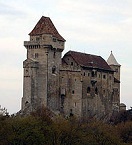
1140 The Battle of Weinsberg features the "welf" war cry of the pro-papal anti-imperialist Welf (Guelf) (Guelph) party in Italy (whence its name) in its war against the pro-German-emperor Ghibellines (from Ghibellino, the Italian name for Waiblingen, the Hohenstaufen estate in Franconia). On Feb. 14 Sobeslav I Ulrich dies, and his nephew Vladislaus (Vladislav) (Ladislaus) II (1110-74) becomes king of Bohemia (until 1172), continuing the policy of supporting the German emperors. Sicily becomes home of the original Jolly Roger? Roger II of Sicily (1095-1154) defeats Pope (since 1130) Innocent II, takes him prisoner, and forces recognition of his royal title, creating a commercial Mediterranean empire while seeking to avoid invasion by the Greek and Holy Roman emperors, becoming one of the richest monarchs in Europe, ruling a cosmopolitan kingdom with a mixed Latin, Greek, and Arab pop., and a learned court hosting scholars incl. Henry Aristippus (1105-62) (tr. of Plato's "Phaedo" and Aristotle's "Meteorologica"), Eugenius (Eugene) of Palermo (1130-1202) (tr. of Ptolemy's "Optics"), and Arab geographer Muhammad al-Idrisi (1100-65); his palace has decorations with a strong Persian influence. Oh yah by the way she moves she's got me tied up and I got nothin' to lose? David I of Scotland and his son Earl Henry (whom he designates as his heir and gives an active role in govt. to) found a Cistercian monastery at Newberryto atone for their army's atrocities in 1138? Mother Kilwinning Freemason Lodge in Kilwinning, Scotland is allegedly founded by stonemasons from the continent who built Kilwinning Abbey, ecoming Scottish Grand Lodge Number 0 (Nothing). The neo-Manichaean anti-clerical Albigenses religious sect of Langedoc in S France, named after the town of Albi (ancient Albiga) NE of Toulouse is founded in this decade by traders from the Byzantine Empire and/or E Europe (Bulgaria, Thrace) in Cologne, spreading to France and Lombardy in N Italy, along with the (same group?) dualistic gnostic Cathari (Gr. "katharoi" = pure ones) (AKA Bons Hommes et Bonnes Femmes, Bons Chretiens) religious movement in Languedoc; after being declared heretics in 1209, they are severely persecuted in Languedoc in 1209-1229, and exterminated by the 1320s. The town of Braslovce in Styria (modern-day N Slovenia) is first mentioned. Architecture: Liechtenstein ("bright stone") Castle is built near Maria Enzerdorf, Lower Austria on the edge of the Wienerwald (Viennese Forest) near Austria, becoming the ruling house of Liechtenstein untili the 13th cent. and again from 1807; it is destroyed by the Ottomans in 1529 and 1683, and rebuilt in 1884, later becoming home to the Nestroy Summer Theatre Festival. Births: English (Welsh) Goliardic poet-satirist (archdeacon of Oxford) Walter Map (Mapes) (d. 1209) in Hereford; educated at the U. of Paris. French Occitan troubadour (in England) Bertrand de Born, Baron (Vicomte) de Hautefort (Haute-Fort) (d. 1215). French heretical preacher (founder of the Waldensians) Peter Waldo (Valdo) (Valdes) (Waldes) (Pierre Vaudes or de Vaux) (d. 1205) in Limousin. Deaths: English archbishop (of York) Thurstan (b. ?) on Feb. 6 in Pontefract; dies after entering the Cluniac Order. Bohemian duke (1125-40) Sobeslav I (b. ?) on Feb. 14 in Hostinev Hradek.

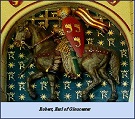


1141 On Feb. 2 Empress Matilda's supporters, led by her half-brother (eldest bastard son of Henry I, known for his education) Robert de Caen, 1st Earl of Gloucester (1090-1147) defeat and capture Stephen I at the First Battle of Lincoln (1217, 1878), and imprison him in Bristol, and after clevely escaping a Norman castle in Devizes in S England disguised as a corpse, and being joined by her uncle David I of Scotland, on Apr. 7 Empress Matilda (Maud) (1102-67) is proclaimed queen in London (until 1148), preferring the title of Lady of the English, like Alfred the Great's daughter Ethelfleda (Lady of the Mercians); too bad, she goofs in refusing the Londonders' timely request to halve their taxes, causing them to shut the city gates to her on June 24, reigniting the civil war; she then goofs again by trying to capture Winchester, and is surrounded while sieging Wolvesey Castle (built in 1130-6 by Stephen's brother Henry of Blois, Bishop of Winchester) on the Itchen (Aire) River in Hampshire, resulting on Sept. 14 in the epic Rout (Battle) of Winchester, where the earl of Gloucester is captured in a rearguard action by the forces of Stephen I's wife Matilda of Boulogne, and held for 2 mo. in Rochester Castle until Empress Matilda exchanges him for Stephen on Nov. 1 (during which exchange the earl assures Stephen that the fight is nothing personal), which causes the gymnophobe clergy to jump and dethrone her and declare for Stephen; meanwhile Matilda flees Winchester to the protection of John FitzGilbert the Marshal at Ludgershall Castle, who is attacked while covering her flight, takes refuge in Wherwell Abbey, then loses an eye to dripping lead from the melting roof after they fire the bldg.); David I narrowly avoids capture at Winchester, and barely escapes back to Scotland, deciding to stick to tightening his grip on N England, Durham, NW Yorkshire, and N Lancashire; John the Marshal scores another coup by divorcing his old bag and marrying Sibyl, sister of constable Patrick of Salisbury (1120-68) in exchange for flopping his support from Stephen I to Matilda and being created the 1st earl of Salisbury in 1145; John later sends his new son William the Marshal (b. 1146) to live with him, where he learns the art of knighthood and begins his rise to #1 knight of all time - yi yi yi, I wished I lived back then? On Feb. 13 Bela II the Blind (b. 1110) dies of alcoholism, and his tennie son (by wife Helena of Serbia) Geza II (1130-62) becomes king of Hungary (until May 31, 1162), with his mother Queen Ilona as regent. On May 25 the Council of Sens (ual?) (convened in 1140), led by St. Bernard de Clairvaux condemns the theology of castrated nun-lover Peter Abelard (1079-1142) as heretical, causing Pope Innocent II to order him to remain silent, and he leaves for Rome to try to reverse the decision, then stays at the monastery of Cluny with abbot Peter the Venerable to lead a life of study and prayer until he croaks - I'm single, rich, and live at the beach, I'm OK with reality? On Sept. 9 after being invited by the Khwarazmians to conquer Seluk lands, 20K+ Kara-Khitai plus 30K-50K karluk horsemen from N China decisively defeat 70K-100K Seljuks under Sultan (1118-57) Ahmed Sanjar (1084-1157) of Khorasan and Garshasp II (-1141) of Yazd at the Battle of Qatwan Steppe N of Samarkand, killing 11K-110K and capturing several Seljuk cmdrs. and Sanjar's wife; Garhasp is KIA; Sanjar loses all but 15 of his elite horsemen, losing all Seljuk territory E of the Syr (Jaxartes) River; Khwarazm becomes a vassal of the Kara-Khitai; the basis for the Prester John legend? On Oct. 18 Leopold IV the Generous (b. 1108) dies, and his elder brother Henry (Heinrich) II Jasomirgott ("Yes, God Willing?") (1112-77), who had become the first count palatinate of the Rhine last year becomes margrave of Austria and duke of Bavaria (until 1156). Pope Innocent II and King Louis VII of France begin a dispute over who should be archbishop of Bourges, causing Louis VII's lands to be placed under papal interdict. Olaf II of Scania is defeated and KIA by Eric III of Denmark at the Battle of Helsingborg; an alleged illegitimate son of his tries a revolt in 1182 - go Beowulf? Japanese emperor (since 1123) Sutoku (b. 1119) retires to a monastery in favor of his younger brother (great-nephew?), retired emperor Toba's 8th son Konoe (1139-55), who becomes Japanese Yamato emperor #76 (until Aug. 22, 1155), with Toba still running things from the monastery; Konoe becomes the last Japanese emperor to build an imperial prayer temple; meanwhile retired emperor Sutoku is without powers, causing workaholics to rock the boat? The town of St. Andrews in Fife, E Scotland (modern-day pop. 16.8K) is founded by Bishop Robert, later becoming the official ecclesiastical capital of Scotland, and the home of golf in 1754. Architecture: The Monastery of St. Bernard de Clairvaux in Segovia, Spain (begun 1133) is finished; in 1925 William Randolph Hearst has it dismantled into 35K pieces and shipped to New York City, where it is impounded because of a hoof-and-mouth outbreak in Segovia, and all the hay packaging burned, scrambling the pieces; it then sits in a Brooklyn warehouse until 1952, when it is reassembled in North Miami Beach, Fla. Births: Scottish Canmore king (1153-65) Malcolm IV (d. 1165) in Apr./May; eldest son of Earl Henry of Huntingdon (-1152) and Ada de Warenne; grandson of David I; brother of William I (1143-1214). French Christian Crusader Balian of Ibelin (d. 1193) (b. 1143?); youngest son of Barisan of Ibelin (-1150); brother of Hugh of Ibelin (1130-71) and Baldwin of Ibelin (1131-88). Persian "Layla" Romantic poet Nezami (Nizami) Ganjavi (d. 1209) in Ganja, Aran, Azerbaijan. Indian ascetic mystical Sunni Muslim Chishti Order founder Moinuddin Chishti (Chishti Mu'in al-Din Hasan Sijzi) (Khwaja Ghareeb Nawaz) (d. 1236) in Herat, Afghanistan. Deaths: Jewish poet-philosopher (in Spain) Jehuda Halevi (b. 1081) in Jerusalem; leaves The Book of the Kuzari: The Book of Proof and Evidence in Support of the Abased Religion, a dialogue between a rabbi and the pagan king of the Khazars on Judaism, claiming that God must be accessed through tradition and devotion, not philosophical speculation. Austrian margrave (1136-41) and Bavarian duke (1139-41) Leopold IV the Generous (b. 1108) on Oct. 18 in Niederaltaich, Bavaria. Hungarian Arpad king Bela II of Hungary (b. 1110) on Feb. 13.


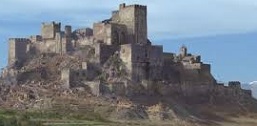
1142 In June Robert de Caen, 1st earl of Gloucester crosses to Normandy to get help for his half-sister Matilda, and returns without reinforcements, finding that she had been trapped and almost captured in Oxford, but escaped to Wallingford by fleeing over the snow camouflaged in a white cape; the civil war grinds to a stalemate. Alfonso I Henriques, with the help of the Knights Templars attacks Muslim-held Lisbon. Albert the Bear makes peace with Henry the Lion, son of Henry the Proud, and becomes duke of Saxony. Louis VII of France begins a 2-year war against Count Theobald II the Great of Champagne (ends 1143), seizing Vitry-le-Francois and killing 1K residents after setting the church on fire. Eystein II (1125-57), who was born and raised in Scotland or Ireland arrives in Norway and claims to be a brother of Norwegian co-kings Sigurd II, Magnus V, and Inge I, and since daddy Harald Gille had acknowledged him before dying, he becomes a 4th co-king, each sharing the whole country; luckily Magnus soon dies (so he loses his number?) - the orginal Eystein's theory of relativity? The Nestorian patriarch and Jacobite primate formally reconcile. Architecture: A small Kurdish castle on the road between the Muslim city of Homs and the Christian city of Tripoli on the E end of the Mediterranean, captured in the First Crusade, is given by the Christian Count of Tripoli to the Knights of the Hospital of St. John of Jersualem, who over the next 150 years build it up into Krak des Chevaliers (Crag of the Knights), the most impregnable fortress in the world (never taken by direct attack) (see 1271). Kerak Castle (Crac des Moabites) (Krak of the Desert) is built in Moab E of the Dead Sea (modern-day Jordan) by Pagan the Butler (-1148), butler of Baldwin II of Jerusalem, becoming one of the largest Crusader castles; in 1189 it is captured by Saladin. Births: Arab Abbasid caliph (1170-80) Al-Mustadi (Hassan al-Mustadi ibn Yusuf al-Mustanjid) (d. 1180); son of Al-Mustanjid (1124-70); father of Al-Nasir (1158-1225). French duke of Burgundy (1162-92) Hugh III (d. 1192); eldest son of Eudes II (1118-62) and Marie de Champagne (daughter of Theobald and Mathilda of Carinthia). Deaths: English-born Norman chronicler Orderic Vitalis (b. 1075) in Saint-Evroult Abbey, Normandy; leaves Historia Ecclesiastica (Ecclesiastical History of England and Normandy) (13 vols.); the greatest English social history of the Middle Ages, covering from the birth of Christ through the defeat and capture of King Stephen at Lincoln in 1141, plus a history of his abbey; heavy on the history of William the Conqueror and his three sons Robert Curthose (1051-1134), William II Rufus (1056-1100), and Henry I Beauclerc (1068-1135); the years before 1067 are taken from William of Jumieges and William of Poitiers. French philosopher-lover Peter Abelard (b. 1079) in Chalon-sur-Saone at the Priory of St. Marcel; his body is returned to the Paraclete, where Heloise dies in 1164, their remains laid side-by-side; in 1808 their ashes are taken to Paris, and in 1817 they are buried in a single tomb in the cemetery of Pere Lachaise in Paris; Abelard leaves Sic et Non ("Yes and No", "Thus and Otherwise"), presenting conflicting theological arguments on 158 problems without solutions to show that truth must be attained by weighing opposing positions of authorities; also leaves Know Thyself, or Ethics; 25+ of his pupils become in-the-fashion-zone cardinals.




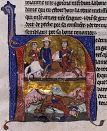
1143 On Apr. 8 John II Comnenus (b. 1118) cuts his hand on a poisoned arrow while boar hunting on Mount Taurus in Cilicia, dying of septicemia several days later, and on Apr. 5 his son Manuel I Comnenus (Komnenos) (1118-80) becomes Roman Byzantine emperor #155 (until Sept. 24, 1180) after being chosen over his older brother because of valor in battle, going on to keep up the family name, becoming the #1 Comnenus, putting pressure on Hungary to keep it in turmoil; under his reign Constantinople is acknowledged as the capital of the Western world and the center of culture; his chasing of the elusive mirage of a new universal Roman Empire causes him to marry a Latin babe (Princess Maria of Antioch) (his first wife is Irene, sister-in-law of Conrad II), employ Latin nobles and intermarry them with the Greek aristocracy, get tough with the Hohenstaufen emperors and Normans, and engage in costly campaigns in the Mediterranean for little gain, all of which plays into the hands of the Seljuks of Rum, who use it as breathing space to recover while he bankrupts his empire?; Manuel I believes in the AIMA Prophecy, which predicts that the names of the Comnenus emperors will spell aima, the Greek word for blood, causing him to name his son (by his 2nd wife Maria of Antioch) Alexius II. On Oct. 5 self-proclaimed Spanish emperor Alfonso VII of Leon finally recognizes the independence of Portugal in the Treaty of Zamora, with king (since July 26, 1139) Afonso I Henriques (1109-85) as king #1 (until Dec. 6, 1185), and marries Petronila of Aragon (daughter of Ramiro II the Monk of Aragon) to Count Ramon Berenguer IV of Barcelona, uniting Aragon and Catalonia. On Nov. 13 king (since 1131) Fulk of Anjou falls (b. 1089) of his horse and dies in Acre, and on Dec. 25 his 13-y.-o. son Baldwin III (1130-63) becomes Latin king #4 of Jersualem (until Feb. 10, 1163) under his regent mother Queen Melisende, presiding over the decay of Latin power in the East after inheriting his daddy's lack of attention to the Crusader states. Louis VII of France occupies Champagne - a toast? The Rome-Tivoli War ends in a Roman V, and Pope Innocent II refuses to let the Romans destroy the town, pissing-off the Roman pop.; in late fall the Communal Revolt in Rome against Church and aristocratic rule, led by Giordano Pierleoni (son of consul Pier Leoni and brother of Antipope Anacletus II) begins (ends 1155), causing Rome to become a free city for the first time in 300 years, with communal status and a new 56-member Roman Senate consisting of four elected reps from each of the 14 districts of ancient Rome), with Pierleoni as the first patrician (the title of consul is nixed because it sounds too aristocratic?), calling for the pope to wise up, renounce all secular authority, and live as a common priest before being allowed to enter the city; on Sept. 24 Pope (since 1130) Innocent II dies, and on Sept. 26 Guido of Citta di Castello is elected Pope (#164) Celestine II (-1144), immediately lifting Innocent II's interdict on France. Hugh II (b. 1084) dies, and his eldest son Eudes (Odo) II (1118-62) succeeds as duke of Burgundy (until 1162). Anarawd ap Gruffydd is murdered, and his brother (son of Gruffydd ap Rhyd) Cadell ap Gruffydd (-1175) becomes ruler of the Welsh kingdom of Deheubarth. Peter the Venerable of Cluny delivers a speech to Louis VII, condemning the Jews of Narbonne because they still claim to have a king residing among them despite a coverup of the Jewish Kingdom of Septimania; next year Theobald, a monk in Cambridge, Gngland utters the soundbyte: "The chief princes and rabbis of the Jews who dwell in Spain assemble together at Narbonne where the royal seed resides." Lubeck (Lübeck) in NW Germany (modern pop. 250K) is founded; original name is Liubice ("beautiful"). Nonfiction: Robertus Ketensis (1110-60), Lex Mahumet Pseudoprophete (The Law of Mahomet the Pseudo-Prophet); first Latin trans. of the Quran, made at the request of Peter the Venerable, abbot of Cluny. Births: Japanese emperor #79 (1158-65) Nijo (Morihito) (d. 1165) on July 31; eldest son of Go-Shirakawa (1127-92); father of Rokujo (1164-76). Scottish Canmore king (1165-1214) William I the Lion (Garbh = the Rough) (d. 1214) (b. 1142?); 2nd son of Earl Henry and Ada de Warenne; brother of Malcolm IV (1141-65); 2nd longest reign in Scottish history (49 years) after James IV (58 years). Deaths: French duke of Burgundy (1103-43) Hugh II (b. 1084). Byzantine emperor (1118-43) John II Comnenus (b. 1088) in Apr. in Cilicia (hunting accident). French count and Latin king Fulk of Anjou (b. 1089) on Nov. 13 in Acre; falls from his horse while hunting and gets crushed by the saddle, causing his brains to gush out of his nose and ears, then takes three days to die in Jerusalem; buried in the Holy Sepulchre. English historian William of Malmesbury (b. 1095).





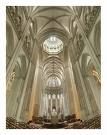

1144 An epidemic rocks Connacht and Munster, Ireland this year and next. On Mar. 20 (Mon. after Palm Sunday) or Mar. 22 (Wed.) (day before Passover) Christian tanner's apprentice St. William of Norwich (b. 1132) is allegedly murdered by Jews Christ-style in Norwich, England to provide them with ritual blood, and his body is found on Mar. 25 (Sat.) in Thorpe Wood, causing the Jews to be blamed, and the Jewish quarter to be sacked and burned; William is canonized after Benedictine monk Thomas of Mounmouth pub. a Latin work about him in 1173 titled "The Life and Miracles of St. William of Norwich", claiming to be there; the first time the Jews are accused of ritual murder, but not the last, as the horrible bloody images of what Jews might be doing to Christians to make their yummy matzoh prove addictive to anti-Semites - the Medieval version of porno? On May 8 after allowing monk Arnold of Brescia (1090-1155) to return to Italy (where he soon begins agitating for a dem.-repub. form of govt. with no pope, causing a popular uprising), Pope (since 1143) Celestine II dies after a reign of 5 mo. holed-up in a fortified monastery, and on Mar. 9 Gherardo Caccianemici dal Orso is elected Pope (#165) Lucius II (-1145) (until Feb. 15, 1145). On Nov. 28-Dec. 24 after Atabeg (ruler) Imad al-Din Zengi (1085-1146) of Mosul leads a Muslim jihad against the Christian Franks in the Holy Land, he sieges and captures Edessa (Urfa), and destroys the oldest Crusader principality of Outremer (founded 1098), becoming the first Crusader state to be eliminated; Mosul is on its way to becoming cock of the Muslim walk and mastering Egypt?; early next year the bad news is brought back to Europe by returning pilgrims. Berengar Raymond I (b. 1115) dies in an offensive against Genoa, and his son Raymond Berengar (Ramon Berenguer) II (1135-66) succeeds him as count of Provence (until 1166); after the Baux family challenges him, his uncle Ramon Berenguer IV of Barcelona secures his position by 1147 via military action, although they continue to fight until 1162. The Sufi Muridun ("Disciples") under founder Abul-Qasim Ahmad ibn al-Husayn al-Qasi (-1151) rebel in the Algarve; Ibn al-Mundhir takes Silves in his name, and Sidray ibn Wazir, gov. of Beja also supports him; Ibn al-Mundhir and Ibn Wazir kill the garrison of Monchique castle, and 70 men take Mertola by surprise on Aug. 12; soon afterward the Andalusian gov. of Niebla, Yusuf ibn Ahmad al-Bitruji declares for the Muridun; the Murabitun Yahya ibn Ali ibn Ghaniya drives the Muridun back from Seville, and subsequently Sidray ibn Wazir splits off from the other Muridun. Geoffrey V of Anjou conquers Normandy and becomes its duke, surrending half of the Vexin to Louis VII of France. The city of Montauban on the right bank of the Tarn River at its confluence with the Tescou River 31 mi. N of Toulouse in S France (modern-day pop. 61K) is founded with lands taken from the abbey by Count Alphonse Jourdan (Alfonso Jordan) of Toulouse (1103-48). Architecture: On June 11 the light airy Gothic Abbey Church of St. Denis (begun 1137), designed by Abbot Suger (1081-1151) is consecrated by Louis VII as the burial church of the French monarchs, becoming the first Gothic edifice, using an anon. architect who invents ribbed vaults to give decorative lightness, as well as shafts to envliven the masonry; Suger issues the soundbyte: "The most radiant windows... iluminate men's minds so that they travel through apprehension of God's light"; since France is in the midst of a great communal cathedral-bldg. movement, the style spreads to the cathedrals of Paris (Notre Dame), Chartres, Reims, Amiens, and Beauvais - the original light relief system for arthritis? Inventions: The first paper mill in Europe is founded in Xatirah (modern-day San Felipe, Spain) in Valencia by the Muslims, who stole the process from China. Nonfiction: Robert of Chester (tr.), Liber de Compositione Alchemiae (Book of the Composition of Alchemy) (Feb. 11); first book on alchemy in Europe. Births: French romantic poet (first known trouvere (trouvère) (trouveur)) Chretien (Chrétien) Troyes (d. 1190) in Troyes. Christian prince of Antioch (1163-1201) Bohemond (Bohemund) III (the Child) (the Stammerer) (the Stutterer) (1144-1201) (d. 1201); son of Raymond of Poitiers (1115-49) and Constance of Antioch (1128-63). Iraqi Sufi scholar Abu Hafs Umar al-Suhrawardi (d. 1234) in Baghdad; founder of the Suhrawardiyya Sufi Order. Deaths: French count of Provence (1115-44) Berengar Raymond I (b. 1115). English martyr St. William of Norwich (b. 1132) on Mar. 20 (Mar. 22) in Norwich (martyred).

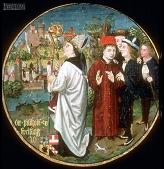

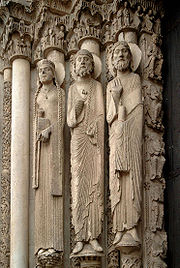
1145 In Jan. the Cordovans evict the Murabitun gov., and elect Hamdin ibn Huhammad ibn Hamdin as emir; in Mar. Sayf al-Dawla (Zafadola) (Ahmad III Abu Jafar ibn Abd al-Malik al-Mustansir) (-1146), a Zaragozan adventurer in Castilian employ briefly seizes power from Ibn Hamdin, but flees to the Levant due to popular hostility, and Ibn Hamdin returns to power but is soon overthrown by the Murabitun under Yahya ibn Ali ibn Ghaniya. On Feb. 15 after Arnold of Brescia (who likes to crusade against the immorality of the clergy) goes to Rome and whips up the good ole pope-free Roman Senate to declare Rome independent of the papacy, with its temporal power abolished, Pope Lucius II is killed leading a small army against the Roman Senate, and on the same day Bernardo Pignatelli (Cisterian monk Bernard of Pisa) is elected Pope (#166) Eugene (Eugenius) III (-1153) (first Cistercian pope); the Roman pop. then rises and deposes Giordano Pierleoni, and invites Eugene III back; on Dec. 1 in response news of the fall of Edessa, from Bishop Hugh of Jabala (Gebal) (modern-day Lebanon), Eugene III issues the bull Quantum Praedecessores in Viterbo, proclaiming the Second Crusade, becoming the first bull on the subject of a Crusade, calling for the strongest kings of Europe to lead it, and for a route to be planned in advance; too bad, there is a ho-hum response; meanwhile Bishop Hugh of Jabala also tells bishop-historian Otto of Freising (1114-58) stories about King Prester John (John the Priest), the leader of the Nestorian sect (who aided Mongol conqueror Yeh-lu Ta-shih in his conquests), descended from one of the three Magi who visited infant Jesus, claiming he is willing to help the Crusaders, whipping the pope up; fabulously wealthy, he sleeps on a bed of sapphires, rides dragons through the air, has a fountain of youth and is 562 years old (b. 583?); meanwhile the anarchy in Rome causes Pope Eugene III to leave, and Giacomo da Vico is elected next year as the new patrician (until 1152); after arriving in Paris, Eugene III goes in pomp to the cathedral, which was in the Jewish quarter, where the Jews send a delegation to present him with a Torah, and he blesses them before eating paschal lamb with the king. In Mar. the Andalusian Jund in Valencia raise up the qadi Marwan ibn Abd al-Aziz as emir; when he can't pay them, in Nov. they replace him with their own leader Ibn Iyad. At the end of the year Philip of Gloucester, son of Robert, 1st Earl of Gloucester defects to Stephen I's side, bringing the strategic castles of Cricklade and Circenester with him. Here's the evil he's become? On Dec. 25 to atone for his guilt in the massacre at Vitry-le-Francois, French king (since Aug. 1, 1137) Louis VII the Younger (1120-80) in Bourges declares his intention going on a pilgrimage to the Holy Land, but Abbot Suger and the nobles try to talk him out of it, causing him to consult St. Bernard of Clairvaux, who tells him about the papal bull and refers him to Pope Eugene III, who talks him into it. The French commune of Rouen is chartered. Architecture: The Knights of St. John of Jerusalem found their first settlement in Germany in Duisburg, and build the Hohenstaufen Salvator Church. The stone bridge over the Danube River in Regensburg, Germany (begun 1135) is completed. Nonfiction: Robert of Chester (tr.), Liber algebrae et almucabola (The Compendious Book on Calculation by Completion and Balancing); tr. of "Al-kitab al-mukhtasar fi hisab al-gabr wa'l-muqabala" (820) by Al-Khwarizmi (780-850), coining the terms "algebra" (Arab. "reuniting", "restoration"), "algorithm, and "x" for the uknown quantity, along with "sine" after mistranslating the Arabic word "jb" as bay or inlet, which becomes sinus in Latin. A row of sculptures in the Western (Royal) Portal of Chartres Cathedral in France revolutionizes Romanesque Art by telling a narrative story, launching Gothic Art; the Virgin is turned into a refined aristocratic lady, who finally cuddles Baby Jesus. Births: Byzantine empress (1180-2) Maria of Antioch (d. 1182); daughter of Raymond of Poitiers (1115-49) and Constance of Antioch; wife of Manuel I Comnenus (1118-80); mother of Alexius II Comnenus (1169-83). French Crusader king of Jerusalem (1197-1205) and lord of Cyprus (1194-6) Aimery (Amalric) (Amaury) II of Lusignan (d. 1205) in Lusignan, Poitou; son of Hugh VIII of Lusignan (1106-71); brother of Geoffrey of Lusignan and Guy of Lusignan (1150-94); husband (1179-96) of Eschiva of Ibelin (1160-96) (daughter of Baldwin of Ibelin) and (1197-1205) of Isabella I of Jerusalem; father of Hugh I of Lusignan (1194-1218). Persian Sufi poet Farid al-Din Attar (Abu Hamid bin Abu Bakr Ibrahim) (d. 1221) in Nishapur. Uzbekistani Sufi leader Shaykh Najm al-Din Kubra (d. 1221).




1146 On Feb. 5 after Alfonso VII sends him three of his best knights to help him in a dispute with the Christian Spanish, Sayf al-Dawla is KIA in the Battle of Chinchilla near Chincilla de Montearago, ending the Hudid line. On Mar. 1 Pope Eugenius III reissues his bull calling for a new Crusade, granting the same indulgences that Pope Urban II granted for the First Crusade, and authorizes his mentor St. Bernard of Clairvaux (1090-1153) to preach it throughout France, starting at the French parliament in Vezelay, Burgundy on Mar. 31, where Louis VII, his wife Eleanor of Aquitaine, and all the princes and lords prostrate themselves at his feet to receive the pilgrims' cross, causing attacks on Jews; he induces German king (since 1138)Conrad III (1093-1152) to join it by Christmas, leaving with an army of 20K men heading for Hungary - I only have 12 bullets so you're gonna have to share? On Sept. 14 Turkish atabed (since 1127) Imad al-Din Zengi (b. 1085) of Syria dies in Damascus, and his youngest son (of two) Nureddin (Nur ad-Din) (Arab. "Light of the Faith"") (Nur ad-Din Abu al-Qasim MaHmud ibn Imad ad-Din Zengi) (1118-74) inherits the W portion of his father's kingdom based in Aleppo, devoting his career to kicking Frankish Crusader butt; his older brother Saif ad-Din Ghazi I (-1149) inherits Mosul. In the fall Robert, 1st earl of Gloucester begins negotiations with Stephen after Gloucester and Bristol are threatened. The repub. revolt in Rome causes Pope Eugene III to flee to France. After his younger half-brothers drive Vladislaus the Exile into, er, exile, Duke of Masovia (since 1138) Boleslav (Boleslaw) (Boleslaus) IV the Curly (1120-73) becomes Piast king (high duke) of Poland based in Krakow (until 1173) - nyuk nyuk nyuk? Al-Mustansir accepts the crowns of Valencia and Murcia from the hands of Ibn Iyad; the Christians defeat the Valencians under Al-Mustansir near Albacete on Feb. 5, killing Al-Mustansir in the process; Ibn Iyad reassumes the title of emir; Ibn Iyad dies in some pitiful conflict in Aug., and Muhammad ibn Sad ibn Mardanish becomes ruler. Danish king (since 1137) Eric III (b. 1100) gets sick, abdicates and enters a convent in Odense on Flyn (Funen) Island, then dies on Aug. 27; Sweyn III (1125-57) is elected king in Zealand, while his rival Canute V rules in Jutland (until 1152). The Repub. of Avignon (founded 1135) becomes part of Venaissin (until 1348). Grand prince (since 1139) Vsevolod II dies, and his brother Igor II (-1147) becomes grand prince of Kiev, only to be dethroned after a few mo. by his cousin Izyaslav II Mstislavich (1096-1154), who becomes grand prince of Kiev (until 1149), going on to invent a new warship with hidden oarsmen and two helmsmen so it can reverse course without turning around; meanwhile Vyacheslav (-1154) waits in the wings. The first written mention of the town of Bryansk (Debryansk) ("dense woodland") on the right bank of the Desna River 235 mi. SW of Moscow (modern-day pop. 426K) in the Hypatian Codex; in 1503 it is conquered by the Grand Duchy of Moscow, which turns it into a fortress; in 161034 it is occupied by the Polish-Lithuanian Commonwealth; in the 17th-18th cents. its economy is based on the annual Svenskaya Fair, largest in European Russia; in 1783 it becomes a manufacturing center for cannons and ammo for the Imperial Russian Navy. The Atlantic Ocean port city of Rabat, Morocco (Ribatu i-Fath = "stronghold of victory") at the mouth of the Bou Regreg River (modern-day pop. 577K/2.1M) opposite the ancient city of Sale (Salé) (Sallee) (Salli) in NW Morocco (founded ca. 1030) (modern-day pop. 890K) starts as a fortress built by Almohad ruler Abd al-Mu'min, becoming a favorite port for Barbary pirates in the 16th-18th cents. Nonfiction: Anon., Antidotarium Niclai; a treatise on drugs. Bishop Otto of Freising (1114-58), Historia de Duabus Civitatibus (History of the Two Cities) (8 vols.); a world history ending in 1146, taking the line of St. Augustine and Orosius that the Earthly City (Babel) sucks compared to the Heavenly City (Jerusalem); the first mention of Nestorian Christian king Prester John, who is viewed as a potential savior of the Crusader states; continued to 1209 by Abbot Otto of St. Blasius (-1223). Births: Norman soldier-statesman ("Greatest Knight Who Ever Lived" - Stephen Langton) William the Marshal (Marshall) (Gillaume le Marechal), 1st Earl of Pembroke (d. 1219); son of Sybil de Evereaux and John the Marshall (1105-65); husband (1189-) of Isabel Fitzgilbert de Clare (1172-1220). Deaths: Turkish atabeg of Mosul (1127-46) Imad ad-Din Zengi (b. 1085) on Sept. 14 in Damascus. Danish king (1137-46) Eric III (b. 1100) on Aug. 27 in Odense, Fyn (Funen) Island. Moroccan Sufi scholar Ali ibn Hirzihim; pushed the works of al-Ghazili.

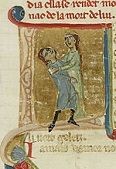


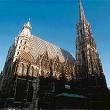
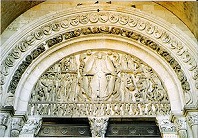
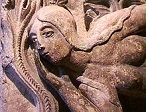
1147 In Jan. Alfonso VII of Leon-Castile captures Calatrava. On Apr. 6 Duke Frederick II the One-Eyed of Swabia (b. 1090) dies, and his son Frederick I Barbarossa (b. 1122) becomes Hohenstaufen duke of Swabia #3 (until 1122), combining the Hohenstaufen line through him and the Welf line through his mother Judith, daughter of Duke Henry the Black of Bavaria. In June Louis VII of France sets out for the Second Crusade from the Basilica of St. Denis with his manly wife Eleanor of Aquitaine, leaving his kingdom in the hands of Abbot Suger; after hearing about it, the Church forbids women to join future Crusades; unlike the First Crusade, attacks on Jews are openly encouraged, with Abbe Pierre of Cluny uttering the soundbyte: "What is the good of going to the end of the world at great loss of men and money to fight the Saracens when we permit among us other infidels who are a thousand times more guilty toward Christ than the Mohammedans?" In June Conrad III arrives in Hungary, where in Aug. Louis VII hooks up with him; king (since 1141) Geza II (1130-62) asks Louis VII to be his son Stephen's godfather, launching decades of good relations between France and Hungary; Louis VII and Conrad III of Germany take separate routes to avoid conflicts. In late summer Robert Fitzroy, 1st Earl of Gloucester arrives in England to fight for Matilda, and is defeated at the Battle of Farnam, then takes sick and dies in Bristol Castle on Oct. 31, causing his half-sister Matilda (d. 1167) to leave England for France, leaving a shopping list seven pages long. Alfonso I Henriques captures Santarem near Lisbon in a surprise attack, then convinces some English Crusaders heading for the Holy Land to help him complete the conquest of Lisbon, and in Oct. the internat. Christian coalition attacks Almeria by land and sea; Alfonso VII of Leon-Castile and Sancho Ramirez IV of Navarre march overland, taking Andujar and Baeza en route; meanwhile Ramon Berengar IV of Aragon-Catalonia and a Genoese naval contingent join them in Almeria, and after there is no opposition from the Murabitun fleet, Almeria falls on Oct. 17 and is given to the Genoese; on Oct. 24 the Portuguese under Afonso I Henriques along with Crusaders from Cologne, Flanders, and England take Lisbon from the Moors (who held it since 716), becoming the only thing the Second Crusade accomplishes? A civil war for the Danish throne begins between Valdemar I (1131-82) (son of Canute Lavard), Sweyn III (-1157), and Canute V (1119-57) (son of Magnus the Strong and grandson of King Niels) (ends 1157). Henry the Lion (1129-95) of Saxony and Albert the Bear of Brandenburg (1100-70) begin the Wendish Crusade against the pesky Slavic pagan Wends (Sorbs) between the Elbe, Oder, and Saale Rivers; too bad, it's a failure, but they do drive Curly's Poles back from the entire territory along the Baltic Sea and W of the Vistula River. The Almoravid capital of Marrakesh is conquered by Abd al-Mumin, leader of the Berber Muslim anti-Maliki Almohad Dynasty (founded 1130); the Almoravid Dynasty in Morocco, Algeria and Spain (founded 1040-56) is now systematically absorbed by the Almohads (by 1172) - the almost-hads are absorbed by the almost-rabids? Amadiya, Iraq-born false Messiah David Alroy appears in Babylon and Persia, gaining many Jewish converts until his father-in-law beheads him. The rulers of Portugal move their residence from Braga (since 1093) to ? The village of Moscow (modern-day pop. 12.2M/17.1M) (precursor of the grand duchy of Moscow) on the Moskva River in Russia is founded by Prince Yuri (George) I Vladimirovich Dolgoruki (Long Arms) (1099-1157) of Suzdal-Vladimir (son of Vladimir II Monomakh) in C Russia on the Moscow (Moskva) River; in 1295 it becomes the capital of the principality of Moscow, going on to become the "Holy Mother of the Russians"; in 1482-95 the Moscow Kremlin (Russ. "fortress inside a city") in Moscow is built. French troubador Jaufre Rudel, Prince of Blaye dies about this time during the Second Crusade after pioneering the theme of "love from afar" (amor de lonh/loin), causing a legend to arise that he was in you know what kind of love with Countess Hodiema (Hodierna) of Tripoli (Jerusalem) (1110-64) (daughter of Baldwin II of Jerusalem), and died in her arms. Architecture: The Cluniac Saint-Lazare d'Autun Cathedral in Autun, Burgundy, France (begun 1120) is finished, containing realistic sculptures by Giselbertus (Ghiselbertus) (Gislebertus) of Autun, incl. "The Last Judgment" and "The Temptation of Eve", which becomes the first large scale nude in Euro art since antiquity, paving the way for the Gothic style. Lisbon Cathedral in Portugal is built. St. Stephen's Cathedral (Stephansdom) in Vienna (begun 1137) is consecrated and dedicated to St. Stephen in the presence of Conrad III of Germany, Bishop Otto of Freising, and German nobles about to embark on the Second Crusade; the first structure is completed in 1160, and expanded until 1511, becoming the mother church of the Roman Catholic Archdiocese of Vienna and the seat of the archbishop, known for its multi-colored tile roof. Haversham Abbey in England is built by Stephen I and Queen Matilda. Births: Japanese shogun #1 (1192-9) Minamoto no Yoritomo (d. 1199) on May 9 in Atsuta, Owari Province (modern-day Atsuta-ku, Nagoya). Norwegian king (1157-62) Haakon II Herdebrei (the Broad-Shouldered) (d. 1162); bastard son of Sigurd II (1133-55). Hungarian king (1162-72) Stephen (Istvan) III (d. 1172); eldest son of Geza II (1130-62) and Euphrosyne of Kiev (daughter of Mstislav I of Kiev). Welsh world traveler Gerald of Wales (Giraldus Cambrensis) (d. 1223) (b. 1146?); accompanies English Prince John to Ireland and lives there two years; tours Wales to preach the Third Crusade; masters many languages but not Welsh Gaelic. Deaths: German Hohenstaufen Swabian duke #2 (1105-47) Frederick II the One-Eyed (b. 1090) on Apr. 6. English soldier Robert Fitzroy, 1st Earl of Gloucester (b. 1090) on Oct. 31 in Bristol Castle.


1148 On June 15 after returning from exile, Pope Eugene III excommunicates Arnold of Brescia, who still controls Rome. I think we're alone now, the beating of our hearts is the only sound? In summer Conrad III's army reaches Byzantine territory, and Emperor Manuel I Comnenus permits them to move through his territory for the sake of his wife Irene (Conrad's sister-in-law Bertha of Sulzbach) (-1159); seeing his chance, the Normans under Roger II of Sicily begin a grab on the Greek-held islands, starting a war with the Byzantines (ends 1158), ravaging Euboea and Attica, plundering Thebes and Corinth, and carrying away silk workers, establishing them at Palermo, arriving outside Constantinople in Aug. On Oct. 25 after the Greeks clash with the Crusaders outside the walls of Constantinople, nearly defeating them, and Emperor Manuel I stops it with diplomacy, securing an alliance with Conrad III against Roger II of Sicily, after which the army is speedily ferried across the Bosphorus to Damalis, while the emperor stabs him in the back by giving info. on his strength and movements to the Turks, the Seljuks of Rum under Masud I defeat the 20K-man Second Crusader German army (unaided by the Byzantines) at the Second Battle of Dorylaeum (Eskishehir), and on Nov. 16 ambush and defeat the starving French army (unaided by the Byzantines) at the Battle of Laodicea (Denizli), killing or capturing most of Bishop Otto of Freising's force and selling the POWs into slavery; Conrad III and his remaining 2K men (mostlyh knights) reach Nicaea, where many desert, join Louis VII's army, unsuccessfully sieging Damascus. In Dec. after a 5-mo. siege, Ramon Berenguer IV, backed by French and Genoese Crusaders captures Tortosa in Catalonia. Having failed to win the English crown, Matilda arrives in France, where she pushes for the English crown for her son Henry of Anjou; meanwhile Isabel de Warenne, 4th Countess of Surrey (1137-1203) inherits the earldom of Surrey after he daddy William de Warenne is killed by Turks in Anatolia on his way to the Holy Land, and marries Stephen I's 2nd son William I of Blois (1137-59), who becomes the new earl. Emperor Manuel I, having been caught with his pants down and an inadequate fleet buys Venice's help against the Normans with (you guessed it) more extensive trade rights. An Almohad invasion of Andalusia under 'Abd al-Mu'min captures Cordoba (Cordova) Seville, Montilla, Aguilar, and Baena, and destroys the Jewish city of Lucena (Eliossana), closing the Jewish Academy of Lucena; after the Muslims demand conversion, death, or exile, most Jews choose exile, causing massive Jewish emigration to the Christian zone of the Iberian Peninsula, later resulting in Sephardic Jewish settlement in E Europe; in 1159 future top Jewish brain man Maimonides (1135-1204) flees with his family to Fez, Morocco, pretending to be Muslims for nine years since they don't want Jews either, then to Palestine (1165), Alexandria (1165), and Cairo, Egypt, where he settles and rises to personal physician of Saladan's vizier al-Qadi al-Fadil al-Baisani, and eldest son Nur-ud-Din Ali. The Zayrids (Zirids) lose control of Tunisia, which they ruled since 972. Alfonso I Jordan, Count of Toulouse (b. 1103) dies in Caesarea, and is succeeded by his son Raymond V (1134-1194). Conan III of Cornwall dies, and his son (by Henry I of England's illegitimate daughter Maud) Hoel III of Cornwall (-1156) and son-in-law Eudes (Odo), Count of Porhoet (-1170) (husband of his daughter Bertha) become co-dukes of Brittany (until 1156); meanwhile Henry I disinherits Hoel, and St. Bernard of Clairvaux accuses him of having an incestuous affair with his sister Bertha, causing him to settle for being count of Nantes. Having escaped captivity in Constantinople in 1143 and retaking Vahka from the Byzantines, along with Pardzepert, Sis, Anazarbus, Adana, Mamistra, and Tarsus, Toros (Thoros) II (the great) (-1169) becomes king #6 of Lesser Armenia (Armenian Cilicia); meanwhile his half-brother Stephen of Armenia (-1165) remains in hiding from the Byzantines in Edessa. Births: Hungarian king (1172-96) Bela III (d. 1196); son of Geza II and Euphrosyne (daughter of Mstislav I of Kiev) (an ancestor of Harold II of England); father of Andras II (1175-1235). Chinese Daoist monk Changchun (d. 1227); a favorite of Genghis Khan. Deaths: French Crusader Count William II of Neves (b. 1088) on Aug. 21; buried in Chartreusem where Bernard of Clairvaux attempts to resurrect him. Irish archbishop St. Malachy (b. 1094) on Nov. 2 in Clairvaux, France; dies in the arms of St. Bernard of Clairvaux during his 2nd journey to Rome (first 1139). French count of Toulouse (112-48) Alfonso Jordan (b. 1103) in Caesarea (poisoned by Eleanor of Aquitaine or Melisane, mother of Baldwin III?). English bishop of Lincoln (1123-48) Alexander of Lincoln (b. ?) in Feb.; nephew of Bishop Roger of Salisbury; relative of Bishop Nigel of Ely; educated at Laon; known for his ostentatious luxurious lifestyle; patron of Geoffrey of Monmouth, Henry of Huntingdon, Christina of Markyate, and Gilbert of Sempringham.

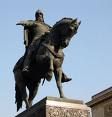

1149 On June 29 Edessa (Urfa) is lost again by the Crusaders, led by prince of Antioch (since 1136) Raymond of Poitiers (1115-49), prince of Antioch to the Muslims led by Turkish Zengid atabeg of Aleppo (since 1146) Nureddin (Nur ad-Din) (Arab. "light of the faith") (1118-74) (son of Imad ad-Din Zengi) at the Battle of Inab (Fons Muratus) (Murez) (Ard al-Hatim); Raymond is KIA, and seeing his way open to the Mediterranean, Nureddin rides to the coast and bathes in the sea to celebrate his V, which becomes his trademark, going on to capture the Crusader fortress of Artah, Harim, and Imm, opening the way to Antioch, which is defended by Raymond's widow Constance of Antioch (1128-63) and Patriarch Aimery of Limoges, who bought Nureddin off, going to the sea to do you know what before helping finish capturing Afamiya; the Second Crusade ends disastrously with the loss of many men in Asia Minor; on ? Conrad III of Germany leaves for Germany, and in Nov. Louis VII of France leaves for his neglected kingdom with his wife Eleanor becoming estranged from her by the ordeal - the original Paul McCartney and Heather Mills? Pope Eugene III forces his way into Rome, but is forced out again, causing him to wander in exile in Campagnia. The Venetians help the Byzantines reconquer Corfu. Ramon Berenguer IV, assisted by Ermengol VI of Urgell takes Fraga, Lerida (Lleida), and Mequinenza at the confluence of the Segre and Ebro Rivers, completing the reconquest of Catalonia; Lerida goes to Urgell - whadya say? Grand prince (since 1146) Izyaslav II is deposed by his uncle (younger brother of Vyacheslav) Yuri (George) I Dolgoruky (Long Arms) (1099-1157), who sacks Kiev and rules as grand prince from Suzdal 130 mi. NE of Kiev in the E forest area of Russia (until 1151). David I of Scotland knights his great-nephew Henry Plantagenet (future Henry II of England), extracting a promise that when he is crowned he will respect the territorial status quo, and celebrates by sending an army led by William fitz Duncan (1090-1147) to seize York, which fails by a cat's whisker. Architecture: On July 15 (50th anniv. of the capture of Jerusalem) Queen Melisende and Bishop Fulcherius consecrate the rebuilt Church of the Holy Sepulchre, which stands to modern times; an inscription is placed on the bronze main door: "This holy place has been sanctified by the blood of Christ, therefore our consecration adds nothing to its sanctity. However, the edifice which covers this holy place has been consecrated on the 15th of July by the Patriarch Fulcherius and by other dignitaries, the IVth year of his patriarchate and the 50th anniversary of the capture of the city, which at the time shone as pure gold. It was the year 1149 of the Birth of Christ." Poetry: Geoffrey of Monmouth (1100-55), Life of Merlin (Vita Merlini) (1149-51) (1,529-line hexameter poem); his mad life as a wild man of the woods, and his conversations with sister-poet Taliesin, based on Celtic bard Myrddin Wyllt and wild man Laioken, along with an account of King Arthur's journey to Avalon; "I set myself to sing the madness of the bard of prophecy." Births: Islamic philosophic theologian Fakhr al-Din al-Razi (d. 1209). Deaths: Arab Muslim scholar Qadi Ayyad ibn Musa (b. 1083); leaves Ash-Shifa (Kitab Ash-shifa bi-Ahwal al-Mustafa) (Healing by News of or Recognition of the Rights of the Chosen One), a bio. of Muhammad and his alleged miracles combined with a healing manual, becoming a Muslim bestseller; "If Ash-Shifa is found in a house, this house will not suffer any harm... When a sick person reads it or it is recited to him, Allah will restore his health." French prince of Antioch (1136-49) Raymond of Poitiers (b. 1115) on June 29 in Inab, Syria (KIA).














1150 On Feb. 8 Conrad III and his eldest legitimate son (with 2nd wife Gertrude von Sulzbach) Henry (VI) Berengar defeat Welf VI and his son Welf VII at the Battle of Flochberg, then Henry Berengar dies later in the year, throwing the succession open. On Nov. 21 king (since 1134) Garcia VI Ramirez the Restorer (b. 1112) dies, and his son Sancho VI Garces (the Wise) (1132-94) becomes king of Navarre (until June 27, 1194), dropping the name Pamplona and going on to fight off Castile and Aragon and bring Navarre into the political orbit of Europe. Matilda (Maud) (daughter of English King Henry I) and her red-haired hubby Count Geoffrey V of Anjou (1113-51) of W France (who likes to wear a yellow flowered sprig of the soulful broom plant Planta genista in his cap, earning him the lucky-with-chicks surname Plantagenet) cede Normandy to their short, freckled, red-haired, energetic son Duke Henry (future Henry II), who returns from Scotland; it had previously been acquired by Henry I in right of Matilda. The kingdom of Aragon unites with the county of Barcelona. Eric IX (the Saint) (1120-60) becomes king of Sweden. Albert the Bear (1100-70) inherits Brandenburg in E Germany from its last Wendish prince, and becomes Margrave Albert I, becoming the mark's first capable ruler, working to subdue and Christianize the Slavs and colonize Brandenburg with German settlers. Sultan Alauddin Husain (-1173) of Ghor (S of Herat) goes E and destroys the city of Ghazna (Ghazni) in the Kabul Valley W of the Khyber Pass, founding the Ghurid Dynasty in the mts. of C Afghanistan (until 1215), whose rulers are ever fondly looking over the Khyber Pass towards luscious Punjab and Delhi. Saxon Germans from the Moselle region settle in the Zips and S Transylvania regions of Hungary after being called in to help defend the frontiers against the Poles and Byzantines; meanwhile Pechenegs and Szeklers are also called in to settle along the frontier for protection. About this time the Germans revive their trade on the Rhine, setting up shop in Cologne, Dortmund, Soest and Munster by 1250. The Golden Age of Buddhist Art in Burma begins in this decade. In this half-cent. speakers of French begin dropping final consonants. In this half-cent. Trouvere music in Provence, S France becomes organized; Jongleurs (wandering minstrels) popularize Fabliaux (Fablieaux), short (less than 400 lines) bawdy comic tales in octo-syllabic verse (ancestor of the modern short story), while romantic knight types prefer the sack in the hay, er, Breton Lay. In this decade Austrian nobleman (from Linz?) Der Von Kurenberg (Kürenberg), the first famous German Minnesinger (Ger. "loving recollection") lyric poet-singer flourishes; others in this cent. (usually minor aristocrats) incl. Dietmar von Aist (-1171), Friedrich von Hausen (1150-90), and Walther von der Vogelweide (1170-1230). After 50 years of Crusading, in this half-cent. Muslim texts on ancient Greek philosophers and scientists begin to arouse interest in Europe, and within a cent. they are getting serious and shifting into high gear; meanwhile Caliph Mustanjid of Baghdad orders all the philosophical works of Avicenna and the Brethren of Sincerity burned, and by 1200 speculative thought is kaput in the Muslim World. The Moors conquer Merida (Mérida), Spain, giving rise to the myth of the Seven Cities of Gold, about seven bishops fleeing to keep the Muslims from obtaining their holy relics, and reaching distant lands, where they found the cities of Cibola and Quivira; really based on an 8th cent. Portuguese legend about Antilla Island?; after the New World is discovered in 1492, guess what they think, later fastening on New Mexico. David I of Scotland and his son Earl Henry found Cistercian abbeys in Kinloss in Moray, and Holmcultram in Cumberland. Bologna U. in Italy is founded. Paris U. is founded to study theology and philosophy. In this decade Mongol rulers begin to support Buddhism. The Pueblo II Period (begun 950) ends, and the Pueblo III Period begins in SW North Am. (ends 1300); until the early 17th cent. Indians begin using lava flow deposits in New Mexico as a winter-warm art gallery, producing over 10K drawings, later preserved as Petroglyphs Nat. Nonument of New Mexico in Albuquerque. Architecture: On Nov. 10 (Martinmas) Dryburgh Abbey in Berwickshire, Scotland on the Tweed River 5 mi. E of Melrose is founded by David I of Scotland; abbot #1 Rger arrives on Dec. 13, 1152; it is burned by the English in 1322, restored, burned again by Richard II in 1385, and destroyed in 1544; Sir Walter Scott ends up buried on its grounds. The Norman Bamburgh Castle in Scotland overlooking the North Sea is built, later getting confused with Sir Lancelot's castle of Joyous Gard. Louis VII begins Vincennes Chateau in the Vincennes Forest on the Seine River E of Paris, France as a hunting lodge, getting added to by Philip II Augustus and Louis IX; in 1337 a 52m donjon tower is added by Philip VI, becoming the tallest medieval fortified structure in Europe; in 1410 a grand rectangular circuit of walls is added; Charles V houses his library and study there; in 1422 Henry V of England dies in the donjon after the Siege of Meaux; in Apr. 1574 Henry IV is imprisoned there during the Wars of Religion; it is used as a royal residence until 1740; in 1796 after being abandoned it is turned into an arsenal, and on Mar. 21, 1804 the Duc d'Enghien is executed in the moat. The W facade of Chartres Cathedral (begun 1134) is completed. Khmer king (since 1113) Suryavarman II dies, and his splendid personal funerary temple of Angkor Wat ("Capital City Temple"), built on a 402-acre site and devoted to the Hindu god Vishnu instead of the traditional god Shiva becomes his mausoleum before turning into a Buddhist temple by the end of the cent. Inventions: Arabs in Spain manufacture paper in the world's first paper mill. Nonfiction: St. Hildegard of Bingen (1098-1179), Physica Sacra; the first mention of the use of hops in beer brewing in Germany, and the first mention of its use as a preservative; "[The hop plant] is warm and dry, and has moderate moisture, and is not very useful in benefiting man, because it makes melancholy grow in man and makes the soul of man sad, and weighs down his inner organs. But yet, as a result of its own bitterness it keeps some putrefactions from drinks, to which it may be added, so that they may last so much longer." About this time the Magister Salernus is pub. in Salerno, Italy, containing the first Euro mention of distillation of alcohol, from the Arabic word al-kohl meaning powder for painting the eyebrows. About this time the Book of Leinster (Lebor Laignech) and Book of the Takings (Invasions) of Ireland (Lebor Gabala Erenn) are written. Poetry: Anon., Ymiddiddan Arthur a'r Eryr (The Colloquy of Arthur and the Eagle); written in Ireland. Geoffrey of Monmouth (1100-55), Vita Merlini (Life of Merlin). Births: German Minnesinger Friedrich von Hausen (d. 1190). French king of Jerusalem (1186-92) and Cyprus (1192-4) Guy de Lusignan (d. 1194) in Lusignan, Poitou; son of Hugh VIII of Lusignan (1106-71); brother of Geoffrey of Lusignan and Aimery (Amalric) II of Lusignan (Cyprus) (1145-1205); husband (1180-90) of Sibylla of Jerusalem (1160-90). Anglo-Norman knight Sir John de Courcy (Courci) (d. 1219) in Stoke Courcy, Somerset. French Provencal troubadour Giraud de Borneil (d. 1220) in Exideuil (Dordogne). Danish historian Saxo Longus ("the Tall") Grammaticus ("the Learned) (d. 1220) in Zealand; secy. to Danish archbishop Absalon of Lund, advisor to Valdemar I. Italian #1 Romanesque architect Benedetto Antelami (d. 1230) in Val d'Intelvi, Lombardy. Deaths: Spanish king of Navarre (1134-50) Garcia Ramirez V (b. 1112) on Nov. 21 in Lorca. French (Italian?) Crusader Barisan of Ibelin (Balian I the Elder) (b. ?). French Provencal troubadour Marcabrun (b. ?).
1151 Louis VII goes to war with Duke Henry over Normandy; in Aug. Geoffrey V Plantagenet of Anjou and his son Duke Henry Plantagenet sign the Treaty of Paris, handing Vexin to Louis VII; on Sept. 7 Geoffrey V (b. 1113) dies after returning from Paris, and is succeeded by his son Duke Henry Plantagenet (1133-89), who becomes count of Anjou, Maine, and Touraine. In Aug.-Sept. after some years of negotiating with the Almohads Ibn Qasi, head of a Sufi branch of the Muridun in the Algarve (ally and friend of Afonso I Henriques of Portugal) causes him to change his mind and hand Silves in S Portugal to the Christians, he is murdered by the townspeople, and his colleague Ibn al-Mundhir hands the city over to the Almohads instead. The Venetians pave the way for the Byzantines to conquer Ancona from Roger II of Sicily and his Norman fleet. Count Ramon Berenguer IV of Barcelona and Alfonso VII of Leon sign the Treaty of Tudilen (Tudilén) (Tudején) in Tudlien near Aguas Caldas, Navarre, defining their mutual zones of reconquest in Andalusia to prevent conflicts, recognizing Aragonese conquests S of the Jucar, along with their right to annex Murcia except for the castles of Lorc and Vera; superseded by the 1179 Treaty of Cazola. Grand prince (since 1149) Yuri I Dolgoruky is defeated by his nephew Izyaslav II (1096-1154), who rules as grand prince from Kiev again along with Yuri's older brother Vyacheslav (until 1154). Toros II of Lesser Armenia recaptures Mamistra and Til Hamdoun from the Byzantines. The Battle of Moin Mhor (Móin Mhór) in Ireland sees Leinster king (since 1126) Dermot (Dermod) (Diarmaid) (Diarmait) (Gael. "without envy") MacMurrough (MacMorrogh) (MacMorrow) (Mac Murchada) (1110-71) and Connacht king (since 1106) and high king (since 1120) Tairrdelbach Ua Conchobhair (Tairrdelbach Ua Conchobair) (Turlough Mór O'Connor) (O'Conor) (1088-1156) defeat Munster king Toirrdelbach Ua Briain, with 3K-7K O'Briain soldiers KIA, causing Toirrdelbach to flee Munster, after which the defeat of the O'Briain clain leaves a power vacuum in Munster. Caddell ap Gruffydd becomes incapacitated, and his brother Maredudd ap Gruffydd (1130-55) becomes king (prince) of the Welsh kingdom of Deheubath (until 1155). The Almohads establish rule over Algeria. Jagadhekamalla II dies, and Tailapa III (-1162) becomes king of Kalyani (Western Chalukya) in S India, presiding over the end of his empire. End of the Toltec Empire in Mexico. The first fire and plague insurance is issued in Iceland. The Schola Medica Salernitana is founded in Salerno, S Italy by 20 physicians, becomining known as the Civitas Hippocratica (Town of Hippocrates). Sports: The game of chess arrives in England. Architecture: The notorious prison known as The Clink in Southwark, England next to Winchester Palace is built for the bishop of Worchester, becoming known for maltreatment of prisoners until it burns down in 1780. The imperial Nuremberg Castle in Germany is built. Ramon Berenguer IV founds the royal Monastery of Poblet. Nonfiction: Simon Darschan, Jalkut; commentaries on the Old Testament. Plays: St. Hildegard of Bingen (1098-1179), Ordo Virtutum (Order of the Virtues); oldest surviving morality play; the human soul Anima struggles with the 17 Virtues (female voices, who sing) and the Devil (male voice who can't sing, only yell or grunt). Deaths: English queen consort (1121-35) Adeliza of Louvain (b. 1103) on Apr. 23 in Affligem Abbey, Brabant. French nobleman Geoffrey V Plantagenet (b. 1113) on Sept. 7 in Chateau Eure-et-Loire. French statesman Abbot Suger of St. Denis (b. 1081) on Jan. 13 in St. Denis; leaves Liber de Rebus in Administratione sua Gestis, Libellus Alter de Consecratione Ecclesiae Sancti Dionysii, about the construction of the Abbey of St. Denis; Historia Gloriosi Regis Ludovici, an impartial history of Louis VII that spawns a long series of quasi-official chronicles from the monks of St. Denis.






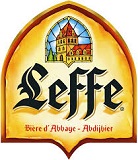
1152 On Jan. 10 Theobald II the Great (b. 1090) dies, and his eldest son Henry I (the Liberal) (1127-81) becomes count of Champagne, leaving his daddy's initially richer holdings in Blois, Chartres, Sancerre, and Chateaudun to his younger brothers, then going on to turn Champagne into the er, Champagne of French principalities, with some 2K reliable vassals, regular Champagne Fairs, and his court in Troyes a renowned intellectual center, home of Walter Map, Stephen of Alinerre et al. On Feb. 15 after making peace with the Welfs, Hohenstaufen German king Conrad III (b. 1093) dies, having never been crowned HRE; after allegedly naming him on his deathbed in preference to his 6-y.-o. son Frederick, and after seeing his chance (and putting his hand in his pockets and/or somebody's shorts?) on Mar. 4 his nephew Frederick (Ger. "peaceful ruler") I Barbarossa (Ger. "red beard") (1122-90) (who united the Hohenstaufen and Welf houses by marriage) is elected Hohenstaufen king #2 of Germany (until 1190), and crowned in Aachen on Mar. 9, hooking up with Pope Eugene III's envoys and threatening an invasion, which causes the Roman nobles to put down the Arnoldists; he proclaims the Great Imperial Landfrieden, creating an empire-wide martial law with special courts; his favorite hunting retreat is at Kaiserslautern in W Germany on the Lauter River. On Mar. 18 the 1137 marriage of 30-y.-o. Eleanor of Aquitaine (1122-1204) to Louis VII of France is annulled (officially due to lack of a male heir, but maybe because she had an affair during the Second Crusade?), and on May 18 she marries more plantworthy 19-y.-o. Henry Plantagenet (Curtmantle) (1133-89), Duke of Normandy and Count of Anjou, Maine, and Touraine (future Henry II), giving him control of over half of France with the power to pressure Louis' holdings from both N and S, causing Louis to feel that he has been robbed blind of her vast estates and cut off from direct access to the English Channel and the Atlantic, beginning a long struggle between England and France over Aquitaine (ends 1558); the Bordeaux and Graves areas of SW France on the left bank of the Garonne River between St. Pierre de Langon and Bordeaux in Guienne (Guyenne), known for their fine wines go to him, and the English upper class begin turning into claret (dry dark red wine) drinkers. On Apr. 6 English king Stephen I holds a council in London and makes his barons to homage to his unlikable son-heir Count Eustace IV of Bologne (1130-1153); too bad, the English bishops refuse to perform the coronation ceremony for this bad apple who had demanded contributions from religious houses in his war against the Angevins, and he luckily dies next Aug. while plundering Church lands, clearing the way for HP. In June 37-y.-o. Earl Henry (b. 1115) dies, leaving 70-something David I of Scotland without a male heir, and during the summer he takes Henry's 9-y.-o. 2nd son William (b. 1143) to Newcastle to be invested as earl of Northumberland while sending the eldest son Malcolm (b. 1141) on a progress around Scotland accompanied by Earl Duncan of Fife to secure his recognition as king-designate - Barney Fife jokes here? Baldwin III, Latin king of Jerusalem reaches the age of majority. The Byzantines under top-of-his-game Emperor Manuel I Comnenus defeat the Serbs, then begin a war with the Hungarians (ends 1156) after the latter attempt to take Serbia and Bosnia. After German intervention, Sweyn III is made "first king" of Denmark, with Canute V as 2nd king (until 1154). Emperor Manuel I's cousin Duke Andronicus I Comnenus tries to retake Mamistra from Toros II of Lesser Armenia with the help of rebel Armenian barons, but Toros defeats them in a surprise night raid. John FitzGilbert the Marshal is sieged at Newbury Castle by Stephen I, and promises to surrender but reneges, causing Stephen to threaten to kill his son William the Marshal, causing John to stink himself up by replying that he could make more sons and he can have him; luckily, Stephen changes his mind. Prince Yuri Dolgoruky founds Pereslavl-Zalessky in C Russia as the capital of Zalesye. The first independent archiepiscopacy in Norway is founded in Nidaros (Trondheim) (founded 997), which serves as the capital of Norway until 1217. The Synod of Kells (Kells-Mellifont) (successor to the 1111 Synod of Rath Breasail) ditches the system of hereditary lay abbots and establishes the diocesan system in Ireland, recognizes the primacy of Armagh and the archbishoprics of Cashel, Tuam, and Dublin, and begins tithing; Dublin changes from a diocese subject to Canterbury to a metropolitan archbishopric. The town of Kostroma is founded at the confluence of the Volga and Kostroma Rivers 216 mi. NNW from Moscow, becoming a commercial center. Norbertine Leffe Abbey is founded on the Meuse River in Namur, S Belgium, founding a brewery in 1240 and becoming known for their unique subtle ale Laeffe Blonde, becoming the first Abbey Beer; in 1952 it signs the first agreement between a Belgian abbey and a commercial brewery, Lootvoet Brewery in Overjise; in 1977 production is moved to the Stella Artois brewery in Leuven, which in 1988 becomes part of Interbrew. Architecture: The white limestone Cathedral of the Transfiguration in Pereslavl is begun (finished 1157). Music: Ladies' Strophes become the earliest German Minnelieder. Births: Spanish king of Aragon and count of Barcelona (1162-96) and poet Alfonso (Alfons) II (the Chaste) (the Troubadour) (d. 1196); son of Ramon Berenguer IV (1113-62) and Petronilla of Aragon (1135-74); brother of Ramon Berenguer III (1158-81); friend of Richard I Lionheart of England. Deaths: English scientist Adelard of Bath (b. 1080) in Bath. French count Theobald II of Champagne (b. 1090) on Jan. 10. German king (1138-52) Conrad III (b. 1093) on Feb. 15. English queen consort (wife of Stephen) Matilda (Maud) I of Bologne (b. 1105) on May 3 in Hedingham Castle, Essex; buried in Faversham Abbey. Scottish-English prince Henry of Scotland (b. 1114) in June. Italian Crusader Barisan (Balian the Elder) of Ibelin (b. ?) in N Italy (Sardinia?) (Chartres, France?); father of Balian of Ibelin (1141-93).




1153 In Jan. Henry Plantagenet comes to England with 30-40 ships to battle for the crown, landing at Malmesbury; on Nov. 6 the Treaty of Wallingford promises him the crown upon the death of Stephen I, who is allowed to rule until his death; all properties seized since 1135 are to be restored, and all castles built since 1135 are to be demolished. On May 24 king (since Apr. 1124) David I (b. 1180) dies at Carlisle, and his grandson (eldest son of Earl Henry of Huntingdon, who died in 1152) Malcolm IV (Mael Coluim mac Eanric) (the Maiden) (Virgo) (1141-65) becomes Canmore king of Scotland (until Dec. 9, 1965) (last to have a Gaelic name), which over the next four reigns consolidates itself and heads for a collision with the Norman English monarchy; meanwhile part-Norse Somerled (Somhairle) (Somhairlidh) (Norse "summer sailor") (-1164) of Argyll, his son Dubgall, and his nephew Donald Mac Malcolm rebel against Malcolm IV in favor of the Mac Alexander lineage (ends 1156); Malcolm IV is called the Maiden because of his eternal celibacy, modeled after Sir Galahad? On July 8 Pope (since 1145) Eugenius (Eugene) III dies, and on July 8 Corrado Demetri della Suburrra is elected Pope (#167) Anastasius IV (-1154), soon granting special privileges to the Hospitalers of St. John of Jerusalem, and restoring the Roman Pantheon. The Byzantines defeat the Hungarians. Seljuk sultan Masud I of Rum, incited by the Byzantines invades Lesser Armenia (Cilicia), and Seljuk sultan (since 1118) Ahmad Sanjar is captured by Oghuz Turks from Khuttal and Tukharistan, and held POW until 1156, sacking Nishapur and killing Shafi jurist Muhammad ibn Yahya; Toros II placates him by acknowledging him as overlord. After a 5-mo. siege Baldwin III of Jerusalem reconquers the funky ancient Philistine city of Ashkelon (Ascalon) on the Mediterranean coast from the Fatimids, annexing it to the County of Jaffa to form the County of Jaffa and Ascalon (until 1191). The Oghuz rebels capture Seljuk ruler Sanjar. The Kin Dynasty of the Tartar Golden Horde renames Nanking ("southern capital") (modern-day Beijing) to Chungtu ("middle capital"), located between the N capital of Mukden and the S capital of Kai Feng (until 1264). Parakramabahu I the Great (1123-86) becomes ruler of Ceylon (until 1186), with capital in Polonnaruwa, going on to unify the island. Olave I dies, and his son Godfred V of Man (-1187) succeeds as king of the Isle of Man and the Isles. Despite the opposition of her subjects, French-born Second Crusader Raynald (Reynald) (Reginald) of Chatillon (1125-87) marries princess (since 1130) Constance of Hauteville (1128-63), princess of Antioch, becoming prince of Antioch (until 1161). By this year the N African holdings of Roger II of Sicily reach their max. By this year Celtic churches in Scotland and Ireland finally merge into the Roman Catholic rite, leaving only some in N Wales (until 1172). Architecture: The Baptistery of St. John (Pisa Baptistry) in the Piazza dei Miracoli in Pisa (near the Leaning Tower) begins construction (finished 1363), becoming the largest baptistry in Italy, featuring a 190-ft.-high dome-crowned rotunda. Births: Roman Byzantine emperor #159 (1195-1203) Alexius III Angelus (Alexios III Angelos) (d. 1211); older brother of Alexius II Angelus (1155-1204). English knight (favorite of King John I) William de Braose, 4th Lord of Bramber, 3rd (7th) Baron Abergavenny (d. 1211) (b. 1144?) in Bamber, Sussex; husband of Maude de St. Valery (1155-1210); son of William de Braose II and Bertha de Gloucester; father of William de Braose, 4th Baron Abergavenny (1175-1210). English Norman knight Richard de Clare, 3rd Earl of Hertford, 6th Lord of Clare, 6th Lord of Tonbridge, 5th Lord of Cardigan (d. 1217) in Tunbridge Castle, Kent; son of Roger "the Good" de Clare, 2nd earl of Hertford (1116-73) and Maude St. Hillary; father of Gilbert de Clare, 4th earl of Gloucester (1180-1230) and Maud (Mathilde) de Clare (1184-1213). Deaths: English heir apparent Eustace IV, Count of Boulogne (b. 1130) in Aug. near Bury St. Edmonds, Norfolk; dies while plundering Church lands. Scottish king David I (b. 1180) on May 24 at Carlisle; buried in Dunfermline. Byzantine princess-historian Anna Comnena (b. 1083) in Constantinople; dies in the Monastery of Kecharitomene. French Cicesterian abbot (St.) Bernard of Clairvaux (b. 1090) on Aug. 21; dies after founding 163 monasteries in Europe.




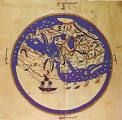
1154 In Jan. Thomas Becket (son of a prosperous London merchant) becomes Henry II's chancellor, Ralph Glanvill his chief justiciar, and Richard Fitz-Neal his treasurer; the great council meets and dismisses Stephen's Flemish mercenaries, and Henry begins revoking Stephen's royal grants. On Feb. 26 Roger II (b. 1095) dies, and his son (by 1st wife Elvira of Castile) William I (the Bad) of Sicily (1131-66) beccomes Norman king #2 of the Two Sicilies (until 1166); since he had three older brothers and they all died, he was raised without being prepared for rule, but lucks out by promoting well-educated art-loving chancellor Maio (Majone) of Bari (-1160) to #2 (adm.), who goes on to help him fight the pesky barons and independence-minded towns of their half-boot S kingdom in S Italy, and encourage immigration of Roman Catholics from W Europe; too bad, Pope Adrian IV refuses to recognize William I and excommunicates him, while crowning Frederick I Barbarossa king of Italy in Pavia, and sends an army to oust him, which is repulsed. The House of Plantagenet is planted, and England's first real king of the people takes power, bringing back the good government of his grandfather William the Conqueror and further centralizing its administration? In the sprig, er, spring Duke Henry Plantagenet returns to Normandy to a warm reception, and Louis VII renounces all rights to the duchy of Aquitaine; on Oct. 25 English king (since Dec. 22, 1135) Stephen I of Blois (b. 1096) dies in Dover, Kent, and on Dec. 19 Duke Henry returns to England and becomes Henry II Plantagenet (Fitzempress) (Curtmantle) (1133-89), (England's 25th monarch) (until July 6, 1189), ending the Norman and Blois Dynasties, and founding the Plantagenet (Angevin) Dynasty, which rules until 1399 (1485), immediately working to reestablish the royal institutions and curb the feudal privileges of the great baronial families, who had been benefiting from the so-called Anarchy; hairstyles begin to change in a flash, as men begin wearing their hair somewhat shorter; Normandy is back under English control (until 1204); the Angevin Empire extends from the Tweed River to the Pyreenes, combining England with the vast holdings of Eleanor (the entire W side and most of C France from Rouen down to Bayonne, including Normandy, Brittany, Maine, Anjou, Louraine, Poitou, La Marche, Aquitaine, Angoumois, Santonge, Perigord, Limousin, Auvergne, Agenais, Quercy, Rouergue, Gascony, and Bearn); the loser French king only rules the 50-mi.-wide French Royal Domain around and to the S of Paris, consisting of a few small territories passed down from Hugh Capet in 987, from Senlis on the N to Bourges on the S, and from Sens in the E to Orleans in the W; the remainder of France is in the hands of the counts of Flanders, Vermandois, Champagne, Blois, Bourbon, Toulouse, etc., and the duke of Burgundy; the Aug. 843 Partition (Treaty) of Verdun sets the boundary on the E; the old Spanish March of Charlemagne (Rousillon and Bigorre) in the Pyrenees owes nominal allegiance. On Dec. 3 Pope (since 1153) Anastasius IV dies, and on Dec. 4 Nicholas Breakspear is elected Pope (#168) Adrian (Hadrian) IV (1100-59) first English pope until ?) (his birth name would have to sound like Shakespeare and his papal name like the Antichrist?); he later utters the soundbyte that he wishes he never left England? On Apr. 17 after Yaroslav III of Kiev is driven out of Novgorod, Rostislav I (1110-67), prince of Smolensk (son of Mstislav I) becomes ruler of Novgorod; meanwhile grand prince (since 1151) Izyaslav II dies, causing Rostislav I to ditch them to become co-ruler of Kiev with his uncle Vyacheslav (until 1155), pissing-off the pop. of Novgorod, who drive out his son David and replace him with Yury Dolgoruky's son Mstislav Yirievich; after 1 week Izyaslav III Davidovich (1115-62) drives Roast Slab out of Kiev, and flees to Chernigov. Tyrannical too-pro-German Sweyn III of Denmark is overthrown by Canute V and Valdemar I after the latter turns against him. Masud I of Rum invades Cilicia again, but after a detachment sent into Antioch is ambushed by the Knights Templars at the Syrian Gates, they return to Rum. Ramon Berenguer IV absorbs the principality of Canfrac into his growing Aragonese empire. Emengol VI (b. 1096) dies, and his son Ermengol (Armengol) VII de Valencia (-1184) becomes count of Urgell in N Spain (until 1184). Turkish sultan Nureddin (Nur ad-Din) captures Damascus, ending the great Crusader dream, and unifies the Syrian interior. By this year Berber Almohad caliph al-Mumin rules Muslim Spain and part of Portugal. Yuri Dolgoruki founds Dmitrov (named after St. Demetrius) 40 mi. N of Moscow on the Yakhroma River at a site in the woods where his son was born. Nonfiction: The Anglo-Saxon Chronicle, kept by only one monastery, is discontinued this year - since who cares about the Anglo-Saxon dogs in England anymore? Mapmaker Al-Idrisi starts something big but doesn't know it? Abdu Abd Allah Mohammed (Muhammad) al-Idrisi (al-Idrissi) (1100-65), a Moroccan geographer in the service of Norman king Roger II of Sicily writes The Book of Roger, a geographical treatise based on Ptolemy with a Muslim Map of the World, showing S at the top, and inscribed on a silver sphere weighing 400 kg; he divides the Earth into seven climactic zones, and subdivides each zone into 10 parts, providing 70 detailed accurate maps; he claims that the Earth is spherical because an "equilibrium experiencing no variation" keeps it in balance; his map is later used by Columbus; a 2nd expanded ed. is pub. in 1161 titled "The Gardens of Humanity and the Amusement of the Soul" (now lost), followed by an abridged ed. in 1192 called "Little Idrisi". Caradoc of Llancarfan, Vitae Gildae. Births: Hungarian-Croatian queen consort (1172-84) Agnes (Anna) of Antioch (Chatillon) (d. 1184); daughter of Raynald of Chatillon, prince of Antioch (1125-87) and 1st wife Constance of Antioch (1127-63); first wife (1170-84) of Bela III (1148-96); mother of Margaret of Hungary (1175-1223); mother of Hungarian king Emeric (1174-1204), Byzantine empress Margaret of Hungary (1174-1224), Hungarian king Andrew II of Jerusalem (1177-1235), and Bohemian queen Constance of Hungary (1180-1240). Arab Muslim Sufi philosopher-theologian Shihab al-Din al-Suhrawardi (d. 1191). Portuguese king #2 (1185-1211) Sancho II (d. 1211); son of Alfonso I Henriques; father of Alfonso II (1186-1223). Russian grand prince of Vladimir (1177-1212) Vsevolod III Yuryevich (Yurievich) (the Big Nest) (d. 1212); father of Yaroslav II (1191-1246). Deaths: Norman Sicilian king (1130-54) king Roger II (b. 1095) on Feb. 26 in Palermo. English king (1135-54) Stephen I of Blois (b. 1096) on Oct. 25 in Dover, Kent.


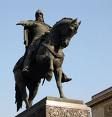
1155 A cattle plague strikes Ireland. On June 18 Frederick I Barbarossa is crowned HRE by Pope Adrian IV after an incident in Sutri on June 9 where he fails to kiss the pope's stirrup and is refused the kiss of peace until he does it over again right on June 11; a Roman army attacks them and is repulsed, but the new HRE leaves the pope to his foot, er, fate and withdraws from Italy. On Aug. 22 emperor (since Jan. 5, 1142) Konoe (b. 1139) dies without an heir, and on Aug. 23 retired emperor Toba's 4th son Go-Shirakawa (1127-92) (personal name Masahito) becomes Japanese Yamato emperor #77 (until Sept. 5, 1158). Arnold of Brescia (b. 1090) is hanged after being denounced - I like your jacket? William I's cousin Robert de Bassonville (1120-82) revolts and takes Bari with the help of a Byzantine army under Michael Palaeologus, and when William I falls sick in Sept.-Dec. 25 and leaves the kingdom to Maio of Bari and archbishop (since 1150) Hugh of Palermo (-1161), a revolt begins seeking to have them removed, but Maio gets out of it by having his #2 Asclettin imprisoned by the king. Raynald de Chatillon raids and plunders Cyprus, pissing-off Byzantine emperor Manuel I Comnemnus, who captures him in 1159 in Antioch, making him beg for mercy. The Byzantines grant trade privileges to Genoa to counteract Venice. English king Henry II abolishes fiscal earldoms and restores royal demesne; his choice of Thomas Becket as chancellor works out so well that Henry II feels free to go to the continent; having had the idea of conquering Ireland from the time of his accession, Henry II suggests an Irish expedition to the great council, but shelves the project for other business, then sends Norman brain man John of Salisbury to Pope Adrian IV to ask for lordship of Ireland; supervises the rebuilding of Westminster Abbey. After over a decade of sharing and sharing alike, Norwegian co-kings Inge I the Hunchback and Sigurd II meet in Bergen and fight, and Sigurd is killed, leaving only Inge and Eystein II as co-kings; now, like two scorpions in a bottle, only one can remain? Maredudd ap Gruffydd dies, and his brother Lord Rhys ap Gruffydd (1132-97) becomes king of the Welsh kingdom of Deheubarth (Welsh "Right-Hand Part" [South]) in S Wales. Grand prince (since 1139) Vyacheslav dies, and his younger brother Yuri (George) I Dolgoruky (Dolgoruki) (Long Arms) (1099-1157) overthrows his nephew Rostislav and declares himself grand prince of Kiev (until 1157), with capital at Suzdal in the E forest area again. Masud I of Rum unsuccessfully sieges Til Hamdoun (modern-day Toprakkale) in SE Anatolia. Taila III dies, and his son Someshvara IV (1183-1200) becomes Chalukya king of Kalyani in India, but is revolted against by a gen., who is assassinated by Basava (Basavanna) (1105-68), who goes on to found the Lingayat Sect of fanatical anti-Brahman phallic Siva worshipers, promising its adherents social equality; Someshvara IV waits in the wings (until 1183). After Duke Henry the Lion of Saxony wins some Vs against the pagan Slavic Obotrites in N Germany, Cistercian monk Berno (-1191) is installed as Roman Catholic bishop of Mecklenburg, taking on powerful pagan anti-German Slavic Obotrite (Obodrite) chief Niklot (1090-1160), who causes him to flee to German-filled Schwerin in 1158, after which he converts his son Prince Pribislav in 1163, pissing him off and causing him to flop his son back to paganism and make him prove his loyalty to daddy by making war against the Germans, almost killing the pesky German bishop at the altar. The city of Bristol in SW England 105 mi. W of London and 45 mi. E of Cardiff across the Severn River estuary from South Wales (modern-day pop. 463K/742K) receives a royal charter, going on to become one of the top three English cities by the 13th cent. after London and York, and granted county status in 1373; in modern times it has the 8th largest pop. in England. Architecture: Thomas Becket supervises the rebuilding of Westminster Abbey. Poetry: Wace (1115-83), Geste des Bretons (Brut) (Deeds of the Britains), a history of the British kings starting with Brutus of Troy, based on Geoffrey of Monmouth's "History of the Kings of Britain", adding the Round Table, the code of chivalry, the tradition of knights errant going on quests or seeking adventures, with emphasis on ceremonial court activities. Births: English titular king (1170-83) Henry the Young King (d. 1183) on Feb 28; eldest son of Henry II and Eleanor of Aquitaine. Spanish king of Castile and Toledo (1158-1214) Alfonso VIII (the Noble) (d. 1214) on Nov. 11 in Soria; son of Sancho III of Castile (1134-58) and Blanche of Navarre (1134-56); grandson of Alfonso VII; husband of Eleanor of England (1161-1214) (daughter of Henry II and Eleanor of Aquitaine); father of Berengaria of Castile (1179-1246), Urraca of Castile (1186-1220), Blanche of Castile (1188-1252), Ferdinand of Castile (1189-1211), Henry I of Castile (1204-17), Eleanor of Castile (-1244). Sicilian king #3 (1166-89) William II (the Good) (d. 1189); son of William I the Bad (1131-66) and Margaret of Navarre (1128-83). French trouvere Blondel (Jean I/II) of Nesle (d. 1202) in Nesle, Picardy; companion of Richard I Lionheart of England. Latin emperor of Constantinople (1216-17) Peter II of Courtenay (d. 1218); son of Peter I of Courtenay (1126-83) (son of Louis VI of France) and Elisabeth de Courtenay; brother-in-law of Henry I of Flanders; husband of Yolande (daughter of John of Brienne); father of Robert I of Courtenay (-1228) and Baldwin II (1217-73). Bohemian king (1198-1230) Ottokar (Otakar) Premysl (d. 1230); younger son of Vladislav II (-1174); father of Wenceslaus I (1205-53). Chinese painter Ma Yuan (Ch'in-shan) (d. 1235) in Qiantang (Ch'ien-t'ang) (Hangzhou), Chekiang Province. Deaths: Italian monk-reformer Arnold of Brescia (b. 1090) (hanged). French scholastic philosopher William of Conches (b. 1090); leaves De Philosophia Mundi (4 vols), Dragmaticon Philosophiae, and Magna de Naturis Philosophia (lost). English anchoress-prioress Christina of Markyate (b. 1096); leaves Vita. English chronicler-bishop Geoffrey of Monmouth (b. 1100). Norwegian king Sigurd II (b. 1136) on Feb. 6 in Bergen. Japanese Yamato emperor #76 (1142-55) Konoe (b. 1139) on Aug. 22.


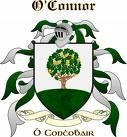



1156 In winter 1156/7 a great frost strikes Ireland, freezing the lakes. On Sept. 17 after reaching a compromise with the Welfs and marrying countess (since 148) Beatrice I of Burgundy (1143-84), heiress of Upper Burgundy, then making his cousin, Henry the Proud's son Henry the Lion (1129-95) the duke of Bavaria, HRE Frederick I Barbarossa issues the Privilegium Minus, making the margraviate of Austria a duchy and an inheritable fief of the House of Babenberg, with special privileges; former duke of Bavaria (since 1141) Henry (Heinrich) II Jasomirgott (1107-77) of the House of Babenberg becomes Austrian duke #1 (until 1177). The Byzantines win their war against the Hungarians (begun 1152) and make peace, with the Hungarians recognizing the emperor's suzerainty of Serbia and Bosnia. Want to conquer a neighbor in the Middle Ages? Try pope in a pocket? Norman philosopher-historian (pupil of Peter Abelard) John of Salisbury (1115-80) obtains from Pope Adrian IV the bull Laudabiliter ("It is praiseworthy"), AKA the Donation of Ireland, bestowing Ireland on English king (since 1154) Henry II of England (1133-89), along with a ring as the symbol of his investiture; meanwhile Henry II captures Anjou in France. After the papal forces are defeated, the Treaty of Benevento ends the war between Norman Sicily and Pope Adrian IV, compelling him to recognize William I's title in Sicily, Apulia, Naples, Amalfi, and Salerno, while allying the papacy with the Normans and granting the pope some territories claimed by Frederick I Barbarossa, causing him to turn against William I. Masud I dies, and his son Kilij Arslan ("Lion Sword") II (-1192) becomes Seljuk sultan of Rum (until 1192). The Mac Alexander revolt in Scotland (begun 1153) ends with the capture of Donald Mac Malcolm, who is imprisoned with his daddy Malcolm at Roxburgh; Somerled heads to the Scottish isles with his son, and, although he is part Norse claims to descend from Irish Gaelic kings in the Hebrides dating back to the 7th cent., sees his chance and decides to take Argyll and the Hebrides from the new Norse king (since 1153) Godfred V, and defeats him with his 80 ships, and they agree to split the Manx kingdom, with Godfred getting the part N of Ardnamurchan and Somerled getting the S part; Godfred rules over Dublin for a short time also. High king (since 1120( Turlough Mor O'Connor (b. 1088) dies, and his son Rory O'Connor (Ruaidri mac Tairrdelbach Ua Conchobair) (1116-98) becomes Ard Ri (high king) of Connacht in W Ireland, followed in 1166 by Ireland's last high king before the Norman invasion. Nantes rebels against its count Hoel III of Cornwall and drives him from the country, and he dies in the Cistercian abbey of Melleray; meanwhile Conan IV the Young of Penthievre (1138-71), son of Alan the Black of Penthievre of Brittany, 1st Earl of Richmond, 1st Earl of Cornwall (1095-1146) and Bertha of Brittany (daughter of Duke Conan III of Brittany) overthrows his stepfather Eudes, becoming duke of Brittany (until 1171). Demetre I (b. 1093) dies after surviving a coup by his son David two years earlier, which is ended with his son's death after 6 mo., and his other son George (Giorgi) III (-1184) becomes king of Georgia (until 1184), going back on the offensive against the Seljuk Khlat sultanate in Armenia. Prince Yuri Dolgoruky (Dolgoruki) (Long Limbs) orders a fort built on the hill overlooking the Moscow River, known as the Kremlin, which later grows into Moscow (Moskva). German HRE (1155-90) Frederick I Barbarossa (1122-90) pub. Justitia civitatis Augustensis for Augsburg, the first city law code, containing regulations for brewers; "A brewer who makes bad beer or pours an unjust measure shall be punished; his beer shall be destroyed or distributed at no charge among the poor"; the fine for a violation is five guilders; after a 3rd offense the perpetrator loses his brewing license. Architecture: The Mermaid Inn in Rye, East Sussex on the S coast of England is founded, making Rye famous; it is rebuilt in 1420. Nur-ud-din founds the Al-Walid Hospital (Bimaristan) in Damascus, which gives free treatment incl. drugs for 267 years (until 1427). Births: Roman Byzantine emperor #158 (1185-95, 1203-4) Isaac II Angelus (Isaaco II Angelos) (d. 1204) in Sept.; younger brother of Alexius III Angelus (1153-1211). French count of Toulouse and marquis of Provence (1194-1222) Raymond VI (d. 1222) on Oct. 27 in Saint-Gilles, Gard; son of Raymond V (1134-94) and Constance of France (1124-76), only daughter of Louis VI and 2nd wife Adelaide de Maurienne; maternal nephew of Louis VII. English archbishop of Canterbury (1207-15, 1218-28) Stephen Langton (d. 1228); first signer of the 1215 Magna Charta. Deaths: Irish high king (1120-56) Turlough Mor O'Connor (b. 1088) in Dunmore, County Galway. Georgian king (1125-56) Demetre I (b. 1093). Japanese Yamato emperor #74 (1107-23) Toba (b. 1103) on July 20.
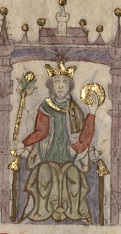
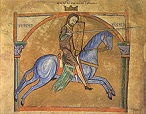



1157 On May 8 sultan (since 1118) Ahmad Sanjar (b. 1085) dies after escaping from the Oghuz Turks, becoming the longest-reigning Muslim ruler until the arrival of the Mongols, and Il-Arslan ("The Lion") (-1172) declares his independence, becoming sultan (until 1172) and founding the Khwarezmshah (Khorezmshah) (Khwarazmian) (Khwarezmid) Dynasty in E and C Persia (ends 1231), later conquering Afghanistan and Transoxania; the Seljuk Empire (founded 1037) collapses, with the runt dynasty only controlling Iraq and Azerbaijan. On Aug. 21 king (since 1126) Alfonso VII of Castile and Leon (b. 1105) dies, leaving Castile and Toledo to his desired son Sancho III (the Desired) (1134-58) (until Aug. 31, 1158), and Leon and Galicia to his son Ferdinand II (1137-88) (until Jan. 22, 1188); Sancho III goes on to found the Order of Calatrava, the first military order in Castile, which is confirmed via a bull by Pope Alexander III on Sept. 26, 1164; Ferdinand II goes on in 1170 to found the Order of Santiago de Compostela to protect the city of Caceres. The Almohads take Almeria from the Genoese. The term "Holy Empire" is first used by HRE Frederick I Barbarossa to give his job a more sanctified sound, probably to break the mental deadlock, because by now the jig is up about it having anything to do with making the pope the emperor of the Western world, or making a secular ruler the emperor of a Universal Catholic Nation Under God where the pope calls the shots; "Neither Holy, nor Roman, nor an Empire" (Voltaire). English king Henry II reneges on his 1149 promises and lays claim to Northumberland, Cumberland, and Westmoreland, and Scottish king Malcolm IV caves in, accepting the restoration of Huntington and becoming Henry's vassal; 14-y.-o. William, earl of Northumberland is disinherited, causing him to grow bitter even though Henry II tries to compensate him with Tynedale, and after he becomes king in 1165 he spends 20 years trying to regain it, ending up as his big humiliation. Norwegian co-kings Inge I "the Hunchback" (b. 1135) and old fart Eystein II (b. 1125) duke it out near Moster on the W coast, and Eystein II loses, fleeing to Bohuslan in W Sweden before being killed later in the year, leaving Inge I as sole king; too bad, Sigurd II's 10-y.-o. son Haakon II Herdebrei "Broad-Shouldered" (1147-62) (uncle of Eystein) takes him on, keeping the endless Norwegian civil war (begun 1130) going strong - the weather gives them all a brain freeze? Eric IX of Sweden leads a Christian crusade and conquers pagan Finland, then leaves the bishop of Uppsala in charge of conversion work; Finland becomes a part of Sweden (until 1710). HRE Frederick I Barbarossa intervenes in the Polish war with the Germans and forces the submission of Boleslav IV the Curly of Poland. Stephen of Armenia begins raiding Byzantine territories around Marash (modern-day Kahramanmaras) in S Turkey, pissing-off his half-brother Toros II, who doesn't want the Byzantines to come after him. Yuri I Dolgoruky (b. 1099) dies, and his son (St.) Andrei (Andrey) (Andrew) I Bogolyubsky (Bogoliubski) ("God-loving") (1111-74) becomes prince of Suzdal (until 1174), repressing the pesky boyars (nobles), and establishing his capital at Vladimir (Russ. "great ruler") near Moscow (founded 1108); he also completes the construction of the Cathedral of the Transfiguration, and builds strong walls and a Golden Gate like the one at Kiev; the flow of people from Cuman-plagued Kiev to the NE into the land of the Finns around the Oka River and Upper Volga River (whose source is in the Valdai Hills) causes a major pop. shift in Russia, causing Kiev to go downhill and Vladimir and Moscow to go uphill. Exiled Danish king Sweyn III (b. 1125) is restored with German help, ending the Danish civil war (begun 1147); the kingdom is split, with Sweyn getting Scania (S Sweden), Valdemar I "the Great" (1131-82) getting Jutland, and Canute V getting the rest; Sweyn then invites the other two to the Bloodfeast at Roskilde on Sjaellen Island W of Copenhagen, and tries to give himself a promotion; Canute is killed, but Valdemar escapes to Jutland, and on Oct. 23 he defeats and kills Sweyn at the Battle of Grathe Heath near Viborg, becoming sole king of Denmark (until 1182); finding his kingdom overrun by the Wends, Valdemar allies with Henry the Lion of Saxony and Albert the Bear of Brandenburg against them, and this time they succeed in subjugating and Christianizing them (by 1180). King Rhys of Deheubarth submits to Henry II, drops the title of king and becomes known as Lord Rhys - Lord Vader? Kalachuri Bijala II captures the Western Chalukya capital of Kalyani, causing Tailapa III to flee to Annigerii before being KIA by Hoysala Viranarasimha in 1162. A fire in Lubeck (Lübeck) causes the city to be refounded, and in 1159 it is rebuilt in brick. The first govt. bonds are issued by Venice. Births: English scholar Alexander Neckam (Necham) (Nequam) (d. 1217) on Sept. 8 in St. Albans, Hertfordshire; born the same night as Richard I, and nursed together, becoming his foster brother; educated at St. Albans Abbey. English king #26 (1189-99) (strawberry blonde) Richard (OG "strong ruler", "powerful leader") I Coeur de Lion (the Lionhearted) (Lionheart) Plantagenet (d. 1199) on Sept. 8 in Beaumont Palace, Oxford; 3rd son of Henry II (1133-89) and Eleanor of Aquitaine (1122-1204); brother of Henry the Young King (1155-83), Duke Geoffrey II of Brittany (1158-86), Leonora of Castile (1162-1214), Queen Joan of Sicily (1165-99), and John I (1166-1216); speaks only French; mommy liked him best? Norwegian king #1 (1061-84) Magnus V Erlingsson (d. 1184) in Etne, Hordaland; son of Erling Skakke and Kristin Sirurdsdatter (daughter of Sigurd Jorsalfare). Austrian duke (1177-94) and Styrian duke (1192-4) Leopold V (the Virtuous) (d. 1194); son of Henry II Jasomirgott (1107-77) and Theodora Comnena (-1184) (daughter of Andronicus Comnenus, 2nd son of Byzantine emperor John II Comnenos); father of Frederick I (1175-1198) and Leopold VI (1176-1230). Deaths: Seljuk sultan of Khorasan (1097-1118) Ahmad Sanjar (b. 1085) on May 8 in Marv. Jewish Rabbi Abraham ibn Ezra (b. 1092); leaves works on combinatorial analysis; subject of the poem Rabbi Ben Ezra by Robert Browning. Russian Kievan grand prince (1149-51, 1155-7) Yuri I Dolgoruky (b. 1099). Spanish king of Castile-Leon (1126-57) Alfonso VII the Emperor (b. 1105) on Aug. 21 in Sierra Morena. Norwegian king (1142-57) Eystein II (b. 1125) in Bohuslan, W Sweden. Danish king Sweyn III (b. 1125) on Oct. 23.

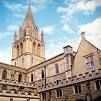
1158 On Aug. 31 king (since Aug. 21, 1157) Sancho III (b. 1134) dies, and his son Alfonso VIII (the Noble) (1155-1214) becomes king of Castile and Toledo (until Oct. 5, 1214), going on to take on the Almohads and break their back in the 1212 Battle of las Navas de Tolosa. On Sept. 5 emperor (since Sept. 5, 1158) Nijo (1143-65) falls ill and abdicates in favor of his infant son Rokujo (1164-76), who becomes Japanese Yamato emperor #79 (until Apr. 9, 1168); Nijo dies on Sept. 5. The Byzantine war with Norman Roger II of Sicily (begun 1147) ends with an inconclusive peace, allowing Emperor Manuel I to launch an expedition against Raymond of Antioch (ends 1159). Frederick I Barbarossa with Bohemian aid captures Milan, and convenes the Diet of Roncaglia, demanding absolutist control of the Lombard cities and installing podestas (imperial reps) in the cities; Pope Adrian IV demands that he recognize his independence in Rome, causing Frederick I to try to drive him out, after which popey back the Lombards; Frederick I rewards Vladislav II of Bohemia by awarding him a hereditary crown. The city of Munich (Munchen) (Ger. "Munichen" = "by the monks") (modern-day pop. 1.45M/2.6M) on the Isar River N of the Bavarian Alps in Bavaria in SE West Germany is first mentioned after being founded by Duke Henry the Lion on the site of an old Benedictine monastery, becoming the center of the salt trade and going on to become the most populous city in Bavaria and 3rd largest city in Germany after Berlin and Hamburg - the birthplace of the Nazi movement in 1923? Count Geoffrey of Nantes dies, and Duke Conan IV of Brittany seizes Nantes, pissing-off Geoffrey's brother Henry II of England, who seizes his earldom of Richmond, after which they make up in 1160 with Conan marrying Henry's cousin Margaret of Scotland. Somerled invades the Isle of Man with 53 ships, defeats Godfred V and forces him to flee to Norway, making Somerled the first Gaelic Lord of the Isles (until 1164), from the Isle of Man to the Butt of Lewis - erin go bragh? Morgan ap Owain is killed by Ifor Bach, and is succeded as lord of Caerleon by his brother Iorwerth ap Owain Wan (untl Sept. 1171). English chancellor (since Jan. 1155) (St.) Thomas Becket (1119-70) travels to France as the English ambassador, taking with him a present of iron-bound casks of beer, only to find out that the French have an extensive brewing industry of their own, becoming the first cross-Channel beer shipment? Architecture: Christ Church Cathedral in Oxford, England is begun (finished in 1200). St. Andrews Cathedral in St. Andrews, Fife, Scotland is begun by Bishop Robert of Scone (1122-59); it is dedicated in 1318. Nonfiction: Moses Maimonides (1135-1204), Book of the Lamp (Kitab al-Siraj); a commentary on the Mishna that establishes him as a star in the Jewish community. Births: Arab Abbasid caliph (1180-1225) Al-Nasir li-Din Allah (d. 1225) on Aug. 6; son of Caliph Al-Mustadi and Zumurrud (Emerald). French-English duke of Brittany (1181-6) Geoffrey II Plantagenet, Duke of Brittany and 3rd Earl of Richmond (d. 1186) on Sept. 23; 4th of five sons of Henry II of England and Eleanor of Acquitaine. Spanish count of Provence (1173-81) Ramon Berenguer III (d. 1181); 2nd son of Ramon Berenguer IV (1113-62) and Petronilla of Aragon (1135-74); brother of Alfonso II of Aragon (1152-96) and Sancho of Provence (1161-1223). Deaths: German bishop (1138-58) Otto of Freising (b. 1114) on Sept. 22 in Morimond, Champagne; leaves unfinished Gesta Friderici I Imperatoris (The Deeds of Emperor Frederick I) (2 vols.), covering from the quarrel between HRE Henry IV and Pope Gregory VI to the death of Conrad III in 1152, incl. Bernard of Clairvaux and Pierre Abeldard, along with the 1152 election of Frederick I and the first five years of his reign esp. in Italy, ending in 1156, which is finished by his chaplain Ragewin (Rahewin); it paints Barbarossa as a hero whose accession to the throne brought and end to the Church-State conflict, bringing the Heavenly City of St. Augustine to reality. Spanish king of Castile and Toledo (1157-8) Sancho II (b. 1134) on Aug. 31 in Toledo.
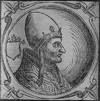


1159 On Sept. 1 after giving a speech threatening HRE Frederick I with excommunication, Pope (since Dec. 4, 1154) Adrian IV takes a drink in a fountain, and a fly entered his mouth and stuck in his throat, choking him to death, and on Sept. 7 Laurentius (Orlando) (Roland) Bandinelli of Siena is elected Pope #169 Alexander III (1100-81) (until Aug. 30, 1181) (one of the ablest popes) by all but 4-5 of the 22 cardinals, but on Sept. 7 Frederick I's cardinals (the rest) chooses Octavian (Octavianus) as Antipope Victor IV (1095-1164) (until Apr. 20, 1164); Alexander III is friendly with the Jews and employs one to manage his finances; when he goes on to try to enforce the ban on clerical mistresses, but when he selects monk Clernbald for archbishop of Canterbury he finds he has had 17 illegitimate kids in one village alone?; meanwhile Alexander III offers Rory (Roderick) (Gael. "high longing") O'Connor (Ruaidri Ua Conchobair) (1116-98) the kingship of Ireland if he will give up all but one of his six wives, and he says forget it? An English army led by Thomas Becket invades Toulouse to assert the rights of Eleanor, but Louis VII drives them off; Malcolm IV and his younger brother William obey a summons to give service in Toulouse, and on June 30 Henry knights Malcolm in Perigueux, which turns him on because his daddy David had taught him that knighthood was the ultimate high, and Malcolm then knights William, but the whole idea of kissing English butt pisses-off the Gaelic nobles, who attempt to seize him at Perth when he returns, but are defeated and forced to submit; Malcolm then invades Galloway and defeats its ruler Fergus and forces him into retirement as a canon in Holyrood Abbey, and partitions his lands between Fergus' sons; this proves that even though Malcolm is called the Maiden for his unpopped cherry he's no whimp with a shield and lance, and also cements William's love of Frankish chivalry, causing him to call himself William de Warenne to emphasize his mother's Anglo-Norman heritage and snub his daddy's royal Scottish heritage? The Almohads conquer Tunis. Greek Byzantine emperor Manuel I kicks Raymond of Antioch's butt and forces him to renew his homage, then negotiates with Nur ad-Din in Syria; on his return he is attacked by Kilij Arslan II of Rum as he passes his capital of Konya (Iconium) - I like that old time rock 'n' roll? German traders begin visiting Riga, bringing Augustinian monk (St.) Meinhard of Segeberg (-1196) to convert the pagan Finnic Livs; in 1186 he is made the first bishop of Livonia by Bremen prince-archbishop (1185-1207) Hartwig of Uthlede (-1207) at Ikskile (Uxkull); too bad, he dies without converting them. Th N German town of Lubeck (Lübeck) on an island enclosed by the Trave River (modern-day pop. 216K) is rebuilt by Henry the Lion, duke of Saxony and Bavaria, becoming a free imperial city in 1227, and forming an alliance in 1241 with Hamburg, which became an imperial city in 1189; in 1356 the Hanseatic League holds its first gen. diet in Lubeck, growing to 170 cities and dominating Baltic maritime trade until 1800, incl. beer. Nonfiction: Peter Lombard (1096-1160), Sententiae Libri IV (Four Books of Opinions); his magnum opus; authoritative statements on Biblical passages, which founds formal Scholastic Philosophy (Scholasticism), an attempt to reconcile reason and faith in the face of growing numbers of skeptics and atheists; a compilation of the thought of Peter Abelard, it is an attempt to solve all theological and philosophical problems, dissing reason for the authority of the Bible, becoming the std. text in Paris for the next four cents., with 4K+ commentaries getting written on it, holding back the advance of rationalism for the next half-cent. until the arrival of Aristotle's works in Latin; Roger Bacon says that it has displaced the Bible itself; identifies charity with the Holy Spirit, and considers marriage as a consensual union that need not be consummated to be perfect. John of Salisbury (1115-80), Policraticus; "the first attempt in the Middle Ages at an extended and systematic treatment of political philosophy" (G.H. Sabine); argues for the overthrow of tyrants and in favor of limited monarchy, later spawning the Magna Charta of 1215; society is a creature, with the king as the head, the Church as the soul, the govs. and judges as the ears and the eyes, the soldiers as the hands, and farmers as the feet? Deaths: Polish king (1138-46) Ladislaus (Wladyslaw) II the Exile (b. 1105) on May 30 in Altenburg. Norman count (of Boulogne) William I of Blois (b. 1137) on Oct. 11.

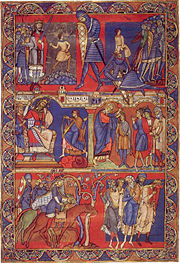
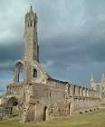

1160 On Jan. 11 Sicilian-held Mahdia in Tunisia (S of Monastir) surrenders to the Almohads, who kick them out of N Africa, allowing the Almohads to establish rule in Tunisia and Tripolitania, causing a popular backlash in Sicily against adm. Maio (Majone) of Bari (-1160), and on Nov. 10 he is assassinated in Via Coperta in Palermo by Matthew Bonnellus (who was betrothed to his daughter but switched to another babe, Countess Clementia of Catanzaro), with the complicity of archbishop Hugh of Palermo (-1161), after which he flees to Caccamo then is hailed in Palermo as a hero, forcing Norman king #2 of the Two Sicilies (since 1154) William I (the Bad) of Sicily (1131-66) to pardon him and allow him to return; the king then earns his title of Bad by calling in an old debt, causing Bonnellus to begin a plot with Roger II's bastard son Simon and bastard grandson Count Tancred of Lecce (-1194) to assassinate him, but William I finds out and captures him and launches an anti-Muslim pogrom for funners, but the pop. is aroused and frees him, and he flees to Caccamo, regroups, attacks Palermo, and suffers a D after reinforcements arrive for the king from Messina, after which the king pardons him; too bad, when he turns around and starts mouthing off against the king, he is imprisoned in al-Halka, which causes his supporters to revolt again, and this time William I doesn't take chances, and Bonnellus is blinded and hamstrung and dies in prison, and his babe Clementia is exiled to Calabria. On Mar. 12 Al-Muqtafi dies, and his son Al-Mustanjid (1124-70) succeeds him as Abbasid caliph #32 (until Dec. 20, 1170). On May 1 in Languedoc in SE France Bishop William of Beziers orders priests who observe the lovely custom of beating Jews on Palm Sun. to be excommunicated; as the town is home to the Albigensians (Cathars), this gives the Church one more reason to kill them all? An assembly in Pavia called by HRE Frederick I Barbarossa declares for Pope Victor IV; Pope Alexander III responds by excommunicating Frederick I and creating the Lombard League in 1167 (incl. Bologna) to oppose him; Louis VII pledges his aid to Alexander III in the fight against Victor IV. According to world traveler Benjamin of Tudela, after Amadiya, Iraq-born David Alrui (Alroy) (El-David) (Menahem ben Solomon) stirs up the Jews in Mesopotamia with the claim that he's the Jewish Messiah, his father-in-law kills him in his sleep; when the job of Messiah stays open and another claimant appears in 1225 in S Arabia, Maimonides writes Letter to the South, pooh-poohing him while keeping belief in a coming Jewish Messiah as one of the 13 principal tenets of the Jewish faith; he also writes the immortal soundbyte: "The other nations vanish, but the Jews last forever." Lucca in Tuscany, Italy (known for its silk trade) receives a charter as an independent commune. In this decade Malcolm MacHeth leads a revolt against the Scottish Canmore kings. About this time Dusum Khyenpa "knower of the three times - past, present, future" (1110-93), disciple of Tibetan master Gampopa attains enlightenment while practicing dream yoga, becoming the first Karmapa Lama, head of the Karma Kagyu, sub-school of the Kagyu school of Tibetan Buddhism, holders of the Black Crown, becoming known as the Black Hat Lamas. About this time Chretien de Troyes (1144-90) of N France becomes the first known Trouvere. Architecture: The Arabasque Norman San Cataldo Church in Palermo, Sicily is founded by Maio di Bari, with three domes and Arab-style merlons. Nonfiction: The Winchester Bible is begun in England (until 1175), featuring the beautiful Morgan Leaf, becoming the largest surviving 12th cent. English Bible. Plays: About this time the play Ludus de Antichristo (Tegernseer Antichrist) is written in Tegernsee Abbey, Bavaria, showing Emperor Frederick I Barbarossa defeating him, after which a 2nd one appears and wins the people through hypocrisy and heresy, but is struck down by lighting from God, after which Ecclesia triumphs. Poetry: In this decade English monk Reginald of Durham writes Life of St. Oswald and Life of St. Euflamm. The Celtic romantic tragic epic Tristan et Iseult (Tristan and Isolde), by Beroul (Béroul) (of Normandy?) and Thomas of Britain is written, about Irish princess Isolde (Welsh "fair lady"?) who is betrothed to Cornish king Mark, but falls madly in love with his nephew Tristan on the journey to fetch her. French troubadour Benoit de Sainte-Maure (Sainte-More) (-1173) (born in Sainte-Maure, Touraine), a member of the court of Henry II of England composes the 40K-line poem Le Roman de Troie (The Romance of Troy), recounting the story of the Trojan War with the chars. updated to modern feudal mores, and containing the first account of the story of Troilus and Briseida (Cressida) in English, later used by Boccaccio, Chaucer, and Shakespeare; he also writes the 35K-verse Chronique de Ducs de Normandie, eulogizing the Plantagenets in octosyllabic verse. Births: Spanish Almohad Muslim ruler #3 (1184-99) Yaqub al-Mansur (d. 1199). Jerusalem queen (1186-90) Sibylla (d. 1190); eldest daughter of Almaric I of Jerusalem (1136-74) and Agnes of Courtenay (1136-84); sister of Baldwin IV (1161-85); half-sister of Isabella of Jerusalem (1172-1205); first cousin of Henry II of England; mother of Baldwin V (1177-86); granddaughter of Queen Melisende (1105-61); wife (1176-7) of William Longsword of Montferrat and (1180-90) Guy de Lusignan (1150-94). French "On the Conquest of Constantiinople" knight-historian (marshal of Champagne and Romania) Geoffrey of Villehardouin (Geoffroi de Villehardouin) (d. 1212); uncle of prince of Achaea Geoffrey of Villehardouin (1169-1229). Georgian Bagrationi queen (1184-1213) (St.) Tamar (Tamara) (Thamar) (the Great) (d. 1213); daughter of George III (-1184) and Burdukhan (daughter of the king of Alania in N Caucasus); mother of George IV (1191-1223) and Rusudan (1194-1245); the beautiful witch-warrior-queen in Mikhail Lermontov's The Demon; patron saint of infirmities. Italian pope (1198-1216) Innocent III (Lotario de'Conti) (d. 1216) in Anagni; son of Count Trasimund of Segni; nephew of Pope Clement III. French pantheistic philosopher (Amalrician?) David of Dinand (d. 1217). German (Bavarian) "Parzival" knight-poet (Minnesinger) Wolfram von Eschenbach (d. 1220) (near Ansbach?). French Crusader Simon IV de Montfort the Elder, Seigneur de Montfort-l'Amaury, Count of Toulouse, 5th Earl of Leicester, Baron of Ile de France (d. 1218); son of Simon III de Montfort and Amicia de Beaumont (daughter of Robert de Beaumont, 3rd earl of Leicester). Arab Muslim historian Ali ibn al-Athir (d. 1233) in Cizre, Turkey. French Jewish Biblical commentator Rabbi David Kimchi (Kimhi) (Qimhi) (d. 1235) (AKA Radak) in Narbonne, Provence; youngest son of Spanish-born Rabbi Joseph Ben Isaac Kimchi (1105-70); brother of Moses Kimchi (1127-90). Deaths: English historian Henry of Huntingdon (b. 1080); leaves Historia Anglorum (8 vols.) (1129-54); history of England from 5 B.C.E. to 1154 C.E.; commissioned by his patron Robert Bloet's successor Bishop Alexander of Lincoln (-1148); "the most important Anglo-Norman historian to emerge from the secular clergy"; calls England "Anglia plena iocis" (Merry England). French theologian Peter Lombard (b. 1096) on July 21/22 in Paris. English theologian Robert of Ketton (b. 1110). Swedish king (1155-60) Eric IX (b. 1120) on May 18 (killed by a Danish prince); people begin to worship him as a saint.




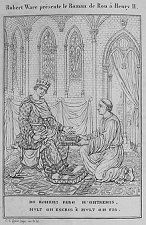
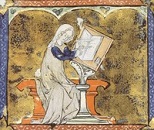
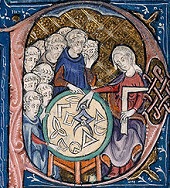

1161 On Feb. 7 Inge I (b. 1135) is killed by his rival Haakon II (the Broad-Shouldered) (Herdebrei) Sigurdsson (1147-62) near Oslo after vassal king Godfred V of Man switches sides; Haakon II becomes king of Norway (until 1162). Seljuk sultan Kilij Arslan II of Rum is defeated by Byzantine emperor Manuel I's nephew John Contostephanus, and travels to Constantinople to recognize the primacy of the emperor. Under my thumb, the bishop who won't let me down? On Apr. 18 Canterbury archbishop (since 1139) Theobald of Bec (b. 1090) dies, and English king Henry II designates his trustworthy Norman lord chancellor (secy. of state) (since 1155) (St.) Thomas Becket (1118-70) (a secular man who stepped down as archdeacon of Canterbury to become Henry II's chancellor, becoming known for high living along with charity to the poor, leading 700 knights in battle and engaging in single combat, once arriving on a mission in Paris with 40 horses, eight chariots, and 200 atendants, also enjoying womanly pleasures with his boss, and enforcing a land tax on both landowners and churches and bishoprics) as his successor, and he assumes office next year; too bad, it backfires when he unexpectedly flops and supports the ecclesiastical cause instead of being under his thumb as Lanfranc had been with William I, donning a hair shirt and living in poverty, eating only veggies, and washing the feet of 13 beggars each night; meanwhile Henry's court becomes the home of writer Walter Map (1140-1209), Norman poet Robert Wace (1100-74), Marie de France (first female French poet) (author of 12 lais, medieval poems of knighthood, varying from 100-12K lines), natural philosopher (first English scientist?) Adelard of Bath (1080-1152), and philosopher-historian-diplomat John of Salisbury (Johannes Parvus) (John the Little) (1120-80), bishop of Chartres in 1176-80. The Chinese use gunpowder explosives in battle against the Manchurians. Malcolm IV of Scotland becomes ill, causing his worried mother Ada de Warenne to get him to arrange a marriage to Constance of Brittany, which never happens. Edward the Confessor is canonized by Pope Alexander III. The Hidden Door School (Togakure Ryu Ninpo), the 2nd oldest school of the Bujinkan in Japan is founded by Togakure Daisuke. Architecture: Boyle Abbey, parent house of the Cistercian Order in Ireland is founded by Maurice O'Duffy. Nonfiction: Ibn Rushd (1128-98), Kitab al-Kulyat fi al-Tibb; becomes a std. medical textbook. Births: Japanese Yamato emperor #80 (1168-80) Takakura (Nirihito) (Nobuhito) (d. 1181) on Sept. 20; 4th son of Go-Shirakwawa (1127-92). Latin king #6 of Jerusalem (1174-85) Baldwin IV (the Leper) (the Leprous) (d. 1185); son of Amalric I (1136-74) and Agnes of Courtenay (1136-84); brother of Sibylla (1160-90). French duchess of Brittany (1186-96) Constance of Brittany (d. 1201) on June 12 in Bretagne; only child of Conan IV (1138-71) and Margaret of Scotland (Huntington) (granddaughter of David I). Spanish count of Cerdanya (1168-1223), Provence (1181-5), and Roussillon (1185-1223) Sancho (d. 1223); son of Ramon Berenguer IV (1113-62) and Petronilla of Aragon (1135-74); brother of Alfonso II of Aragon (1152-96), and Ramon Berenguer III (1158-81) of Provence. Deaths: Hungarian king (1141-62) Geza II (b. 1130) on May 13. Norwegian king Inge I (b. 1135) on Feb. 4 in Oslo. English Norman archbishop of Canterbury (1139-61) Theodore of Bec (b. 1090) on Apr. 18 in Canterbury, Kent.



1162 On May 13 Geza II (b. 1130) dies, and his son (by Euphrosyne, daughter of Mstislav I of Kiev) Stephen III (1147-72) becomes king of Hungary (until Mar. 4, 1172), while Geza II's brothers Ladislaus (Ladislas) (Laszlo) II (1131-63) and Stephen IV (1133-65) (husband of Maria of Byzantium) vie for the throne. On June 15 Norwgian king (since 1157) Haakon II Sigurdsson is killed in Sekken, Romsdalen by Norwegian earl Erling Skakke (1115-79). On June (Sept.?) 27 Eudes II (b. 1118) dies, and his eldest son Hugh III (1142-92) succeeds as duke of Burgundy (until Aug. 25, 1192), going on to get into border conflicts with Louis VII. HRE Frederick I Barbarossa destroys Milan, and it is rebuilt in 1167 by its allies Bergamo, Brescia, Manua, and Verona, with a moat dug around it this time. On Aug. 6 Barcelona count (since Aug. 19, 1131) Ramon Berenguer IV (b. 1113) dies, and on July 18, 1164 his poet-troubadour son Alfonso II (the Chaste) (the Troubadour) (1157-96) (friend of Richard I Lionheart of England) becomes the first combo king of Aragon and count of Barcelona (until Apr. 25, 1196), allying with Alfonso VIII of Castile against Navarre and the Moors. Pope Alexander III is forced into exile with his Norman allies in Sicily, and later flees to France, where he rules from Sans with the support of Louis VII. Science: The Council of Tours in France bans the "barbarous practice" of surgery for breast cancers. Births: The original unibrow? Mongol "most excellent barbarian" leader Genghis (Chinggis) ("universal river") Khan (d. 1227) (birth name Temujin = "iron worker") in Khentii Aimag (near the Onon River), Mongolia - born into this mess of a world in order to straighten it out, or make it a bigger mess? Deaths: Spanish Muslim physician Avenzoar (b. 1094) in Seville; dies after having performed the first tracheotomy on a goat, leaving Book of Simplification on Therapeutics and Diet (Kitab al-Tasir), written at the request of his friend Averroes, who calls him the greatest physician since Galen; it covers clinical descriptions of pericarditis, mediastinal tumors, intestinal tuberculosis, and pharyngeal paralysis, describing the use of bezoar stones (gastroliths) as medicinal items, becoming a hit in Latin and Hebrew translation. Italian scholar Henry Aristippus (b. 1105) in Palermo. Spanish count of Barcelona (1131-62) Ramon Berenguer IV (b. 1113) on Aug. 6 in Borgo Sam Dalmazzo, Piedmont, Italy. French duke of Burgundy (1143-62) Eudes II (b. 1118) on June 27 (Sept. 27?). Hungarian king (1141-62) Geza II (b. 1130) on May 13. Norwegian king (1157-62) Haakon II on July 7 in Sekken, Romsdalen (assassinated).
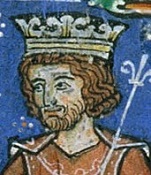


1163 On Feb. 10 king (since 1143) Baldwin III (b. 1130) dies, and his brother Amalric I (1136-74), (2nd son of Fulk of Jerusalem and Melisende of Jerusalem) becomes king #5 of Jerusalem (until July 11, 1174). In July the Council of Woodstock in Woodstock, Oxfordshire sees Henry II demand oaths of vassalage from his Welsh princes, causing them to rebel; in July a quarrel starts between Henry II and Thomas Becket over the control of payments to sheriffs; by Oct. the quarrel escalates when Henry II proposes a plan to put clergy under the jurisdiction of English courts so that ecclesiastical courts can't let them off for crimes. Pope Alexander III sends a golden rose to Louis VII of France as a reward for being the secular ruler who has done the most to deserve his favor (a slap in Henry II's face?). Ladislas II dies, leaving Stephen III (d. 1173) (husband of Agnes of Austria) as sole ruler of Hungary. Magnus V Erlingsson (1156-84), son of chieftain Erling the Crooked becomes king of Norway. Constance of Antioch (b. 1128) dies after she asks the Armenian kingdom of Cilicia for help to maintain her rule and her citizens exile her, and her son Bohemond (Bohemund) III (the Child) (the Stammerer) (the Stutterer) (1144-1201) (who actually overthrew her) becomes prince of Antioch (until 1201). The Kakatiya Dynasty is founded in E India at Kakati and/or Warangal between the Godavari and Kistna Rivers (ends 1323). Song Gao Zong dies, and Song Xiao Zong (1127-94) becomes Southern (Nan) Song emperor #2 of China (until 1189). Abu Yaqub Yusuf I (-1184) becomes Almohad caliph #2 of Spain (until 1184), becoming known as a patron of brain men Averroes (Ibn Rushd) (1126-98) (introduced to him in 1153 by Ibn Tufail, making him chief justice of Seville in 1169 and of Cordova in 1172, and court physician in 1182) and Abubacer (Abu Bakr ibn Tufail or Tufayl) (1107-85). The Duchy of Breslau is formed, with Wroclaw as the capital. Architecture: Construction of the French Gothic Notre Dame (Fr. Our Lady) de Paris Cathedral in the Idle de la Cite in Paris, France begins with Pope Alexander III laying the foundation stone, becoming one of the first bldgs. on Earth to use the flying buttress; finished in 1345; Paris begins its rise to the #1 cultural capital of W Europe. Births: Bosnian ruler (1180-1204) Ban Kulin (d. 1204); father of Stephen Kulinic (-1232). German poet-minnesinger Hartmann von der Aue (d. 1215). Polish prince of Cracow (1228-38) Henry the Bearded (d. 1238); father of Henry the Pious (-1241). Deaths: Moroccan Almohad caliph Abd al-Mumin (b. 1094). French princess of Antioch (1130-63) Constance of Antioch (b. 1128). French Crusader king of Jerusalem (1143-63) Baldwin III (b. 1130) on Feb. 10 in Beirut (poisoned?).
1164 On Jan. 13 after Henry II assembles the bishops and knights of England in Clarendon, and makes them sign the Constitutions of Clarendon at Clarendon Palace in Wilthire, and Thomas Becket refuses to put his seal on it, Henry II issues them anyway, defining royal prerogatives over the Church, incl. a plan to make English clergy subject to English courts in criminal matters; in the spring after Richard de Hastings, master of the English Templars attempts to reconcile Henry II and Becket in vain, he is summoned to the royal court and condemned by his own bishops, but walks out in his archiepiscopal robes before being arrested, feeding a large number of poor in his London home before fleeing during the night to France and holing-up at the Monastery of St. Omer, submitting his resignation to Pope Alexander III, who reinvests him and defends his stand, then sends him to live for a time as a simple Cistercian monk in the Abbey of Pontigny; meanwhile Henry II banishes Becket and all his relatives from England. On Apr. 20 Antipope (since 1159) Victor IV dies, and on Apr. 22 Guido of Crema is elected Antipope Paschal II (-1168) - is that like cream of some young guy? On Aug. 12 after Nur ad-Din comes to the defense of the Fatimids, and a combined Latin-Byzantine-Armenian army attacks him in N Syria, and he retreats but they overpursue, permitting him to regroup and turn on them, the Battle of Harim outside Antioch is a big Muslim V; Bohemond III of Antioch is captured, and freed next year after a 150K dinar ransom is paid. On Sept. 26 Pope Alexander II issues a bull confirming the Military Order of Calatrava based in Castile, becoming the 2nd to receive papal approval. Aragon and Catalonia unite again (first time 1137). Somerled leads another rebellion against Malcolm IV of Scotland, and is KIA near Renfrew in C Scotland, leaving sons Dugal, the father of the MacDougalls, and Raghnall, father of the MacDonalds of the Isles and the Donald clan; former Norse king Godfred V's younger brother Ragnald (Reginald) III (Rognvaldr Olafsson) (son of Olave the Red) sees his chance and usurps the throne of the Isle of Man, but Godfred V soon returns and resumes his kingship (begun 1153) (until 1187). The fortified city of Hagenau in Alsace on the Moder River 16 mi. N of Strasbourg is chartered as a privileged imperial city, becoming a favorite site for Jewish settlement. Architecture: Sanjusangendo Temple in Kyoto, Japan is built. Poetry: Gautier d'Arras (-1185), Eracle (romance); dedicated to Count Theobald V of Blois (-1191). Births: Japanese Yamato emperor #79 (1165-8) Rokujo (Nobuhito) (d. 1176) on Dec. 28; son of Nijo (1143-65). Deaths: French abbess Heloise Abelard (b. 1101). French countess of Tripoli (1137-52) Hodiema of Jerusalem (b. 1110); killed by the Hashshashin. Japanese emperor #75 (1123-42) Sutoku (b. 1119) on Sept. 14.
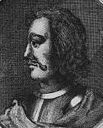

1165 On Feb. 7 Armenian marshal (son of Levon I) Stephen of Armenia (b. 1111) is invited to a banquet by Andronicus Euphorbenus, Byzantine gov. of Tarsus, and murdered, causing his half-brother Toros II of Lesser Armenia to massacre Greeks within his territories; war is averted only by the intervention of Amalric I of Jerusalem. In summer Henry II invades Wales with a large army, but is washed out of the Welsh valleys by the wettest summer in memory. On Aug. 3 emperor (since Sept. 5, 1158) Nijo (1143-65) falls ill and abdicates in favor of his infant son Rokujo (1164-76), who becomes Japanese Yamato emperor #79 (until Apr. 9, 1168); Nijo dies on Sept. 5. In Sept. Portuguese El Cid Gerald the Fearless (Geraldo Sem Pavor) (Geraldo Geraldes) (-1173) reconquers Ebora (Evora) (Évora) in C Portugal from the Moors, who held it since 715; next year it comes under the rule of Alfonso I Henriques. On Dec. 9 ever-sick Jedburgh Knight Maiden king (since May 24, 1153) Malcolm IV (b. 1141) dies a virgin (no heirs) in Jedburgh, and is succeeded as Scottish Canmore king by his 22-y.-o. brother William I the Lion (1143-1214), who is crowned king of Scotland at Scone on Dec. 24 (until Dec. 4, 1214), becoming Scotland's longest-reigning medieval monarch, and the one who has the time to lose Scotland to England; during his lifetime he is known as William the Rough (Gael. Garm), but after he adopts the Red Lion Flag and becomes popular after his death, they adopt it as the royal flag of Scotland and change his nickname too; from now on all Scottish kings are "Frenchmen in race, manners, language and culture", and "keep only Frenchmen in their household and following and have reduced the Scots to utter servitude" - finish your quiche? On Dec. 29 Charlemagne (742-814) is canonized; in the 18th cent. he is reduced to "blessed" by Pope Benedict XIV. Byzantium allies with Venice against Holy Roman Emperor Frederick I Barbarossa. Eleanor of Aquitaine moves back to Aquitaine, effectively ending her marriage with Henry II; she and her daughter Marie de France, countess of Champagne regularly preside over Courts of Love, which listen to the declamations of troubadors then decide upon questions of courtesy and etiquette in affairs of love - the original "The View"? Say, you won't dance with the music? After the Hungarians continue to fail to 'get' it, Emperor Manuel I Comnenus begins another war with the Hungarians (ends 1168), taking Dalmatia. Louis VII of France supports Thomas Becket against Henry II, refusing to give him up, pissing him off. Song Xiao Zong signs the Chinese-Manchurian Peace Treaty. The Almohads in Morocco force the Jews to convert to Islam, incl. Jewish brain man Maimonides, who had been faking conversion since 1159, and flees to Palestine then Cairo, Egypt, and writes Epistle on Forced Conversion, deciding that fleeing even sans belongings to freedom is preferable to conversion or martyrdom, although choosing to die rather than renounce the faith "is good and proper", while those who feign conversion like he did profane God's name, "not exactly, but almost so". About this time a forged letter allegedly by Prester John circulates throughout Europe, addressed to Byzantine Emperor Manuel, and refering to its author as the ruler of India and Lord of Lords. Leipzig, Germany holds its first known fair. A Roman Catholic ecclesiastical council in Albi in Languedoc in SE France condemns the Cathars, which begin to be called Albigensians. In 1165-73 Tudela, Navarre, Spain-born Jewish world traveler Benjamin of Tudela (1130-73) sets out from the NE Iberian Peninsula on a tour of the known world, heading for India via Rome, Constantinople, Antioch, Palestine, Damascus, Baghdad, and Persia, and later returns via the Indian Ocean, Red Sea, Egypt, Sicily, and Italy, writing a travel book that becomes a hit with Jews until modern times, beating Marco Polo by a cent.; he claims that in Narbonne, France there are "sages, magnates, and princes at the head of whom is... a descendant of the House of David as stated in his family tree", an illusion to the covered-up Jewish Kingdom of Septimania? Births: Arab Sufi Muslim philosopher Ibn "Doctor Maximus" al-'Arabi (d. 1240) on July 28 in Medinat Mursiya (modern-day Murcia), Al-Andalus, Spain; grows up in Seville. French Capetian king (1180-1223) Philip (Philippe) II Augustus (d. 1223) on Aug. 21 in Gonesee, Val-d'Oise; son of Louis VII (1120-80) and 3rd wife Adela of Champagne (1140-1206); father of Louis VIII (1187-1226). German Hohenstaufen king #3 (1169-97) and HRE (1191-7) Henry VI (d. 1197) in Nov. in Nimwegen; son of Frederick I Barbarossa (1122-65) and Beatrice of Burgundy; brother of HRE Philip of Swabia. Polish grand duke (1202-6, 1227-8) (gay) Wladyslaw (Wladislaus) III Laskonogi (Spindleshanks) (d. 1231); son of Mieszko III the Old (1121-1202); cousin of Leszek I the White (1186-1227). German Teutonic Knights grandmaster #4 (1210-39) Hermann von Salza (d. 1239) in Dryburg Castle, Langensalza, Thuringia. English earl of Kent (1227-43) and chief justiciar (1215-32) Hubert de Burgh (d. 1243). Deaths: Muslim geographer Mohammed al-Idrisi (b. 1100). Norman nobleman John FitzGilbert the Marshal (b. 1105). Scottish king Malcolm IV (b. 1141) on Dec. 9 at Jedburgh. Japanese Yamato emperor #78 (1158-65) Nijo (b. 1143) on Sept. 5. Hungarian King Stephen IV (b. ?).
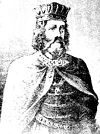
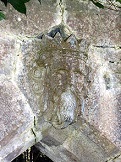

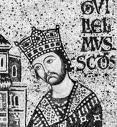
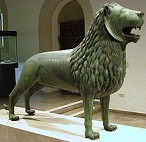
1166 Recognize some new cover girls? In the spring Ramon Berenguer II (b. 1135) dies fighting to conquer Nice, and his infant daughter Douce (Dulcia) II (1162-72) becomes countess of Provence; too bad, she's a you know what, and next year her cousin Count Alfonso the Chaste of Barcelona takes control of Provence and ousts her. On May 7 William I the Bad (b. 1131) dies, and his 13-y.-o. son William II the Good of Sicily (115-89) becomes Norman king #3 of Sicily and Naples (until 1189) under the regency of his mother Margaret of Navarre (until 1171), who continues her hubby's policies - but in a good way? In Aug. William I of Scotland meets with Henry II of England in Normandy, requests the restoration of Northumberland to Scotland, and is told to shove it; meanwhile Thomas Becket takes the pulpit in Vezelay and excommunicates all English clergymen who uphold the Constitutions of Clarendon, pissing-off Henry II, who threatens to confiscate the property of all priories affiliated with the Abbey of Pontigny, causing the abbot to beg Becket to leave, after which he holes-up in a rundown inn in Sens and beg for alms. Frederick I Barbarossa captures Rome. Stefan Nemanja (Stephen Nemanya) (1109-99) (Gr. "stephanos" = crowned), whose father had baptized him a Roman Catholic and adopted the Eastern Orthodox religion overthrows his brothers and becomes grand zupan (prince) of Rasca (Rascia) (Rascka) (Serbia) (until 1196), and forces the pesky heretic Bogomils into Bosnia, unifying the Serbian states and founding the Nemanjic Dynasty, named after Hebrew prophet Nehemiah. Rory (Roderick) (Gael. "high longing") O'Connor (Ruaidri Ua Conchobair) (1116-98) becomes the last Ard Ri (high king) of Ireland (until Dec. 2, 1198), which still suffers from the 1014 Irish clan feud; meanwhile Leinster king (since 1126) Dermot (Dermod) (Diarmaid) (Gael. "without envy") MacMurrough (MacMorrogh) (MacMorrow) (Mac Murchada) (1110-71) is forced to flee Ireland after abducting a neighbor's wife, Dervogilla, from Brefney (Breifne) king (since 1124) Ternan O'Rourke (Tigernan Ua Ruairc) (-1172) (modern-day County Leitrim), launching the Brefney Curse, that their shades must wander Ireland forever together until one Irishman forgives them; in the meantime MacMurrough is defeated and banished by O'Connor, and he seeks the protection of Henry II - big mistake, since it invites the stankin' English into the Emerald Isle? The Assize of Clarendon, issued by King Henry II from his royal hunting lodge at Clarendon Palace in Wiltshire reforms the English judicial system, ordering the building of jails in all English counties and boroughs, and permitting litigants to avoid trial by combat and be judged by "the country", i.e., a jury of 12 knights chosen in court by four knights named by the sheriff for a grand assize, and 12 freemen chosen by the sheriff for a petty assize; it takes until the end of the 13th cent. for trial by jury to spread throughout England; three petty assizes are established, incl. the Assize of Novel Disseisin (Lat. "recent dispossession"), allowing a plantiff to quickly get his property restored while leaving the question of true ownership till later, helping transform English law from trial by ordeal, battle, or compurgation to the evidentiary model, requiring parties to testify under oath; the three petty assizes are abolished in 1833. Henry II decrees a small tax on incomes and personal property in aid of the Holy Land, becoming the first in English history. The Military Order of Alcantara (AKA the Knights of St. Julian) is founded in Castile by two brothers from Salamanca; next year Alcantarus on the Extremadura Plain, with a bridge (Arab. "cantara") over the Tagus River is taken from the Muslims by Ferdinand II of Leon, who loses it in 1174 to the Almohads under Abu Yaqub Yusuf, after which it is not recovered until 1214 by Alfonso IX of Leon. Aix-la-Chapelle (Aachen) is given rights of an imperial city. The city of Birmingham (OE "Beormingham" = Anglian Beormingas tribe) on the Rea River in West Midlands, England (modern-day pop. 1M/3.6M) sees Lord of the Manor Peter de Bermingham obtain a market charter for his castle in an old 6th cent. B.C.E. settlement on the Birmingham Plateau, which builds the Bull Ring commercial center, becoming the 3rd largest town in Warwickshire in the 14th-16h cents., and the busiest shopping center in the U.K. by 2004 (36.5M visitors); in 1538 the city becomes a center for iron merchants, causing the pop. to become the 5th largest in England and Wales; in the 1640s it becomes a center for Parliamentarians, and in the 1660s for Nonformists, leading to the Birmingham (West Midlands) Enlightenment by 1750, along with a highly entrepreneurial economy based on thousands of small highly specialized workshops, making it a leading force in the Industrial Rev. (1760-1850) and a major financial center, incl. Lloyds Bank (1765), becoming known as "the first manufacturing town in the world" by 1791. Art: The Brunswick Lion is sculpted for Welf duke Henry the Lion for his Dankwarderode Castle in Braunschweig (Brunswick), becoming the first hollow casting of a figure since antiquity. Music: A monk of Ely composes the English ballad The Song of Canute. Births: French count of Champagne (1181-97) Henry II (d. 1197) on July 29; eldest son of Henry I the Liberal of Champagne (1127-81) and Marie of France, daughter of Louis VII of France and Eleanor of Aquitaine; nephew of Queen Adele of Champagne. French lord of Toron (1179-) Humphrey IV of Toron (d. 1198); son of Humphrey III of Toron and Stephanie of Milly; husband (1183-90) of Isabella I of Jerusalem (1172-1205); fluent in Arabic. English king #27 (1199-1216) ("Evil Prince John") John I Lackland (Softsword) (d. 1216) on Dec. 24 in Beaumont Palace, Oxford; 5th and youngest son (last of 8 children) of Henry II (1133-89) and Eleanor of Aquitaine (1122-1204); brother of Count William of Poitiers (1153-6), Henry the Young King (1155-83), Duchess Matilda of Saxony (1156-89), Richard I Lionheart (1157-99), Duke Geoffrey II of Brittany (1158-86), Queen Leonora of Castile (1162-1214), and Queen Joan of Sicily (1165-99). French duke of Burgundy (1192-1218) Eudes III (d. 1218); eldest son of Hugh III (1142-92) and 1st wife Alice (daughter of Duke Matthias I of Lorraine); father of Hugh IV (1213-71). Deaths: Persian Qadiriyya Sufi order founder Abd al-Qadir al-Jilani (b. 1077) in Baghdad; the order begins as a local chapter centered around his tomb, then spreads throughout the Arab world and sub-Saharan Africa. Flemish gen. William of Ypres (b. 1090) on Jan. 24. Norman Sicilian king #2 (1154-66) William I (b. 1131) on May 7. Spanish count of Provence (1144-66) Ramon Berenguer II (b. 1135) in spring in Nice.

1167 The Normans of the Welsh marches are recruited by Richard FitzGilbert "Strongbow" de Clare, 2nd Earl of Pembroke (1130-76) allegedly to help Dermot MacMurrough return and win back some of his ancestral lands, and after claiming to be invited, the stankin' Norman English plan on invading the Emerald Isle of Ireland and never leaving - causing it turn 40 shades of green? Frederick I Barbarossa is crowned Holy Roman Emperor (HRE) in Rome. The Syrian army of Nur ad-Din under lts. Shirkuh and Saladin helps the Fatimids under wazir Shawar fight the allied Latins in Egypt led by Jerusalem king Amalric I at the Battle of Bayban; the battle is a strategic V for the Syrians. The Qarmatian Dynasty stronghold in Hofuf is destroyed by a combined army of Seljuks from Iraq and forces led by Abdullah al-Uyun, who founds the Muslim (Shiite or Sunni?) Uyunid Dynasty in Bahrain and E Arabia. Henry II bans English students from attending the U. of Paris, causing them to found (or boost the fortune of 1096-founded) Oxford U. in SC England (Oxfordshire) - more affordable but a little too close to mum and dad? The city of Copenhagen (Kobenhavn) (Lat. "Hafnia") on the E coast of Zealand Island across the Oresund Strait from Malmo, Sweden (modern-day pop. 600K/2M) is founded by Bishop Absalon, who builds a small fortress on Slotsholmen Island to defend against Wendish pirates; in 1177 St. Clemens Church is built, which is eventually destroyed by marauders and replaced in the late 14th cent. with Copenhagen Castle; Saxo Grammaticus in his 13th cent. Gesta Danormum (Deeds of the Danes) calls it Portus Mercatorum (Merchant's Harbor) (Kobmannahavn). Births: French "La Chanson des Saisnes", "Le Jeu de saint Nicolas" poet-dramatist Jean (Jehan) Bodel (d. 1210) in Arras. Deaths: English queen (1135-) Empress Matilda (Maud) (b. 1102) on Sept. 10 in Rouen. English abbot (1147-) St. Ailred of Rievaulx (b. 1110) on Jan. 12 in Rievaulx, Yorkshire; his bio. is written by fellow monk Walter Daniel shortly after his death, containing passages that may be interpreted as suggesting he is gay, causing modern-day gay orgs. to adopt him as their patron saint; leaves Speculum Caritatis (The Mirror of Charity) (written at the request of Bernard of Clairvaux), De Spiritali Amicita (On Spiritual Friendship), Genealogia Regum Anglorum (Genealogy of the Kings of the English), declaring Henry II to be a good king and claiming his true descent from the Anglo-Saxon kings, Vita Davidis Scotorum Regus (Life of David, King of the Scots), Relatio de (De Bello) Standardo (Account of the Standard/On the [Aug. 22, 1138] Battle of the Standard), Vita S. Eduardi, Regis et Confessoris (Life of Saint Edward, King and Confessor), Vita S. Niniani (Life of St. Ninian), De Miraculus Hagustaldensis Ecclesiae (On the Miracles of the Church of Hexham, De Quodam Miraculo Miraculi (AKA De Sanctimoniali de Wattun) (A Certain Wonderful Miracle), and Homeliae de Oneribus Propheticis Isaiae (Homilies on the Prophetic Burdens of Isaiah), dedicated to Bishop of London (1163-) Gilbert Foliot.


1168 On Apr. 9 3-y.-o. emperor (since Aug. 3, 1165) Rokujo (b. 1164-76) is deposed by his grandfather, and his 7-y.-o. uncle (4th son of cloistered emperor Go-Shirakawa) Takakura (1161-81) (personal name Norihito) becomes Japanese Yamato emperor #80 (until Mar. 18, 1180), writing the soundbyte: "The emperor is a ship, his subjects are water. The water enables a ship to float well, but sometimes the vessel is capsized by it." On Sept. 20 Antipope (since 1164) Paschal II dies, and in Sept. Giovanni Abbot of Struma is elected Antopope Callistus (Callixtus) III (-1183) (until Aug. 29, 1178) by a small group of schismatic cardinals, becoming HRE Frederick Barbarossa's bargaining chip with Pope Alexander III. On Oct. 27 a fleet of 230 Byzantine war ships carrying heavy cavalry on 60 special transports, landing in Damietta; meanwhile in Nov. after reneging on his deal with the caliph, King Amalric I of Jerusalem marches through Sinai, sieges Bilbays (Belbeis) and slaughters the pop., then camps outside Cairo demanding 2M pieces of gold not to invade the city; on Nov. 12 after reaching a pop. of 200K, Fustat, Egypt (founded 641) is burned down by order of vizier (since Dec. 1162) Shawar (Shawer)(-1169) to keep the pesky Crusaders from stealing its wealth, and the fire burns for 54 days and nights; the remains are absorbed by nearby Cairo (al-Qahirah) ("the Conqueror") (modern-day pop. 9.5M/20.4M) N of Babylon-in-Egypt, which had turned into a garbage dump; in Nov. after receiving frantic letters in Aleppo from Caliph Adhad (al-'Adid) begging for help, sends Shirkuh at the head of 6K Syrians and 2K Turkmen warriors from Damascus to Cairo, with Saladin coming along. The Byzantines win their war with Hungary (begun 1165), and receive part of Croatia; from now on Emperor Manuel I Comnenus actively intervenes in Hungarian dynastic affairs and eventually makes Bela III his puppet vassal. Vladimir-Suzdal prince (since 1157) Andrei I Yuryevich Bogolyubsky (1111-74) sacks Kiev, leaving his younger brother to rule it while taking for himself the title of grand prince. Danish soldier Absalon (Axel) (1128-1201) defeats a fleet of Wendish pirates in the Baltic. Roman Catholic bishop Berno of Mecklenburg travels to Rugen Island and destroys the pagan temple and great idol and converts the pop. Parakramabahu I of Ceylon repels a Tamil invasion from India. William I of Scotland sends envoys to ask Henry II's rival Louis VII for help in regaining Northumberland, and when Henry finds out he goes nonlinear every time William's name is mentioned, tearing off his clothes and ripping the silk cover from his bed, then cramming the mattress straw in his mouth? Guy de Lusignan (1150-94) and his brothers of Poitou (part of the duchy of Aquitaine) ambush and kill Salisbury earl (since 1145) Patrick of Salisbury, 1st Earl of Salisbury (uncle of William the Marshal) while returning from a pilgrimage, pissing-off their overlord Richard I Lionheart, who banishes them; Guy ends up in Jerusalem by 1180, while his elder brother Amalric marries the daughter of Baldwin of Ibelin and moves up the ladder. The Kurdish Ardalan (Erdelan) Dynasty (ends 1867) is founded in modern-day Khanaqin and Kirkuk in NW Iran, with capital at Sanandaj (Senna) (Sinneh). Architecture: The Cathedral of St. Mary in Limerick, Ireland is built (rebuilt in 1490).

1169 On Jan. 2 after they don't pay his 2M gold piece ransom but only a 50K down payment, and instead a large army under Nur ad-Din's lt. Shirkuh appears in front of Cairo, Amalric I breaks camp and returns to Jerusalem; after his plot to kill Shirkuh and Saladin at a banquet is foiled, Shawer is murdered, and his head sent to the caliph, and Shirkuh becomes vizier, witht he caliph giving him the title Al Melik Al Mansur (the Victorious King); too bad, he dies on Mar. 26, and his 31-y.-o. nephew Saladin succeeds him as vizier of the Fatimid govt. in Egypt, working for a Shiite caliph and a Sunni caliph, ordering Nur ad-Din's name to be mentioned in Fri. prayers after Adhad's; in Aug. after backing them up against a closed gate, Saladin defeats 50K black Sudanese troops loyal to the Fatimid caliph (supported by more loyal Armenian troops), accepting their surrender on condition of safe passage to Giza, but as they are paraded down the Mukatamb Hill, Saladin's Turkish troops under orders of his brother Turan Shah suddenly slaughter them - no more mayhem, it's my New Year's resolution? In May the first contingent of English under Robert fitz Stephen and Maurice de Prendergast lands in Bannow Bay, Ireland, meeting paltry resistance, beginning the Norman Invasion of Ireland (ends 1175). Toros II abdicates in favor of his infant son Reuben (Roupen) II (1165-75), who becomes king of Lesser Armenia (until 1170), under the guardianship of his maternal grandfather Thomas; too bad, Toros II's brother Mleh disputes the succession and attempts to assassinate Toros II, then flees to Aleppo Nureddin, converting to Islam then invading with a Muslim army. After prodding by Louis VII of France, Pope Alexander III commands Henry II to restore Thomas Becket to his see or face an interdict on all religious services in English territory, and visits Becket in Avranches, holding his stirrup as he mounts his horse to return to England. A window tax is introduced in England, Wales, and Ireland, with the first 2 windows exempt; to lower their taxes housholders begin blocking windows, leading to the saying "daylight robbery"; it is abolished in 1851. Architecture: The Norman Cathedral of St. Rosalia in Palermo, Sicily is begun (finished 1185). Nonfiction: Spanish Cordoban Muslim superbrain Averroes (Abu'l Waleed or Abu al-Walid Muhammad ibn Rushd (1126-98) begins writing on Aristotle's works in Arabic, stirring the Muslim World up with the need to rethink everything if they want to keep their sanity and faith at the same time; too bad, he doesn't read Greek, and has to use Arab translations of Syriac translations of Aristotle; like other Muslim brain men he Neoplatonizes Aristotle, but doesn't stop with minimizing him to save the dogmas of Islam, but minimizes Islam to fit Aristotle, even discarding the Creation for an eternal Universe, causing the Muslim World to turn against him and destroy most of his works in Arabic form, which are only saved by the Jews, who hand them to Christians, who groove on his slamming of Muhammad's dogmas until they go too deep and become rationalists, heretics, or atheists. Births: Byzantine emperor (1180-3) Alexius II Comnenus (Komnenos) (d. 1183) on Sept. 10 in Constantinople; son of Manuel I Comnenus (1118-80) and Maria, daughter of Prince Raymond of Antioch. French prince #2 of Achaea (1209-29) Geoffrey I of Villehardouin (d. 1229); father of Geoffrey II of Villehardouin (1195-1246); nephew of knight-historian Geoffrey of Villehardouin (1160-1212).




1170 You are everything, and everything is you? Look me in the eye, boy, you are quarterback of this team until I tell you different? In Apr. William I of Scotland visits Henry II's court at Windsor, then visits his estates in Huntingdon, then on June 14 attends the coronation at Westminster of Henry II's eldest son Henry the Young King (1155-83) as official English successor, giving him personal homage on June 15; the attempt of the archbishop of York (backed by Henry II) to do the anointing causes archbishop of Canterbury Thomas Becket (b. 1118) to get pissed-off and obtain the support of Pope Alexander III and Louis VII in a showdown, causing Henry II to exile Becket, but Henry II repents and backs down, and formally reconciles, and Becket returns to Canterbury on Dec. 25 and excommunicates three pro-Henry bishops, who flee to Henry II in Normandy, causing him to go into a rage, uttering the soundbyte: "Will no one rid me of this troublesome/meddlesome/turbulent priest?" (probably not, but he should have?) and/or "What! Shall a man who has eaten my bread... insult the king and all the kingdom, and not one of the lazy servants whom I nourish at my table does me right for such an affront?", causing four of Henry's Norman baron knights incl. Hugh de Morville (1155-1204) (Fr. "dead village"), William II de Tracy (-1189) (Gael. "fierce, warlike"), Reginald Fitzurse (1145-73) (Gael. "son of the bear"), and Richard le Bret(on) (de Brito) (Fr. "the brute") to take him literally, swear an oath to kill him, and cross over to England to find him, apparently without the ing's knowledge; on the way to Canterbury they stop at Bletchingley Castle to see Earl Roger the Good de Clare (1115-73), grandson of Earl Gilbert de Clare (-1117) (an expert on hunting accidents?); on Dec. 29 (5 p.m.) they find Becket in Canterbury Cathedral at Vespers, demand that he lift the excommunications, and when he refuses they begin arguing with him and try to arrest him, and when the 6'2" dude (compared to an avg. height of 5' back then) resists, they murder him on the altar, with Fitz Urse drawing first blood, knocking off the crown of his head and spilling his blood and brains all over the floor (in the shape of a rose and lily?), after which they all close in and finish him off, then stir the brains with a sword to be sure he's dead before leaving; too bad, the locals immediately steal samples of his blood in cloths and vials, then announce miraculous cures within days, turning him into a martyr, causing anger against the king and assassins to spread throughout Europe, all to the chagrin of kingy back in Normandy, who is called the new Nero and Judas, holing-up in his chamber for three days sans food while sending emissaries to the pope to declare his innocence and promising to perform penance; Pope Alexander III uses the opportunity to save Louis VII from Henry II's wrath; Becket is hastily entombed in a crypt without bathing (since he's bathed in martyr's blood), and the cathedral soon becomes a center of pilgrimage for England's new martyr of church-state relations, with 2M+ words written about his miracles; the word "canter" comes into use from the easy Canterbury gallop which medieval pilgrims use to ride to the town; Becket is discovered to be wearing an itchy-scratchy goat-hair shirt beneath his sacerdotal robes along with breeches of the same that "swarmed with vermin", cinching his martyr status; the four bad barons do lifetime penance by becoming Crusaders in the Holy Land. On May 1 at the invitation of Dermot MacMurrough a party of 10 Norman soldiers and 70 archers led by Raymond le Gros land at the promontory fort in Baginbun, Wexford, Ireland S of Fethard-on-Sea on the Hook Head Peninsula, soon joined by Hervey de Montmorency and building a vast rampart that survives to modern times; finding the backward Irish still fighting with slings and stones, they repel a force of 3K Norsemen and Irish from Waterford; on Aug. 23 Strongbow lands with an army of 1.2K, combining forces and taking Waterford on Aug. 25; the same day Strongbow marries Dermot MacMurrough's daughter (by his 2nd wife Mor O'Toole) Aoife (Eva) MacMurrough of Leinster (1145-88) in the ruins of Waterford. On Aug. 24 (Fri.) Eyptian vizier Saladin suppresses the Shiite call to prayer and orders the four Rashidun caliphs mentioned in the sermon (Khutba). Sick of Henry II's infidelity, Eleanor moves to Poitiers, France; Henry II assigns Brittany to his son Geoffrey to hold of his brother Henry the Young King (b. 1155), assigns Normandy, Anjou, and Aquitaine to his son Richard Lionheart to hold directly of the French king, and assigns no lands to his youngest son John, causing him to be called "Lackland", even though daddy later conquers Ireland for him; the premature taste, combined with daddy's bad rep over what he did to Becket backfires and causes his sons to become rebellious, becoming known as the "lion's brood". Ruben II is entrusted to the care of Patriarch Nerses IV Shnorhall of Hromgla, who prepares to flee with him to Antioch; too bad, his uncle Mleh has him assassinated in Hromgla, and Mleh (Meleh) I (1119-75) becomes lord #3 of Little Armenia (untl May 15, 1175). The Byzantine acquisitions in Italy and Dalmatia cause a war with Venice (ends 1177); all Venetian traders in Constantinople are arrested and their goods seized, but the threadbare Byzantine fleet is unable to do much. Al-Mustanjid dies, and Al-Mustadi (1142-80) succeeds him as Abbasid caliph (until 1180). Leon and Castile go to war for 10 years (until 1180). Welsh prince Madoc ap (Madog ab) Owain Gwynedd sails from Abergwili, Wales across the Atlantic Ocean, and lands somewhere in the Florida peninsula or the West Indies, founding a settlement?; several years later he returns to Wales, leaving 120 men behind; he returns in 1190 and finds them all annihilated by natives, then dies soon after? The financial inquiry known as the Inquest of Sheriffs results in strengthening the English exchequer. Pope Alexander III establishes the Rules for the Canonization of Saints - just in time to fast-track Becket? In this decade the Chivalric (Fr. "horsemanship") Ideal takes over European and British noble society, with everybody wanting to win his spurs as a knight. The guild of masters, germ of the U. of Paris is recognized by Louis VII of France, and the French intellectual center begins shifting from Chartres to Paris as its humanistic bishop (1176-80) John of Salisbury (1115-80) and main brain man Thierry (Theodoric) of Chartres (1150-) get long in the tooth; at first the univ. movement is controlled by the Church, but it's just a matter of time before it becomes a hotbed of heresy, and ultimately one of the Church's greatest enemies - monkey see monkey do? Architecture: The Bridge of San Zaccaria in Venice is built, becoming the first stone bridge on the Grand Canal. Nonfiction: Moses Maimonides (1135-1204), Mishna (Mishneh) Torah (Heb. "repetition of the law") AKA Sefer Yad HaHazaka (Book of the Strong Hand) (14 vols.) (1170-80) (Hebrew letters Yod + Dalet = 10 + 14 = Yad = "hand"); written while living in Egypt; his magnum opus; only Medieval Jewish work containing all details of Jewish observances incl. when the Temple was in existence; "A person who first reads the written Law [Pentateuch] and then this compilation will know the whole oral Law without needing to consult any other book"; makes him the #1 Jewish scholar of the day, although it pisses-off other rabbis for attempting to displace the Talmud, and for his assertion that he who studies the Law is higher than he who merely obeys it. Music: In this decade French composers Leoninus (1135-1201), Magister Perotinus et al. begin creating the Ars Antiqua (Ars Veterum) (Ars Veterus) style of polyphonous sacred music of the Notre Dame school (until 1310). Poetry: Chretien de Troyes (1144-90), Chevalier de la Charette (Knight of the Cart); a romance of courtly love in which Lancelot du Lac beds King Arthur's wife Guinevere (the earliest vers. of the Lancelot story) - it's the kind of jealousy that makes you feel you love them so much? Births: German poet Hartmann von Aue (d. 1210) in Swabia. Spanish priest and Dominican Order founder (St.) Dominic (Domingo de Guzman) (d. 1221) in Calaruega, Castile; raised by a priest uncle; lies to go barefoot; feast day: Aug. 4. German "Under der Linde" #1 Minnesinger Walther von der Vogelweide (Ger. "of the bird meadow") (d. 1230) in Bavaria or Austria; first German poet to write nationalistic patriotic poetry. French Latin king of Jerusalem (1210-12, 1217-25) and Latin emperor of Constantinople (1229-37) John of Brienne (d. 1237); husband (1210-2) of Marie de Montferrat (1191-1212); father of Yolande II de Brienne (1212-28). Danish king (1202-41) Valdemar (Waldermar) II (the Conqueror) (the Victorious) (d. 1241) on May 9; 2nd son of Valdemar I (1131-82) and Sophia of Polotsk; husband of Queen Dagmar (Margaretha of Bohemia) and Berengaria of Portugal (daughter of Sancho I of Portugal). Italian Roman Catholic Cardinal Giovanni Colonna (d. 1245). Indian Hindu Sanskrit poet Jayaeva (Jaidev) (d. 1245 in Kenduli Sasan, Odisha (Mithila of Bihar?). Italian rabbit-counting mathematician Leonardo (OG "lion bold") Fibonacci (Filius Bonaccii) (Leonardo Pisano) (Leonardo da Pisa) (d. 1250) in Pisa; son of Bonaccio. Deaths: English hermit St. Godrick of Finchale (b. 1065) on May 21 in Finchale, Durham County. Brandenburg margrave (1150-70) Albert the Bear (b. 1100). English Canterbury archbishop (1162-70) Thomas Becket (b. 1118) on Dec. 29 in Canterbury (murdered in the cathedral); sainted in 1173 - was he wearing his work clothes when he died? Italian Latin patriarch of Constantinople #1 (1204-11) Thomas Morosini (d. 1211) (b/ 1175?).
1171 In May Ireland's deposed king Dermot MacMurrough dies, and Strongbow claims the throne of Leinster by marriage to his daughter, conquering a strip of territory from Dublin to Cork and threatening the establishment of an independent Norman kingdom in Ireland; on Oct. 17 Henry II, with papal sanction lands in Waterford to assert his supremacy, and Strongbow submits without a fight, swearing loyalty to Henry II, who holds his court in Dublin, making it a dependency of the English city of Bristol next year; the Normans spread over Ireland except for W and C Ulster, intermarrying with the Irish and adopting their ways, language, and culture while retaining only nominal allegiance to Henry II; the English-ruled Pale in Ireland (Land of Ire) is established, where strong Norman barons (the Fitzmaurices, Carews, Gerards, Davids, and Barries) outvote weak English justiciars (with no English garrisons) (under an English viceroy with orders from Henry II to be fair to the natives, pissing-off the Normans?) to gangbang the Irish for fun and profit without establishing any organized govt.; by the end of the 15th cent. it is reduced to an area on the E coast from Dalkey (S of Dublin) to Dundalk (N of Drogheda), with the W boundary from Leixlip N to Kells. In Sept. Henry II confiscates Caerlon in Wales from Iorwerth ap Owain Wan; next year William Fitz Robert, 2nd Earl of Gloucester and his men kill his son Owain, causing him and his surviving son Hywel to rebel against the Normans. On Sept. 12/13 caliph (since 1163) Adhad (al-'Adid) (b. 1150), the last Fatimid caliph dies, ending Shiite rule of Egypt, with control reverting to the Abbasid caliphs in Baghdad under true blue Sunni Saladin, who doesn't like the suzerainty of Nureddin (Nur ad-Din) of Syria, causing them to plan a final battle; on Sept. 17 (Fri.) (Muharram 567) Saladin orders the Abbasid caliph declared in the Fri. sermon (khutba) in Fustat and Cairo, and takes the title Muhyi Dawlat Amir al-Mu'minin (Reviver of the Empire of the Commander of the Faithful), signaling the replacement of the Fatimids by the Ayyubids, while the remaindsof the Fatimid regime and Ismailism are ruthlessly exerminated, causing the Nizari Ismailis AKA the Assassins to plot a comeback; meanwhile in Sept. Jewish brain man Maimonides becomes Ra'is al-Yahud (Head of the Jews) (until 1173); meanwhile Nureddin sieges Jerusalem, sans Saladin's aid, who hopes the Crusader kingdom will serve as a buffer between Egypt and Syria, and ditto happens in 1173. In Sept. after Serbian grand prince Stefan I Nemanja sides with them in the hopes of gaining independence from Byzantine rule, the Venetians incite the Slavs of the E Adriatic coast to rebel also, and hire a German fleet to replace their navy, conquering Ragusa and Chios from the Byzantines. William II the Good of Sicily begins his personal rule of Sicily and Naples, preferring his palace pleasures in Palermo to military adventures while backing the papacy and the Lombard cities against pesky Frederick I Barbarossa. Alfonso II the Chaste of Aragon conquers Teruel and Caspe, setting his sights on Valencia. Several Jews are burned in Blois, France on the charge of using Christian blood in Passover rites. Architecture: Roman Catholic bishop Berno of Mecklenburg consecrates the Cathedral of Schwerin, and holds the first synod; meanwhile Prince Pribislav of the Obotrites, who has been converted back to pro-German Roman Catholicism founds the Cistercian Monastery of Doberan, which becomes a center of evangelism of pesky Slavic pagan Obotrites. The Bank of Venice begins allowing exchanges of accounts among clients via bookkeeping operations. Deaths: Austrian minnesinger Dietmar von Aist (b. ?).

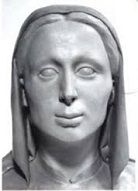
1172 What's new, pussycat, whoa-whoa-whoa? On Feb. 2 now that they have their martyr of the millennium,the Second Synod of Cashel (first in 1101), convened by Henry II (who is not present) is held under English occupation, and the Irish acknowledge Henry's sovereignty, and agree that their church needs reformation, with Irish prelates inundating the pope with letters recommending Henry II in hopes of protection against Strongbow; (St.) Laurence O'Toole (1128-80) is made papal rep. to Ireland; meanwhile Richard Lionheart is created duke of Aquitaine. On Mar. 4 Stephen III (b. 1147) dies, and next Jan. 13 his Constantinople-educated brother Bela III (1148-96) (a descendant through his mother of Harold II of England) becomes king of Hungary (until Apr. 23, 1196), with his French wife (since 1169) Agnes (Anna) of Antioch (Chatillon) (1154-84) (daughter of Crusader Raynard de Chatillon) as queen consort (until 1184), introducing French culture into Hungary along with Cistercian monks from Burgundy. In Mar. Anglo-Norman landowner Hugh de Lacy, 4th Baron Lacy (1134-1186) is granted control of Meath and Dubin Castle, becoming the first Norman viceroy of Ireland (again in 1179 and 1180); the prior lord of Meath, Breifne king Tigherman O Ruairc gets pissed-off, and meets Lacy on the Hill of War in Meath, where he is ambushed and decapitated, his head hung over the gate of Dublin Castle and later sent to Henry II. Bohemond III of Antioch invades Armenia after it allies with Nureddin. After intercession by a Carthusian monk, Henry II and Pope Alexander III reconcile, and Henry II is cleared of involvement in Becket's murder, but is ordered to do penance before the Cathedral of Avranches in Normandy, and rescind the 1164 Constitutions of Clarendon, restoring all rights and property of the Church, reinstituting "benefit of clergy" (privilegium clericale) in England (until 1827); for the rest of the Middle Ages, English clergymen can get out of punishment for their felonies (except treason) by getting their cases transferred to an ecclesiastical court and proving that they can read and write some Latin verses; however, they get branded in the brawn of the left thumb if not actually in holy orders; fines and whipping are later substituted when the public looks the other way - no wonder everybody hates lawyers? Stefan I Nemanja of Serbia joins the anti-Byzantine coalition of Venice, Hungary, and the HRE, and incites the Serbian citizens of Ravno to refuse passage to Byzantine ally Henry the Lion of Saxony; Kilij Arslan II of Rum makes a pilgrimage to Jerusalem, and meets with Henry the Lion near Tarsus, embracing and kissing Henry and claiming that they are blood cousins because he descends from a daughter of Svyatoslav II. Il-Arslan dies, and his son Alaeddin Takish (-1200) becomes the shah of Khwarezm (until 1200). The Venice Grand Council restricts the powers of the doges. The Almohads capture Murcia, followed by Valencia when ibn Mardanish dies, completing their absorption of Muslim Spain. Architecture: The Palazzo del Podesta (Municipal Palace) in Padua, Italy (23 mi. SW of Venice) is begun (finished 1219); it is restored in the 16th cent. by Andrea Moroni, becoming Moroni Palace. Nonfiction: Maimonides (1135-1204), Epistle to the Jews of Yemen; how to deal Muslim oppression. Wace (1115-83), Roman de Rou; chronicle of the Norman dukes, commissioned by Henry II in 1160. Births: Jerusalem queen (1190-1205) Isabella of Jerusalem (d. 1205) in Nablus; daughter of Amalric I of Jerusalem and 2nd wife Maria Comnena (grandniece of Byzantine emperor Manuel I Comnenus); stepdaughter of Balian of Ibelin; mother of Maria of Monteferrat (1192-1212). Births: Latin emperor of Constantinople #1 (1204-5), count of Flanders (1194-1205), count of Provence (1195-1205) Baldwin I of Constantinople (d. 1205) in July; son of of Baldwin V of Hainaut (1150-95) and Margaret I, Countess of Flanders (-1194) (sister of Count Philip of Alsace); husband of Marie of Champagne (1174-1204); brother of Henry of Flanders (1176-1216); father of Margaret II of Constantinople (1202-80). French queen of Jerusalem (1190-1205) Isabella I (d. 1205) in Aug. in Nablus; daughter of Amalric I (1136-74) and 2nd wife Maria Comnena (1154-1217) (grandniece of Byzantine emperor Manuel I Comnenus); wife (1183-90) of Humphrey IV of Toron (1166-98), (1190-2) Conrad of Monferrat (-1192), (1192-7) Henry II of Champagne (1166-97), and Aimery (Amalric) of Lusignan (1154-1205). Deaths: Hungarian king (1162-72) Stephen III (b. 1147) on Mar. 4. Welsh prince Cadwallader (b. ?).



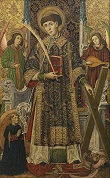
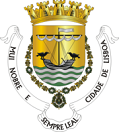
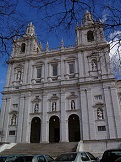

1173 The first influenza epidemic shakes Eur Eur Eur Eur Europe; the epidemic causes a mutiny of the Venetian navy, devastating it. On Feb. 23 St. Thomas Becket is buried in Canterbury and canonized by Pope Alexander III, insuring the wealth of Canterbury Cathedral, and making a pilgrimage there the thing to do, a Christian Mecca - chust chew on Chaucer? The Aquitaine Revolt of 1173-4 sees Henry II's Angevin Empire slide into civil war as his estranged wife Eleanor of Aquitaine (pissed-off at his adulteries) supports her sons Richard Lionheart and Henry the Young King and ally with Louis VII against him, fleeing to his court; William I of Scotland throws in with the rebels in exchange for a promise of the restoration of guess what Northumberland (after he inherited the title of Earl of Northumbria in 1152 and was forced to give it to Henry II in 1157), but is captured by a small English forces of mounted knights led by Henry II's chief justiciar (1154-89) Ranulf de Glanvil (Glanville) (Granvile) (-1190) at the Battle of Alnwick in Northumberland on July 13; Henry II takes control of Kenilworth Castle in the Arden Forest in Warwickshire to defend against the rebellious barons on both sides of the Channel; Louis VII attacks Normandy while William I invades England, but the support of the middle classes saves Henry II's cause; after becoming the first female Euro monarch to lead troops into battle, Eleanor is imprisoned (until 1183); on Aug. 10 in Rouen Henry II names Strongbow as royal justiciar of Ireland. Bohemia enters a period of dynastic conflict during which there are 10 rulers (until 1197). Boleslav IV the Curly (b. 1120) dies after seeing the section of Poland W of the Vistula River along the Baltic gobbled up by the Germans, and his 47-y.-o. brother Mieszko III the Old (1126-1202) becomes king of Poland, but his brutality pisses-off the nobility and causes them to conspire to throw the bum out in 1177. Alfonso II the Chaste of Aragon hands the county of Provence to his younger brother Ramon Berenguer IV (1158-81) (count of Cerdanya in 1162-8) (until 1181). The Venetians unsuccessfully attack Ancona. Saladin seizes Aden in Arabia. Nur ad-Din, allied with Kilij Arslan II of Rum takes Mosul. Alauddin Hussain dies, and his Persian-speaking son Mohammed (Muhammad) of Ghor (1162-1206) becomes ruler of the Ghurid Dynasty in C Afghanistan and gov. of Ghazni, going on to become the real founder of Muslim power in India. After floods cause a bridge to be built, the city of Amsterdam (originally Amstelredamme, "dam in the Amstel River") on the Amstel River in North Holland (modern-day pop. 866K/1.38M) is founded; in 1300 it is granted city rights, going on to become a major port. The Waldensians (Waldenses) (Vallenses) (Valdesi) (Vaudois) (originally the Poor Men of Lyons/Poverty/God) are founded by by wealthy merchant Peter Waldo (Valdo) (Valdes) (Waides) (Pierre Vaudes or de Vaus) (1140-1205) in Lyons, France, who takes the Bible passage "No man can serve two masters, God and Mammon" (Luke ch. 16) literally and gives away his property and preaches apostolic poverty as the way to perfection, condemning papal corruption and luxury along with Roman Catholic dogmas incl. Purgatory and Transubstation, accusing the Church of being the Harlot in the Book of Revelation ch. 17, disguising themselves as peddlers to spread their teachings and quickly spreading through the Cottian Alps, becoming the first to translate the New Testament into vernacular (Arpitan); in 1184 after visiting Pope Alexander III and the Roman Curia in 1179 to explain his fath, Waldo is excommunicated by Pope Lucius III in the Synod of Verona, and in 1215 the Fourth Lateran Council declares them heretical and begins persecuting them, causing them to flee to the mountains of N Italy; in the 16th cent. they merge into the Protestant Reformation. Architecture: On Aug. 9 the first stone of the 185.93-ft. (56.67m) 8-story (15, 6 x 30, 12 columns) white marble Gothic Leaning Tower (Campanile) of Pisa, the bell tower for the Cathedral of Pisa is laid; architect Bonanno Pisano (da Pisa) makes the mistake of using a mere 10-ft.-deep foundation, and in the middle of his work the ground shifts and the tower heels over, causing him to abandon the project, and ends up taking 177 years to finish (1372); the real architect is Diotisalvi (Deotisalvi) (Deustesalvet)?; despite a 5 degree lean it goes on to survive four earthquakes starting in 1280 because of the soft soil. The relics of Spanish Christian martyr St. Vincent of Saragossa (Huesca) (-304) are shipped by Portuguese King Afonso I Henriques from his shrine in Cape St. Vincent to the new Augustinian Romanesque Monastery of Sao Vicente de Fora (begun 1147) in Lisbon, which ends up depicted on the Lisbon Coat of Arms; the monastery becomes the royal pantheon for the Portuguese Braganza monarchs, after which in 1582 it is remodeled in the Mannerist style by orders of Philip II of Spain, and in 1834 after religious orders are dissolved in Portugal, it becomes a palace for the archbishops of London, with Ferdinand II ordering the pantheon transferred to the old refectory. Inventions: Algebraic chess notation is invented by ?. Nonfiction: Thomas of Monmouth, The Life and Miracles of St. William of Norwich; bestseller about the ritual Jewish murder of a Christian in 1144 England. Births: Welsh prince Llywellyn (Llewellyn) (Llewelyn) (Gael. "like a lion") (the Great) (Fawr) (Llywelyn ab Iorweth) (d. 1240) in Gwynedd (N Wales); father of Dafydd ap Llywelyn (1208-46) and Gruffydd ap Llywelyn Fawr (1200-44). Deaths: English Norman knight Earl Roger "the Good" de Clare (b. 1115) in Oxon. Polish king (1146-73) Boleslav IV the Curly (b. 1120). Navarre-born Jewish world traveler Benjamin of Tudela (b. 1130) in Castile; leaves The Travels of Benjamin Tudela; claims that two Jewish workers hired to dig a tunnel on Mount Zion in Jerusalem on the ground floor of the Byzantine-era Hagia Zion church claim to discover King David's original palace, complete with gold crown and scepter, and decide it must be King David's Tomb, which incl. the Cenacle (Upper Room).





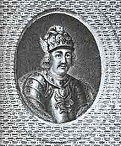
1174 In the spring William I of Scotland invades Northumbria, fights to a push, regroups in Scotland and invades again in June, fails to bring siege engines to take the castles, then sieges Alnwick Castle in early July while sending most of his army on raiding missions; on July 13 he is captured along with his best nobles in a surprise attack, then taken with his legs shackled under his horse to Falaise Castle in Normandy, France, and imprisoned; there he is forced to acknowledge Henry II as ruler of Scotland, along with the surrender of key Scottish fortresses and the provision of hostages in the humiliating Treaty of Falaise, and released on Dec. 8; the treaty formally declares Scotland's vassal status, making it a fief held of the English crown, and requires Scottish castles S of the Forth River to be garrisoned with English troops, beginning "a hundred years of rape and pillage" (Mel Gibson's 1995 film "Braveheart"). On May 15 Syrian sultan Nureddin (Nur ad-Din) (b. 1118) dies of fever in Damascus, and his preteenie son As-Salih Ismail al-Malik (1163-1181) (son of the sister of Bertrand of Toulouse?) becomes sultan of Syria; Saladan declares himself his vassal while planning to conquer Syria and Egypt, first marrying Nureddin's widow. On June 30 the boyars kill prince (since 1157) (St.) Andrei I Bogolyubsky (b. 1111) and make their protege the ruler of Vladimir, but the people of Vladimir and Pereslavl overthrow the oh-boy-it's-borscht boyars, and Andrei's brother Mikhail (Michael) Yuryevich (-1176) becomes prince of Vladimir (until 1176). On July 7 Henry II comes to Canterbury Cathedral to do penace over the death of Becket, walking 3 mi. on a flinty road in bare feet then enduring scourging by all 70 monks in the chapter after falling prostrate before Becket's crypt; the capture of the king of Scotland, allegedly on the same day causes everybody to believe that Becket has forgiven him - a symphony in P by Bonkerini? On July 11 king (since 1163) Amalric I (b. 1136) dies, and his leprous sn Baldwin IV (the Leper) (1161-85) becomes Latin king #6 of Jerusalem (until Mar. 16, 1185) - the original Jason? In Sept. the choir of Canterbury Cathedral accidentally burns down, with the precious crypt containing St. Thomas Becket preserved intact, causing Norman architect William of Sens (-1180) to be hired to supervise the bldg. of a bigger better one after the monks spend five years in mourning (finished 1184), using limestone from Caen, Normandy. The Byzantines under emperor Manuel I Comnenus defeat the Venetians, followed by Stefan I Nemanja of Serbia, and take him POW back to Constantinople, making him vow to never attack them again. Frederick I Barbarossa buys Tuscany, Spoleto, Sardinia and Corsica from Welf VI, causing his enemy William II the Good of Sicily to make a treaty with Genoa, followed by Venice next year. A little bit of rhythm and a whole lotta soul, do the locomotion with me? Nur ad-Din (b. 1117) dies, and his empire (Damascus, Aleppo, Mosul) is distributed to his relatives and lts., causing common-born Kurdish (Sunni) officer Saladin (Salah ad-Din Yusuf ibn Ayyub) (1138-93) of Damascus to begin a series of campaigns to conquer and reunify it (ends 1185); after he overruns Syria, he is created sultan of Egypt and Syria by the caliph of Baghdad, ending the Fatimid Dynasty that ruled Egypt since 968, and founding the Ayyubid Dynasty in Egypt and N Africa, Hejaz and Yemen, Syria, and N Mesopotamia, with capital in Damascus (ends 1341), declaring himself caliph - a natty dresser, all in black, with a black turban and beard? Henry II of England visits Ireland uninvited and records the use of whiskey (aquae vitae). A fire devastates Padua, requiring the city to be rebuilt. Top Gun begins 800 years ahead of Tom Cruise? Sports: The earliest recorded horse races in Europe are run by Tom Crusaders returning with Arab horses and a need for speed? Births: Hungarian-Croatian king (1196-1204) Emeric (Imre) (Henry) I Arpad (d. 1204); son of Bela III (1148-96) and Agnes of Chatillon (-1184) (daughter of Raynald of Chatillon). Serbian Orthodox Catholic archbishop #1 (1219-33) (St.) Sava (Rastko Nemanjic Glava) (d. 1236); son of Stefan I Nemanja (1109-99); brother of Stefan II Nemanjic (-1228); feast day: Jan. 14 (Jan. 27 Old Style). Deaths: Anglo-Norman poet Robert Wace (b. 1100) in Bayeux, Normandy. Russian prince (1157-74) St. Andrei I Bogolyubsky (b. 1110) on June 30 (murdered). Bohemian king (1058-72) Vladislav II (b. 1110) on Jan. 18. Syrian sultan Nureddin (Nur ad-Din) (b. 1118) on May 15 in Damascus (peritonsillar abscess). French Crusader king of Jerusalem (1136-74) Amalric I (b. 1136) on July 11 in Jerusalem. Spanish queen of Aragon (1136-64) Petronila (b. 1136) on Oct. 15 in Barcelona.


1175 On June 6 with Jerusalem-born William (Guillaume) (II) of Tyre (1127-86) becomes archbishop of Tyre (until Sept. 29, 1186). In June the Council of Gloucester sees Henry II restore Caerlon to Iorwerth ap Owain Want at the urging of Deheubarth lord Rhys ap Gruffydd. On Aug. 10 William I of Scotland confirms the Treaty of Malaise, er, Falaise in a big ceremony in York, at which Henry II makes him perform public homage and fealty both for his kingdom and his estates in England, promise to enforce the subjection of the Scottish Kirk to English jurisdiction, and promise to order his nobles and clergy to make personal submissions to Henry; from now on English kings claim to be overlords of Scotland; Henry considers the return of Northumberland and Cumberland to be case closed, and retains the right to choose William's wife, which allows him to keep him heirless into the 1180s. In Oct. Rory O'Connor of Ireland signs the Treaty of Windsor, recognizing Henry II as the Irish overlord, although he remains nominal high king of Ireland and king of Connacht outside Leinster, Meath, and Waterford, but all the Irish kings have to pay tribute to Henry II through O'Connor, and force Irishmen fleeing the conquered areas to return; haughty Normans begin to move into Ireland and lord it over the local "dogs"? William I the Cowardly Lion of Scotland does ceremonial allegiance to the haughty Norman king at York. Reuben II dies, and his son Reuben (Ruben) (Roupen) III (1145-87) becomes king #9 of Lesser Armenia in Cilicia (until May 6, 1187), remaining ever-friendly to the Crusaders. After Kilij Arslan II refuses to hand over some territory conquered from the Danishmends, the peace treaty with the Byzantines becomes kaput, and war is on. The Venetians make an alliance with the Normans against the Byzantines. Mohammed of Ghor begins a campaign of conquest in India, going on to subjugate and Islamize the entire Ganges plain W of Benares by his death in 1206. The O'Fergus brothers Gillebrigde and Uhtred of Galloway, Scotland rebel against William I (until 1185), and Donald Mac William, grandson of Duncan II starts a rising in N Scotland (until 1187). The bishop of Glasgow, Scotland receives the rights of a royal burgh. French-born (St.) Hugh of Lincoln (1135-1200) comes to England at Henry II's request and founds Witham Priory in Somerset in 1178-9 for monks settled by Henry II in penance for the murder of St. Becket, becoming the first of 10 Charterhouses (Carthusian monasteries) in England. William of Douglas is first mentioned in documents, becoming the first member of the Scottish Douglas (Gael. "dubh glas" = dark water) family in Lanark in the Vale of Douglas; his son Sir Archibald (Erkenbald) de Douglas (1213-40) becomes the first to attain knighthood. The Early Gothic Era in Architecture begins in France (ends 1250), featuring the pointed arch, ribbed vault, and flying buttress; it is originally called the "French Style", but in 1530 Giorgio Vasari calls it Gothic (barbaric), thinking it originated in or was fit only for barbaric Germany, and is not as cool as the revived Grecian style; N Europe is limited to brick because of the lack of bldg. stone, while Italy has plenty of marble, and France has white limestone from Caen; England has red sandstone and dark green Purbeck marble, but not much lumber because the primeval forests have been cut down, causing the development of hammer-beam roofs. The choral Passion is first performed. Poetry: Marie de France, Lanval; Arthurian poem about Sir Lanval, knight of the Round Table and a mysterious lady who gives him everything he wants until Guinevere falls for him and makes him choose; Ysopet ("Little Aesop"); 103 fables translated from English to French. Births: English archbishop of Canterbury (1233-40) (St.) Edmund Rich of Abingdon (d. 1240) on Nov. 20 in St. Edmund's Lane, Abingdon (7 mi. S of Oxford), Berkshire (later Oxfordshire); rich father, causing the epithet to be applied after his death; feast day: Nov. 16; canonized in 1246. HRE Roman king (1198-1209) and (1209-1215) Otto IV of Brunswick (d. 1218); son of Henry the Lion, duke of Bavaria, and Matilda, daughter of Henry II of England. Flemish Latin empress of Constantinople (1217-19) Yolanda of Flanders (Hainault) (d. 1219); daughter of Count Baldwin V of Hainault and Countess Margaret I of Flanders; sister of Baldwin I of Constantinople and Henry of Flanders; wife of Peter of Courtenay; mother of Marquis Philip of Namur (-1226), Robert of Courtenay (-1228), Marquis Henry of Namur (-1229), Baldwin II of Constantinople (-1273), Marchioness Margaret (Sybille) of Namur (1194-1217), Elizabeth of Courtenay (1199-1269), Yolanda de Courtenay, Eleanor, Marie de Courtenay (1204-28), and Agnes. French High Gothic architect Jean d'Orbais (d. 1231) in Orbais, Marne. Hungarian king (1205-35) Andras (Andrew) II (d. 1235); son of Bela III (1148-96); father of Bela IV (1206-70); ancestor of Edward III of England. English theologian-philosopher ("Doctor Irrefragibilis") ("Theologorum Monarcha") ("Fons Vitae") Alexander of Hales (Alexander Halensis) (d. 1245) in Gloucestershire. Deaths: Azerbaijan ruler Shams al-Din Eldiguz.
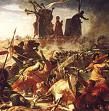


1176 On Apr. 20 Strongbow (b. 1130) dies in Dublin of an infection, leaving only infant daughter Isabel de Clare, 4th Countess of Pembroke and Striguil (1172-1220) as heir, causing Henry II to seize Leinster and place it in charge of a royal official. On May 29 the Battle of Legnano in Lombardy, Italy sees HRE Frederick I Barbarossa and his 3K troops incl. 2.5K knights defeated by 12K troops of the Lombard League led by Guido da Landriano (Landriani) (-1191) after his troops believe he has been KIA and flee, causing Frederick I to surrender in Venice, losing the support of the German princes, causing him to resort to diplomacy; Henry the Lion refuses to aid Barbarossa in his campaign against the Lombard League, and the latter doesn't forget it; the battle goes into Italian legend as a great V over foreign invaders, ending up mentioned in the Italian nat. anthem, and celebrated each year starting in 1935 on the last Sun. of May as the Palio di Legnano (originally the Sacra del Carroccio), while May 29 becomes the regional holiday of Lombardy. On Sept. 17 the Battle of Myriokephalon (Myriocephalon) in Phrygia sees the army of Seljuk sultan Kilij Arslan II of Rum defeat the Byzantine army of Manuel I in a valley as it advances on their capital of Konya; the Byzantine threat in the Anatolian plateau is kaput, and Manuel I Comnenus' wasted empire now begins a permanent decline, although he still has most of his army, but his health goes bad and he never again attacks the Turks, who keep moving W into Byzantine territory; meanwhile the Venetians force Manuel I to sign the Peace of 1176, renewing trade privileges and paying a heavy indemnity - and he carries the reminders of every glove that cut him till he cries out what? Mikhail Yuryevich is killed by the boyars of Rostov and Suzdal, and his brother Vsevolod III Yuryevich (Yurievich) (the Big Nest) (1154-1212) becomes grand prince of Vladimir (until 1212), going on to subjgate the boyars and raid the Volga people of Bulgaria, solidifying his rule, building up his capital Vladimir to the #1 city in Russia, and fathering 12 children with his Ossetian first wife Maria Shvarnovna (-1205) (incl. four future grand princes of Vladimir), earning him the name "Big Nest". After being ransomed from the gov. of Aleppo, former prince of Antioch (1153-61) Raynald (Reynald) (Reginald) of Chatillon (1125-87) marries Stephanie of Milly (1145-97), widow of Humphrey III of Toron, gaining possession of Kerak Castle and going on jihad against the pesky Muslims, harassing camel trains and attempting to attack Mecca in 1183, claiming he's trying to prevent Saladin from unifying the Muslim states - it's a mind over matter case? The Assize of Northampton extends use of the grand jury. Spanish immigrant rabbi Moses Maimonides (1135-1204) becomes the Ra'is al Yahud, the official rep. of the Jews to the Fatimid caliph; the position stays in the hands of his descendants until the early 15th cent. The first yearly Eisteddfod (eisteddfodau) (pr. eye-STETH-vode) ("sitting") of poets and musicians dressing up in Druid costumes is held at Cardigan Castle in Wales. Architecture: Ayyubid ruler Saladin begins the Citadel of Cairo (finished in 1184) on a promontory beneath the Muqattam Hills as the centerpiece of a wall around Cairo and Fustat anchored by the Nile River, which is still under construction in 1238; the citadel receives water from the 280-ft.-deep (85m) Well of Joseph (Well of the Spiral), with a 300-step stairway and a series of aqueducts. Novels: Walter Map (1140-1209) of Wales maps the Grail Cycle into the Arthurian legends in their present form. Pierre de Saint Cloud, Roman de Renard (OG "ragin" + "hart" = counsel + strong), the 1st vers. of the fables of Reynard the Fox, who lives in Maupertuis Castle with his wife Hermeline in the kingdom of King Leo the Lion with Isengrim the Wolf, Bruin the Bear, Baldwin the Ass, Tybalt the Cat et al. Births: Austrian duke (1198-1230) and Styrian duke (1194-1230) Leopold VI (the Glorious) (d. 1230); younger son of Leopold V (1157-94) and Helena (Ilona) of Hungary (1158-99) (daughter of Geza II and Euphrosyne of Kiev). Latin emperor of Constantinople #2 (1205-16) Henry of Flanders (d. 1216); son of Count Baldwin V of Hainaut and Margaret I of Flanders (sister of Philip of Alsace, count of Flanders); brother of Baldwin I (1172-1205). German mystic scholar (Jewish) Eleazar of Worms (Eleazar ben Judah ben Kalonymus) (Eleazar Rokeac) ("Perfumer)" (d. 1238) in Mainz; disciple of Judah ben Samuel of Regensburg. Deaths: English Norman knight Richard FitzGilbert "Strongbow" de Clare (b. 1130) on Apr. 20 in Dublin, Ireland. Japanese Yamato emperor #79 (1165-8) Rokujo (b. 1164) on Aug. 23.
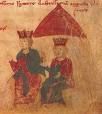
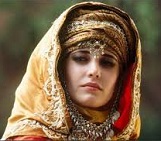
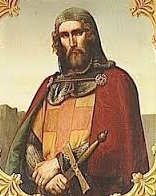


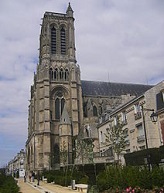
1177 In Jan. Anglo-Norman knight Sir John de Courcy (Courci) (1150-1219) invades Ulster (Ulaid), Ireland with 22 knights and 200 foot soldiers, defeating its last king Ruaidhrà Mac Duinnshléibhe in June, going on to build strongholds at Dundrum Castle in County Down and Carrickfergus Castle in County Antrum plus Benedictine and Cistercian abbeys, becoming known as its William the Conqueror. In Feb. big man William II the Good of Sicily (b. 1153) marries Joan Plantagenet (1165-99), daughter of Henry II of England and Eleanor of Aquitaine, and in July he sends a delegation to sign the Treaty (Peace) of Venice with defeated HRE Frederick I Barbarossa; too bad, to cement the deal he sanctions the marriage of his aunt Constance of Sicily (1154-98) (daughter of Roger II) to Frederick's son Henry (HRE Henry IV) (b. 1165), with her becoming his successor in case of his death without heirs, which later dooms the Norman kingdom of Sicily. In May after the Normans defeat the Ulaid of Ulster, Henry II holds a royal council in Oxford, dividing Leinster into three admin. areas, and with the approval of papal legate Cardinal Vivian, Henry II's 10-y.-o. youngest son Evil Prince John Lackland is made the first Lord of Ireland (ends 1542), requiring the principal Anglo-Norman landholders in Ireland to swear fealty to him; too bad, as a haughty Norman he soon begins treating the natives like serfs, giving large chunks of land to his friends, incl. Tipperary to his butler; a Norman earldom is established in Ulster (until 1333); he doesn't come to live in his new domain until 1185, and soon is recalled, leaving a group of haughty Normans behind to sow the seeds of centuries of ire?; the eternal battleground city of Belfast (modern-day pop. 340K/483K) on Belfast Lough, an inlet of the North Channel at the mouth of the Lagan River with a fine harbor is founded with a castle built to defend a ford over the river; 800+ years of direct English rule of Ireland begins. In June William "Longsword" Montferrat, Count of Jaffa and Ascalon (b. 1140) dies of malaria in Ascalon, and in Aug. his wife (since 1176) Queen Sibylla (Sibylle) (1160-90) (daughter of Amalric I, and first cousin of Henry II of England) bears Baldwin V (Baudoinet) of Jerusalem (Monteferrat) (1177-86), going on to become the love goddess of the Crusaders; on Easter 1180 after her first cousins Bohemond III of Antioch and Raymond III of Tripoli invade the kingdom of Jerusalem to force her to marry her to old fart Baldwin of Ibelin (1131-87) (older brother of Balian of Ibelin), they are headed off at the pass when her leprous brother Baldwin IV marries her to Guy de Lusignan (1150-94), brother of Jerusalem constable Aimery (Amaury) (Amalric) II of Lusignan (1154-1205) (son-in-law of Baldwin of Ibelin), a badass climber who pals with Muslim-killer Raynald of Chatillon while Sibylla wears the britches; In Oct. Baldwin IV also betrothes his half-sister 8-y.-o. Isabella I of Jerusalem (1172-1205) (daughter of Amalric I of Jerusalem and Maria Comnena) to Humphrey IV of Toron (1166-98), putting her in the hands of his mother Stephanie of Milly and her hubby Raynald of Chatillon in Kerak Castle. On July 24 after Frederick BArbarossa's big D at the 1176 Battle of Legnano, the Treaty (Peace) of Venice between Pope Alexander III, the N Italian city-states of the Lombard League, and HRE Frederick I Barbarossa sees Freddy renounce his antipope Callixtus III in return for his excommunication to be lifted; the Norman kingdom of Sicily take part in negotiations. On Sept. 21 after Pope Alexander III intervenes on Louis VII's side, Henry II and Louis VII sign the Treaty (Pact) of Ivry, a non-aggression pact, clearing the way for the Third Crusade. On Sept. 27 Pope Alexander III writes a letter to Prester John to be delivered by his physician Philip to the rumored Indian Christian king, the "Illustrious and Magnificent King of the Indies", giving him permission to build a shrine in Rome and join the Church; the letter carrier never returns. On Nov. 25 a Crusader force of 450 knights (80 Templars) and several thousand infantry under Baldwin IV, Raynald de Chatillon, and Odo de St. Amand defeats Saladin and his 9K-26K Ayyubids at the Battle of Montgisard, attacking after his army begins to disperse and securing a rare Latin V. Byzantine emperor Manuel I scores a V against the Seljuks in Bithynia, and John Vatatzes drives them out of the Meander Valley. Bohemond III of Antioch and Count Philip of Flanders (who arrived on pilgrimage) unsuccessfully siege Harem (Harim) in N Syria on the route between Antioch and Aleppo. Duke Henry II Jasomirgott of Austria dies, and Leopold V (the Virtuous) (1157-94) becomes Babenberg duke of Austria (until 1194). Mean Old Mieszko III is driven out, and his brother Casimir II the Just (1138-94) is elected ruler of Poland by the nobles in return for privileges. After helping lead the Norman invasion of Ireland, Anglo-Norman knight Miles de Cogan (-1182) and Cambro (Welch)-Norman knight Robert FitzStephen (-1183) are jointly granted the kingdom of Cork "from Lismore to the sea", excluding the city of Cork, going on to make raids in Connaught. Georgian nobles revolt against George III (b. 1184) in the name of Prince Demna (Demetre) (1154-78) (son of George III's late elder brother David V), gathering an army of 30K and holding up in Lore until royal forces kick their butts and blind and castrate the pretender, after which George III appoints his daughter Tamar next year as heir apparent and co-ruler. The Cham raid and sack Angkor (Cambodia), which is beset with internal problems over succession. Architecture: The Schottenkirche (Scottish or New Irish Church) is built in Vienna by the Irish Benedictines (finished 1880); Adolf Hitler is later fond of painting it. The Gothic Soissons Cathedral in Soissons, France is begun; the choir (based on Chartres Cathedral) is finished in 1211, and the nave later in the 13th cent., with the single W tower imitating those of Notre-Dame de Paris built in the mid-13th cent. Nonfiction: Moses Maimonides (1135-1204), Mishneh Torah; summary in Hebrew of the Jewish Torah. Births: German king (1198-1208) and duke of Swabia (1196-1208) Philip of Swabia (d. 1208); 5th and youngest son of HRE Frederick I and Beatrix (daughter of Count Renaud III of Burgundy); brother of HRE Henry VI; rival of HRE Otto IV. French countess of Champagne Blanche (Blanca Sanchez) of Navarre (d. 1229); youngest daughter of Sancho VI of Navarre (1132-94) and Sancha of Castile (1139-79). Deaths: Austrian duke #1 (1156-77) Henry II Jasomirgott (b. 1107) on Jan. 13. Scottish Stewart (Stuart) Dynasty founder Walter Stewart (b. ?).


1178 On June 30 after HRE Frederick I Barbarossa and Pope Alexander III sign the Peace of Venice, Frederick I is crowned king of Burgundy at Arles by Alexander III, who allegedly places his foot on the neck of the prostrate emperor, which later pisses-off pope-hating Protestants. On Aug. 29 after being seiged in Vierbo by Christian of Mainz, Antipope Callistus III submits to Pope Alexander III at Tusculum, who appoints him gov. of Beneventum, and no new antipope is elected by partisans for a year; meanwhile in Sept. Alexander III, according to the terms of the Peace of Venice convokes an ecumenical council at the Lateran for next year's Lent (Mar.). Henry II selects five justices from the Curia Regis to form a separate tribunal, becoming the beginning of the royal court system. The first English invasion of Connaught, Ireland is repulsed, with the town of Galway (Gael. "Dun Gaillimhe" = fort at the mouth of the Gallimhe) (founded in 1124 by Connacht king Tairrdelbach Ua Conchobair) on the Corrib River in Galway Bay (modern-day pop. 80K) becoming an anti-English citadel for cents., nicknamed "the city of the tribes" for its 14 merchant families. Mecklenburg bishop Berno visits Rome to attend the Third Lateran Council, allowing the pesky pagan Wends to revolt against the Roman Catholic Germans and destroy Doberan Monastery, killing 78 inmates; it is rebuilt in 1186. Danish bishop of Roskilde (since 1158) Absalon (Axel) (1128-1201) becomes archbishop of Lund (until 1201), going on to introduce canon law in Denmark, attempt monastic reforms, and become influential in Danish politics. Muslim sailors discover America ("Mu-Lan-Pi")? Architecture: William of Sens is injured during the bldg. of the new Canterbury Cathedral, and is replaced by William the Englishman (-1214), who decides that the stones shipped in from Caen aren't enough, and furnishes the interior with marble from Purbeck and Dorset. His 1174 capture being attributed to the intervention of martyr St. Thomas Becket, William I the Lion founds Arbroath (Aberbrothock) Abbey in his honor, and richly endows it; the abbot allegedly places a bell on Bell Rock (Inchcape), a reef of red sandstone rocks in the North Sea 12 mi. to the SE which "moved by the sea, giving notice to the saylers of the danger". The 22-arch 920m x 4m Avignon Bridge in France is begun (ends 1185), where later people "dance round and round". The First Rialto Bridge over the Grand Canal of Venice is designed, built of wood, needing to be rebuilt 2x by the end of the 13th cent. Nonfiction: Richard Fitznigel, Dialogus de Saccario; treatise on the financial admin. of England. Births: Spanish king of Arago and count of Barcelona (1196-1213) Peter II (the Catholic) (d. 1213) in July in Huesca; son of Alfonso II of Aragon (1152-96) and Sancha of Castile (1154-1208). Icelandic "Prose Edda" poet-historian-politician Snorri Sturluson (Sturlson) (d. 1241).

1179 On Mar. 5-19 the Third Lateran (11th Ecumenical) Council, called by Pope Alexander III and attended by 302 bishops condemns the Waldensians and Albigenses for "errors and impieties", and promulgates 27 canons, incl. setting minimum ages for church offices (25 for benefices involving the care of souls, 30 for the episcopate), forbidding clerics to receive women into their houses or to enter a nunnery without a reason, and forbidding tournaments and furnishing Saracens with materials to build galleys, vesting the exclusive right of papal election in a two-thirds majority vote of the College of Cardinals (Lat. "hinges"); it also forbids Christian midwives and nurses from ministering to Jews. On May 23 after he conquers lands to the S to which no other Christian monarch had claim, Pope Alexander III issues the bull Manifestis Probabum, officially recognizing Alfonso I Henriques as the first king of the independent Roman Catholic kingdom of Portugal and no longer a vassal of the kingdom of Leon. The town of Durango in the Basque country of N Spain (modern-day pop. 29K) is first documented as a suzerain of the Kingdom of Navarre. On June 10 a Latin army led by Baldwin IV and Raymond of Tripoli is defeated by the Ayyubid army Saladin at the Battle of Marj Ayyun (Ayyoun); Templar master Odo of St. Armand is blamed for his rash attack. On Sept. 29 Cardinal Lando (Lanzo) Sitino of Sezza (from a noble Lombard family) is elected Antipope Innocent III (-1180) by the Roman barons with the support of HRE Frederick I Barbarossa, and the brother of antipope Victor IV gives him the fortified castle of Palombara to hole-up in; after Pope Alexander III's man Cardinal Hugo bribes his guards to give him up, he is imprisoned in the Monastery of La Cava next Jan., where he dies. On Nov. 1 after suffering a stroke, Louis VII of France has his son Philip (Philippe) II Augustus (1165-1223) crowned as coregent in the Cathedral of Notre Dame in Rheims, which becomes the custom until the time of Charles X (1522); under his reign there is a gigantic expansion in the power of the French monarchy. The Treaty of Cazola, signed by Alfonso VIII of Castile and Alfonso II of Aragon agrees to a future partition of Al-Andalus. Count Henry I of Champagne, who had gone to Jerusalem with French knight-relatives Peter of Courtenay (brother of Louis VII), Philip de Dreux et al. is captured while returning overland by Kilij Arslan II of Rum, who forces Byzantine emperor Manuel I to pay his ransom, after which he soon dies (1181). William I the Lion makes the first of several expeditions into N Scotland to fight the rebels, building new castles on the N side of Beauly and Cromarry Firths, and chartering the city of Aberdeen 130 mi. NW of Edinburgh between the estuaries of the Don and Dee Rivers (modern-day pop. 196K/214K) as a royal burgh, where it goes on to become known as the "Silver City by the Sea" and "Granite City", becoming the main city of N Scotland. Births: French count of Champagne (1197-1201) Theobald III (d. 1201) on May 13 in Troyes; youngest son of Henry I of Champagne and Marie of France; younger brother of Henry II of Champagne; husband (1199-) of Blanche of Navarre (1177-1229); father of Theobald IV (1201-53). Arab geographer-biographer (Sunni Muslim) (freed Greek slave) Yaqut al-Hamawi (Yaqut Shihab al-Din ibn-AbdullÄh al-Rumi al-Hamawi) (d. 1229) in Constantinople. French Crusader lord (1204-36) John of Ibelin, "the Old Lord of Beirut" (d. 1236); son of Balian of Ibelin (-1193), Lord of Nablus and Ibelin Castle in Jerusalem and Maria Comnena (1154-1217) (widow of Amalric I of Jerusalem); half-brother of Queen Isabella of Jerusalem (1172-1205); uncle of John of Ibelin (1215-66). Spanish queen consort of Leon (1197-1204) and queen of Castile and Toledo (1217) Berengaria (the Great) of Castile (d. 1246); eldest child of Alfonso VIII of Castile; wife (1197-1204) of Alfonso IX of Leon; mother of Ferdinand III of Castile (1199-1252). Deaths: German mystic nun St. Hildegard of Bingen (b. 1098) on Sept. 17 in Bingem am Rhein, Rhine Palatinate.




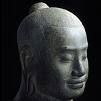

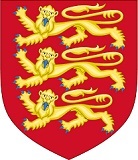
1180 By this time there are 60K Latins (Italians) living in Constantinople, trading with Venice, Pisa, and Genoa, and competing with Greek Byzantine traders, inflaming jealousies - feeling divine, we know how to do it? In Jan. Antipope (since 1179) Innocent III dies, leaving Alexander III as the sole reigning anti-anti-equals-real pope. On Mar. 21 the Genpei (Gempei) (Jisho-Juei) War in Japan, a civil war between the Taira (Heike) and Minamoto (Genji) clans (ends 1185) begins when Japanese emperor (since 1168) Takakura (b. 1161) is forced to abdicate in favor of his eldest son Antoku (1178-85) (personal name Tokohito), who becomes Japanese Yamato emperor #81 (until 1185). On Mar. 27 caliph (since Dec. 18, 1170) Al-Mustadi (b. 1142) dies, and his son Al-Nasir li-Din Allah (1158-1225) becomes the 34th and last powerful Abbasid caliph (until Oct. 4, 1225), reviving the caliphate in Baghdad in the wake of the decline of the Seljuks and extending his domain into Mesopotamia and Persia; he gives state support to the Sufi Futuwwa (Arab. "youth and chivalry") brotherhoods of craftsmen and urbanites who practice an ideology of manly virtue and social justice - because I always feel pretty and feminine? On Sept. 18 king (since Aug. 1, 1137) Louis VII the Not So Younger (b. 1120) dies, and on Sept. 18 his really young Latin-less 14-y.-o. miserable crafty hunchbacked son (no time for education now?) Philip II Augustus (1165-1223) becomes Capetian king #7 of France (until July 14, 1223); in his long reign he strives to enlarge the French royal domain (which is why they call him Augustus, although they probably mean the Augmentor?), eventually acquiring Normandy, Maine, Anjou, and Touraine at the expense of ninny King John I of England, and creating the bailii, bureaucrats that combine the functions of the English sheriffs and itinerant judges, without their roots in the local community, replacing the corrupt prevots; Philip II goes on to become known as the Maker of Paris, paving and walling it, starting construction of the Louvre fortress on the right bank of the Seine River, and issuing a charter for the U. of Paris, which evolves into a nice place to get a traditional liberal education (like he didn't have time for) (while Oxford tries to keep up with it?); he makes a 6-year alliance with Henry II of England so that he can take on Philip of Artois and the counts of Champagne and crush the baronial league; seeing his chance, duke Hugh III of Burgundy (1142-92) gets several nobles to change allegiance to him, pissing-off Philip II and causing him to invade Burgundy and siege Chatillon until Hugh yields, pays a high ransom for his captured son, and gives up his territorial ambitions, ending up going on the Third Crusade and becoming the most trusted ally of Richard Lionheart of England. Marrying too young is a mistake? On Sept. 24 emperor (since Apr. 5, 1143) Manuel I Comnenus (b. 1118) dies, and his 11-y.-o. son Alexius II Comnenus (Alexios II Komnenos) (1169-83) becomes Roman Byzantine emperor #156 (until Sept. 24, 1183), with his mother Maria of Antioch (1145-82) as regent, who relies almost exclusively on Latins; he marries 8-y.-o. Agnes of France (1172-?), daughter of Louis VII; Stephen Nemanya of Serbia sees his chance, and begins establishing his independence from Constantinople and conquering southern territories; Kilij Arslan II of Rum also sees his chance, and allies with Saladin to take most of the S coast of Anatolia. The Assembly of Leczyca in Poland results in Casimir II the Just giving the clergy big (but just?) concessions. In this decade Stratford-born Ranulf de Glanville (Glanvil) (-1190), former sheriff of Yorkshire (1163-70) and Lancashire (1173-6), and justice of the king's court (1176-80) becomes justiciar (chief judicial officer) of Henry II, ending up ruling England during Henry II's frequent sojourns in France while reforming the English judicial system and writing Tractatus de Legibus (Treatise on Laws), the first systematic codification of English law, superimposing Norman feudal law upon Anglo-Saxon local law to create "the law and custom of the realm". Philip II Augustus imprisons all the Jews in France after accusing them of poisoning Christian wells, releasing them only after a heavy ransom is paid - I just hate waste of any kind? A massacre of Jews in Toledo, Spain is instigated by high level members of the Castilian court, aided by suspicions that they are selling Christian slaves to the Muslims, and by the Jewish legends of Rachel. For failing to aid HRE Frederick I Barbarossa against the Lombard League, the bann of the empire is proclaimed against insolent, defiant Henry III the Lion at Wurzburg, who is deposed and defeated, causing Lower Saxony to cease to exist as an independent entity. The Hungarian banate (province) of Bosnia gains independence under Ban Kulin (1163-1204). Stefan I Nemanja spends the decade crushing the pesky heretic Bogomils, while going back to warring against the Byzantines, since his vow to not attack them died with Manuel I. In 1180 the Benin Empire in S Nigeria is founded by the Edo people (ends 1897), with capital at Edo (modern-day Benin City); in 1440 Ewuare becomes king (until 1473), expanding it from a city-state to an empire. About this time Jayavarman VII (1125-1215) becomes ruler of Angkor (Cambodia) (Khmer), and expels the invading Cham, then builds the spectacular Mahayana Buddhist Bayon Temple in the center of the Angkor Thom wall enclosure. The original Begin the Beguine? About this time first Beguine (from the French word for begging) community for lay widows of Crusaders is established in Liege by Roman Catholic priest Lambert le Begue (Bègue) (the Stammerer) ( Lambert li Bègues) (-1187); the widowed babes take no vows and are free to leave and marry, and the governors are called mistresses; no wonder that after the sect spreads all over Europe they begin to be suspected of ho, er, heresy? In this decade a Nestorian metropolitan is appointed for Kashgar. The Three-Lions English Royal Coat of Arms is standardized. Inventions: Glass windows first appear in private English houses. The first windmills with vertical sails appear in Europe. Nonfiction: Jocelyn, Life of Kentigern. Rogerius Salernitanus (1139-95), The Practice of Surgery (Practica Chirurgiae); becomes a std. work in European univs.; 2nd ed. pub in 1250 by his pupil Rolandoo de Parma of the U. of Bologna; helps turn surgery from amateur butchery to a profession. Poetry: Anon., The Colloquy of the Old Men (Tales of the Elders) (Acallam na Senorach) (Agallamh na Seanorach); 8K-line poem written in Ireland about St. Patrick and his travels with pagans Cailte mac Ronain and Oison, relatives of Fionn mac Cumhaill of the Fianna (Fenians). Anon., The Nibelungenlied (Song or Lay of the Nibelungs) (1180-1210); epic poem in Middle High German, based on German legends, about dragon-slayer Siegfried at the Burgundian court, his murder, and his wife Kriemhild's revenge; the first German epic; Alberich, leader of the Nibelung dwarf race makes a ring from the Rheingold; Siegfried wins the treasure of the Nibelungs, kills a dragon, and helps King Gunther of Burgundy (brother of Kriemhild) win Brunhild, queen of Iceland for a wife using magic, causing Kriemhild to slay Gunther; not to be confused with Brunhilde, a Valkyrie whom Siegfried releases from enchantment, or Brynhild, a Valkyrie awakened from enchanted sleep by Sigurd and deceived by him into marrying Gunnar, bringing about Sigurd's death and then killing herself? Chretien de Troyes (1144-90), Lancelot, the Knight of the Cart; first story to feature Sir Lancelot as a main char., telling the story of the abduction of Queen Guinevere and her love affair with him, pioneering the concept of courtly love; it was completed by another writer, and Chretien hated its featuring of courtly love?; Yvain, the Knight of the Lion; Arthurian romance about a knight who is rejected by his lady for breaking a promise and performs a number of heroic deeds to retain her favor. Births: Japanese Yamato emperor #82 (1183-98) Go-Toba (d. 1239) on Aug. 6; 4th son of Takakura (1161-81); grandson of Go-Shirakawa (1127-92). English knight Gilbert de Clare, 5th Earl of Hertford (d. 1230) in Hertford, Hertfordshire; son of Richard de Clare, 4th earl of Hertford (1162-1218) and Amice Fitzrobert. Spanish poet (the first?) Gonzalo de Berceo (d. 1248) in Berceo; invents the quaderna via, a 4-line rhyming stanza. Deaths: Spanish Jewish scholar Abraham ibn Daud (b. 1110); leaves Emunah Ramah (Sublime Faith), introducing and reconciling Aristotle to Judaism, and Sepher Haqabala (Book of Tradition). English humanistic philosopher (bishop of Chartres) John of Salisbury (b. 1115); leaves Policraticus. Byzantine emperor (1143-80) Manuel I Komnenos (b. 1118) on Sept. 24. French king (1137-80) Louis VII (b. 1120) on Sept. 18 in Saint-Pont, Allier; buried in St. Denis Basilica. English bishop of Chartres (1176-80) John of Salisbury (b. 1120) on Oct. 25 near Chartres. Persian Muslim mathematician-astronomer Samau'al al-Maghbribi (b. 1130) in Maragha, Iran; leaves the anti-Semitic polemic Silencing the Jews. Arab Abbasid caliph (1170-80) Al-Mustadi (b. 1142) on Mar. 27.

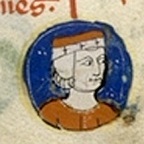

1181 On Mar. 17 Henry I the Liberal of Champagne (b. 1127), broken by his trip to the Holy Land dies in Troyes, and his eldest son (by Marie of France, daughter of Louis VII and Eleanor of Aquitaine) Henry II (1166-97) becomes count of Champagne (until 1197). On Apr. 5 Ramon Berenguer III (b. 1158) is assassinated near Montpellier, France by orders of Adhemar of Murviel, and his younger brother Sancho (Sanche) (1161-1223) becomes count of Provence (until 1185). In July after his daddy demands it for past help to her daddy Duke Conan IV, Geoffrey (II) Plantagenet of Richmond (1158-86), 4th son of Henry II of England and Eleanor of Aquitaine marries heiress Constance of Brittany (1161-1201), becoming duke of Brittany and 3rd earl of Richmond (until 1186), founding the Plantagenet Dynasty in Brittany (ends 1203). On Aug. 30 Pope (since 1159) Alexander III dies, and on Sept. 1 Ubaldo Allucingoli is elected Pope (#170) Lucius III (-1185). Henry the Tamed Lion's duchy of Saxony (founded 858) is cut up at the Diet of Gelnhausen into many small portions and given to various princes and bishops; Bernhard of Ascania (1134-1212), son of a former duke of Saxony receives the title of duke of Saxony and a small district between the Elbe and Weser Rivers; the greater share of its W portion is given (as the Duchy of Westphalia) to the archbishop of Cologne; the Saxon bishops who had before this possessed sovereign authority in their territories, though under the suzerainty of the Duke of Saxony, are now subject only to the imperial govt.; Germany is now forever plagued by division into petty quarreling states. Henry the Lion having fallen, HRE Frederick I Barbarossa bestows the Duchy of Bavaria on Bavarian Count Otto V (1340-79), son of Otto IV (-1156) (ancestor of Otto II, who acquired Wittelsbach Castle near Aichach in 1119), founding the Wittelsbach Dynasty in Bavaria (ends 1918), ruling first as dukes, then from 1806 as kings, plus two dudes who make it to HRE, Louis IV (1314-17) and Charles VII (1742-5), and one dude who becomes German king, Rupert of the Palatinate (1400-10); along the way they acquire the Palatinate in 1214, and split into two branches in 1329, the Bavarian and Palatinate. Philip II Augustus of France combats a coalition of barons in Burgundy, Champagne and Flanders (until 1185). Henry II of England proclaims the Assize of Arms of 1181, requiring every freeman to supply himself with arms and armor proportional to his personal property, the value of which is determined by a local jury, all on pain of "vengeance, not merely on their lands or chattels, but on their limbs", restoring the old Anglo-Saxon fyrd duty to counterbalance the feudal baronage; restrictions are placed on Jews. The town of Vyatka (modern-day Kirov) in Russia on the left bank of the Vyatka River 265 mi. NE of Nizhni Novgorod is founded as a colony of Novgorod. Architecture: Nicolo Barattiere builds the first Rialto (It. "rio alto" = deep river) Bridge in Venice, connecting Rialto and Mercerie; a pontoon bridge, it is later replaced by a wooden bridge with shops. St. Peter le Poer Church in London on Old Broad St. is first mentioned. Nonfiction: Ranulf de Glanville (-1190), Tractatus de Legibus et Consuetudinibus Regni Angliae; first printed in 1554. Deaths: French count of Champagne (1152-81) Henry I the Liberal (b. 1127) on Mar. 27 in Troyes. Spanish count of Provence (1173-81) Ramon Berenguer III (b. 1158) on Apr. 5 near Montpellier, France (assassinated). Japanese Yamato emperor #80 (1168-80) Takakura (b. 1161) on Jan. 30.


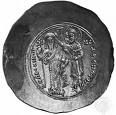
1182 On May 12 Valdemar I (b. 1131) dies, and his son Canute VI (1163-1202) becomes king of Denmark (until Nov. 12, 1202); an unsuccessful peasant revolt in Scania (S Sweden) is led by an alleged illegitimate son of Olaf II, who ruled Scania from 1139-41. That's how it begins-uh? After anti-Latin sentiment causes a popular revolt in Constantinople, Andronicus I Comnenus (Andronikos I Komnenos) (1118-85) (an uncle of Alexius II) leaves retirement, obtains backing from the army and marches on Constantinople, overthrowing the regents and massacring the Latin pop., mainly Venetian and Genoese merchants, and waging war with Patriarch Theodosius I (who is arrested), and porphyrogenita Maria Komnene (eldest child of Manuel I) and her hubby (Caesar) Renier of Montferrat, who are poisoned; remaining nuisance Empress Maria of Antioch is imprisoned and strangled by eunuch Pterygeonites and Constantine Tripsychos; Alexius II's marriage to Agnes is annulled, and he is married to his own daughter Irene, with Andronicus acknowledged as co-emperor. Kilij Arslan II of Rum captures the city of Cotyaeum (Kutahya) in NW Anatolia from the Byzantines. With umpteen-zillion up for grabs, no wonder they're in a rush? Spurred on by Christian businessmen who resent competition in the practice of usury, French king (1180-1223) Philip II Augustus (1165-1223) expels all Jews from France after confiscating their real estate and giving their synagogues to the Church, and annuls all loans made by Christians to Jews in France, taking 20% for himself; in 1198 he changes his mind and lets them return. About this time the Lauda Spirituale (Italian vernacular hymns of praise) are born, becoming the first Christmas carols; after Savonarola prohibits all other sacred music in 1480, they become super-popular in Florence. Architecture: La Madeleine Church in Paris, France is founded after Bishop Maurice de Sully (-1196) seizes a synagogue from the Jews and consecrates it to Mary Magdalene. Births: Greek Byzantine emperor (1203-4) Alexius IV Angelus (Alexios IV Angelos) (d. 1204). Italian Roman Catholic monk and Franciscan Order founder (St.) Francis of Assisi (Giovanni Francesco Bernardone) (d. 1226) (b. 1181?) on Sept. 26 in Assisi; son of rich cloth merchants Pedro Bernardone and Donna Pica; given name John, but gains the nickname Francis after his father teaches him French; feast day: Oct. 4; patron saint of animals, the environment, and Italy. Deaths: Arab Muslim Rifa'iyya Sufi order founder Ahmad al-Rifa'i (b. 1118) in Tal Afar. Danish king (1157-82) Valdemar I (b. 1131) on May 12. Byzantine empress Maria of Antioch (b. 1145) (executed by strangulation).


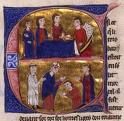
1183 On June 2 after gen. Minatomo no Yoshinaka (1154-84) AKA Lord Kiso enters the Japanese capital Heian, causing the Taira clan to flee along with 7-y.-o. Japanese Yamato emperor (since 1180) Antoku to avoid abdication, the Taira clan loses the Battle of Kurikara Pass (Tonamiyama) and flees W; on Sept. 8 in Antoku's absence retired emperor Go-Shirakawa elevates his 3-y.-o. brother Go-Toba (1180-1239), who becomes Japanese Yamato emperor #82 (until Feb. 18, 1198). On June 11 after the Gascons revolt against the harsh treatment of Richard I and call on English titular king (since June 14, 1170) Henry the Young King (b. 1155), who rebels against his father Henry II again, he dies suddenly just as English forces arrive on the Continent; this leaves Richard Lionheart as heir to England, Normandy and Anjou, but Henry II wishes to give Aquitaine to John Lackland (so he won't lack land anymore?), turning Richard against him; on Dec. 25 Henry and Eleanor have some verbal fireworks about hanging from the nipples and riding bare-breasted :) (James Goldman's 1968 film The Lion in Winter). You got to treat her like a lady and she'll give in to you? On Sept. 24 14-.y.-o. emperor (since Sept. 24, 1180) Alexius II (b. 1169) is strangled with a bow string at Andronicus I's orders, and he becomes the sole emperor, Roman Byzantine emperor #157 Andronicus I Comnenus (Andronikos I Komnenos) (1118-85) (until Sept. 12, 1185); he then marries Alexius' 11-y.-o. widow Agnes, cleans the court of the hated Latins, massacring them, then reforms the govt. and lessens taxes; Stefan I Nemanja allies with Bela III of Hungary and Kulin of Bosnia and uses all this as an excute to invade Byzantine soil, advancing through the Morava Valley to Sophia, after which the Hungarians drop out, and they go on to raid W Bulgaria; the AIMA Prophecy is reset? In Sept. the week-long Battle of Al-Fule (La Feve) (Castrum Fabe) near Merhavia in the Jezreeel Valley 5 mi. SE of modern-day Afula, Israel is a push between the Crusader army of Guy de Lusignan and the Ayyubid army of Saladin, who is forced to retreat without capturing any strongholds after destroying many farms and villages. On Nov. 20 leprous king (since July 11, 1174) Baldwin IV (d. 1185) has his 6-y.-o. nephew (son of his sister Sibylla) crowned as Baldwin V (1177-86), Latin king #7 of Jerusalem after rejecting the idea of appointing pilgrim-ambusher Guy de Lusignan as regent (until Mar. 16, 1885); meanwhile Isabella I and Humphrey IV of Toron wed, keeping Guy's main backers Raynald of Chatillon and Joscelin of Courtney away from Jerusalem. Ibn Jubair tours Christian Syria, which has a larged mixed Euro-Syrian pop. after the Crusaders failed to bring their wives, and describes his fellow Muslims as well-treated by the Franks and prosperous, but complains of Acre "swarming with pigs and crosses", with a vile Euro Christian smell, wishing that one day the infidel polytheists will rise to the level of his superior Muslim civilization; meanwhile after swearing to never pardon him for his attacks on Muslim caravans, Saladin sieges Kerak Castle in Oultrejordain (Transjordan) 75 mi. S of Amman, stronghold of Raynald (Reynald) (Reginald) of Chatillon (1125-87); since he does it during the marriage of Humphrey IV of Toron and Isabella I of Jerusalem, he chivalrously agrees not to target their wedding chamber with his siege machines; the siege is quickly relieved by Raymond III of Tripoli, former (1174-6) regent of Baldwin IV of Jerusalem, who arrives carried on a stretcher; Saladin tries it again next year, with the same result, becoming the last major Muslim siege of a Crusader stronghold until Jerusalem in 1187. The Peace of Constance recognizes the autonomy of the Lombard League of cities under imperial overlordship, allowing Venice to establish a near-monopoly in the trading of gold and silver until the 1290s. Saladin captures Aleppo from the Zengids, who held it since 1128; it is ruled by the Ayyubids until 1260. Alaeddin Takish invades Khorasan. Somesvara IV, son of Taila III regains control of Kalyani in E India (until 1189). Milan extends its walls, triggering rapid growth, becoming a center of the wool trade and armor manufacture; the govt. consists of the parlamento (consiglio grande) (2K-800 members), the credenza (committee of 12) (for urgent business), and the consuls (execs), elected for one year and responsible to the parlamento. Rory O'Connor retires to an abbey; meanwhile Henry II petitions the pope to crown his son John king of Ireland, which proves unpopular with the Irish. Deaths: English titular king (1170-85) Henry the Young King (b. 1155) on June 11 in the Castel of Martel, Lot, France. Byzantine emperor #156 (1180-3) Alexius II (b. 1169) on Sept. 24 (strangled).



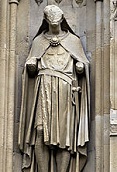
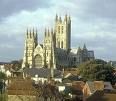
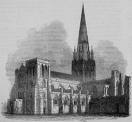

1184 Millennium Feverists pick this year as the End of Days for some reason which has been lost? - ask Brainman Daniel Tammet about them zoom zoom zoom number-colors? In Jan. while celebrating in Kyoto and deciding to split from his clan and plot with his cousin Minamoto no Yukiie to kidnap Go-Shirakawa and establish their own govt. N of Kyoto, Minatomo no Yoshinaka flip-flops before Yoshinaka razes the Hojuji Palace and seizes Go-Shirakawa, and leads a coalition of Minamoto Taira sympathizers in the Siege of Hojujiden, causing Yoshinaka to flee across the Uji Bridge, fighting the Feb. 19 Second Battle of Uji (3rd in 1228), after which Yoshinaka is defeated and KIA by Yoshitsune on Feb. 21 at the Battle of Awazu, after which on Mar. 20 the Minamoto attack and capture a primary Taira fortress in Suma (W of modern-day Kobe) in the Battle of Ichi-no-Tani, then the Minamoto chase and defeat the fleeing Taira from Ichi-no-Tani to Yashima in the Battle of Kojima, followed on Mar. 22, 1185 by the Battle of Yashima near Shikoku, which is a V for the Minamotos The original Tara in Georgia? On Mar. 27 Georgian king (since 1156) George III (b. ?) dies, and his daughter Tamar (Tamara) (Thamar) the Great (1160-1213) becomes queen of Georgia (until Jan. 18, 1213), their first woman monarch, presiding over a golden age, inspiring poets incl. Rustaveli. On June 15 Magnus V (b. 1156) dies, and pint-sized priest Sverre Sigurdsson (1145-1202), son of a comb maker from the Faroes becomes Birkebeiner king #2 of Norway (until Mar. 9, 1202). On July 29 Abu Yaqub Yusuf I dies, and his son Abu Yusuf Yaqub al-Mansur (Moulay Yacoub) (1160-99) becomes Almohad caliph #3 of Spain (until Jan. 23, 1199), banishing Averroes in 1194 to Lucena (near Cordova) after public outcry against his heresies, until 1198, when he is forgiven and recalled, and dies the same year. In Oct.-Nov. the Synod of Verona takes severe measures against heretics such as the Cathari, the Waldenses, and the Arnoldists, starting with excommunication. In Dec. Exeter-born Cistercian abbot and bishop of Worcester Baldwin of Ford(e) (1125-90) becomes archbishop of Canterbury (until Nov. 19, 1190). The Diet of Mainz shows HRE Frederick I at the height of his grate powah. Cyprus frees itself from Byzantium, only to gain a new tyrant in the form of Isaac Comnenus (1155-95), grandnephew of Manuel I Comnenus. HRE Frederick I's claim of overlordship of Denmark is haughtily rejected by Canute VI, and the emperor's attempt to stir up Duke Bogislav of Pomerania against Denmark's vassal Jaromir of Rugen (Rügen) is defeated by Lund archbishop (since 1178) Absalon, who destroys 465 of Bogislav's 500 ships in the naval Battle of Strela (Stralsund) - you're on your way to a title shot? The Christians defeat the Almohads at the Battle of Santarem. Ermengol VII (b. ?) dies, and his son Ermengol (Armengol) VIII de Sant Hilari (1158-1208) becomes count of Urgell in N Spain (until 1208). The Welsh revolt from English king Henry II; turncoat Morgan ap Hywel (-1215) succeeds his father as lord of Caerlon, guarding the castles of Glamorgan and Gwynllwg for Henry II. Ibn Jubayr visits Baghdad, marveling at the palace-like Adadi (Al-'Adudi) Hospital (Bimaristan) on the banks of the Tigris River (built in 980), which gives free food and drugs to all. The streets in front of the Louvre become the first paved streets in Paris. Architecture: The new improved 52t ft. Canterbury Cathedral in Kent, England is finished, with a 178 ft. x 71 ft. nave, complete with an expensive gold and precious stone tomb for the bones of moneymaking martyr St. Thomas of Canterbury (Becket) (in Trinity Chapel, to the rear of the altar), along with St. Augustine's chair, on which archishops are crowned (in Corona Chapel, AKA Becket's Crown, on the E end), becoming the first Gothic church in Britain, and a quantum leap in church design, based on the theme "God is Light", changing the old dark church into a cathedral of light, which wows the pilgrims and influences church design throughout Europe. Chichester Cathedral in West Sussex, England opens, becoming the only medieval cathedral in England with a separate bell tower, and the only one visible from the sea. Yusuf I begins the Giralda Mosque in Seville, Spain (finished in 1198), featuring a set of 34 ramps that the muezzin rides on a horse to the top 5x each day. Births: Polish grand duke (1194-1227) Leszek I the White (d. 1227); son of Casimir II the Just (1138-94) and Helen of Znojmo (1145-1206); cousin of Wladyslaw III Spindleshanks (1165-1231); famous for the soundbyte that his Polish knights won't go on Crusade because there's no mead available in Palestine. Deaths: Hungarian queen consort (1172-84) Agnes of Antioch (b. 1154); her intact tomb is discovered during the 1848 Hungarian Rev., becoming the object of patriotic demonstrations. Norwegian king #1 (1161-84) Magnus V Erlingsson (b. 1156) on June 15 in Fimreite. Georgian king (1156-84) George III (b. ?) on Mar. 27.



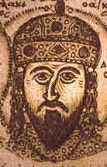







1185 Where's the underground spaceship? On Feb. 10 London's Caen-stone circular Temple (Templar) Church on Fleet St. in London is consecrated by Latin Patriarch of Jerusalem (1180-7) Heraclius (Eraclius) (1128-91) of Jerusalem; damaged by the Luftwaffe in 1940 then restored; Heraclius then consecrates Clerkenwell Priory in London, founded in 1100 by Lord Jordan Briset as the HQ for the Hospitalers; burned down by Tyler's Rebellion in 1381, and rebuilt in 1504; after Henry II holds an aulic council in it, Heraclius tries to talk him into sending troops for a new Crusade, but can't talk the barons into allowing Henry to lead them personally, even in exchange for the crown of Jerusalem, causing him to utter the soundbyte: "Here is my head.... treat me as you did my brother Thomas Becket. It doesn't matter to me whether I die by your orders or in Syria by the hands of infidels, for you are worse than Saracens." On Mar. 16 leprous king (since July 11, 1174) Baldwin IV (b. 1161) dies, and the high court (haute cour) of Jerusalem rules that a committee consisting of the pope, the HRE, and the kings of France and England have the right to choose between Sybilla and Isabella I if Baldwin V dies before reaching the age of majority, which he does next year. On Apr. 25 Henry II's son John Lackland, lord of Ireland goes on his first expedition to Ireland to finish the English conquest and organize the govt. (so he finally has some land?), but the haughty conduct of his council in Waterford incl. laughing at the big beards of Irish chieftains causes disturbances, and in Dec. he is recalled after failing to establish either task, making him even meaner; Welsh-born royal clerk Gerald of Wales (Giraldus Cambrensis) (1146-1223) accompanies Henry to Ireland and stays two years, going on to pub. Topographia Hibernica in 1188, which becomes the longest and most influential work on Ireland during the Middle Ages; too bad, it's highly xenophobic, portraying the Irish natives as barbaric savages; he also pub. Expugnatio Hibernica, an account of Henry II's conquest of Ireland. On Apr. 25 the Minamoto clan defeats the Taira clan in the decisive naval Battle of Dan-no-ura in S Honshu, and kills emperor Antoku the zoom-zoom way (hail of arrows), ending the Genpei War (begun 1180), but not before some crown jewels (sword and mirror) are tossed into the water (only the mirror is recovered); the spirits of the Taira warriors end up in the Heike Crabs of the Straits of Shimonoseki; the Taira clan is kaput, and the Minamoto Clan controls Japan; in 1192 Minamoto no Yoritomo (1147-99) is designated the first shogun ("barbarian-subduing general") (generalissimo), beginning a dual govt. system (shogun and emperor), which lasts until 1867, marking the rise of the Samurai knights (who wear a protective helmet and armor, and carry two curved swords, one long and one short), who follow the unwritten Bushido (Jap. "warrior way") code of ethics, with the forfeiture of honor compelling hara-kiri (Jap. "stomach cutting") (seppuku), ritual self-disembowelment; the Kamakura Era in Japan begins (ends 1333), marked by a powerless imperial court and a dominant military govt.; emperor Go-Shirakawa uses Yoritomo's half-brother Minamoto Yoshitsune (1159-89) in a doomed rebellion. In Aug. Constance of Sicily (1154-98), heiress of the kingdom of the Two Sicilies (daughter of Roger II of Sicily), who is betrothed to HRE Frederick I's son Henry arrives in N Italy, but Pope Lucius III refuses to recognize Henry as heir to the imperial throne, and a breach is opened. The Normans renew their war with the Byzantines, taking Durazzo, then sending a fleet to storm Salonika and massacre the pop., which pisses-off the Greek landed aristocracy (which he is trying to curtail anyway?) against emperor (since Sept. 24, 1183) Andronicus I (b. 1118), and on Sept. 12 they depose, torture, and execute him; his great-nephew (son of Andronicus, who is the son of Andronicus I's father Isaac's sister Theodora and her hubby Constantine Angelus) Isaac II Angelus (Isaaco II Angelos) (1155-1204) (not the same one as the tyrant of Cyprus?) becomes Roman Byzantine emperor #158 (until 1195), and marries Margaret (Margit) (Maria) of Hungary (Antioch) (1175-1223), daughter of royally fertile Bela III of Hungary and his 1st wife Anne of Chatillon-Antioche, founding the Angelos Dynasty (ends 1204); after making peace with the sultanate of Rum, the Byzantines under Gen. Alexius Branas (Alexios Vranas) (-1187) score a V over the Normans at the Battle of Demetritsa, driving them out of the Balkans by 1191; too bad that Angelis is no angel, the old corruption is back, and the empire starts coming apart while powerful families begin going independent (the Sguros in Greece, the Gabras in Trebizond). On Oct. 25 Pope (since 1181) Lucius III dies, and on Nov. 25 Milan-born cardinal (since 1181) and Milan archbishop (since 1185) Umberto Crivelli is elected Pope (#171) Urban III (-1187), inheriting the Barbarossa feud, and continuing the refusal to crown Henry. On Nov. 6 Alfonso I Henriques (b. 1107) dies of old age, and his son Sancho I (1154-1211) succeeds him as king of #2 of Portugal, carrying on the fight against the Moors with the help of the Knights Templar. Philip II Augustus wins his baron war (begun 1181), increasing the royal domain at their expense. The House of Toulouse talks Alfonso II of Aragon into dispossessing his brother Sancho, who receives the title of count of Roussillon (until 1223). First you are the light then you are the darkness, will you ever win? Speaking of the Byzantine emperor coming apart? Pissed off by all the Byzantine extortion, Bulgarian lords Ivan Asen I (-1196) and Peter IV (-1197) from Tirnovo (Trnova) in N Bulgaria visit emperor Isaac II Angelos at Kypsela to request a land grant, only to be refused and Ivan to be slapped in the ensuing argument, pissing them off and causing them to start a revolt against the Byzantines, calling off a planned counterattack against the Serbs and conquering the Timok frontier, sacking Nis, Svrljig, Ravno and Kozelj, then using Nis as a base to prepare an attack on Doclea (near modern-day Podgorica). Reuben III dies, and his brother Levon (Leon) (Leon) (Leo) I/II (the Magnificent) (1150-1219) becomes prince of Lesser (Cicilian) Armenia, followed by king in 1199 (until 1219) after shifting his allegiance from the Byzantine emperors to the HREs - and his name is Levon? Duke Bogislav does homage to Canute VI on the deck of his long ship off Jomsborg in Pomerania. The revolt in Galloway, Scotland (begun in 1175) is ended by Roland, son of Uhtred O'Fergus. Serbia conquers the coastal city of Kotor in Montenegro. After turning down the request of William I of Scotland to marry his granddaughter Matilda (daughter of Duke Henry the Lion of Saxony), Henry II offers him the lower-price spread of Ermengarde de Beaumont (-1234), daughter of Richard, Vicomte of Beaumont sur Sarte in Maine, and the wedding takes place next Sept. 5, Henry returning two forfeited castles and paying for the wedding, but William knows he's considered a 2nd rate vassal by now for sure? Guelph Hartwig of Uthlede (-1207) becomes prince-archbishop of Bremen (until 1190, then 1192-1207). Limoges, France-born Berthold of Calabria (-1195) (a former Crusader who made a vow on the eve of a battle) founds the Carmelite Order (Order of Our Lady of Mount Carmel) along with 10 companions on 1,728-ft. Mount Carmel in Israel (with the Mediterranean to the NW, the legendary Plain of Sharon to the SW, and the Plain of Esdraelon to the E), becoming known for its mystical theology; in 1208 Jerusalem Patriarch Albert gives them their first definite rule; the Muslims force them out in 1240. The first written record of Beaconsfield ("clearing in the beech trees") 25 mi. NW of London, later the home constituency of British PM Benjamin Disraeli. Nonfiction: Herrad of Landsberg (1130-95), Hortus deliciarum (Lat. "Garden of Delights); illuminated ms. compiled at the Hohenburg Abbey in Alsace (modern-day Mont Sainte-Odile) 15 mi. from Strasbourg; begun in 1167; first encyclopedia written by a woman, a compendium of 12th cent. knowledge. Architecture: The Romanesque Basilica of Notre Dame-du Port in Clermont-Ferrand, France is built. Births: Portuguese king (1211-23) Afonso II (the Fat) (Gordo) (d. 1223) on Apr. 23 in Coimbra; 2nd surviving son of Sancho I and Dulce of Aragon; brother of Count Peter I of Urgell (1187-1258), Mafalda (1195-1256), Sancha (1181-1229), and Theresa (1178-1250); father of Sancho II (1209-48). Norwegian king (1204-17) (Roman Catholic) Inge II Bardsson (d. 1217); son of Bard Guttormsson and Cecilia Sigurdsdatter. Italian Franciscan diplomat-explorer archbishop John of Pian de Carpini (Giovanni da Piano Carpini) (d. 1252 in Umbria; disciple of St. Francis of Asisi. Deaths: Portuguese king #1 (1139-85) Afonso I Henriques (b. 1106) on Dec. 6 in Coimbra. Arab physician-philosopher-poet Abubacer (b. 1107); leaves Hayy ibn Yaqzan ("Alive, Son of Vigilant"), a philosophical romance about an infant castaway on an uninhabited island who teaches himself science, philosophy, and theology until he reaches age 49, when mystic Asal arrives and convinces him to return to civilization and preach, after which he becomes a dud and returns, and "thus they continued serving God until they died"; a 1708 English trans. by Simon Ockley gives Daniel Defoe the idea for "Robinson Crusoe"? Indian mathematician Bhaskara II (b. 1114). Latin king of Jerusalem (1174-85) Baldwin IV the Leper (b. 1161) on Mar. 16 in Jerusalem - in his shiny silver mask? Byzantine emperor (1183-5) Adronicus I Comnenus (b. 1118) on Sept. 12 in Constantinople.


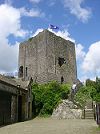
1186 The Letter to Toledo, laying down a timetable for the imminent return of Christ and a "New World Order" emerges in England, urging people to flee to caves and remote areas to avoid coming storms, earthquakes, and famine, from which only a few true blues will be spared, causing mass hysteria. On Jan. 4 Constance of Sicily and HRE Frederick's son Henry VI are married, threatening the independence of the papal states, and losing Norman support for the papacy; Henry VI assumes the title of Caesar and ravages the papal states; William II of Sicily welcomes the marriage as fitting in with his plans for a Mediterranean empire. On July 25 Hugh de Lacy, Lord of Meath (b. 1134) is assassinated, and after rejoicing that he doesn't have to send his half-wit son back for another try, Henry II has Meath put under administrators while rushing to close his grasp by arranging the marriage of Strongbow's daughter-heir Isabel de Clare, 4th Countess of Pembroke and Striguil (1172-1220) in Aug. 1189 to William Marshal, 1st Earl of Pembroke (1146-1219), who succeeds to the lordship of Leinster (Henry II's last executive decision), turning the Marshal from a a landless knight into one of the richest men in England. On Aug. 19 Geoffrey Plantagenet (b. 1158) is killed in Paris, and his wife Duchess Constance takes over the duchy of Brittany (until 1196). In late Aug. king (since Mar. 16, 1185) Baldwin V (b. 1177) dies, and in mid-Sept. despite opposition from Raymond III of Tripoli and Balian of Ibelin, who want Isabella I, Patriarch Heraclius annoints (did I mention pilgrim ambusher?) Guy de Lusignan (1150-94) as Latin king #9 of Jerusalem (until May 1192) after Sibylla places a crown on his head. On Sept. 29 after being passed over for Latin Patriarch of Jerusalem in 1880 for his rival Heraclius, Jerusalem-born archbishop of Tyre (since June 6, 1175) dies, and Joscius (Josce) (Josias) (-1202) becomes archbishop of Tyre; too bad, after Jerusalem falls on Oct. 2, 1187, he is sent W in a black-sailed ship to appeal for aid from William II of Sicily, then to Rome, where he gives the bad new to Pope Urban II, causing him to you know what, then to France to appeal for aid from Philip II of France, Count Philip of Flanders, and Henry II of England; after the Third Crusade (1189-92) he becomes chancellor of Jerusalem for Henry II of Champagne. The Byzantines defeat Asen and Peter, causing them to flee to the Cumans and return with an army, raiding into Thrace then devastating the Balkan region, annihilating much of the Greek pop. Stefan I Nemanja of Serbia conquers Doclear and Bar, and appoints his eldest son Vukan of Nemanja (Nemanjic) (1164-1208) as ruler of the new Serbian province of Zeta (Montenetro) (Dioclea and Dalmatia), and names his 2nd son Stephen II as his successor; the Greek nobility in Montenegro is persecuted for cents. of abuse of Serbs, and finally exterminated. Sultan Kilij Arslan II of Rum transfers his power to his nine sons, who begin a catfight for control. The Byzantines defeat the Bulgarian rebels, but Isaac II Angelos returns to Constantinople without exploiting the V, allowing them to regroup and raid Thrace. After an earthquake that struck the church in Lincoln, England late in 1185 spooks Henry II, he decides to quit appropriating the incomes from the diocese (largest in Europe, from the Humber River to the Thames River), and appoint Carthusian monk (St.) Hugh of Lincoln (Avalon) (Burgundy) (1135-1200), bishop of Whitby as the new bishop of Lincoln, and put him in charge of rebldg. the church in a magnificent fashion. The Heian (Fujiwara) Period in Japanese Art (begun in 794) ends, and the Kamakura Period in Japanese Art begins (ends 1333). Architecture: The motte-and-bailey Clitheroe Castle is built in Lanarkshire, England by Robert de Lacy on the site of the Norman English defeat to the pesky Scots in 1138; the avg. room size is 20 sq. ft. Births: Portuguese king #3 (1211-23) Afonso (Alfonso) II (d. 1223); son of Sancho I (1154-1211); father of Sancho II (1210-48). Mongol great khan #2 (1229-41) Ogedei (Ogodei) (Ogadai) (Ughetai) (d. 1241); 3rd son of Genghis Khan Deaths: Norman abbot-chronicler Robert of Torigni (b. 1110); leaves an addition to Gesta Normannorum Ducum through the reign of Henry I. Jerusalem born archbishop (since 1175) William of Tyre (b. 1127) on Sept. 29 in Tyre; leaves History of Jerusalem (Deeds Done Beyond the Sea) (23 vols.), covering from the conquest of Syria by Caliph Umar through the First Crusade, and the Kingdom of Jerusalem up till this year, making him the #1 chronicler of the Crusades. Anglo-Norman landowner Hugh de Lacy, Lord of Meath (b. 1134) on July 25 (assassinated). French duke of Brittany (1181-6) Geoffrey Plantagenet (b. 1158) on Aug. 19 in Paris; trampled by a horse in a jousting tournament; was really in Paris to plot a plot a rebellion against his father?; grieving Philip II Augustus tries to jump into his coffin?; buried in Notre Dame Cathedral.









1187 On May 1 the Battle of Cresson sees the Knights Templar and Hospitalers defeated by the Ayyubids led by Saladin's son al-Afdal. Beating me, beating me down, into the ground, falling away from me? Crusaders from the Kingdom of Jerusalem break the truce and attack a caravan carrying the sister of cool all-black-wearing Kurdish Ayyubid sultan of Egypt and Syria (since 1171) Saladin (Salah ad-Din Yusuf ibn Ayyub) (1138-93), causing him to begin a holy war (jihad) against the Crusaders, invading the Kingdom of Jerusalem with his nephew Taqi al-Din and Gok-Bori and 200K Saracen troops (aided by Yaqub al-Mansur of Spain), then sieging the city of Tiberias; Byzantine Emperor Isaac I'm-No-Angelus allies with Saladin to avoid messing up his hair, and a relief army is organized by the Latins, led by Jerusalem king Guy de Lusignan, Count Raymond III of Tripoli (1140-1187), and Balian of Ibelin (1141-93) (not a blacksmith like Orlando Bloom in the 2006 Ridley Scott film "Kingdom of Heaven"?), but it gets trapped on July 4 at the Battle of the Horns of Hattin (Karnehatin) near the Sea of Galilee 6 mi. from Tiberias, and the heat-stroked Latin army is wiped out, with only 3K of 20K Christians escaping Saladin's 30K troops; after personally beheading Raynald of Chatillon, Saladin spares Guy de Lusignan with the soundbyte "Real kings don't kill each other"; the True Cross is fixed upside down on a lance and sent to Damascus, and several of Saladin's men leave his army to take their Frankish POWS with them; on July 5 Saladin captures Tiberias, allowing Countess Eschiva, Princess of Galilee (1118-87) safe passage to Tripoli with her family, followers, and possessions; on July 6 Saladin gives the Templar and Hospitaler POWs the chance to convert to Islam, and some become devout Muslims, while the rest choose martyrdom, incl. Hospitaler St. Nicasius (1135-87); Guy de Lusignan is taken as a POW to Damascus and held for ransom for a year; after Maimonides of Cairo talks him into it, Saladin permits Jews as well as Muslims to return and settle; on July 29 Saladin takes Sidon; plug-ugly Crusader Reginald of Sidon (-1202) (who speaks Arabic and grooves on Arabic lit., causing the other Crusaders to distrust him) bugs out of the rear of the Battle of Hattin and flees to Tyre, attempting to negotiate its surrender to Saladin until Conrad of Montferrat arrives and kicks him out, causing him to flee to the Crusader stronghold of Beaufort after finding that Saladin has captured Sidon, where he holes-up until 1190. On Sept. 20 after conquering Acre, Ibelin, Nablus, Toron, Sidon, Beirut, Ramla, and Ascalon, giving Balian time to organize the city defenses and create 60 new knights from the burgesses to supplement the 2-14 he had, Saladin begins the Siege of Jerusalem, and after knocking down some walls but finding the Christian diehards prepared to destroy the city and kill each other rather than surrender, he shows why he's a wise and honorable sport and permits the fashion model Queen Sibylla, the Christian defenders, and most of the Christian pop. to leave with safe passage, ransoming 18K people (incl. 7K men) for 30K bezants (with two women or 10 children being equal to one man for the same price), the remaining 15K being forced into slavery after a 40-day payment period lapses; on Oct. 2 Balian of Ibelin hands over the keys to the Tower of David, and the Christian losers march away in three columns, with Balian and Patriarch (since 1180) Heraclius (Eraclius) (1128-91) leading the last one on Nov. 20, ending the Latin Kingdom of Jerusalem (founded 1099); although he does not sack the city, Saladin ravages the Church of the Holy Sepulchre and turns it into a mosque, stripping the gold reliquaries and carrying away cartloads of treasure, later returning it to the Christians after an agreement with Byzantine emperor Isaac II Angelus; the hostages end up in Tripoli; Heraclius and Sybilla take refuge in Antioch; Saladin goes on to capture all Crusader territory except the seaport of Tyre, which remains in the hands of the Franks, and the cities of Antioch and Tripoli. In summer the Pillage of Sigtuna on Lake Malaren (Mälaren) by the Karelians causes Birger Jarl to found the city of Stockholm, Sweden (Swedish "stock" + "holm" = log or fort + islet) (modern-day pop. 940K/2.2M); it is first mentioned in 1252. On Sept. 27 after Stefan I Nemanja of Serbia attacks the Repub. of Dubrovnik, and Norman reinforcements arrive to help them, he signs a peace treaty declaring eternal peace, with nominal rule by Serbian kings, and the statehood of the repub. guaranteed. On Oct. 20 Pope (since 1185) Urban III allegedly dies of a broken heart after hearing the bad news from the Holy Land at Ferrara while en route to excommunicate HRE Frederick I Barbarossa for his antics, and on Oct. 21 Cardinal Alberto de Morra is elected Pope (#172) Gregory VIII (-1187), but he dies on Dec. 17 after only 1 mo. 27 days after proclaiming the Third Crusade and making overtures to reconcile Frederick I with the Church so he can be free to kick Muslim butt and get the Holy Sepulchre back, and on Dec. 19 Roman-born Paolo Scolari is elected Pope (#173) Clement III (-1191), immediately seeking to heal the old rift between the papacy and the Roman pop. On Nov. 10 Godred V dies, and his younger son Ragnald (Reginald) IV (Rognvald Guthredssonn) (-1229) usurps the throne from eldest son and intended heir Olaf II, and becomes Norse king of the Isle of Man (until 1229). After being put up to it by satirical songs by French troubador Bertrand de Born, Vicomte de Haute-Fort (1140-1215), Richard I decides to kill his father Henry II, but forgets his weapons, and ends up facing the greatest knight of all time William the Marshal (Marshall) (1146-1219), who decides to spare his life by slaying his horse instead of him; Henry II rewards him with the hand of fair Isabel de Clare (1174-), daughter of Richard of Clare, earl of Pembroke, eventually making him William Marshall, 1st Earl of Pembroke; Richard flees to France, where Philip II Augustus welcomes him; Dante's "Divine Comedy" (Inferno XXVIII, 134) refers to the Born affair. The Byzantines invade Moesia, but fail to capture Tarnovo or Lovec. The Ghaznavid lands in the Punjab are conquered by Mohammed of Ghor (1173-1206) in C Afghanistan, ending the Ghaznavid Dynasty (begun 962). The Zangid principality of Mosul becomes a dependence of the Ayyubids. The revolt of Donald MacWilliam in N Scotland (begun 1175) is quashed in the Battle of Mam Garvia near Garbh in Ross, and Donald's head is brought to William I at Inverness. Duke Hugh III moves the capital of Burgundy from Chatillon to Dijon, turning it into a major condiment, er, commercial center. The first written inscription of the Konkani Language in Goa, W India. Hearing that he posed as a Muslim in Fez, Maimonides is indicted by a Muslim judge for apostasy from Islam, demanding execution, but the vizier al-Qadi al-Fadil al-Baisan rules that a man forced to convert cannot rightly be considered a Muslim. Births: Portuguese Count of Urgell (1229-31) Peter (Pedro) I (d. 1258) on Feb. 23 in Coimbra; 2nd son of Sancho I and Dulce; husband (1229-31) of Countess Aurembiaix of Urgell (1196-1231); brother of Afonso II (1185-1223). French duke of Brittany (1196-1203) Arthur I (d. 1203) on Mar. 29 in Nantes; posthumous son of Geoffrey II (1158-86) by wife Constance of Brittany (1161-1201). French Capetian king (1223-6) Louis VIII (the Lion) (Coeur de Lion) (d. 1226) on Sept. 5 in Paris; son of Philip II Augustus (1165-1223) and Isabelle of Hainaut (1170-90); grandson of Louis VII (1120-80); father of Louis IX (1214-70). French queen consort (1200-16) Isabella of Angouleme (d. 1246); daughter of Count Aymer Taillifer of Angouleme and Alix de Courtenay; maternal granddaughter of Louis VI. French duke of Brittany (1213-21) Peter (Pierre) I Mauclerc ("bad cleric") (d. 1250); 2nd son of Count Robert II of reux and Yolande de Coucy; 2nd cousin of Louis VIII; husband (1203-21) of Alix of Thouars (1200-21); gains the epithet Mauclerc for renouncing a career in the clergy to rule then putting the ermine on his paternal arms, which is reserved for the clergy. Deaths: Chinese Song emperor #10 (1127-62) Gaozong (b. 1107) on Nov. 9. French Crusader Baldwin of Ibelin (b. 1131) in Antioch; dies in self-imposed exile after refusing to assist Guy de Lusignan in Jerusalem.



1188 In Jan. after hearing of the bad news from Jerusalem from the archbishop of Tyre, France and England make a truce on the battlefield, and the archbishop persuades Philip II Augustus of France, Henry II of England, and his son Richard I Lionheart to pledge themselves to a crusade on the spot, declining the crown of Jerusalem but levying the Saladin Tithe (Aid of 1188) (a tenth of the value of incomes and chattels, subject to adjudication by a local jury) in aid of the Holy Land, becoming Henry II's 2nd taxation of personal property; in Feb. Pope Clement III triumphantly returns to Rome, and begins massing Christian soldiers against the Muslims for his delightful blood-drenched Third Crusade (ends 1192), the first to feature personal insignia on shields; Guy de Lusginan is released by Saladin, gains naval reinforcements from Pisa and sieges Acre in Aug., but is unsuccessful after Saladin's troops siege them; Saladin uses Damascus as his HQ during the Crusade; during the negotiations in the Champ Sacre (Sacré) (Sacred Field) of Gisors in Normandy, Henry II and his men (incl. Richard I Lionheart) hunker down under the 800-y.-o. Elm of Gisors, leaving Philip II and his men in the sun, ending in a battle in which the French take the elm and cut it down; after this incident, the Order of Sion splits ranks with its child the Templars, with Jean de Gisors (1133-1220) (vassal of Henry II and Richard I until 1193, who owns Titchfield Manor in Hampshire, England, and allegedly met Thomas Becket at Gisors in 1169) becoming the first Grandmaster (Nautonnier) (Pilot) of the Order of Sion (until 1220), which changes its name to the Priory of Sion, and makes every grandmaster assume the name Jean or Jeanne to indicate an esoteric successor to St. John, with Jean de Gisors calling himself Jean II; the Priory of Sion adopts the subtitle Ormus (Ours is Fr. for bear, Orme is Fr. for elm, Or is Fr. for gold), and begins calling itself the Order of the True Red Cross (Rose-Croix Veritas) (Rosicrucians?). The Byzantines accept a truce leaving Peter IV and Ivan Asen I in possession of a new Bulgarian state N of the Balkans; the Second Bulgarian Empire is founded (ends 1396); Isaac II Angelus recognizes Peter IV as tsar of Bulgaria, and he crowns Asen as co-emperor. Canterbury archbishop (1184-90) Baldwin of Forde(e) (1125-90) and Welsh-born Gerald of Wales (Giraldus Cambrensis) (1146-1223) preach the Third Ccrusade in Wales; Gerald of Wales pub. Itinerarium Cambriae in 1191, followed in 1194 by Description Cambriae. Architecture: The Bridge of Avignon in France (begun 1177) is finished. The Saladin Tithe in place, Newgate Prison in London at the corner of Newgate St. and Old Bailey just inside the city walls is built at the site of a gate of the Roman London Wall by orders of Henry II, going on to be extended and rebuilt many times until it is closed in 1902 and demolished in 1904 after becoming infamous for its unhealthy conditions. Nonfiction: Shen Kuo (1031-95), Dream Pool Essays (Meng Xi Bi Tan); collection of scientific essays incl. the first description of the magnetic needle compass and its use in navigation; it takes Europe four cents. to catch up with China's #1 scientist. Deaths: Spanish king of Leon and Galicia (1157-88) Ferdinand II (b. 1137) on Jan. 22 in Benavente.
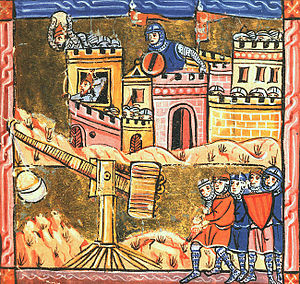



1189 In Jan. Saladin utters the soundbyte: "I shall cross this sea to their islands to pursue them until there remains no one on the face of the earth who does not acknowledge Allah" - he proved to be right, 1900 years later? On Feb. 18 emperor (since 1162) Song Xiao Zong is forced to abdicate by Zhao Dun, who becomes Southern (Nan) Song emperor #3 Song Guang Zong (1147-1200) (until July 24, 1194). On July 6 after Richard Lionheart delays his trip to the Holy Land immediately and joins his father Henry II (b. 1133) of England on an attack on Raymond of Toulouse, and Philip II comes to Raymond's aid, and Richard in a fit of anger at hearing that his brother John is now daddy's favorite switches sides, invading Henry's heartland of Anjou with Philip II and taking NW Touraine, after which Henry II is driven from Le Mans (his birth town, dear to his heart) to Saumur, defeated, forced to pay homage to Philip II for all his French possessions and acknowledge Richard as his heir, he is harried to his death in Chinon, cursing his sons with his last breath, after which Richard pays respects to his corpse as it is taken to Fontrevaud Abbey, upon which "blood flowed from the nostrils of the deceased, as if... indignant at the presence of the one who was believed to have caused his death" (Roger of Wendover); he gets the last laugh with pesky martyr Thomas Becket when secular courts begin taking jurisdiction from clerical courts, liberating English law from feudal and ecclesiastical constraints and making it as supreme as in imperial Rome; on Sept. 3 French-speaking eldest remaining son Richard I Lionheart (Coeur de Lion) Plantagenet (1157-99), a military adventurer and leading trouvere (not much of an administrator type, infected with the skeptical culture of Provence and the gay science of the troubadours, making him English in name only?), who owns the Cognac region in W France is crowned the 26th monarch and Plantagenet king #2 of England (until Apr. 6, 1199), releasing his mommy Eleanor of Aquitaine from imprisonment (since 1173); he spends the next 5 mo. raising money to go on Crusade, appropriating the royal treasury, removing thousands of officials and selling them their offices back, and selling charters of freedom to cities; in his 10-year reign he only visits England twice, for a few mo. at a time, and only to obtain money for going on Crusade; he plays the part of a good Crusader and bans Christ-killing Jews from the coronation, after which the London pop. gets it mixed up and thinks he ordered their extermination, massacring them for Christ, the pogrom spreading to Lincoln, Stamford, and Linn; the London pogrom was started by nobles trying to get out of debts owed to Jews?; a mob led by Richard de Malabestia kills 300 Jews in York; 150 Jews led by Rabbi Yom Tob commit suicide; Richard I forgives William the Marshall for attemped murder, as the sonnet by Lord Dagonell Collingwood goes, "Count Richard forgave King Henry's knight, for William did only what he knew was right"; the Scottish church, which Henry II had subordinated to the English makes itself directly answerable to the pope in an attempt to retain independence; on Dec. 5 Richard I annuls the 1174 Treaty of Falaise for 15K (10K?) marks in the Quitclaim of Canterbury to help finance his war against the Sacrilegious Saracens, and the Scots avoid being permanently swallowed-up once again, with William I now at the height of his power, enjoying a golden decade and becoming known as the Lion of Justice. On Aug. 28 the Siege of Acre begins (ends July 12, 1191), with Saladin attempting to exterminate the pesky Crusader kingdom, and the Crusaders led by Guy de Lusignan of Jerusalem holding out at high cost, becoming the first time that the king of Jerusalem has to personally defend the Holy Land from the pesky Muslims; it starts with Lusignan's Crusader army of 3K men arrives and attempts a surprise-attack on the 6K-man Muslim garrison, fails, and sets up camp outside the city, causing Saladin to arrive on Oct. 4 with 20K men, meeting the reinforced Crusader army of 7K infantry and 400 cavalry, with the Templars advancing on Saladin's right wing and put them to flight, then stoop to loot and retreat, causing Saladin to send his light cavalry, which slaughters them, killing 4K-5K until Christian reinforcements arrive, causing Saladin to retreat the Crusaders to blockade Acre by land, receiving news of the imminent arrival of HRE Frederick I Barbarossa, along with the arrival of former Latin patriarch of Jerusalem Heraclius, pumping them up. On Aug. 29 Ban Kulin (1163-1204) pub. the Charter of Kulin, which is later taken as the beginning of Bosnian statehood. On Aug. 29 English king Henry II's youngest son John Lackland marries Isabella, Countess of Gloucester (1173-1217) at Malborough Castle in Wiltshire, causing John to become the earl of Glouchester; too bad, Archbishop Baldwin of Canterbury annuls their marriage by reason of consaguinity (half-second cousins and great-granchildren of Henry I), placing their lands under interdict, but Pope Clement III grants them a dispensation to marry as long as they don't have sexual relations, causing him to plan to dump her before becoming king. Don't rock the boat, baby, don't tip the boat over? German "I never learned to swim" HRE (since Jan. 2, 1155) (2nd Crusade veteran) Frederick I Barbarossa (1122-90) leads the totally lay and royal Third Crusade (ends 1192), leading an awesome 100K-man German Crusader army from Regensburg via Hungary to Bulgaria, stopping at Nis, Serbia, where Stefan I Nemanja tries unsuccessfully to talk him into changing to a war against the Byzantines, until a Byzantine force tries to block him from reaching Sofia, causing him to plan an offensive against Constantinople, for which Nemanja offers 20K men, while Bulgarian leaders Ivan Asen I and Peter IV (have some lemonade, check out all the trees?) offer him 40K more; too bad, it all falls through since Freddie wants safe passage into Anatolia; meanwhile the Latin Crusader army sieges Acre, and turns on Saladin's army as it is hindering their efforts, winning initial success, breaking into Saladin's camp using crossbows and cavalry, but the ensuing breakup of the ahem, Christian army as it turns to looting gives the Muslims the opportunity to regroup and bring in fresh reinforcements, resulting in 7K Christian soldiers KIA; Saladin captures the Crusader castles of Montreal and Kerak; meanwhile the Bulgarians defeat the Byzantines at the Battle of Berrhoe; William II of Sicily, husband of Richard I Lionheart's sister Joan dies while planning to lead the Third Crusade; Hamburg receives a charter from HRE Frederick I Barbarossa in return for services rendered during the Third Crusade, making it a free imperial city and giving it important commercial privileges. The Almohads under caliph Yaqub al-Mansur raid Lisbon and take 3K female and child captives into slavery. The town of Dundalk (Gael. "Dun Dealgan" = Dalgan's Fort) on the Castledown River in Ireland near the border with modern-day Northern Ireland halfway between Dublin and Belfast (modern-day pop. 39K/55K) is given a charter. Lost-cause champion Minamoto Yoshitsune is forced to commit hari-kari. The Hoysala Dynasty in Mysore, India conquers Kalyani. Hubert Walter (-1205) becomes bishop of Salisbury, England. The last recorded Viking voyage to North Am. takes place - but now that they're Christian and PC, the learned Catholic theologians tell the Vikings not to chance falling over the Earth's edge again, not to mention them sea monsters and that whirpool? Richard I grants a royal charter to Hereford on the Wye River "in Wales". Births: Russian grand prince of Vladimir (1212-6, 1218-38) Yuri (George) II Vsevolodovich (d. 1238); 3rd son of Vsevolod III the Big Nest (1154-1212) and Maria Shvarnovna (-1205). Deaths: English king (1154-89) Henry II (b. 1133) on July 6 in Chinon, France. Norman Sicilian king #3 (1166-89) William II the Good (b. 1155) on Nov. 11 in Palermo.






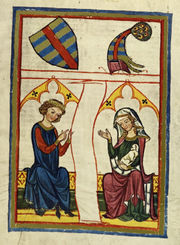

1190 You didn't have to shake it but you did, you did, you did, and I thank you? The Third Crusade is led by the Big Three of Christendom, German HRE (since 1155) Frederick I Barbarossa (1122-90), English king (since 1189) Richard I Lionheart (Coeur de Lion) Plantagent (1157-99), and French king (since 1180) Philip II Augustus (1165-1223), while Pope (since 1187) Clement III (-1191) tries in vain to get in charge to get the credit for this lay effort?; Austrian duke Leopold V (1157-94) also goes, accompanied by Alsace-born minnesinger Reinmar the Old of Hagenau (-1207); on Feb. 14 Frederick I (b. 1122) signs a peace with the Byzantines in Adrianople, allowing him to pass through undisturbed; in Mar. Richard I leaves on Crusade after raising mucho dinero, becoming known for squeezing his subjects while enjoying luxury and lavish feasts; too bad, after getting through Rum, on June 10 Frisky Freddy (b. 1122) is drowned in the 150-mi.-long Saleph (Goksu) (Göksu) River in the Taseli Peninsula in Cilician Armenia in SE Asia Minor in hip-deep water while bathing (heart attack from the shock of the cold water?) after the Holy Lance of Christ slips from his hands, causing his 15K-man (100K-man?) Crusader army (incl. 3K knights) to panic and disintegrate under Turkish attacks as the Muslims attribute his death to the will of Allah and get pumped up, with only 5K reaching Acre; after attempts to preserve Drop Dead Fred's body in vinegar to bury him in Jersualem fail, his bones are buried in Cathedral of Tyre, his flesh is buried in the Church of St. Peter in Antioch, and his heart and internal organs in Tarsus; his eldest son (by Beatrice of Burgundy) Henry VI (1165-97) succeeds him as German Hohenstaufen king #3 (until Sept. 28, 1197), and his 3rd son Frederick VI of Hohenstaufen, Duke of Swabia (1167-91) becomes leader of the remnants of the Crusader army, leaving Richard I and Philip II as the real leaders of the Crusade. Early in the year Emperor Isaac II Angelos, no longer threatened by the pesky German Crusaders defeats the invading Serbs with a huge army in S Moravia, and reduces Stefen I Nemanja to his vassal, forcing him to give up large areas E of the Morava River, incl. Nis and Ravno (to keep him separated from the Bulgarians), and marry his son Stefan II to Byzantine princess Eudocia; in the spring Isaac II Angelos invades Bulgaria and sieges Tarnovo, but ends up retreating after Cuman reinforcements arrive from the N, and Ivan Asen I ambushes him in the Balkan passes, causing him to barely escape with his life after losing most of his men and treasure; Peter IV then retires to Preslav without abdicating, while co-tsar Asen raids into Thrace and Macedonia, and badly defeats the Byzantines at the spring Battle of Tryavna in C Bulgaria. On Mar. 16 (Fri.) (night) (Shabbat-ha-Gadol) the Clifford's Tower Massacre in York, England sees 150 Jews (entire pop.) huddled in a castle surrounded by mobs set their castle on fire to commit suicide, with the survivors being murdered, becoming England's worst case of anti-Semitism (until ?). On Apr. 22 Reginald of Sidon negotiates with Saladin in order to buy time, and ends up tortured outside his stronghold of Beaufort while allegedly ordering his troops to surrender in Arabic but also telling them to continue fighting in French, then being imprisoned in Damascus, Beaufort finally surrenders in return for his release, and he goes on to become an adviser and interpreter for Richard I Lionheart. In July English king Richard I Lionheart, accompanied by bishop of Salisbury Hubert Walter (1160-1205) heads out to the Big J three years after its fall to kick badass Saracen Saladin, and arrives in Sicily in Sept.; Richard I and Philip II winter in Sicily, where they begin quarreling; meanwhile back in England, Bishop Hugh of Lincoln protests against Richard I's unfair taxation and persecution of Jews; too bad, Prince Levon of Armenia was waiting for Barbarossa to crown him king of Armenia, and it takes until 1199 to get his son Henry VI to do it. Philip II Augustus of France orders 80 Jews executed in Orange, France after learning that one of his agents had been hanged by city authorities for murdering a Jew. The Order of German Hospitalers (Hospitallers) (Knights of the Hospital of Saint John of Jerusalem) is founded to treat sick and wounded Crusaders, with grandmaster #1 (until 1192) Garnier de Nablus. In this decade Harald Maddadsson, Earl of Orkney and Mormaer of Caithness (1134-1206) begins a revolt against William I of Scotland, causing him to campaign in N Scotland, reaching the N coast at Thurso and finally getting the rascal to submit early next decade. Prince Madog ab Owain Gwynedd of Wales returns to his New World settlement, finds the 120 men he left behind annihilated by natives, and dies soon after in the New World? Genghis Khan (b. 1162) begins his conquest of Asia - loving to conquer his enemies and clasp their wives? In this decade Jayavarman VII of Angkor (Cambodia) raids and takes over Champa, ruling until 1220. About this time the German settlement of Wisby on Gothland (Gottland) becomes autonomous, and establishes an offshoot in Novgorod in St. Peter's Yard, becoming the launching point for Russian trade. Noble German Minnesinger Walther von der Vogelweide (1170-1230) visits the court of Duke Leopold V of Babenberg in Vienna until 1198, when he begins touring the courts of Europe, singing songs and writing political propaganda verses supporting HRE Otto IV against the pope, becoming the #1 Minnesinger of Germany - the original Madonna Like a Virgin Tour? In this decade Zen Buddhism is introduced to Japan from China. The alleged remains of King Arthur and Queen Guinevere are found in the ancient cemetery of Glastonbury Abbey on Glastonbury Tor, and are put in the abbey church in a tomb which is rediscovered in 1931; too bad, Henry VIII has their bones destroyed in 1516 because they're too dear to Roman Catholics? Architecture: The Louvre (Palas du Louvre) in Paris, France is begun as a fortress (finished 1202). The white marble Temple of the Immaculate Holy Virgin the Benefactor is built by Stefan I Nemanja of Serbia, becoming the temple of the House of Nemanjic. Nonfiction: Isaac the Blind and Aziel, Sefer-ha Bahir (Book of Light); by the son of Rabbi Abraham ben David of Posquieres, an opponent of Maimonides; a mystical commentary on the first chapter of Genesis, turning the Logos into the Jewish trinity of Light, Wisdom, and Reason, adopted by Eleazar of Worms (1176-1238) and Abraham ben Samuel Abulafia (1240-92). Walter Map, De Nagis Curialium; mentions vampires in England. Alexander Neckam (1157-1217), De Naturis Rerum (On the Nature of Things); compendium of scientific knowledge containing the first Euro mention of using a magnetic compass (bk. 2 chap. 98); describes the winged lizard-tailed cockatrice as born from an egg laid by a cock and incubated by a toad; it can turn people to stone by looking at them, touching them, or breathing on them, and only a weasel is immune; luckily, a rooster's crow will kill it instantly, as will looking at itself in a mirror; it takes until the middle of the 17th cent. for it to be regarded as a mythical duplicate of the basilisk or regulus after being mentioned in the 1611 King James Vers. of the Old Testament (Is. 11:8 et al.); De Utensibilus; first Euro mention of using a magnet as a compass. Moses Maimonides (1135-1204), Guide for the Perplexed (Moreh Nevukhim or Nebuchim) (Delalatul Ha'yreen); one of the great philosophic statements of Judaism, attempting to reconcile Moses with Aristotle, fostering scholasticism and influencing Thomas Aquinas et al.; tries to explain which words in the Bible should be taken literally, metaphorically, and symbolically, accepting the Creation but dissing personal immortality, Aristotelizing Bible stories, e.g., Abraham and Sarah represent matter and form, Adam is the active spirit, Eve is passive matter (the root of all evil), and the serpent is imagination, pissing-off orthodox rabbis, who accuse him of "selling the Scriptures to the Greeks", and Qabbalists, who desecrate his tomb; "My primary object is to explain certain words occurring in the prophetic books"; "A thing which has in itself the necessity of existence cannot have for its existence any cause whatever"; "Everything except God has been brought into existence out of nonexistence"; "Incorporeal entities can only be numbered when they are forces situated in a body"; written "to promote the true understanding of the real spirit of the Law, to guide those religious persons who, adhering to the Torah, have studied philosophy and are embarrassed by the contradictions between the teachings of philosophy and the literal sense of the Torah"; the main purpose is to expound on Maaseh Bereishit and Maaseh Merkavah, works of Jewish mysticism regarding the theology of creation from Genesis and the passage of the Chariot from Ezekiel, the two main mystical texts in the Tanakh (Hebrew Bible); written in Arabic in Hebrew chars., it is trans. into Hebrew in 1199-1204 by Samuel ben Judah ibn Tibbon, and also into Latin, causing a firestorm of controversy; "The first who openly declared that Scripture must be accomodated to reason" (Baruch Spinoza). Births: Spanish Arab Muslim scientist (writer on botany and pharmacology) Abu Muhammad ibn al-Baitar (al-Baytar) of Malaga (d. 1248). French Dominican friar-writer Vincent of Beauvais (Vincentius Bellovacensis) (d. 1264) (b. 1184-1194?). Deaths: German king (1152-90) and HRE (1155-90) Frederick I Barbarossa (b. 1122) on June 10 in Cilicia, Anatolia (SE Asia Minor); dies on Crusade while crossing the Saleph (Goksu) River (heart attack?); alleged to only be sleeping in a cave in Mt. Kyffhauser in Thuringia or Mt. Untersberg in Bavaria, his red beard growing through the table before him and his eyes half-closed, waiting for the ravens flying around to disappear to signal his reawakening to return to save Germany. English archbishop of Canterbury (1184-90) Baldwin of Forde (b. 1125) on Nov. 19 in Acre; his long-running dispute with his clergy earns him the epithet of being more damaging to Christianity than Saladin. French Jewish rabbi Moses Kimchi (b. 1127) in Provence. French romantic poet-trouvere Chretien de Troyes (b. 1144); leaves the unfinished poem (1181-90) Perceval, the Story of the Grail (Perceval, le Conte du Graal) (Fr. "pure fool"), which popularizes the Quest of the Holy Grail, and is continued by other writers. German Minnesinger Friedrich von Hausen (b. 1150) on May 6 in Philomelium (Aksehir), Turkey (KIA). Jerusalem queen (1186-90) Sibylla (b. 1160) on July 25 in Acre. English statesman-jurist Ranulf de Glanville (b. ?); born in Stratford, Suffolk.





1191 German Hohenstaufen king #3 (since 1190) Henry VI (1165-97) (son of Frederick I Barbarossa) claims the vacant throne of Sicily by right of his wife Constance, heiress of Sicily, but Pope Clement III, fearful of losing papal independence invests Tancred of Lecce (-1194), an illegitimate heir of the Norman House of Roger (son of Constance's brother Duke Roger of Apulia), and he leads a vigorous native Norman revolt, supported by Richard I of England; young testosterone-soaked Henry VI advances into Italy to kick papal butt, but on Mar. 27 Pope (since 1187) Clement III dies, and on Mar. 30 Giacinto Bobo is elected Pope (#174) Celestine III (1106-98) (first of the Roman Orsini family), and he sees which side his bread is buttered on and immediately crowns Henry VI as HRE, and his wife Constance of Sicily as empress, and the House of Hohenstaufen now rules Sicily (until 1266); too bad, Henry VI proceeds S to press his claims in Sicily, and is defeated, and his wife is captured by Tancred of Lecce and later released; Pope Celestine III sanctions the observance of Ash Wednesday (first day of Lent, where penitents place ashes on their foreheads), and grants privileges to the Knights Templar, who receive a donation of 28K farms (manors) to finance a permanent army for the defense of the Holy Land; he also delivers the Scottish Church from the jurisdiction of the Metropolitan of York, declaring it directly subject to the Holy See. In the spring Crusaders Richard I Lionheart of England, Philip II of France, incl. Templars and Hospitallers, Angevins, Bretons, and Flemings under James (Jacques) (Jacob) of Avesnes (1152-91) set sail to attack the Holy Land, and Richard I Lionheart stops in Rhodes to drop off his sister Joan Plantagenet (1165-99) (widow of William II of Sicily) to talk Sancho VI of Navarre into agreeing to give him his eldest daughter Berengaria of Navarre (1165-1230) in marriage so that he can get his hands on Navarre (dumping Alys, his betrothed), and when they leave to follow him and get shipwrecked by a storm on Cyprus, hot-headed Cyprus despot (since 1184) Isaac Comnenus (Komnenos) of Cyprus (1155-96) captures them, pissing-off Richard and causing him to turn around (or get blown there by a storm), land in Lemesos (Limassol) on May 6, conquer it, then kick Comnenus' butt at the Battle of Tremetusia, and trick him into surrendering at his Kantara Castle on Cape St. Andreas on the Karpas Peninsula by promising not to put him in irons, after which he uses silver chains (ha ha), and turns him over to the Knights of St. John, who keep him in Margat (near Tripoli) until 1194, after which he travels to the sultanate of Rum to gain support, and ends up poisoned; Richard then marries Berengaria on May 12 in Limassol at the Chapel of St. George, the wedding attended by Prince Levon of Cicilian Armenia (ever eager to get noticed so they can promote him to king?), and decides to use Cyprus as a Crusader supply bridge to Jerusalem; Richard has Commandaria wine served at his wedding, proclaiming it "the wine of kings and the king of wines"; Richard buys two Arabian horses in Cyprus, which he puts gold bridles on, causing them to be called brigliadores; Comnenus' daughter "the Damsel of Cyprus" joins Richard's court, and travels back to England with Joan; meanwhile Egyptian sultan Saladin conquers Haifa, and dismantles the city of Ashkelon on the Mediterranean coast; in Apr. the French under Philip II Augustus and Conrad of Montferrat arrive at Acre after Philip's nephew Count Henry II of Champagne beats him to it, then erect huge siege engines; the English under Richard I Lionheart arrive on June 9 and take contol of the siege, using sappers to undermine the walls; Richard offers his men first one then four gold coins to race across the open plain dodging Saracen bowmen and hot oil-slingers and pull a single stone from Acre's thick wall; on July 12 after their supplies run out, Acre, AKA Ptolemais surrenders to the Crusaders; Philip II gets sick and accuses Richard I of trying to poison him, and returns to France, making final capture of Jersualem impossible, as if that would stop them?; the Crusaders demand the delivery of 1.6K Christian captives, payment of 200K dinars, delivery of the True Cross, and allow the pop. of Acre to leave on the condition that they carry nothing but the clothes on their backs; too bad, on Aug. 11 an exchange of POWs and moolah is aborted after the Crusaders quibble; on Aug. 20 after Saladin takes too long to respond, Der Fuhrer Richard I orders the execution of 2.7K Muslim hostages, "avenging their fallen comrades who had died at Acre", slicing open their bellies looking for swallowed treasure; Saladin responds in kind, ordering the execution of all 1.6K Christian POWS, and hiding the True Cross (under the doorway of the Mosque in Damascus?); Isaac Comnenus of Cyprus surrenders to Richard I, who imprisons him in the Syrian castle of Markab; after Richard I unsuccessfully backs his vassal Guy de Lusignan for king of Jerusalem over the German candidate Conrad of Montferrat, Guy gives the Hospitallers a portion of the tower in Acre, and Richard I sells Cyprus to Guy and the Knights Templar, and Guy becomes king of Cyprus next year (until 1194); the Crusaders rule Acre for the next cent; meanwhile after Richard I insults Duke Leopold V of Austria by throwing his banner into the acres of mud of Acre, the latter invents the red-and-white triband Austrian Flag when there is a white strip of cloth found under his bloody tunic after the battle; in Aug. knowing they need to control the port of Jaffa before taking Jerusalem, the Crusaders leave Acre and go S, and, after being harassed all along the way by archers finally defeat Saladin on Sept. 7 at the Battle of Arsuf near Jaffa, remembering the lessons of the Horns of Hattin and taking measures against heat exhaustion and thirst, although they are tormented at night by tarantulas; on Aug. 30 as they approach Caesarea, the rear guard under Duke Hugh III of Burgundy is cut off, but Richard rallies his troops to save them with the cry "Sanctum Sepulchrum Adjuva!" (Help us, Holy Sepulchre!); during the battle the Muslims are sorely pressing the Crusaders, until Hospitaler grandmaster Garnier de Nablus disobeys Richard's orders and goes beserk and leads a charge, which Richard decides is their big chance to turn the tide, after which Richard "advanced with untiring sword strokes, cutting down the unspeakable race as if he were reaping the harvest with a sickle, so that the corpses of Turks he had killed covered the ground everywhere for the space of half a mile"; Saladin's myth of invicibility is shattered, with 7K Muslims killed vs. 700 Christians (according to the Christians); the slap-happy Crusaders then recapture St. Peter's old Dorctown of Jaffa, although Big J is out of their grasp and they decide to cut off Saladin's main supply base of Egypt instead. The Byzantines drive the pesky Normans out of the Balkans, incl. Durazzo and Corfu. The gov. of Cordoba attacks Silves, and takes 3K Christian slaves. The Second Era of Maya Civilization in Central Am. begins. Saladin orders the execution of mystical heretic Surawardi, and pub. On the Resurrection of the Dead, accepting it as an article of faith while expressing doubts. Poetry: Hartmann von Aue (1170-1210), Erec. Births: Christian Jerusalem queen (1205-12) Maria of Montferrat (d. 1212) in summer; daughter of Conrad of Monteferrat (-1192). Georgian Bagrationi king (1213-23) George (Giorgi) IV Lasha (d. 1223); son of Tamar (1160-1213) and 2nd husband David Soslani (-1207); brother of Rusudan (1194-1245). Russian grand prince of Vladimir (1238-46) Yaroslav II Vsevolodovich (d. 1246) on Feb. 8; 4th son of Vsevolod III the Big Nest (1154-1212) and Maria Shvarnovna (-1205); husband (1218-) of Fedosia Igorevich of Ryazan; father of Alexander Nevsky (1220-63). Deaths: French archbishop of Caesarea (1175-) Heraclius (b. 1128) in the winter of 1190-1. Dutch/German writer Hendrik van Veldeke (b. 1139); leaves Life of St. Servatius, Eneide (Aeneid), and various love songs, becoming the first great Dutch and/or German writer. Muslim Sufi philosopher-theologian Shihab al-Din al-Suhrawardi (b. 1154) in Aleppo; executed on charges of heresy. Roman Catholic bishop (of Mecklenburg) Berno (b. ?).



1192 On Apr. 2 Richard I Lionheart of England sends his rep. Henry II of Champagne from Acre to Tyre to inform Conrad of Montferrat of his election as Latin king of Jerusalem, but on Apr. 28, a few days after Henry returns Conrad is murdered by two hashashin in Tyre, and when Henry is sent back to Tyre two days later to help with his coronation, he finds a funeral instead, and eight days later after supposedly wowing her with his virility (being 20 years younger than Conrad) he marries Conrad's pregnant widow Isabella of Jerusalem (1172-1205) (daughter of Amalric I and Maria Comnena), and becomes king of Jerusalem (until 1197); on July 29 the Crusaders, incl. 80 knights and 2K Genoese crossbowmen recapture Jaffa from 7K Muslim cavalry troops, and reach Jerusalem but fail to capture it, and on Sept. 2 after a trial balloon proposal of a marriage of Saladin's brother to Richard I's sister Joan, with Big J invested to the lucky groom, the Crusaders give up fighting for Christ and agree to the 3-year Peace of Ramlah (Ramleh) with Dinner Salad, er, Saladin, giving the Christians a strip of steak, er, coastal territory between Jaffa and Acre, plus access to Jerusalem, and it takes until 1229 for the Christians to recapture Big J; Guy de Lusignan resigns his title of king of Jerusalem, but still has the serviceable launchpad island of Cyprus (until 1194); meanwhile new king Henry II of Champagne meets with the Assassins in their fortress stronghold of al-Khaf, smokes, er, watches two of the fanatics kill themselves to prove what robots they are, then signs a treaty with their grandmaster, causing speculation of a plot with Richard to knock off Conrad all along - get my caddy and my calculator? On Apr. 26 retired emperor Go-Shirakawa (b. 1127) dies, and Minamoto no Yoritomo (1147-99) is named Japan's first shogun ("barbarian-subduing general") (generalissimo) by Japanese emperor Go-Toba, who becomes a puppet, turning to calligraphy, painting, music, and poetry instead of politics. On Aug. 25 Hugh III (b. 1142) dies in Acre, and his eldest son Eudes III (1166-1218) becomes duke of Burgundy (until 1218), going on to back Philip II against John I Lackland and HRE Otto IV. On Oct. 9 Richard I Lionheart returns from the Crusades, but suffers from seasickness and decides to cross the Alps disguised as a Knight Templar; too bad, he is captured on Dec. 11 at an inn near Vienna by his enemy Duke Leopold V of Austria (1157-94), then imprisoned (in violation of an unwritten law that Crusaders can't be detained) by orders of grudge-bearing HRE Henry VI in a dark castle in Durnstein (Durrenstein) on the Danube River on Dec. 21 (until Feb. 4, 1194); after his return to France Philip II Augustus begins scheming with Richard's brother John Lackland, getting Normandy handed over by secret treaty; Philip II tries to get Richard I handed over to him as his prisoner, but is refused. Kilij Arslan II dies, and his 11th and youngest son Kaykhusraw I (-1211) becomes Seljuk sultan of Rum (until 1196, then 1205-11), going on to fight his brothers for control; he marries a Byzantine babe who is an illegitimate descendant of Manuel I, causing her daddy Manuel Maurozomes to fight for him in 1205-6. Afghan ruler Mohammed of Ghor defeats Prithvi Raj and captures Delhi, then founds the Delhi Sultanate, the first Muslim empire in India (ends 1398). The dukedom of Styria becomes part of the Babenberg realm of Austria by inheritance (until 1276). St. Ladislas (d. 1095) of Hungary is canonized. Stefan I Nemanja's son Rastko flees his job as prince of Zahumlje to flee to a Ston Monastery in Mt. Athos and become a monk by the name of Sava. Giovanni Colonna the Elder is made cardinal priest of Santa Prisca, beginning the rise of the Colonna Family (a branch of the counts of Tusculum) in Rome, who begin a bitter feud with the rival Orsini Family (ends 1511). The first Portuguese writing sample is from an act of partition dated this year. Architecture: The rebuilding of the Bamberg Cathedral begins (ends 1237). Births: Japanese shogun #3 (1203-19) Minamot no Sanetomo (d. 1219) on Sept. 17. Deaths: Japanese Yamato emperor #77 (1155-8) Go-Shirakwaa (b. 1127) on Apr. 26. French duke of Burgundy (1162-92) Hugh III (b. 1142) on Aug. 25 in Acre.


1193 On Mar. 4 Saladin (b. 1137) dies in Damascus, and his Ayyubid Dynasty lands in Egypt and Syria are split between his family and lts. (until 1200). Hubert Walter becomes archbishop of Canterbury, then justiciar in 1194-8, ruling England in Richard I Lionheart's absence while keeping Prince John in check; Richard I is handed over to HRE Henry VI, who imprisons him in a secret location, demanding a huge ransom of 150K marks, double the annual revenue of the English crown; Richard I's mother and regent Eleanor of Aquitaine and her justiciar Hubert Walter attempt to raise his ransom by taxation of his English subjects, while Philip II violates his pledge and attacks and seizes English possessions in France, and both he and King John try to outbid them to keep him in captivity; Richard I writes a ballad while imprisoned, appealing to his countrymen to pay the ransom; William I of Scotland opposes John's attempts to seize power, and contributes 2K marks to Richard's ransom; meanwhile after much searching, Richard is found in Durnstein by his traveling minstrel Blondel de Nesle (1155-1202), who hears his master's voice singing along with a minstrel from the dungeon, then returns to England and reports it; the ransom money is used to build walls around Vienna - all right, you're not the person you were before you got rheumatic arthritis? Bela Arpad of Hungary invades Serbia, but is repelled. Indigo (blue) and brazilwood (red) are imported from India to England for dyeing purposes. The first known merchant guild is established in England. Architecture: A new Mosque of Omar is built in Jerusalem by Saladin to commemorate the prayer that Caliph Omar made in 637 on the E steps of the Church of the Holy Sepulchre where David allegedly once prayed, but on the S side instead after the entrance is moved; in 1417 the Al-Khanqah al-Salahiyya Mosque is built on the N side with an almost identical minaret, with the pair sited on a line intersecting the door of the Tomb of Jesus at exactly the same elevation, supposedly to "nullify" the Holy Sepulchre since Muslims don't believe in Jesus' death and resurrection. Births: Georgian Bagrationi queen (1223-45) Rusudan (d. 1245); daughter of Tamar (1160-1213) and 2nd husband David Soslan (-1207); sister of George IV (1191-1223). French queen consort of Cyprus (1210-8) Alice of Champagne (d. 1246); eldest daughter of Count Henry II of Champagne (1166-97) and Isabella I of Jerusalem (1172-1205); wife of Hugh I of Cyprus (her step-brother). Greek emperor of Nicaea (1222-54) John III Ducas (Doukas) Vatatzes (d. 1254) in Didymoteicho; son-in-law of Theodore I Lascaris; father of Theodore II Ducas Lascaris (1221-58). German #1 Dominican friar-priest philosopher-scientist (St.) Albertus Magnus (Albert the Great of Cologne) (d. 1280) in Lauingen, Swabia (Bavaria); son of the Count of Bolltadt; big fan of Aristotle, "giving Aristotle to the Latins" with tons of essays on every branch of science, philosophy, and theology, citing Maimonides and Avicenna; teacher of Thomas Aquinas; closest thing to a champion of church-state coexistence; canonized in 1931 by Pope Pius XI; feast day: Nov. 15. Deaths: Egyptian-Syrian sultan (1174-93) Saladin (b. 1138) on Mar. 4 in Damascus; dies after giving away all his wealth to his subjects, leaving 1 piece of gold and 40 pieces of silver, which isn't enough to pay for his funeral. French Crusader Balian of Ibelin (b. 1141). English historian Benedict of Peterborough (b. ?); leaves The Murder of Thomas Becket, 1170, The Death of King Henry II, 1189.


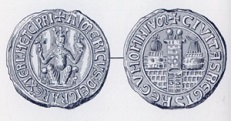



1194 On Feb. 4 Richard I Lionheart is freed after paying the ransom and substituting Norman knight Hugh de Morville, Lord of Westmorland (-1202) (one of the assassins of Thomas Becket) as his hostage, and returns to England in Apr., in an endless feud with his former friend Philip II Augustus, who has been conspiring with his brother Evil Prince John to partition English territories in France, raising taxes, assembling an army, and invading Normandy in Feb., and capturing Evreux (Évreux) 67 mi. WNW of Paris; Richard then crushes a coup attempt by his bad brother John and is crowned for the 2nd time (see any Robin Hood movie?), after which he magnanimously pardons John, offers to sell William I his coveted lost earldom of Northumbria for 15K marks on condition that he keep the chief castles (and is refused), then leaves England in May, never to return, refusing the sacraments for years for fear of being required to forgive Philip II; the Third Crusade ends the Golden Age of the Crusades, and future ones all suck? On July 18 Guy of Lusignan (b. 1150) dies in Nicosia, and his brother Aimery II of Lusignan (1145-1205) succeeds as ruler of Cyprus (until 1205), going on to accept investiture in 1196 as king #1 from HRE Henry VI. On July 24 Song Guan Zong is forced to abdicate by Song Ning Zong (Zhao Kuo) (1168-1224), who becomes Chinese Southern (Nan) Song emperor #4 (until Sept. 17, 1224), going on to foster cultural and intellectual achievements by Zhu Xi (1130-1200) et al., while dealing with the pesky Jurchen people in the N and also dealing with inflation. In Sept. after popular discontent with pesky sheriffs grows, the office of coroner (Lat. "in crown service") is established in Norman England as the highest civil officer in a county after sheriff to keep the pleas of the crown (custodire placita coronae) and make sure the king gets his fine money; the most important function becomes to preside over inquests over dead bodies to avert suspicion of foul play; too bad, the office is easily corrupted to cover up murders? - the beginning of the JFK coverup? On Dec. 31 after Pope Celestine III excommunicates Duke Leopold V (the Virtuous) of Austria (b. 1157), and presses for return of Richard's ransom until he dies, Friedrich (Frederick) I (the Catholic) (1175-98) becomes Babenberg duke of Austria (until 1198). Casimir II the Just (b. 1138) dies after making the principality of Cracow (Krakow) hereditary, and Leszek I the White (1186-1227) becomes ruler of Poland (until 1227), while ousted meany Mieszko III the Old (-1202) unsuccessfully tries to regain his throne for the next eight years - until he just gets too old? Tancred of Lecce dies, ending Norman rule of Sicily, causing HRE Henry VI to invade Italy again to press his claims, this time successfully, and after conquering it he is crowned king, after which he conquers S Italy and part of Tuscany (with aid from Pisa and Genoa), and secures the Matildine lands in C Italy, planning to make Italy the base of his Hohenstaufen Empire; he then compels Pope Celestine III to acknowledge his infant son Frederick II (1194-1250) as king of the Two Sicilies, and the Hohenstaufens continue to rule Sicily until l268; his mother acts as his guardian for 6 mo., then dies, and Lotario de' Conti (future Pope Innocent III) becomes regent and guardian, which doesn't stop him from placing him in the care of princes who abuse him, helping to form his adult megalomaniac Oriental despot personality, later so beloved of Nazis? After taking Sofia and the Upper Struma River Valley, the Bulgarians under Ivan Asen I invade Macedonia, causing the Byzantines under Basil Vatatzes (Western army) and Alexios Gud (Eastern army) to meet them at the Battle of Arcadiopolis near Lule Burgas in Anatolia; too bad, the Byzantines are annihilated, and Vatatsi is KIA; the D causes emperor Isaac II Angelos to plead to Bela III of Hungary for help. Raymond V, Count of Toulouse dies, and is succeeded by his son Raymond VI (1156-1222). Isaac Comnenus is freed, and is welcomed at Iconium by Sultan Kay-Khusraw I. Alaeddin Takish kills Tghril III and destroys the Iraqi Seljuks, ending Seljuk power in Iran-Iraq and beginning the rise of the Turkic Khwarezmians in Transoxiana. The Battle of Oranges in Ivrea, Italy results when a local count makes a rule of "first night" (prima nocta), and an uncooperative bride named Violetta cuts off his head, causing the townsfolk to revolt and throw stones at his troops - naughty Mel, stealing this tidbit for your Braveheart movie? William I of Scotland arranges the marriage of his oldest legitimate daughter Margaret (b. 1187) to Richard I's nephew Otto of Saxony, son of Henry of Saxony. Domnall Mor Ua Briain, king of Munster and Limerick (since 1168) dies, allowing the Normans to take control of County Limerick, becoming "more Irish than the Irish". Seville emir Abu Yusuf Yaqub al-Mansur orders all the works of Averroes except a few on natural science burned, and forbids the study of philosophy, encouraging the burning of all philosophy books; Ibn Habib is executed for studying philosophy; by 1200 speculative thought is kaput in Islam, and after the Mongols destroy Baghdad in 1258, you can stick a fork in Islamic science. The Yellow River in China drastically changes its course from N to S of the Shantung Peninsula. Wiener Neustadt (New Vienna) S of Vienna is founded by Babenberger duke Leopold V with the ransom money paid for Richard I of England as a fortress to defend against the Hungarians. The 24K-sq.-mi. Svalbard ("Cold Coast") (Spitsbergen) island group in the Arctic Ocean is discovered E of Greenland and N of Norway, but nobody seems to do anything about it until 1596? - an iceberg's spit from what? Bayreuth in N Bavaria on the Red Main River between the Frankish Alb (Franconian Jura) and the Fichtelgebirge mountain range, founded by the counts of Andechs is first mentioned. Architecture: After five previous cathedrals, he Gothic Chartres Cathedral (Cathedral of Our Lady of Chartes) in Chartres, NW France 50 mi. SW of Paris is begun (finished 1220/1260), becoming a masterpiece of French Gothic architecture, attracting crowds of pilgrims with its Sancta Camisa relic, the alleged tunic worn by the Virgin Mary at Christ's birth; "Petalled with panes of azure, gules and or" (Edith Wharton). Nonfiction: Saemund the Wise (1056-1133) (ed.), Elder Edda (Norse "great-grandmother); anon. collection of Scandinavian mythology from Norway, Iceland, and Greenland, discovered in 1643 by a bishop in the Royal Library of Copenhagen; about Sigurd the Volsung et al., incl. The High One's Lay ("Even in three words quarrel not with a worse man; often the better man yields when the worse strikes") ("In a maiden's words none should place faith, nor in a woman's, for guile has been laid in their breasts"), The Voluspa (prophetess Volva describes the creation, coming destruction, and regeneration of the world). Births: French king of Cyprus (1201-18) Hugh (Hugues) I de Lusignan (d. 1218); youngest of three sons of Aimery of Lusignan (1145-1205) and Eschiva of Ibelin (1160-96); husband of Alice of Champagne (1193-1246); father of Henry I the Fat (1217-53). Italian super-cruel blazing-eyed condottiero of Verona, Vicenza, and Padua Ezzelino III da Romano (d. 1259) on Apr. 25; of German descent. German super-educated, cynical-skeptical "stupor mundi" (amazement of the world) ("Grand Frederigo") Hohenstaufen king #6 and HRE (1212-50) Frederick II (d. 1250) on Dec. 26 in Jesi, Marche, Italy; son of HRE Henry VI (1165-97) and Constance of Sicily (1154-98) (daughter of Norman King Roger I of Sicily); 40-y.-o. mother gives birth to him in a public square to avoid suspicion?; grandson of Frederick I Barbarossa (1122-90); father of German king Henry. Spanish Qabalistic rabbi-physician (Jewish) Nachamanides (Moses ben Nachman) (AKA Bambam) (d. 1270) in Girona, Catalonia. Deaths: Polish king (1177-94) Casimir II the Just (b. 1138). French king of Jerusalem (1186-92) Guy of Lusignan (b. 1150) on July 18 in Nicosia. Austrian duke (1177-94) Leopold V (b. 1157) on Dec. 31 in Graz (dies of gangrene after his horse falls on him during a tournament); buried under excommunication at Heiligenkreuz Abbey.

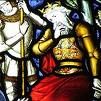
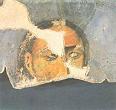
1195 In Mar. after personally leading a campaign against Bulgaria in Thrace and leaving camp to go hunting, giving his ungrateful older brother Alexius Angelus (who was redeemed from captivity and showered with honors by the emperor) the chance to proclaim himself emperor and get the soldiers behind him, emperor Isaac II Angelus is captured in Stagira, deposed, blinded, and imprisoned in Constantinople in Apr. along with his son Alexius IV by Alexius III Angelus (1153-1211) who is crowned Roman Byzantine emperor #159 (until July 18, 1203), and continues the campaign, which ends up a bust, causing him to offer peace to Tsar Ivan Asen I, but the latter demands the return of all Bulgarian lands, causing peace negotiations to fall through - these eyes have seen a lot of love but they're never going to see another woman like I had with you? On June 7 the earliest report of ball lightning near London, England; next in Widecombe, Devon on Oct. 21, 1638. In the summer William I of Scotland falls seriously ill, and shocks his counselors by seeking to have Otto of Saxony named as his successor, as long as Otto's uncle Richard I gives Cumberland, Northumberland, and Lothian to him as dowry; just when he's about to get his coveted N-land into his grap, he suddenly backs out? On July 19 after getting pissed-off at Castilian raids in the Seville region, Yaqub al-Mansur assembles a large Almohad army and defeats a much smaller Castilian force under Alfonso VIII at the Battle of Alarcos, with 30K Castilians vs. 500 Muslims KIA; al-Mansur returns to Seville to award himself the title of Billah ("made victorious by Allah"), then takes Trujillo, Plasencia, Talavera, Maqueda, Cuenca, and Ucles, and sieges Toledo, then attacks Madrid (Majrit) and returns to Seville next Aug. After his brother-in-law Alexius III becomes Byzantine emperor, Stefan I Nemanja decides to retire, and gives Zeta (Zenta) (Montenegro) to his eldest son Vukan II Nemanjic (1164-1208), who becomes king of Zeta (until 1208). Llywelyn the Great (1173-1240) becomes prince of Gwynedd in North Wales, with capital at Garth Celyn; he goes on to become de facto ruler of most of Wales. Architecture: The sultan of Marrakesh, Morocco orders the Marrakesh Mosque built to commemorate a military V, with 960 sacks of musk added to the mortar for the minaret, which survives to modern times, with the fragrance still perceptible? Births: Portuguese Franciscan monk (St.) Anthony of Padua (Lisbon) (Fernando Martins de Bulhoes) (d. 1231) in Lisbon; born to a wealthy family, becomes an Augustinian monk at age 15, then joins the Franciscan Order at age 25; patron saint of Padua and Portugal, and for finding lost articles and safe delivery of the mail; feast day: June 13. French prince #3 of Achaea (1229-46) Geoffrey II of Villehardouin (d. 1246); son of Geoffrey I of Villehardouin (1169-1229). Deaths: German Saxon duke (1142-80) Bavarian duke (1156-80) Henry the Lion (b. 1129). German Alsatian abbess Herrad of Landsberg (b. 1130) on July 25 in Hohenburg Abbey. Chinese superbrain Shen Kuo (b. 1131) in Runzhou. Italian surgeon Rogerius (b. 1139). Greek emperor of Cyprus (1184-91) Isaac Comnenus (b. 1155) in Iconium. Limoges, France-born Norman Crusader hermit St. Berhold of Calabria (b. ?) in Mount Carmel.





1196 On Mar. 25 Stephen I Nemanjic (d. 1200) of Serbia (Raska) officially abdicates in Ras, then retires to Vatopedia Monastery on Mt. Athos that had been founded by his 3rd son Rastko Nemanjic (St. Sava), along with his wife, who take the names Simeon and Anastasia, and gives his grand princedom to his 2nd son Stefan II Nemanjic (-1228) (until 1228), pissing-off the eldest son Vukan, who begins a power struggle, and gets Hungarian backing, causing Stephen to flee to the Bulgarian court, return with an army of Cumans and win his throne back with the mediation of brother St. Sava; Joannitsa (future tsar Kaloyan), younger brother of Peter IV uses the opportunity to seize E Serbia, incl. Belgrade and Nish; meanwhile, on his triumphal return to Tarnovo, Ivan Asen I is murdered by his cousin Ivanko (who was bribed by the Byzantines), and after he fails to take the throne he is sieged and chased back to Constantinople by pissed-off Peter IV. On Apr. 23 Bela III (b. 1148) dies, and his son (by 1st wife Anne of Chatillon-Antioche) Emeric I (1174-1204) becomes Arpad king of Hungary and Croatia (until Nov. 30, 1204). On Aug. 14 (Oct. 11?) St. Meinhard dies, and Bertold becomes bishop #2 of Livonia, arriving in Riga with a Crusader army to force the pesky pagan Finnic Livs to convert; too bad, they defeat the army and kill him, pissing off Pope Innocent III, who issues a bull declaring a Crusade against the Livonians. HRE Henry VI, as heir to the Norman dynasty demands Durazzo and Thessalonica from Byzantine Emperor Alexius III, who stalls by giving him a huge bribe. Alfonso II the Chaste (b. 1152) dies, and his son Peter II (the Catholic) (1178-1213) (who was already crowned by Pope Innocent III in Rome in 1205, swearing to defend the Roman Catholic faith, setting a trend) becomes king of Aragon and count of Barcelona in NE Spain (until Sept. 12, 1213), losing Provence. Duchess Constance of Brittany abdicates in favor of her son (by Geoffrey Plantagenet) Duke Arthur I of Brittany (1187-1203), who was designated heir of England after Richard I in 1190 - no matter who you are behind the wheel, fusion can handle it? The Battle of Serres in Greece is yet another Bulgarian V against the Byzantines under Gen. Sevastokrator Isaac, who is KIA after the cavalry is surrounded; too bad, before reaching the Bulgarian capital, Tsar Ivan Asen I is murdered by his cousin Ivanko, who had been bribed by the Byzantines, and tries to take the throne but ends up fleeing to Constantinople. Anglo-Norman knight John de Courcy (1150-1219) defeats the king of the Cenel Connail, leaving Donegal at his mercy; in 1198 he returns, devastating Inishowen; too bad, in subsequent campaigns he is defeated by the O'Neill clan under their chief Aed (Aodh) Meith (Méith) (-1230), and finds himself unable to conquer W Ulster. Suleyman (Suleiman) II (Rukn ad-Din) (-1204) overthrows his brother Kaykhusraw I, and becomes Seljuk sultan of Rum (until 1204). William "Long Beard" Fitz Osbert, leader of the London tax riots on behalf of the poor is captured in the Church of St. Mary le Bow and dragged naked behind a horse to Tyburn in Marylebone, London at the W end of Oxford St. at the junction with Park Lane, becoming the first person executed there, after which it becomes the main place for English executions until the 18th cent. The Sanskrit college of Vishaldev in the capital of Gujrat is destroyed by Turkic Muslim eunuch Qutubuddin (Qutb al-Din) Aibak (Aybak) (1150-1210). Heidelberg in SW Germany (modern pop. 135K) is first mentioned in records. The Shroud of Christ is allegedly displayed in Constantinople, and disappears during the Fourth Crusade in 1204. Nonfiction: William of Newburgh, Chronicles; mentions revenants, vampire-like creatures. Births: Japanese Yamato emperor #83 (1196-1231) Tsuchimikado (Tamehito) (d. 1231) on Jan. 3; eldest son of Go-Toba (1180-1239). Spanish countess of Urgell (1208-31) Aurembiaix (Aurembiax) (d. 1231) only child of Ermentol VIII and Elvira of Subirats; wife (1212-28) of Alvaro Perez de Castro) and (1229-31) of Peter I (1187-1258). Deaths: Indian sage Basava (b. 1134). Hungarian king (1172-96) Bela III (b. 1148) on Apr. 23 in Szekesfehervar. Spanish king of Aragon and count of Barcelona (1162-96) Alfonso II the Chaste (b. 1152).

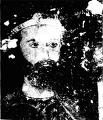
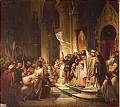



1197 On Sept. 10 Henry II of Champagne (b. 1166) dies after falling from a 1st story window from his palace in Acre along with his dwarf servant Scarlet (accounts vary), and his younger brother Theobald (Thibaut) III (1179-1201), "the Troubadour Prince" becomes count of Champagne (until May 24, 1201), while Amalric II of Cyprus becomes king of Jerusalem-Acre (until 1205), marrying the thrice-widowed Isabella next year, and choosing to guard his domains separately. Ottokar I (1155-1230), son of Bela III of Hungary and his 1st wife Anne of Chatillon-Antioche becomes king of Bohemia (until 1230), founding the Premysl (Przemysl) (Premyslid) Dynasty in Bohemia (ends 1306), using his imperial elector position to jerk the Germans around and make himself a big cheese and pain in the neck. On Sept. 28 HRE Henry VI Hohenstaufen (b. 1165) dies, and his infant son Frederick II becomes king of the Two Sicilies. On Nov. 20 the ministers of Richard I issue the Assize of Measures, providing a uniform std. of weights, measures, and coins in England, along with govt. supervision of their use; "Throughout the realm there shall be the same yard of the same size and it should be of iron." Sultan Melek al-Adil recaptures Jaffa, and massacres 20K Christians; Sidon is recovered by Crusader Reginald of Sidon. Bulgarian tsar Peter IV is murdered, and his younger brother Ivan I Kaloyan (Handsome John I) (Joannitsa) (1168-1207) (known as Skyloioannes or Dog John by his enemies) becomes tsar of Bulgaria (until 1207) - a lot of tirnovo there? Ganapati (-1259) becomes ruler of Kakati in E India. Parakramabahu I of Ceylon dies after invading Madura and uniting the two rival Buddhist monasteries. The Jewish quarter of Leon is burned down by order of Alphonso VIII of Castile and Pedro II of Aragon; the Jews are now treated as slaves. Architecture: Fleet Prison on the E bank of the Fleet River in London is built, becoming known for housing people committed by the Star Chamber, for persons charged with contempt of court by the Court of Chancery, and as a debtor's prison; in 1381 it is destroyed by Wat Tyler's men; in 1666 it burns down on day 3 of the Great Fire of London; after it is rebuilt, it becomes known for the highest fees in England, complete with grill built into the Farringdon St. wall for prisoners to beg alms, along with Liberty of the Fleet for those who pay enough; starting in 1613 clandestine Fleet Marriages are performed; it is destroyed during the Gordon Riots of 1780; in 1842 Parliament passes an act requiring inmates of Fleet Prison and Marshalsea Prison to be moved to the Queen's Bench Prison, which is renamed the Queen's Prison; it is closed in 1844, and demolished in 1846. Lambeth Palace in London on the S bank of the Thames River becomes the official residence of the archbishops of Canterbury. Richard I builds romantic Chateau Gaillard on the Seine River near Rouen on a hill overlooking the town of Les Andelys to secure Angevin power in N France - the prototype lover's castle in the south of France? St. Mungo's Cathedral in Glasgow, Scotland is dedicated. Births: French count of Toulouse (1222-49) Raymond VII of Saint-Gilles (d. 1249) in July in Chateau de Beaucaire, Beaucaire, Languedoc; son of Raymond VI and Joan of England. Deaths: Welsh prince Lord Rhys ap Gruffydd (b. 1132) on Apr. 28. French count of Champagne (1181-97) Henry II (b. 1166) on Sept. 10 in Acre (falls from a 1st floor window in his palace). Spanish-born Muslim Sufi scholar Abu Maydan al-Andalusi (b. ?) in N Africa; his tomb becomes a pilgrim attraction.





1198 Pozzuoli on the Bay of Naples is ruined by an earthquake. On Jan. 6 Levon (Leo) I (II) the Great (Magnificent) (1150-1219), an ally of HRE Frederick I Barbarossa is crowned king of Lesser Armenia (until 1219), receiving the royal crown from his son Henry VI. On Jan. 8 Pope (since 1191) Celestine III (b. 1106) dies, and on Jan. 8 37-y.-o. (young for a pope) Lotario de'Conti is elected Pope (#175) Rocky, er, Innocent III (1160-1216); under him the papacy as an institution reaches its zenith of power, and he is one of the great persecuting popes; in his first year he preaches another crusade to rebuild the old Latin Kingdom of Jerusalem which had been destroyed in 1187 and only imperfectly restored in 1192; in Nov. to quiet the Normans, he issues a bull confirming his 4-y.-o. ward Frederick II as king of the Two Sicilies. On Feb. 18 17-y.-o. emperor (since Sept. 8 1183) Go-Toba (1180-1239) is forced to abdicate by Minamoto Yoritomo, and his eldest son Tsuchimikado (1196-1231) becomes Japanese Yamato emperor #83 (until Dec. 12, 1210). On Mar. 8 after the death of HRE Henry VI a double election ensues, the Ghibellines elect HRE Frederick I Barbarossa's son Philip of Swabia (1177-1208) (bishop of Wurzburg in 1191-2, duke of Tuscany since 1195, duke of Swabia since 1196, and husband since May 1197 of Irene Angelina, daughter of Byzantine emperor Isaac II) in Muhlhausen, while in Apr. the Guelfs (Guelfphs) (Welfs), led by Adolph de Berg, archbishop of Cologne elect Otto IV of Brunswick (1175-1218), son of Duke Henry the Lion of Saxony and Matilda (daughter of Henry II of England), who was educated at the court of his uncle Richard I of England; on July 12 Otto is crowned in Aachen, and on Sept. 8 Philip is crowned in Mainz; the rivals then go to war for 10 years while Pope Innocent III, who alone can crown one of them as HRE waits in the wings and plays both ends against the middle; Philip's support comes mainly from S Germany, and he allies with Philip II of France, gaining the upper hand early on, until things reverse by 1200. On Apr. 6 Friedrich I (b. 1175) dies while returning from the Holy Land, and his younger brother Leopold VI (the Glorious) (1176-1230)) becomes Babenberg duke of Austria, followed in 1194 by duke of Styria (until 1230); he goes on to introduce Gothic architecture into his realm, while his court becomes a center for Minnesingers; the Nibelungenlied are written in his court? On Aug. 24 William I of Scotland finally has a son and heir, Alexander II (d. 1249). On Sept. 27 after both sides pillage each other's territory and commit atrocities such as blinding the local pop., Richard I defeats Philip II Augustus and his 300 knights at the Battle of Gisors in Normandy, after which the Frog knights flee across a bridge that breaks under the weight, causing Philip to have to be pulled out of the water by his men; Richard I takes the motto "Dieu et mon Droit" (God and My Right) as his motto, which is adopted by the British monarchy, meaning that they acknowledge no superior rank but God. Hubert Walter resigns as English justiciar. John of Ibelin, the Old Lord of Beirut (1179-1236), half-brother of Queen Isabella of Jerusalem is appointed constable of Jerusalem (until 1204). Deciding he likes the way they pay taxes on their usury, Philip II Augustus readmits the Jews to France, and heavily regulates and taxes their banking activities; meanwhile new Pope Innocent III excommunicates him for rejecting his lawful 2nd wife (since Aug. 15, 1193) Ingeburga (Ingebiorga) (Ingeborg) of Denmark (1174-1230) in place of hotter 3rd wife (since June 1196) Agnes of Meran (-1201), daughter of the duke of Meran; his first wife (1180) was Isabella of Hainault, who died in 1190. Nonfiction: William of Newburgh writes Historia Rerum Anglicarum (History of the Kings of England) - the victors write the history books? Births: Scottish Canmore king (1214-49) Alexander II (d. 1249) on Aug. 24 in Haddington, East Lothian; son of William I (1142-1214) and Ermengarde de Beaumont (1170-1234). Japanese Yamato emperor #84 (1210-21) Juntoku (Morinari) (d. 1242) on Oct. 22; 3rd son of Go-Toba (1180-1239). Spanish Jewish philosopher-rabbi Nachmanides (Heb. "Son of Nahum) (Moses ben Nishmon) (d. 1270) (AKA Rambam) in Barcelona. Deaths: Irish last high king Rory O'Connor (b. 1116); dies in retirement in a monastery. Spanish Muslim brain man Averroes (Ibn Rushd) (b. 1126) on Dec. 10 in Marrakesh; first to explain the function of the retina, and to recognize acquired immunity with smallpox; leaves Commentaries on Aristotle, which are trans. into Hebrew then Latin, spawning the rationalist School of Padua, and heretic Siger de Brabant, causing St. Thomas Aquinas to take them on, Encyclopedia of Medicine (Kitab al-Kuyat fi al-Tibb) (1161), which becomes a hit in the West, and Tuhafut al-Tuhafut (Destruction of the Destruction), a reply to al-Ghazili, saying that deep study of philosophy will lead one out of atheism, albeit after giving up the dogmas of literal religion, so that the rulers should protect them while they combat the bad philosophers, and that in the meantime the uneducated masses should be allowed to have literal religion, and that philosophers, who should only accept it symbolically shouldn't criticize it as long as they in turn are not harassed. French Crusader Humphrey IV of Toron (b. 1166).


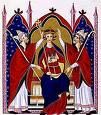



1199 On Jan. 13 Pope Innocent III imposes a 5-year truce on Richard I of England and Philip II Augustus of France, but on Apr. 6 after Viscount Adhemar of Loges discovers a cache of ancient Roman gold on his land, and he refuses an offer of a share and demands it all, coming to take it by force, Richard I Lionheart (b. 1157) dies of gangrene in the arms of his mother Eleanor of Aquitaine while sieging the castle of Chalus-Chabrol after inviting the boy crossbowman on the castle wall to shoot at him because he was amused by his clutching a frying pan as a shield, getting an arrow in the left shoulder near the neck, after which butcher surgeon Hoveden mangles his arm, and he contracts gangrene, his dying wish being that the crossbowman (who told him that his men had killed his father and two brothers) be spared and granted 100 shillings,, but instead his mercenary capt. Mercadier (-1200) has him flayed alive and impaled; "The Lion was slain by an Ant" - eh, what was that you said, kingey, I'm kinda murky today? On Feb. 13 after helping his son St. Sava (1174-1236) rebuild the ruined Orthodox Hilandar Monastery on Mt. Athos, making it the center of Serbian spiritual culture, Stefan I Nemanja (b. 1109) dies in front of his son and the icon of the Virgin Hodegetria (3-handed virgin), his last words being to take his remains back to Serbia. I got supernatural expectancy, God's dope is living inside me? In Feb. Pope Innocent III gives the new military Order of Teutonic Knights (an ethnic spinoff from the Order of Hospitalers formed during the Siege of Acre) official recognition, followed on Apr. 23 by the Hospitaler Order of the Holy Ghost, followed on Dec. 7 by the Order of Trinitarians (devoted to rescuing Catholic captives). On May 27 after securing the adherence of the Norman barons, and swearing a coronation oath at the insistence of Archbishop Hubert Walter that his throne is held by the election of the nation (nobles and prelates) and the grace of God (which he doesn't believe in?), cruel cunning tyrant and cruddy soldier (see any Robin Hood movie?) John Lackland (Softsword) (1167-1216), youngest son of Henry II and Eleanor of Aquitaine is crowned the 27th monarch of England in Westminster (until Oct. 19, 1216), usurping the right of his 12-y.-o. nephew (son of his elder brother Geoffrey) and designated heir Arthur I of Brittany (1187-1203); Philip II Augustus of France steps in and defends the claims of Arthur and Hugh de Lusignan, thinking he can use Arthur to grab John's territory in France, capturing Evreux again; Arthur declares himself Philip's vassal; after news of his bro's death, Lucky John I gets his marriage to Isabel of Gloucester annulled on grounds of consanguinity, then dispatches an embassy to negotiate for the hand of a Portuguese princess, but soon becomes enamored of foxy young Isabella of Angouleme (1187-1246), "the Helen of the Middle Ages", daughter of one of his vassals in Poitou, betrothed to Hugh IX the Brown of Lusignan, Count of La Marche (1163-1219), his Poitevin vassal; John betrothes Isabella, "the queen without a conscience" with the consent of her father but without Hugh's consent, pissing off the nobility of both nations, and Hugh appeals to Philip II; John goes on to marry Isabella on Aug. 24, 1200; Hubert Walter, archbishop of Canterbury and justiciar (since 1194) accepts the office of chancellor, and with William Marshall aids justiciar Geoffrey Fitz Peter in putting down the usual revolts, beginning to rely on the middle class in town and shire, granting charters to towns, giving London the right to elect a mayor, calling on the knights of the shire to assume county business as a balance to the sheriffs, and recruiting knights (elected by the gentry) to serve as coroners and choose juries; William I the Cowardly Lion of Scotland forms an army and is about to demand concessions from the new king when he loses the nerve and disbands it. Come to pop? On Aug. 15 at the behest of HRE Henry VI, Pope Innocent III proclaims the Fourth Crusade to European monarchs in an obvious attempt to override royal and lay control, and steer the effort towards the other white meat heretic Orthodox Byzantines; the pope for the first time compels his clerical subjects to pay a tax based on their annual incomes in order to pay for the Crusade, and after enthusiasm proves lacking, on Nov. 28 Count Theobald III of Champagne (1179-1201) holds a tournament in his castle in Ecry-sur-Aisne, where preacher Fulk of Neuilly (-1201) persuades Geoffrey de Villehardouin (1160-1212) to sign up, being named one of the ambassadors to Venice to procure ships for the voyage; Theobald III is elected the leader of the Fourth Crusade. On Dec. 12 Pope Innocent III lays the whole of France under interdict, and public opinion forces Philip II to a reconciliation, although he refuses the pope's offer of mediation with King John, who continues Richard I's conquest of the Angevin lands of N France. The Declaration of Speyer confirms the right of German princes to elect a king. Hubert de Burgh (1165-1243) becomes chamberlain to John I (until 1216), beginning a long rise (and fall) in England. Albert of Livonia (Riga) (1165-1229) is proclaimed bishop #3 of Livonia by his uncle Hartwig of Uthlede (-1207), prince-archbishop of Bremen and Hamburg, and arrives next year with 23 ships carrying 500 Westphalian Crusaders; in 1201 he transfers the seat of the bishopric from Ikskile to the new town of Riga, and builds a cathedral in 1221. Galicia in Austria SW of Russia reaches its zenith under Prince Roman of Volhynia (-1205). Habsburg (Hapsburg) count Albert the Rich (b. ?), great-grandson of Werner I (d. 1096) dies after having greatly increased the family estates in Alsace with domains in Switzerland, and his son Rudolph the Old (-1232) continues with his daddy's program by acquiring the countships of Laufenburg and Aargau. Al-Mansur dies, and his son Muhammad al-Nasir (-1213) becomes Almohad caliph #4 (until 1213), going on to fight the rebel Banu Ghaniya in Tunisia, and appoint Abu Muhammad ben Abi Hafs as gov. of Ifriqiya (N Africa), who later founds the Hafsid Dynasty. Bengal is conquered by Mahmud of Ghazni, who imports a Muslim elite of Persianized Turks to run the Hindu-Buddhist pop.; after they attack Buddhist monasteries, a mass exodus of Buddhists into SE Asia begins. Queen Berengaria, who was left by her hubby Richard I to find her way back from the Holy Land and arrives after his death sues the Church to be recognized as his widow; what she didn't know is that Richard I had abandoned her, and had been ordered to be faithful to her with the admonition "remember the destruction of Sodom and abstain from illicit acts", causing speculation that he is gay, possibly hooking up with Berengaria's brother Sancho VII? Architecture: Siena Cathedral in Italy is begun. The 238-ft.-high brick Qutub (Qutb) Minar Minaret in S Delhi, India next to the Quwwat-al-Islam Mosque begins construction, becoming the tallest brick minaret on Earth. Births: Spanish king of Castile and Toledo (1217-52) and king of Leon (1230-52) Ferdinand III (the Saint) (d. 1252) on July 30 (Aug. 5?) (summer 1201?) in the Monastery of Valparaiso, Peleas de Arriba, Leon; son of Alfonso IX of Leon and Berengaria of Castile (1179-1246) (daughter of Alfonso III, and sister of Blanche, mother of Louis IX of France); born near Salamanca; Pope Innocent III divorces his parents in 1204; feast day: May 30. Indian Vaisnava religious leader Madhva Acarya (d. 1278) in Velali. Deaths: Serbian grand prince (1166-99) St. Stefan I Nemanja (b. 1109) on Feb. 13 on Mt. Athos; canonized in 1200 as St. Simeon the Myrrh-Flowing (Elaiovyrtis) after holy oil allegedly seeps from his tomb and his body continues to "give off a sweet smell like violets"; his body is brought by his son St. Sava back to Rascia (Serbia) in 1206 like he requested. Japanese shogun Minamoto no Yoritomo (b. 1147) on Feb. 9. English king (1189-99) Richard I Lionheart (b. 1157) on Apr. 6 in Chalus, Chabrol, France (gangrene from an arbalest arrow); his brain is buried in Charroux Abbey in Poitou, his heart in Rouen, and his body in Fontrevaud Abbey in Anjou at his father's feet; the bishop of Richester later claims that he spent 33 years in purgatory before ascending to heaven in Mar. 1232; in 1838 his heart is rediscovered; in 2013 his heart is scientifically proved to have been embalmed with myrtle, mint, creosote, frankincense, lime et al. Spanish Almohad ruler #3 (1184-99) Yaqub al-Mansur (b. 1160) on Jan. 23 in Marrakesh, Morroco.